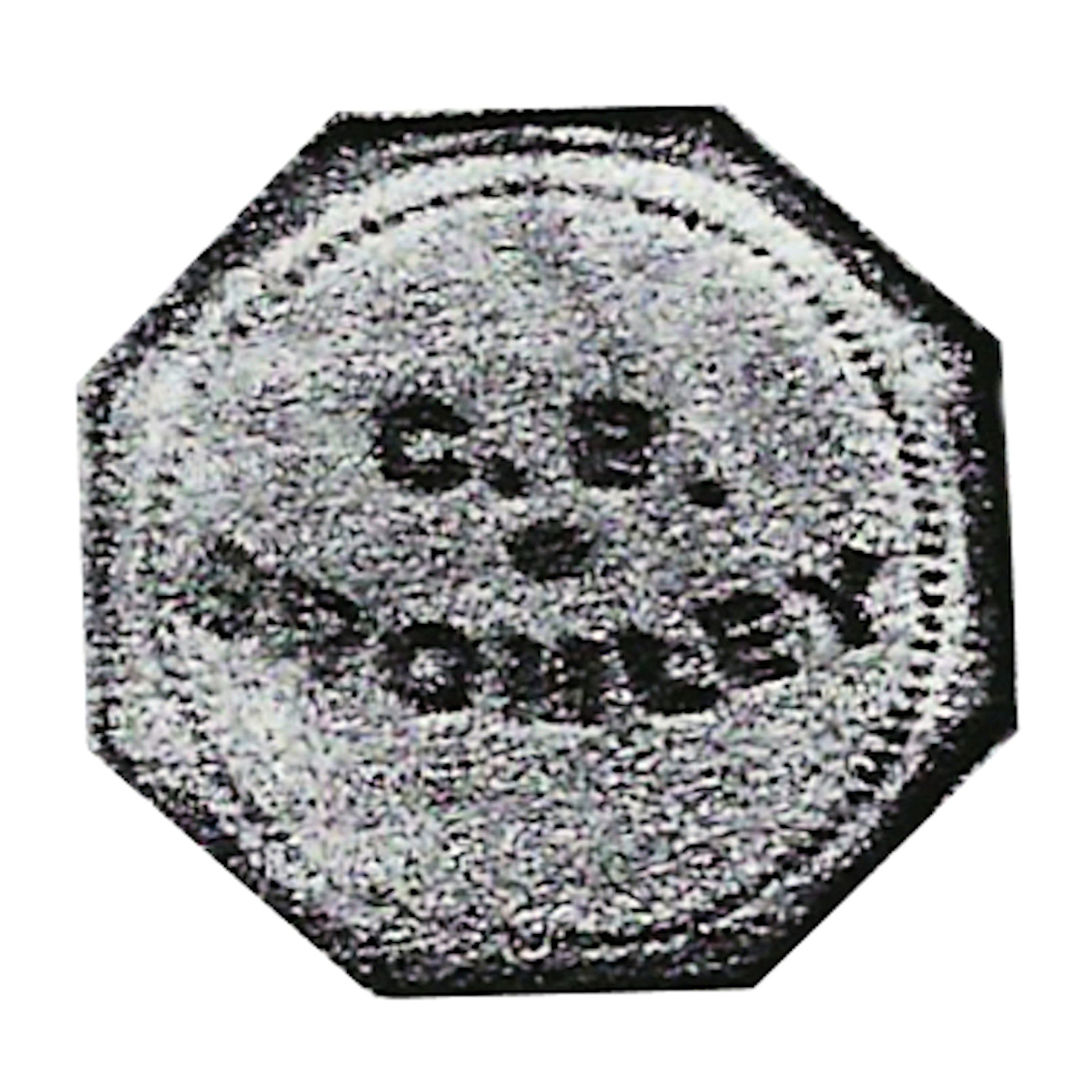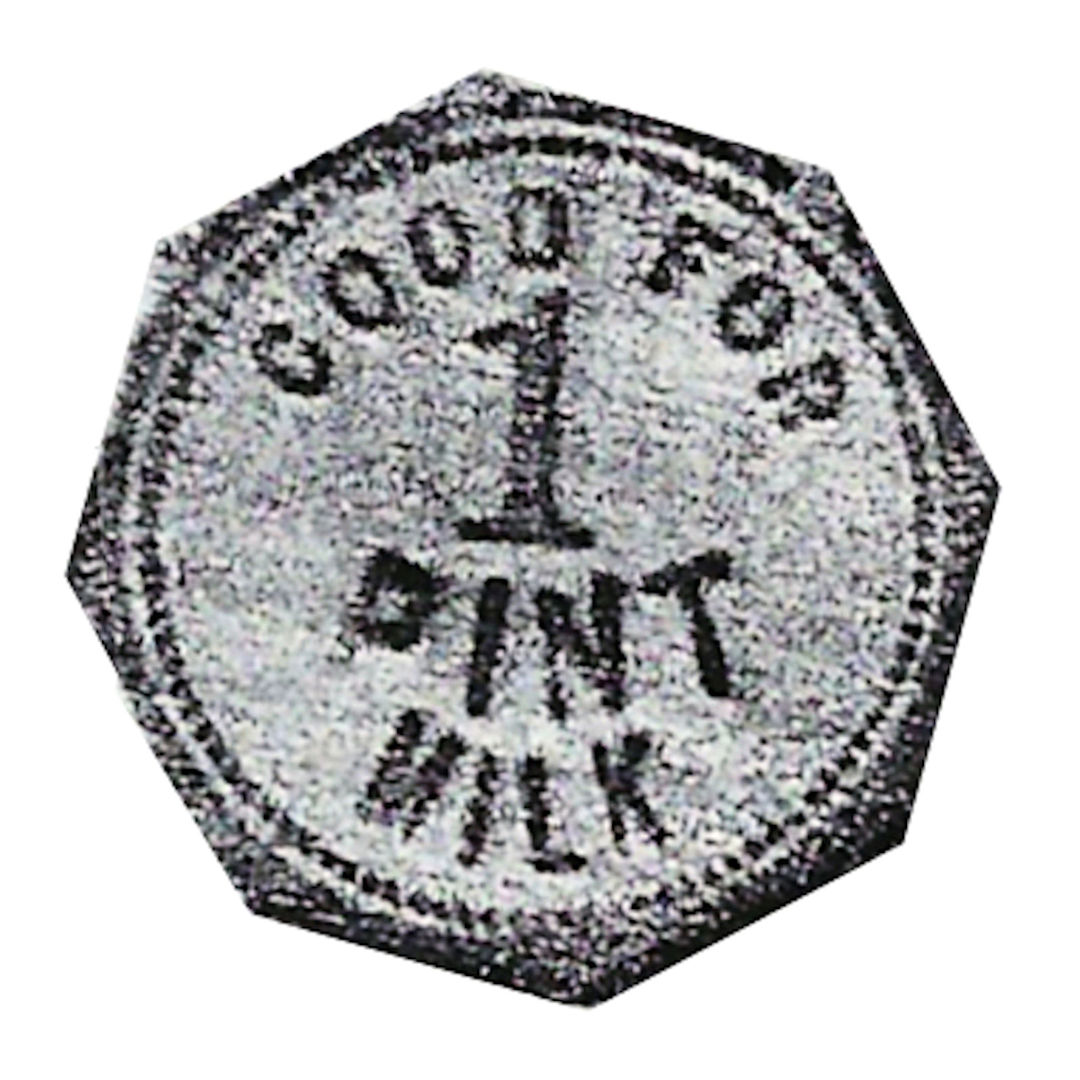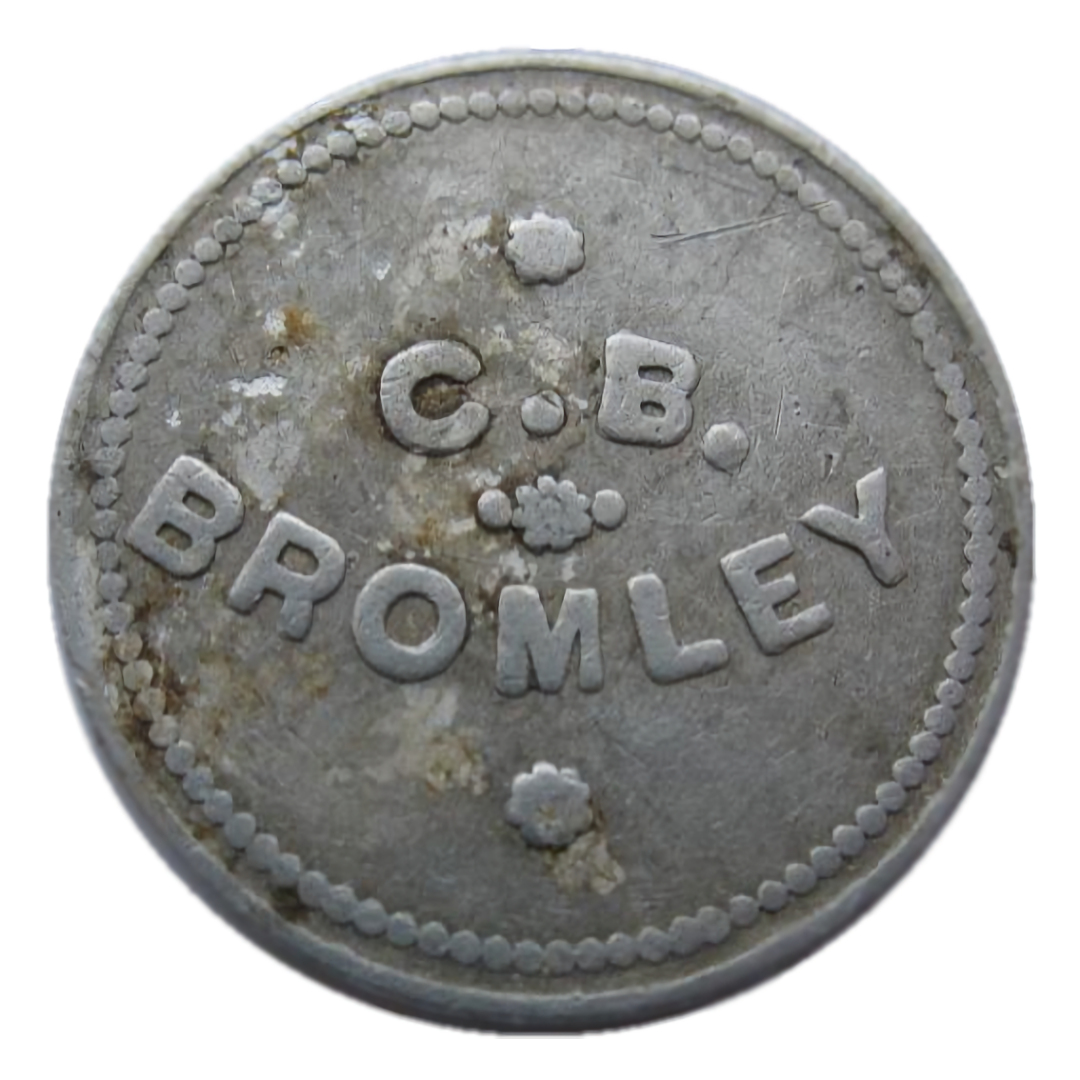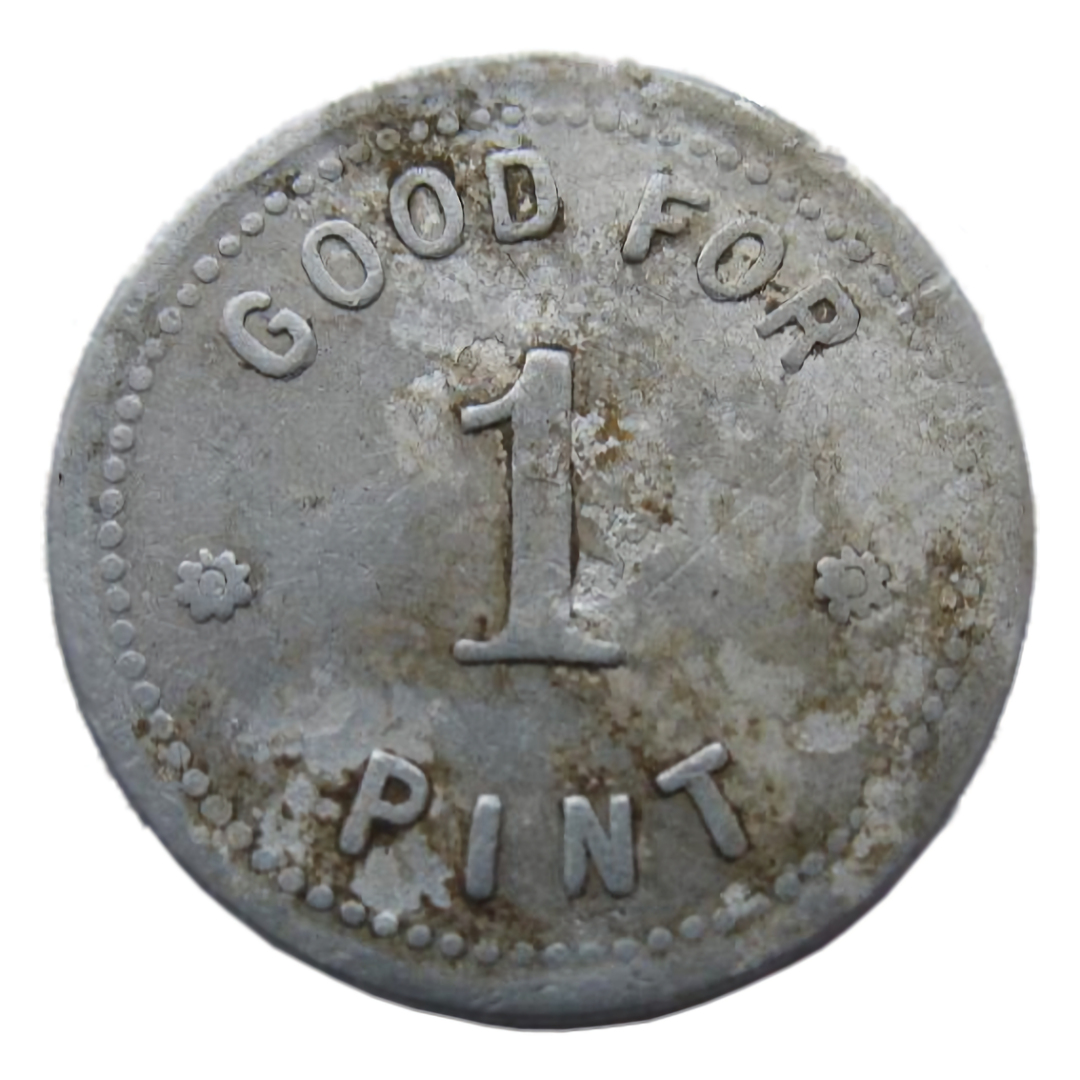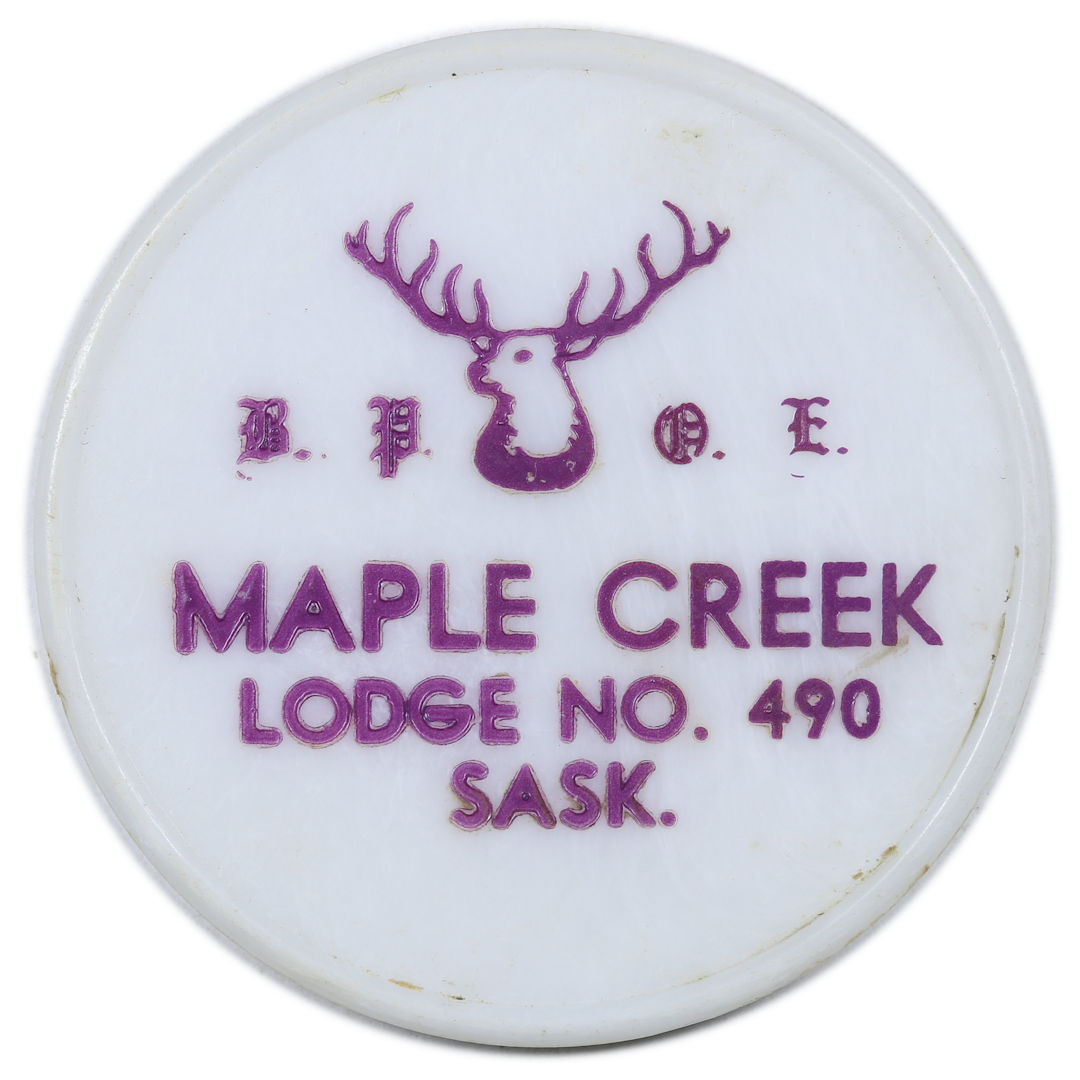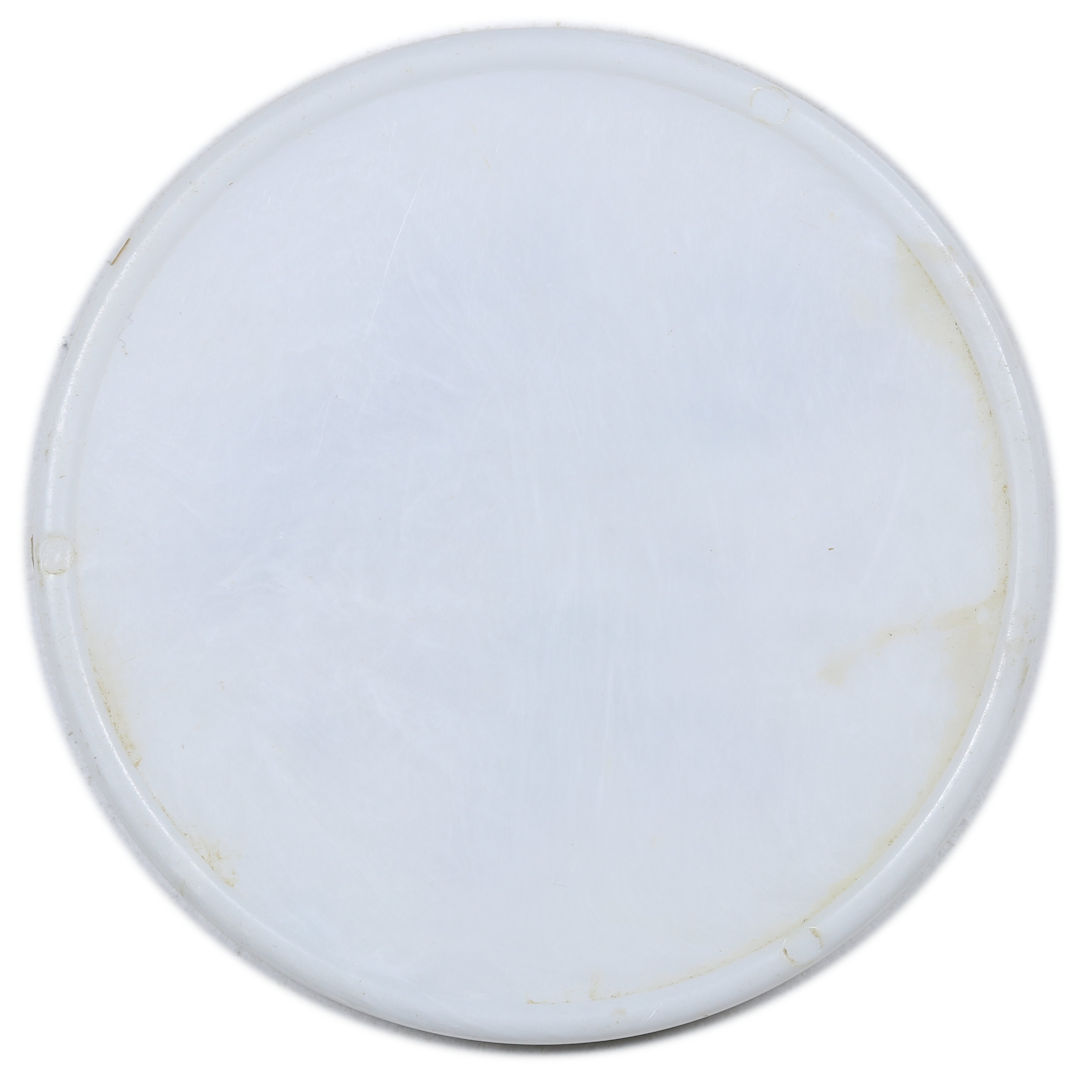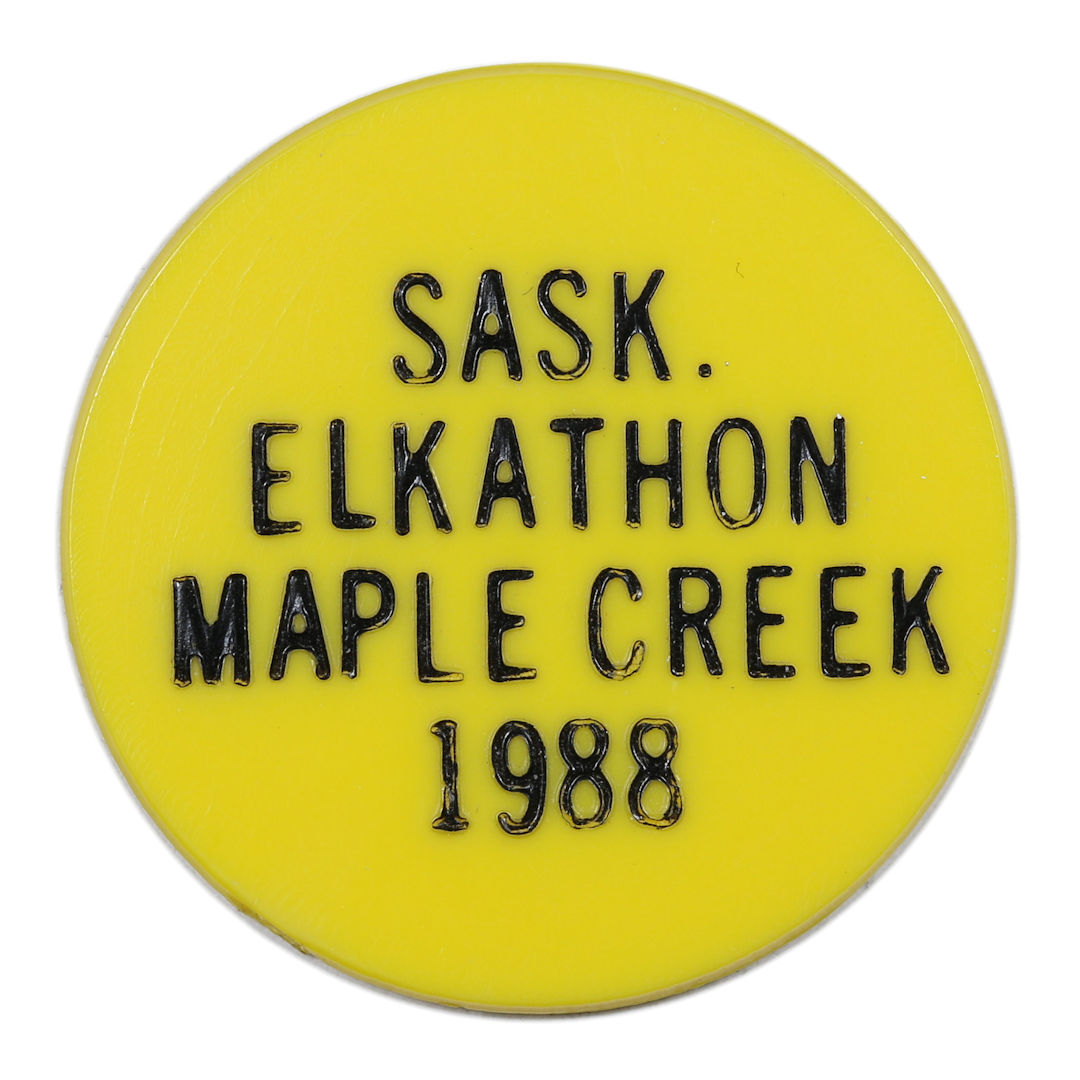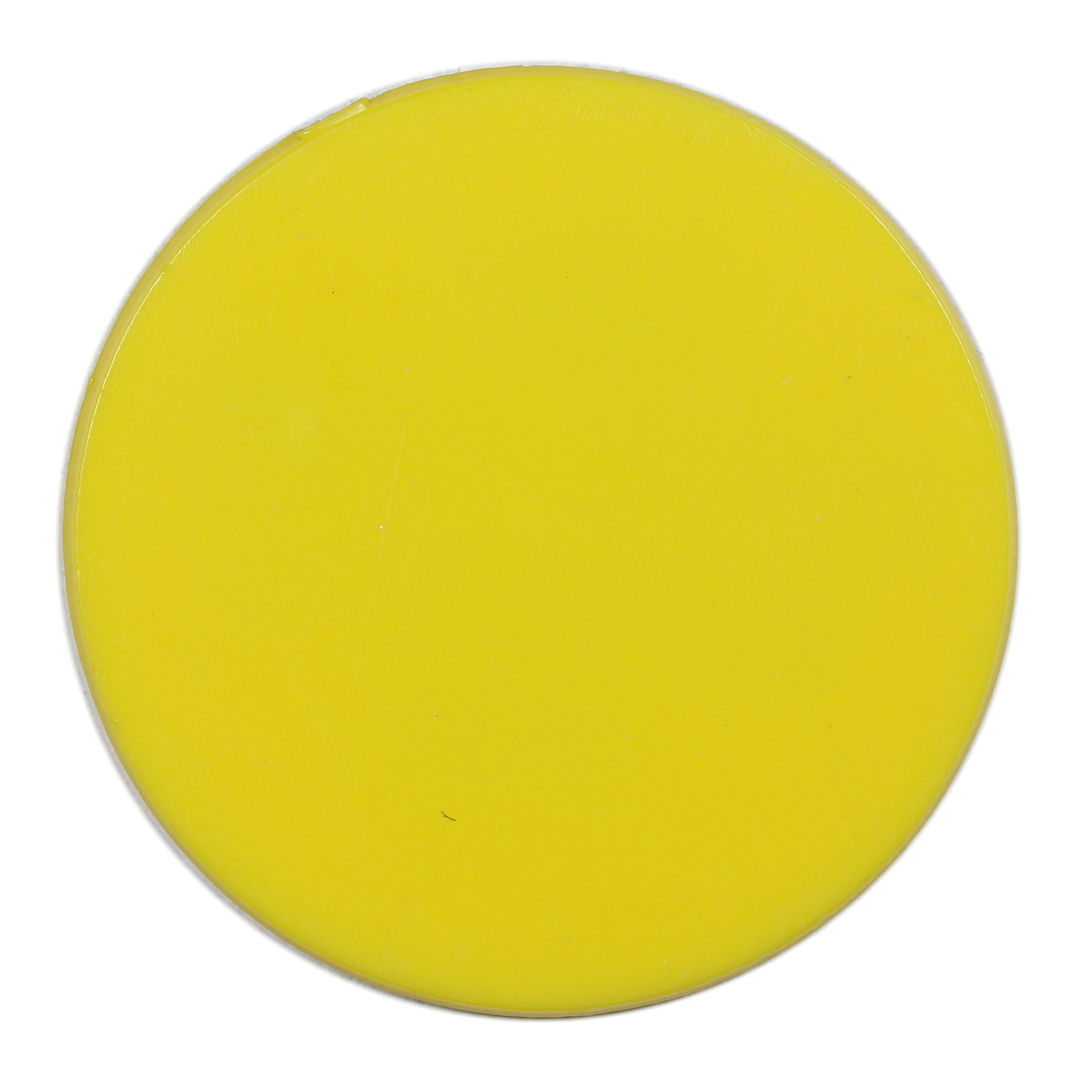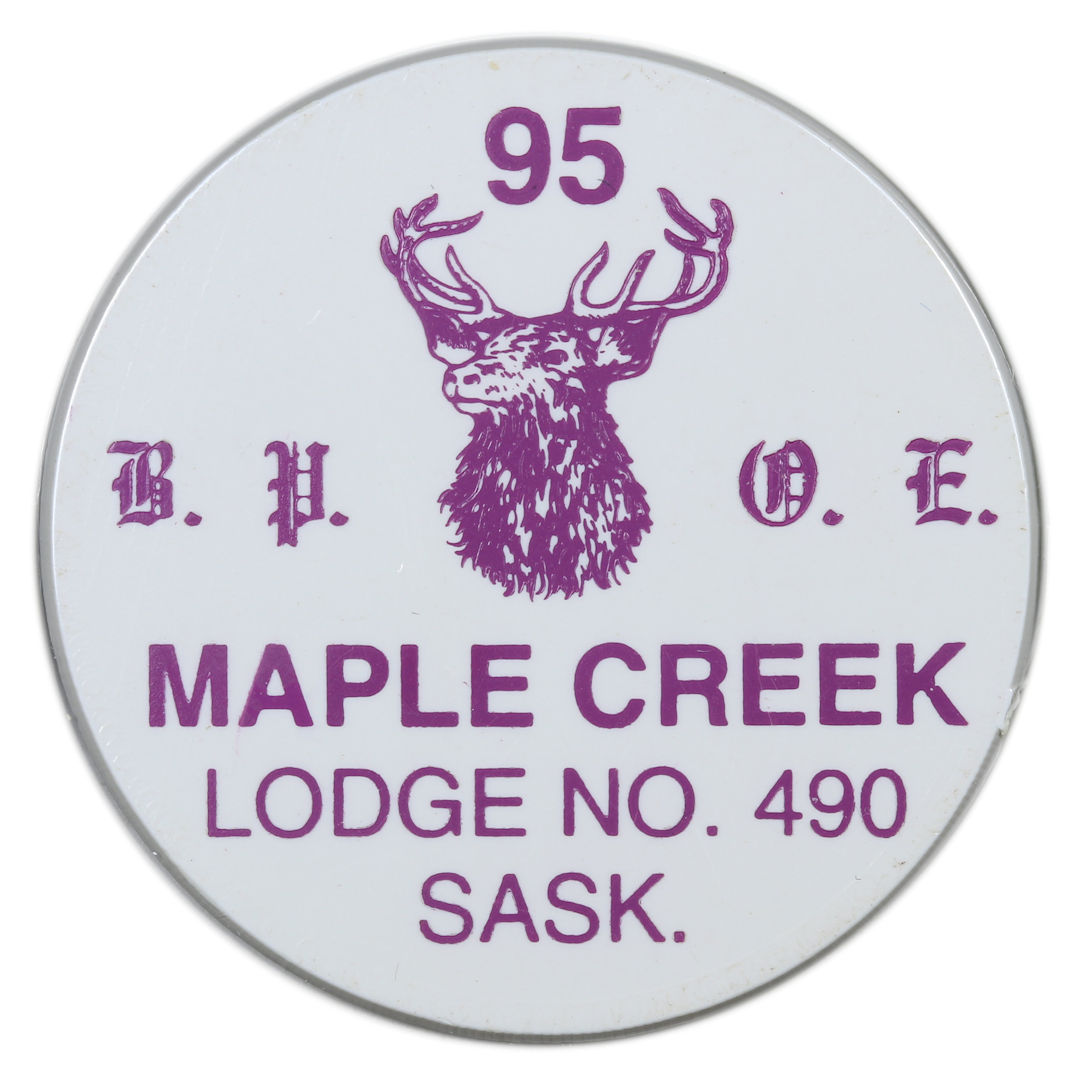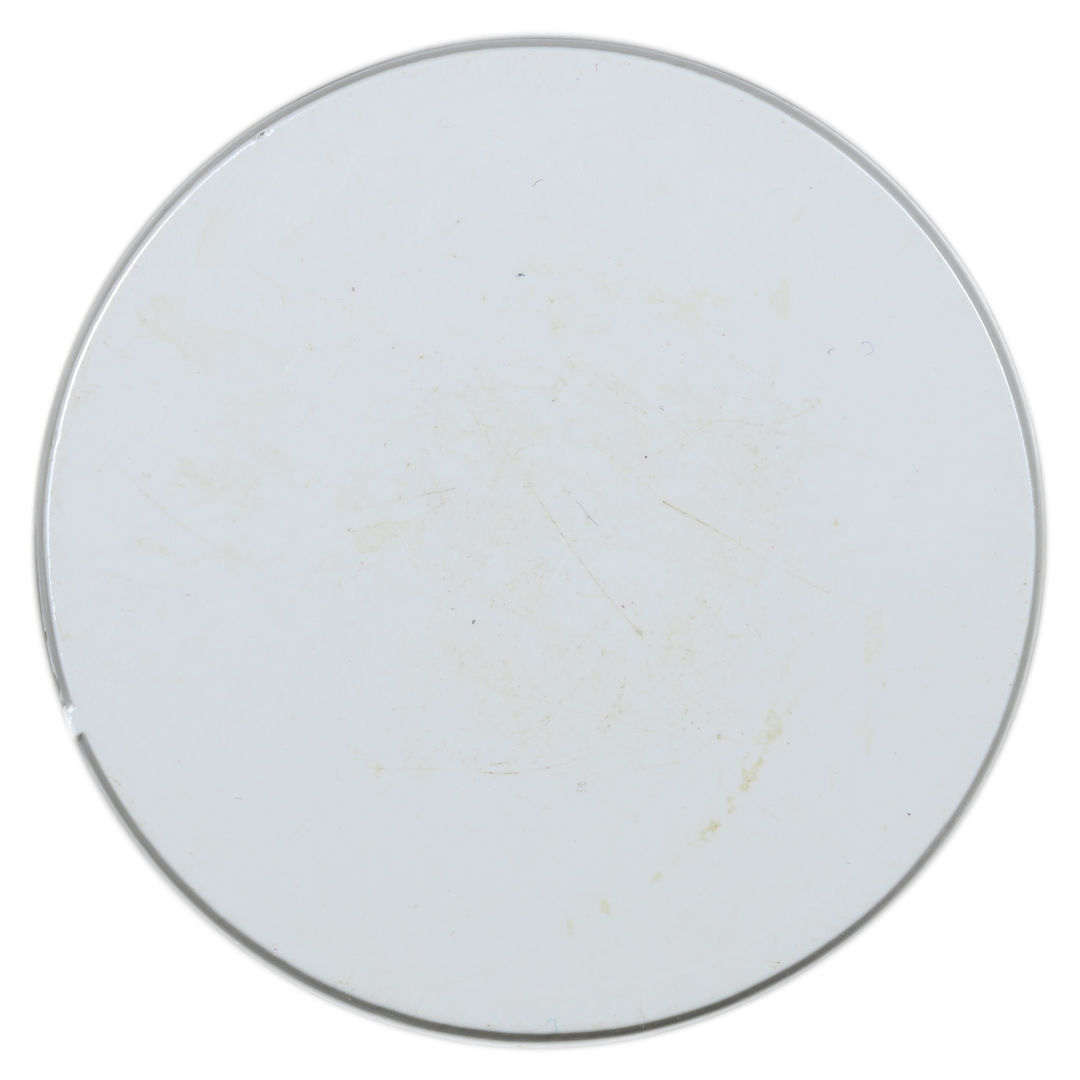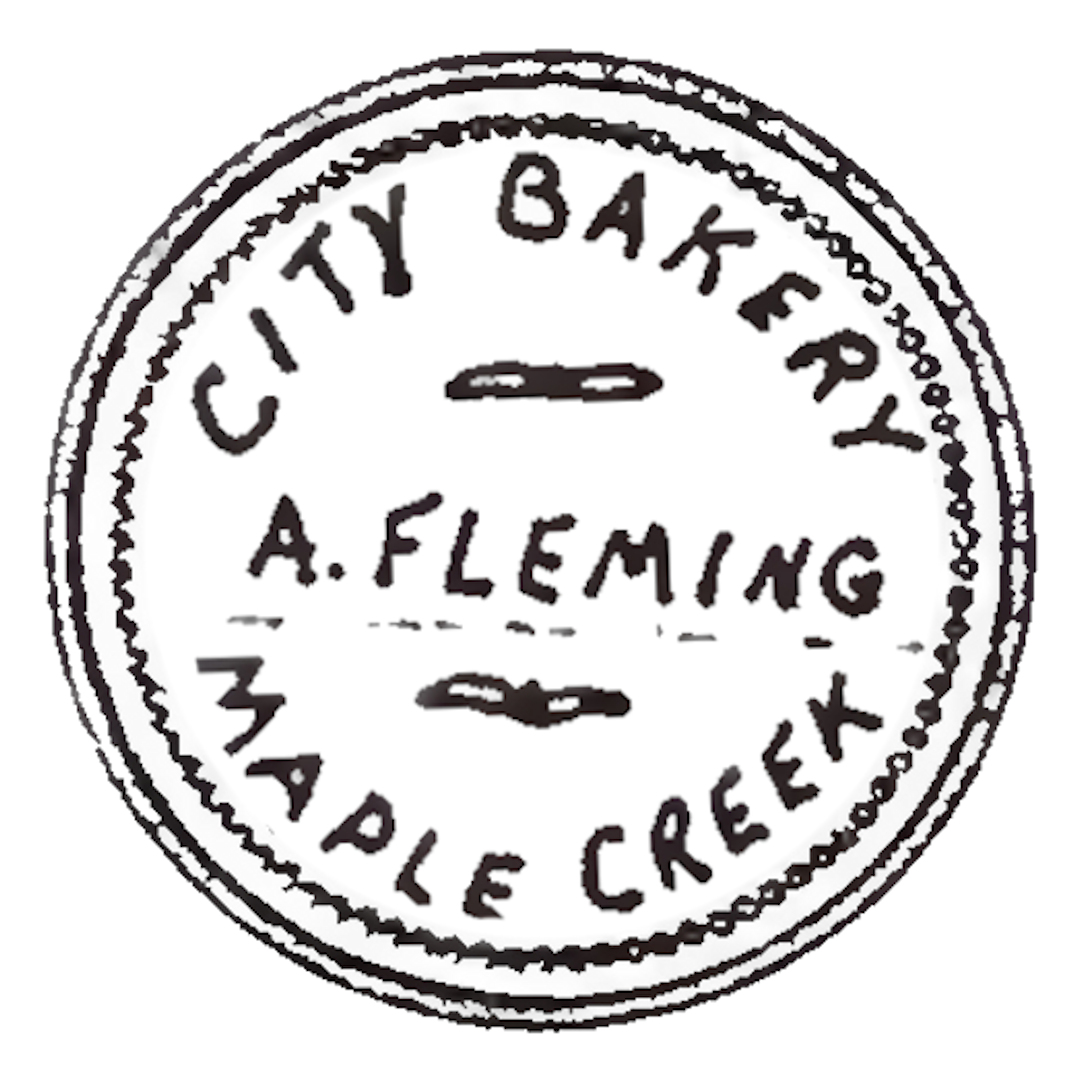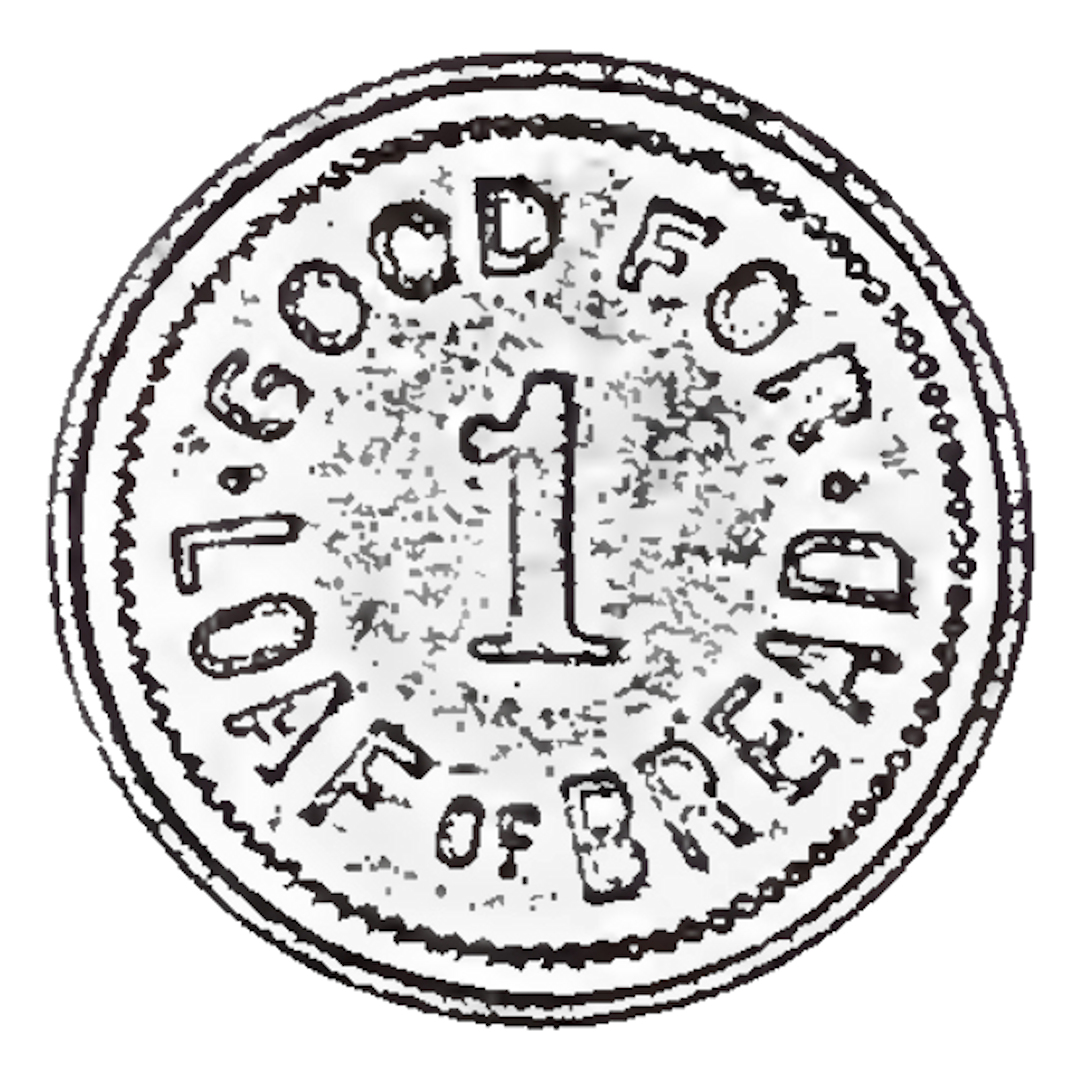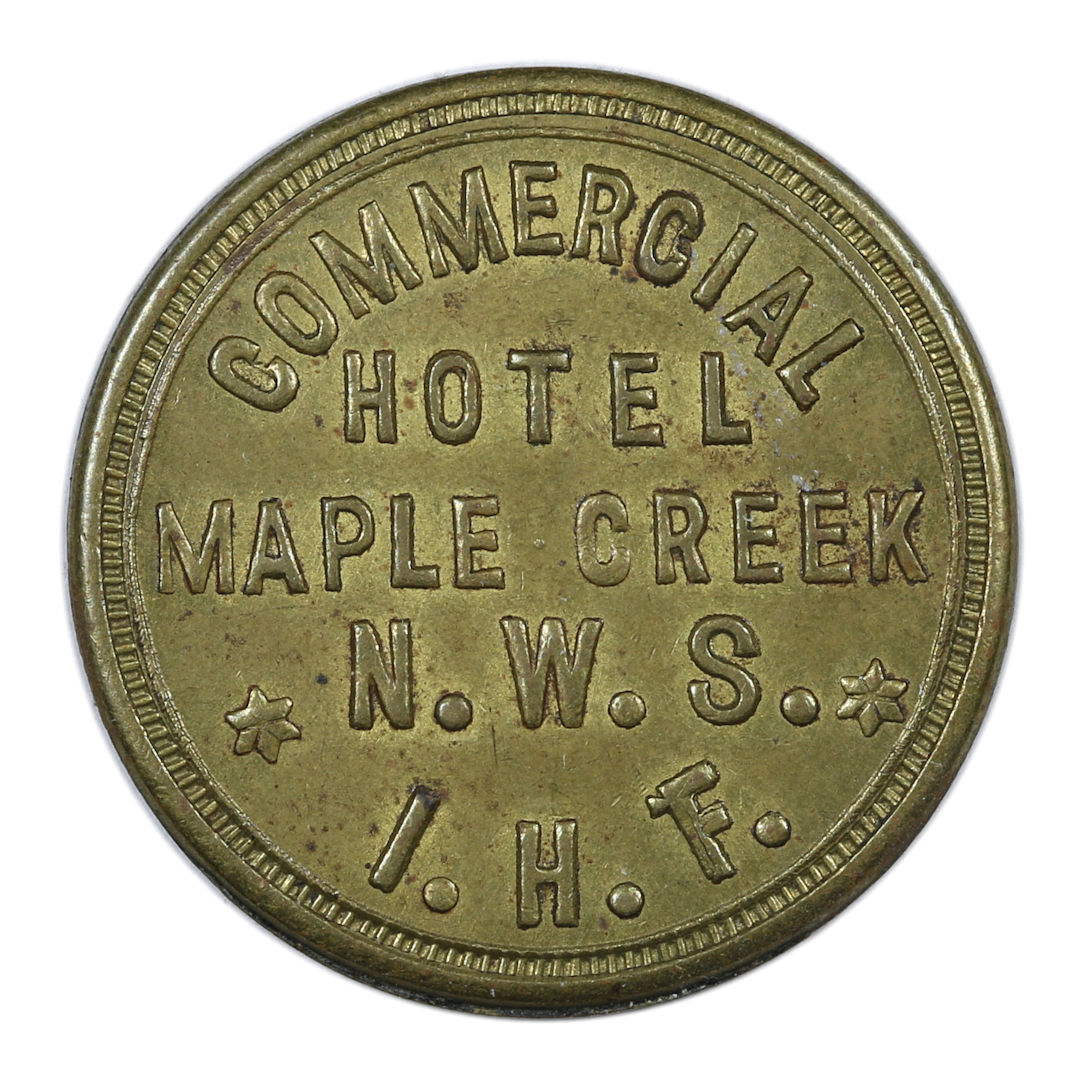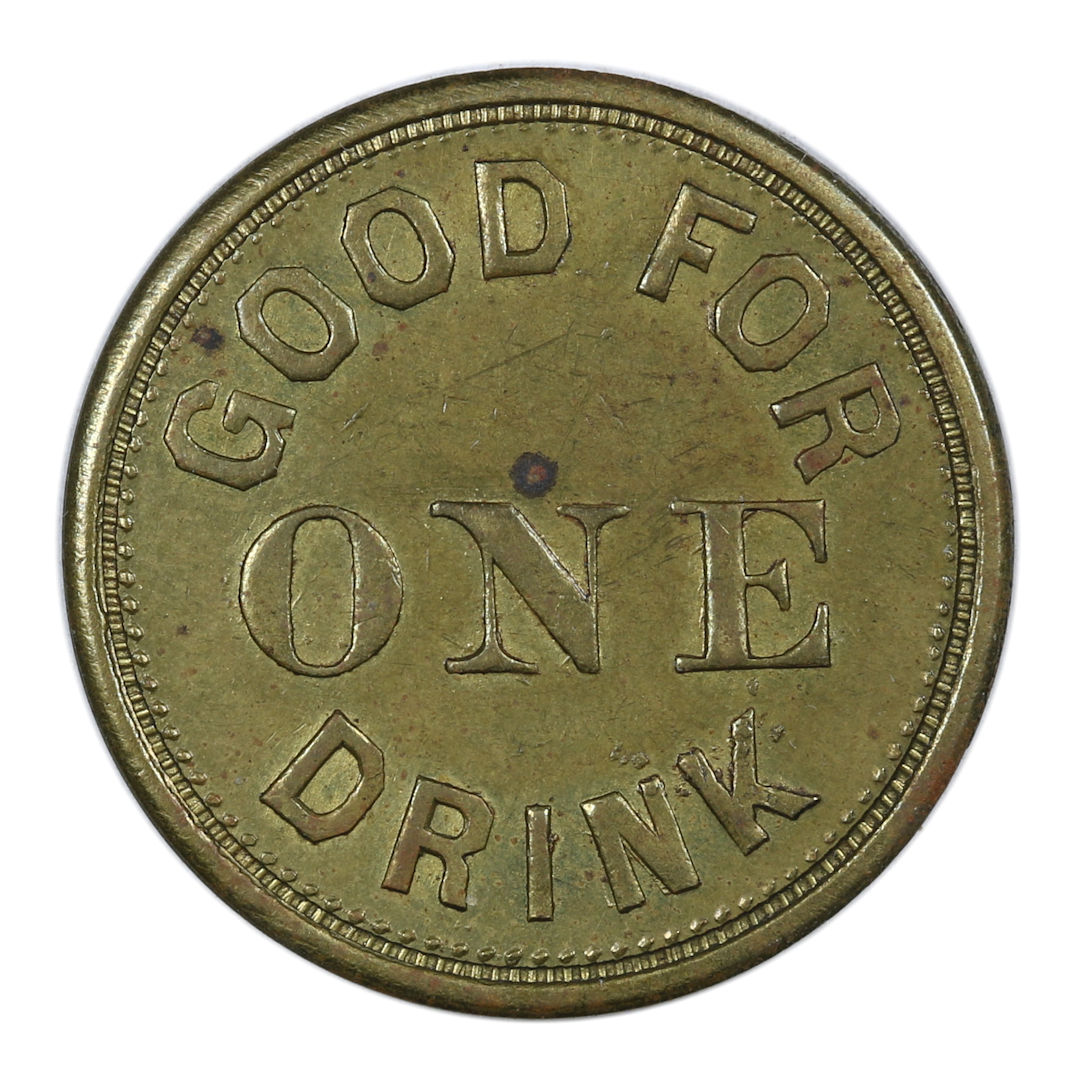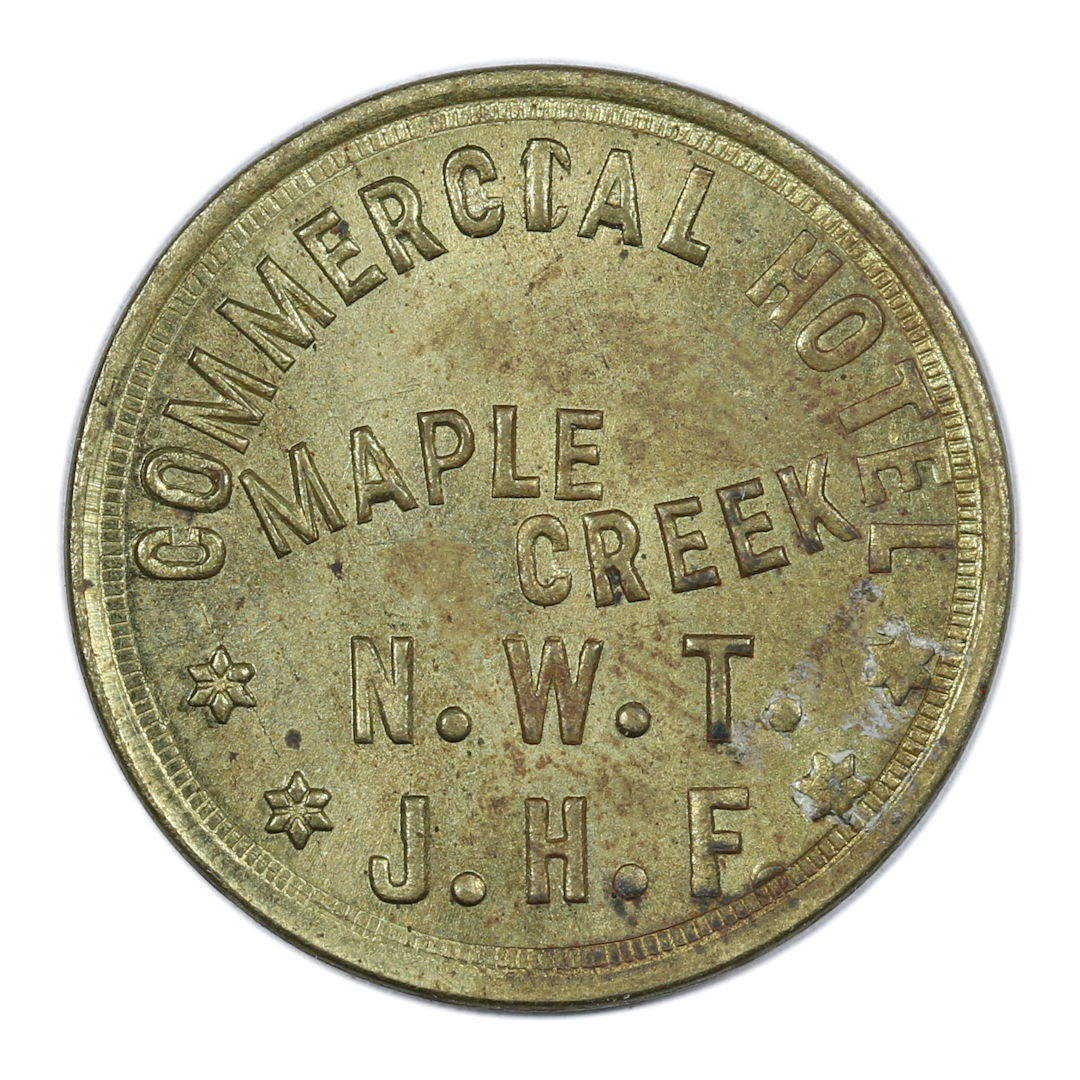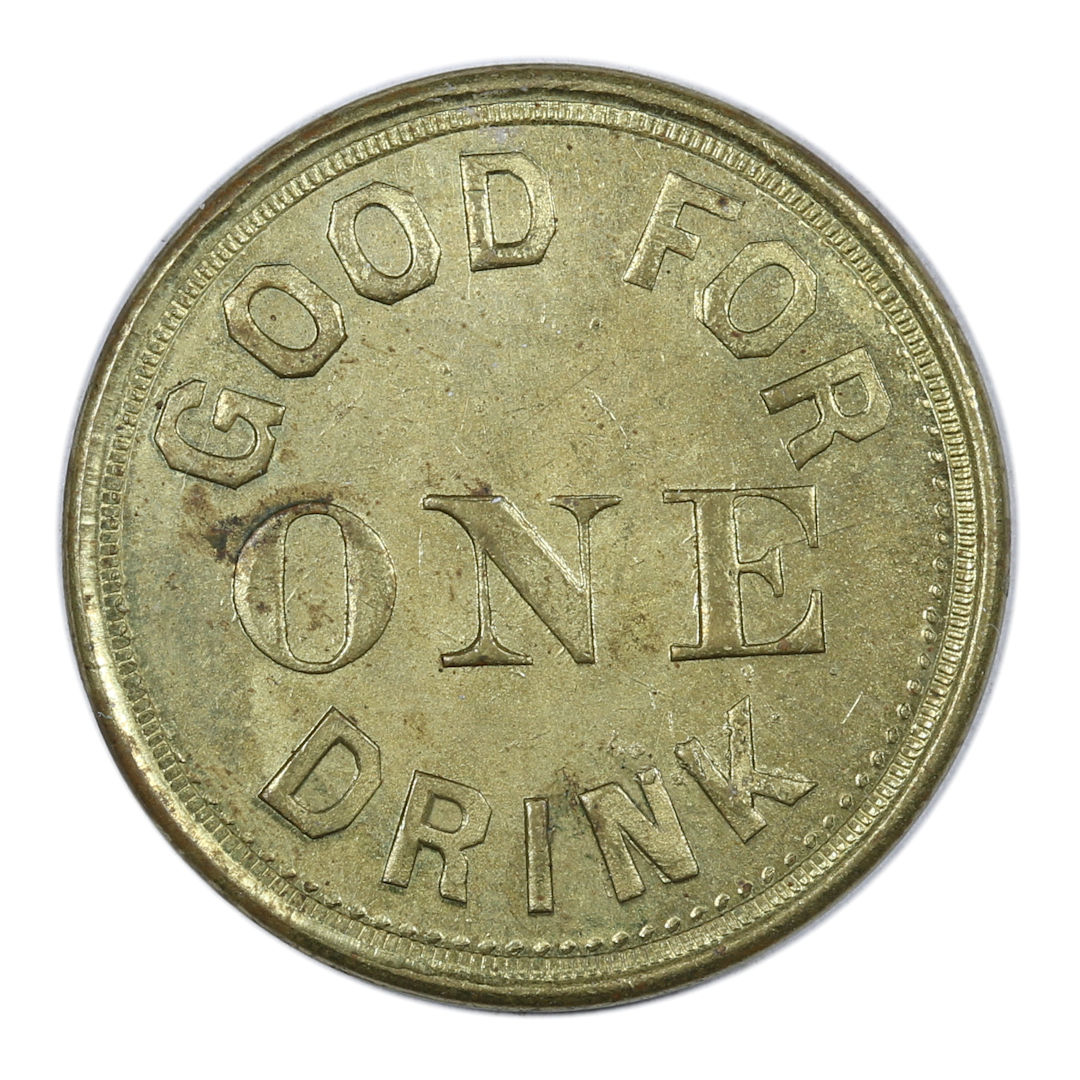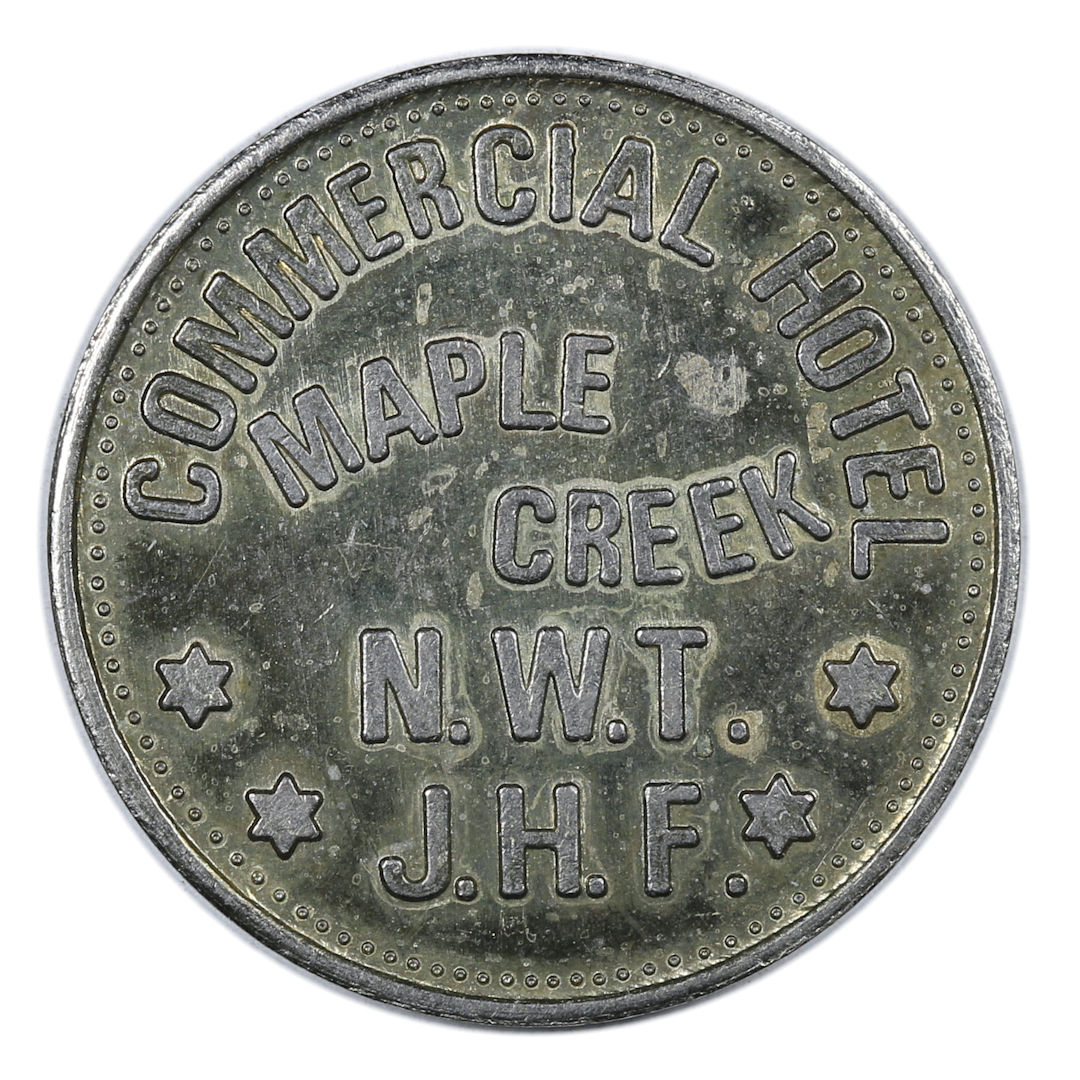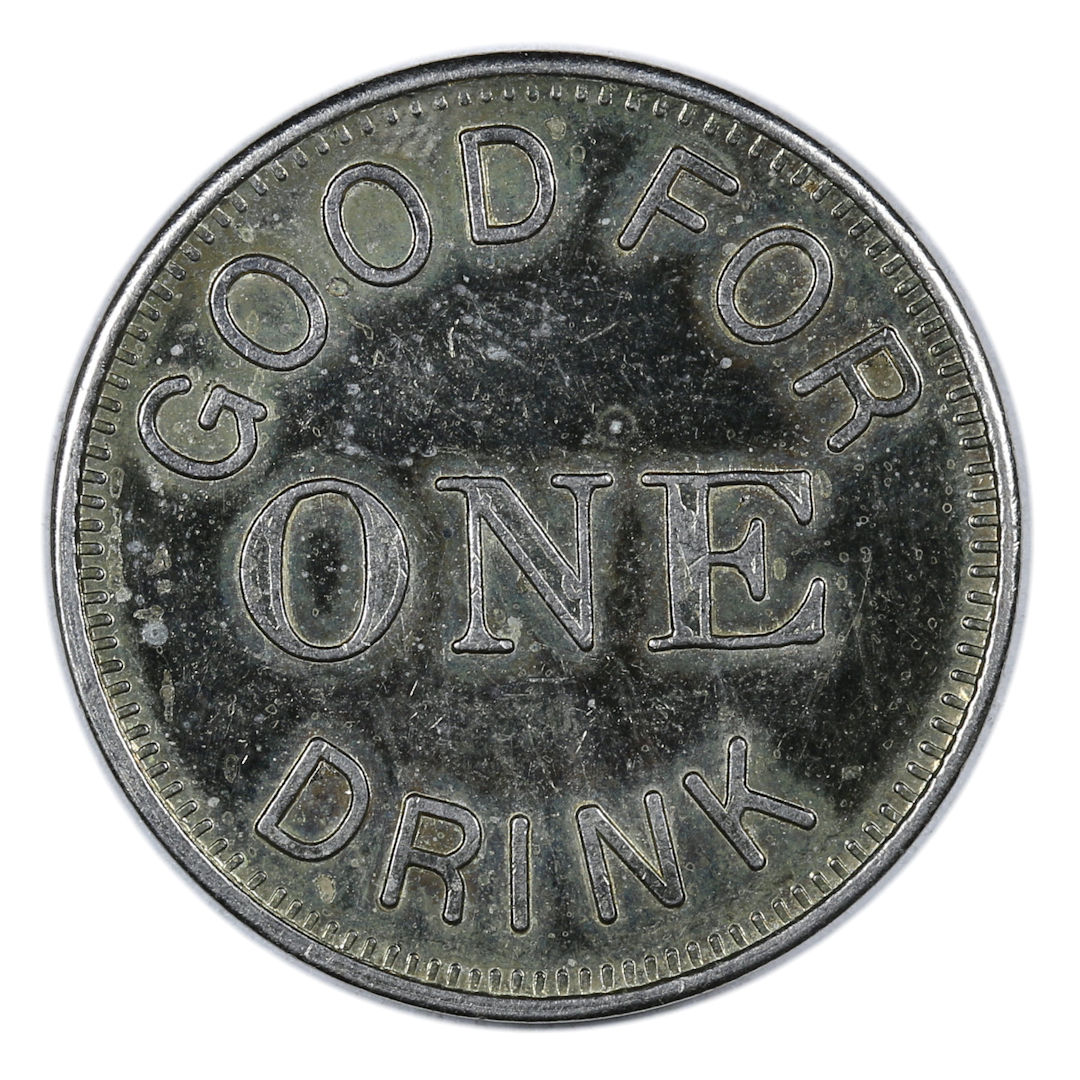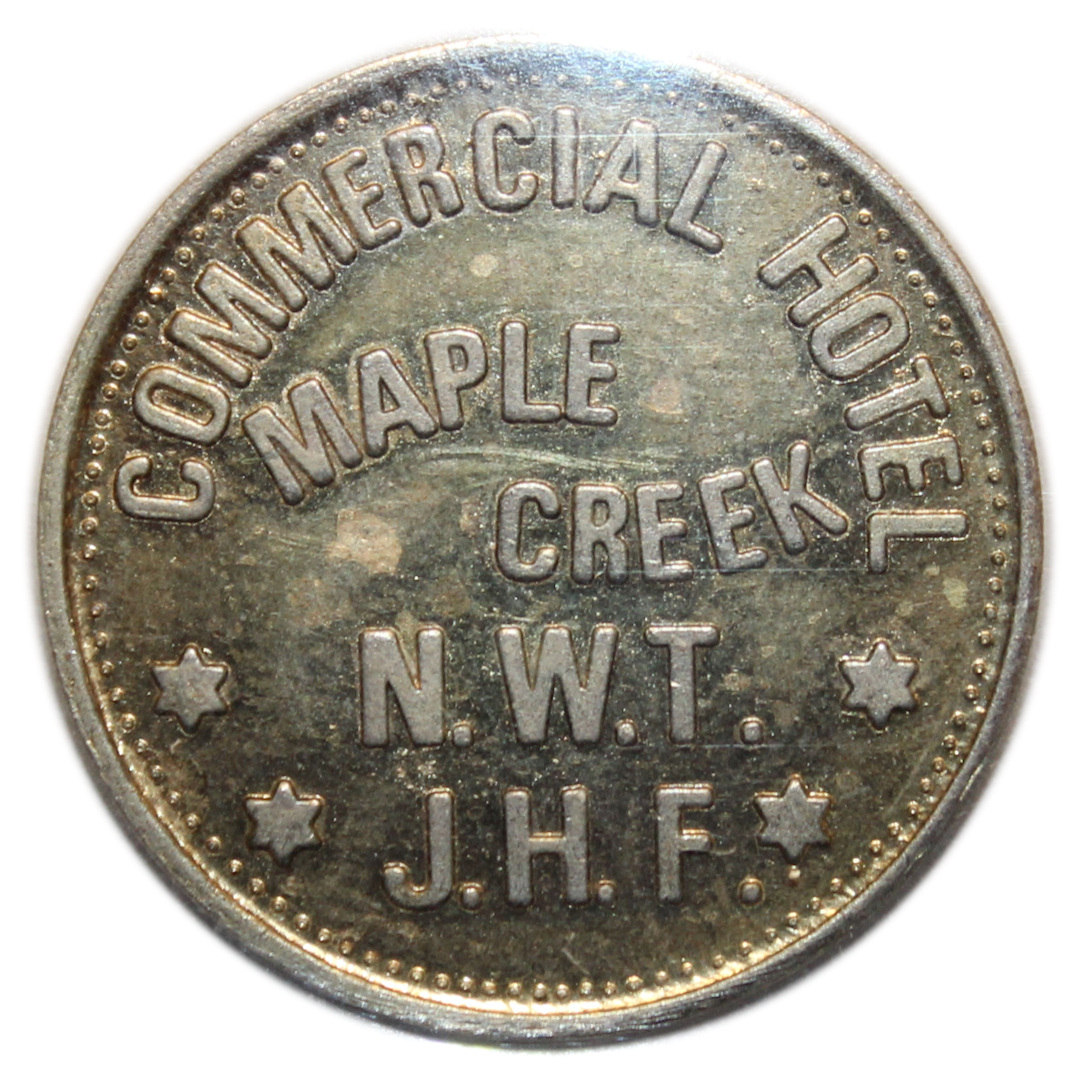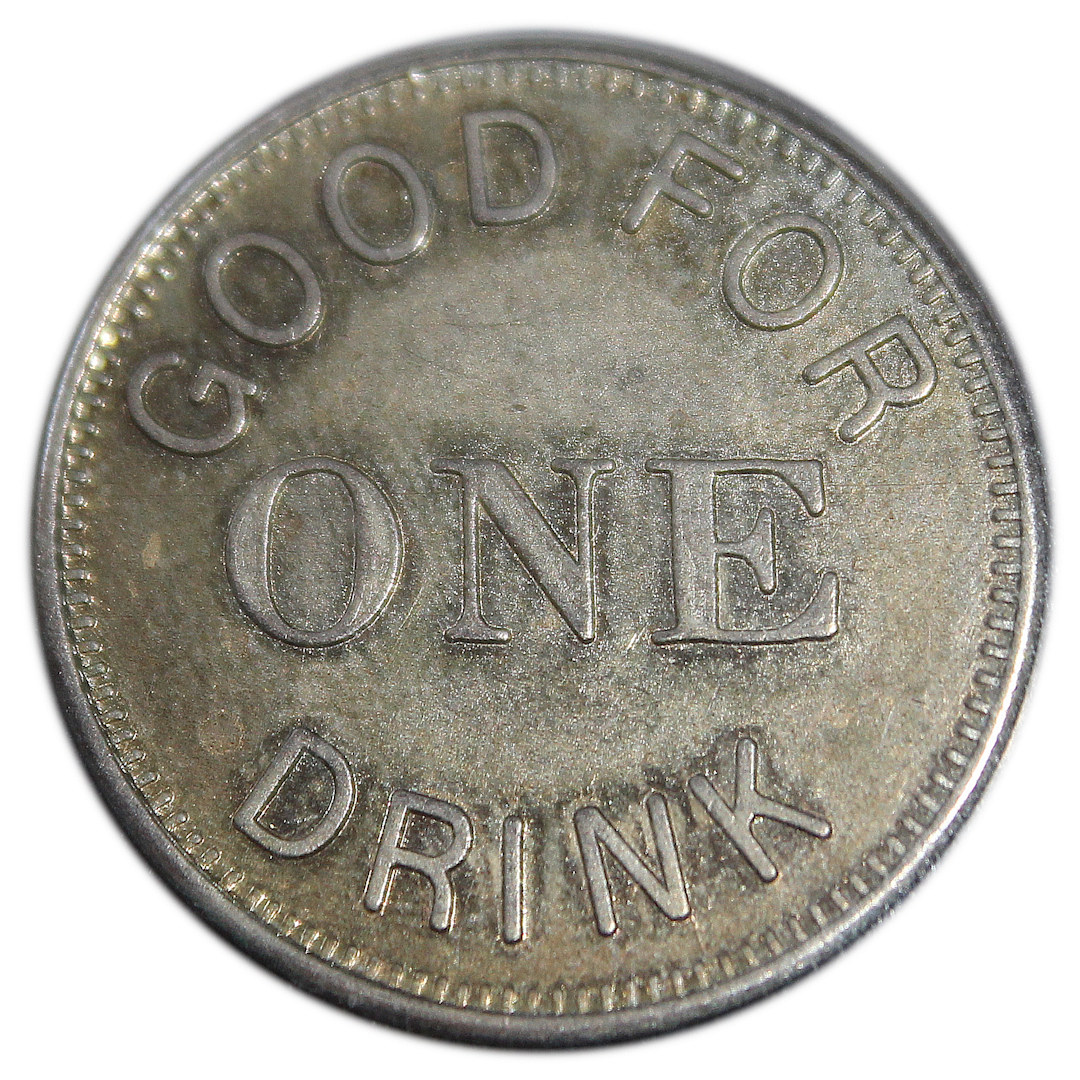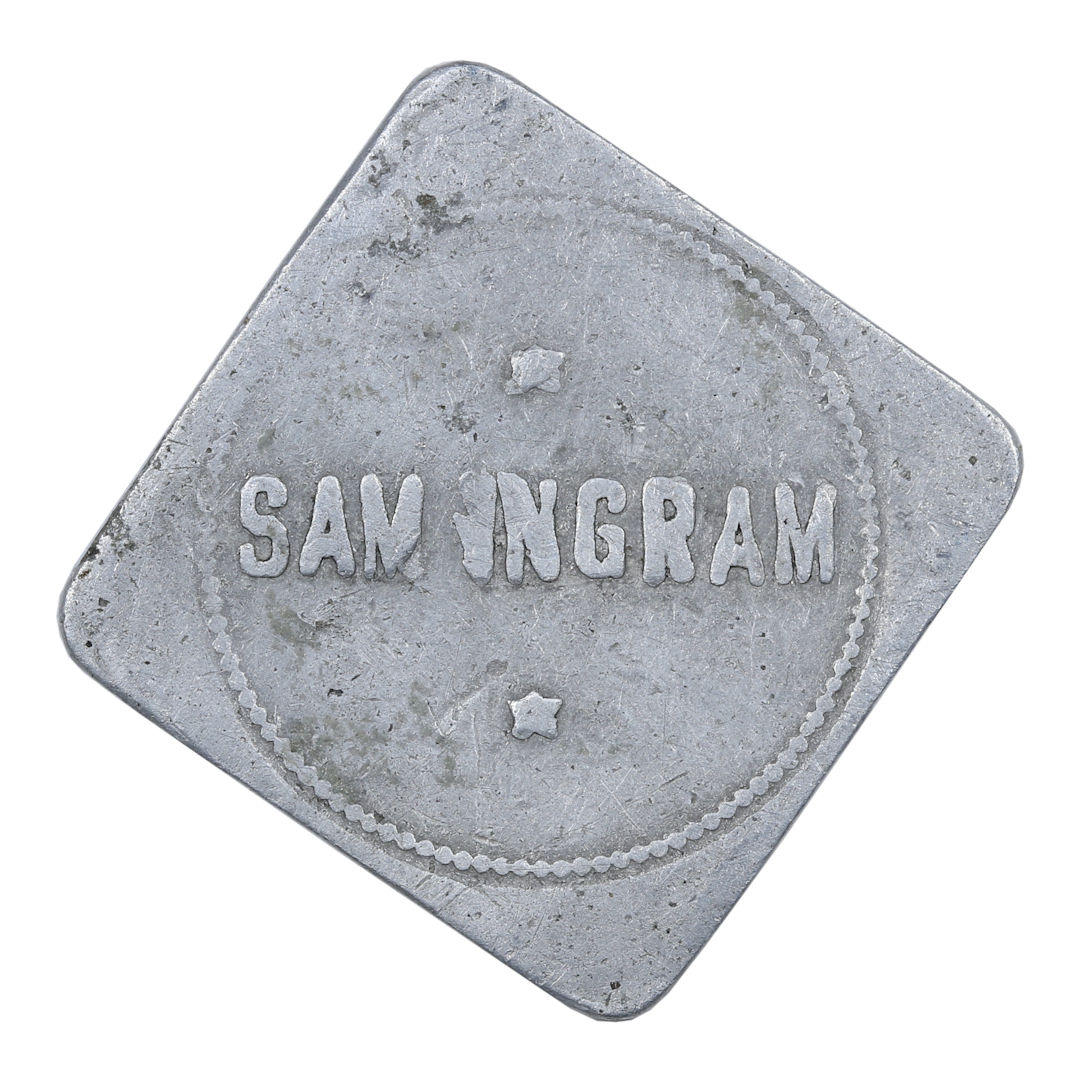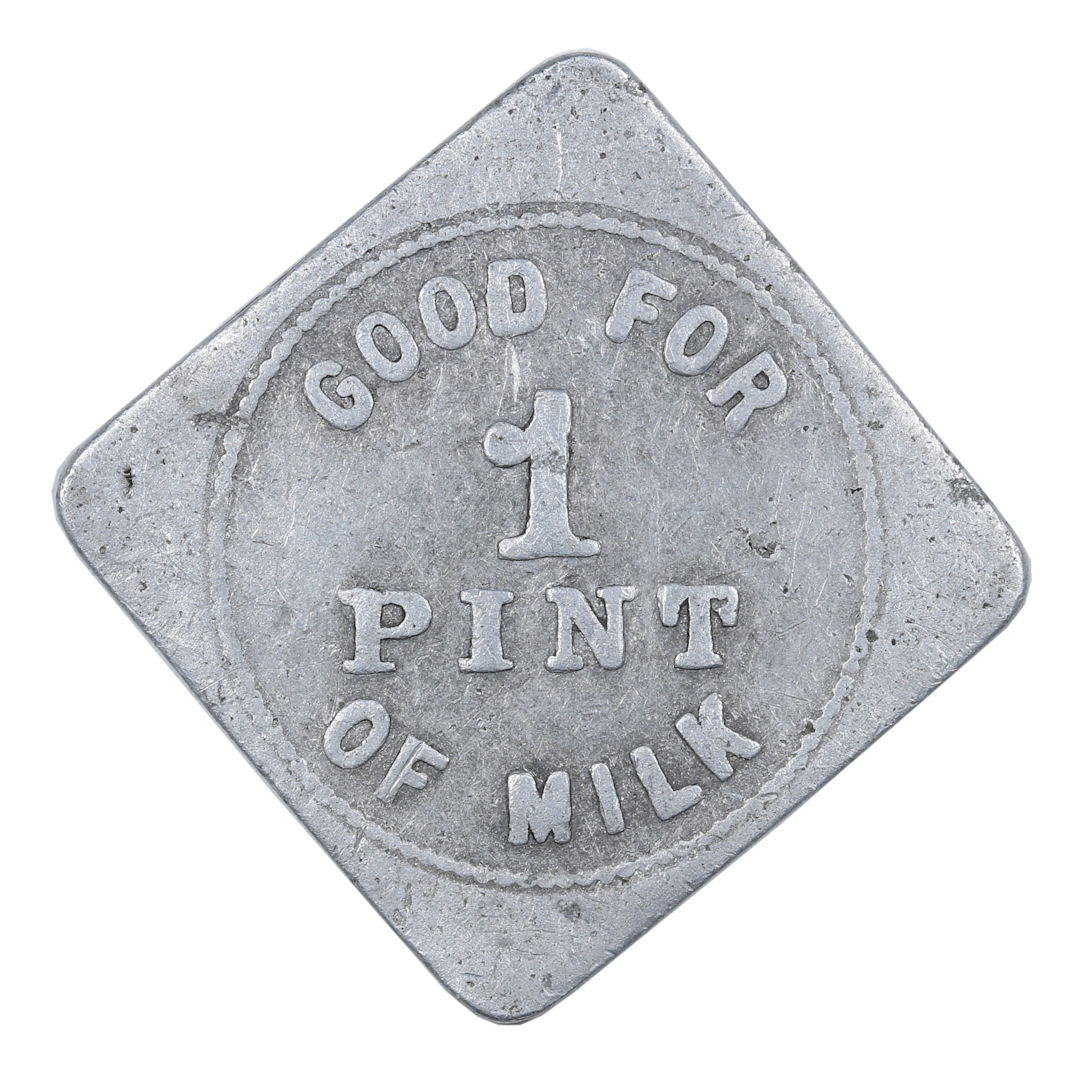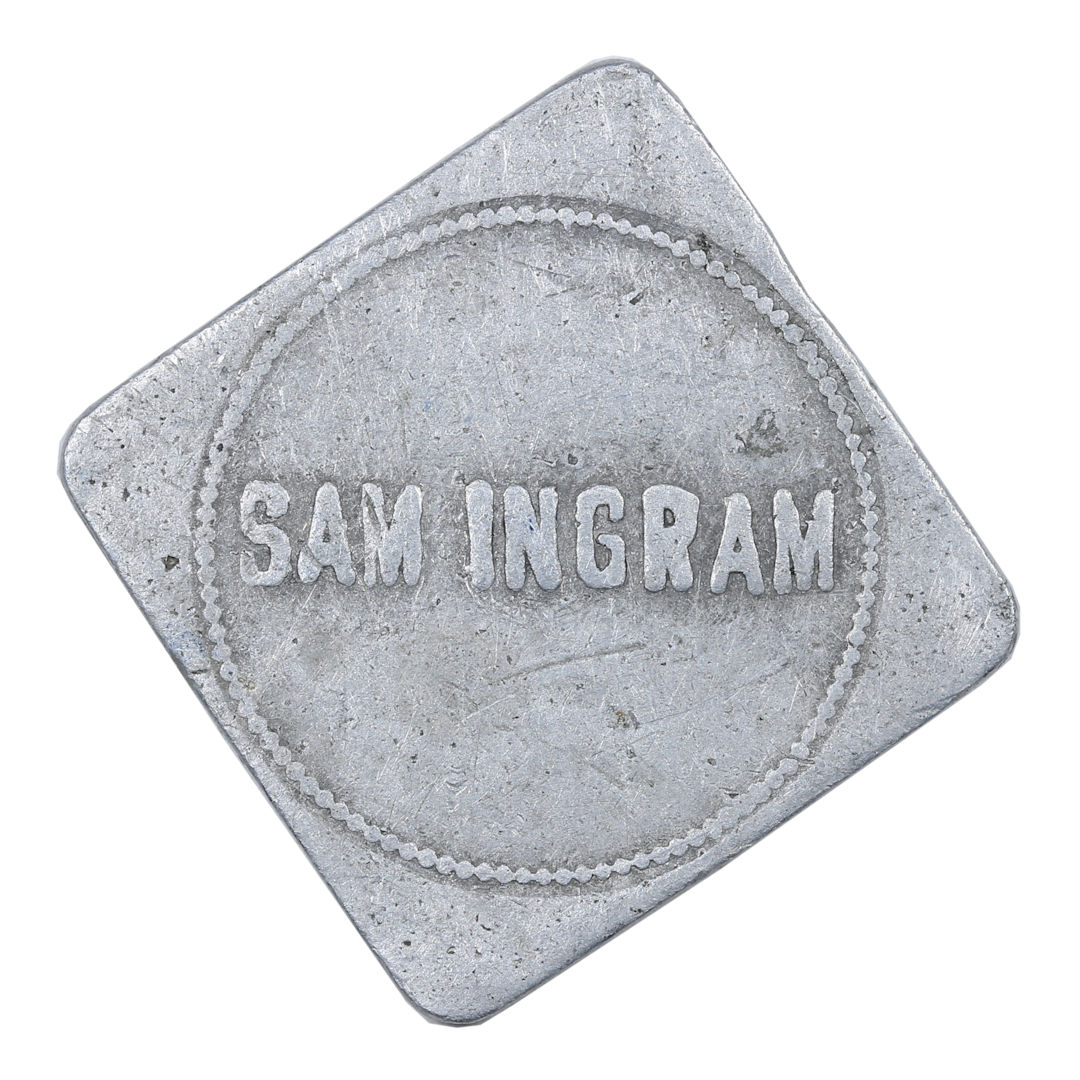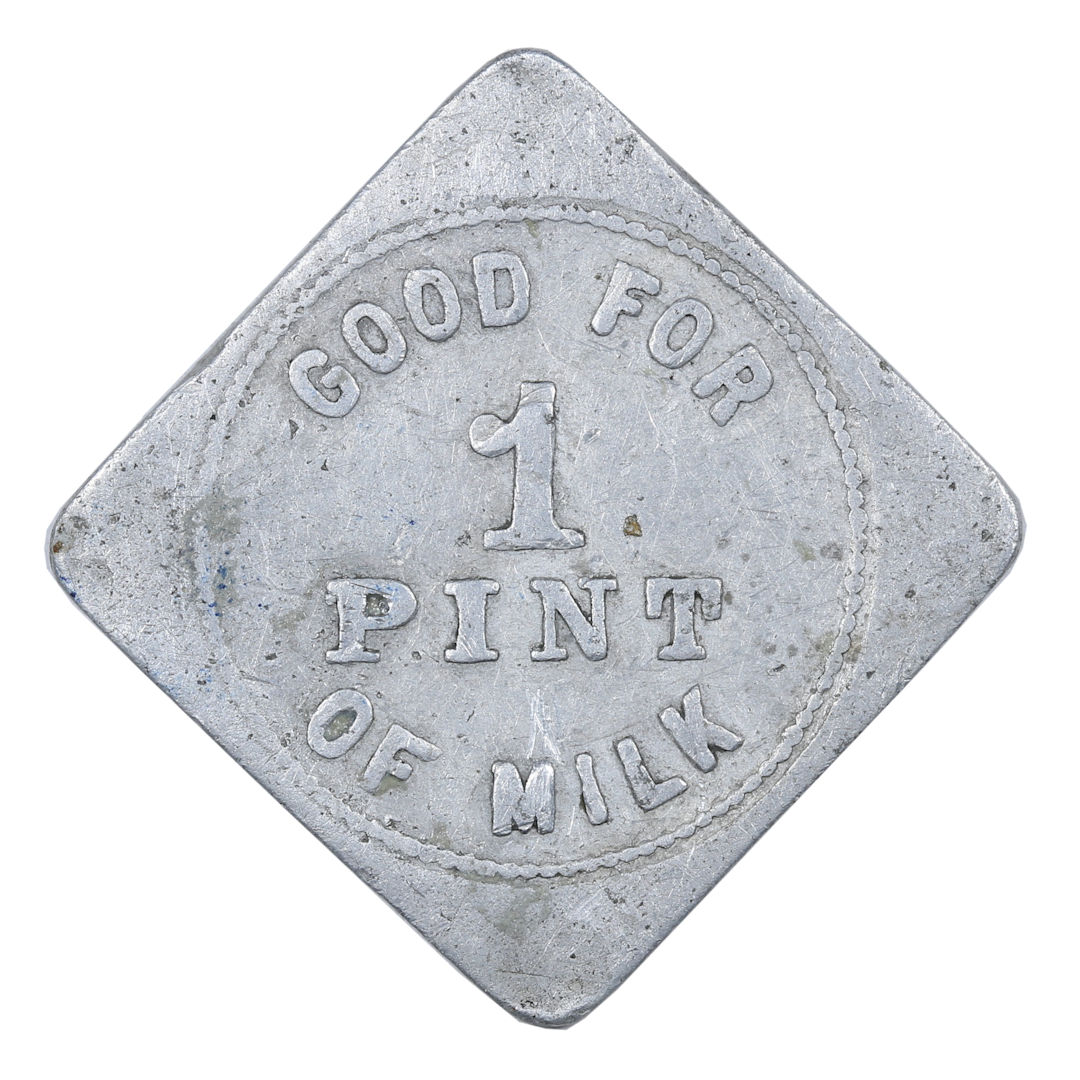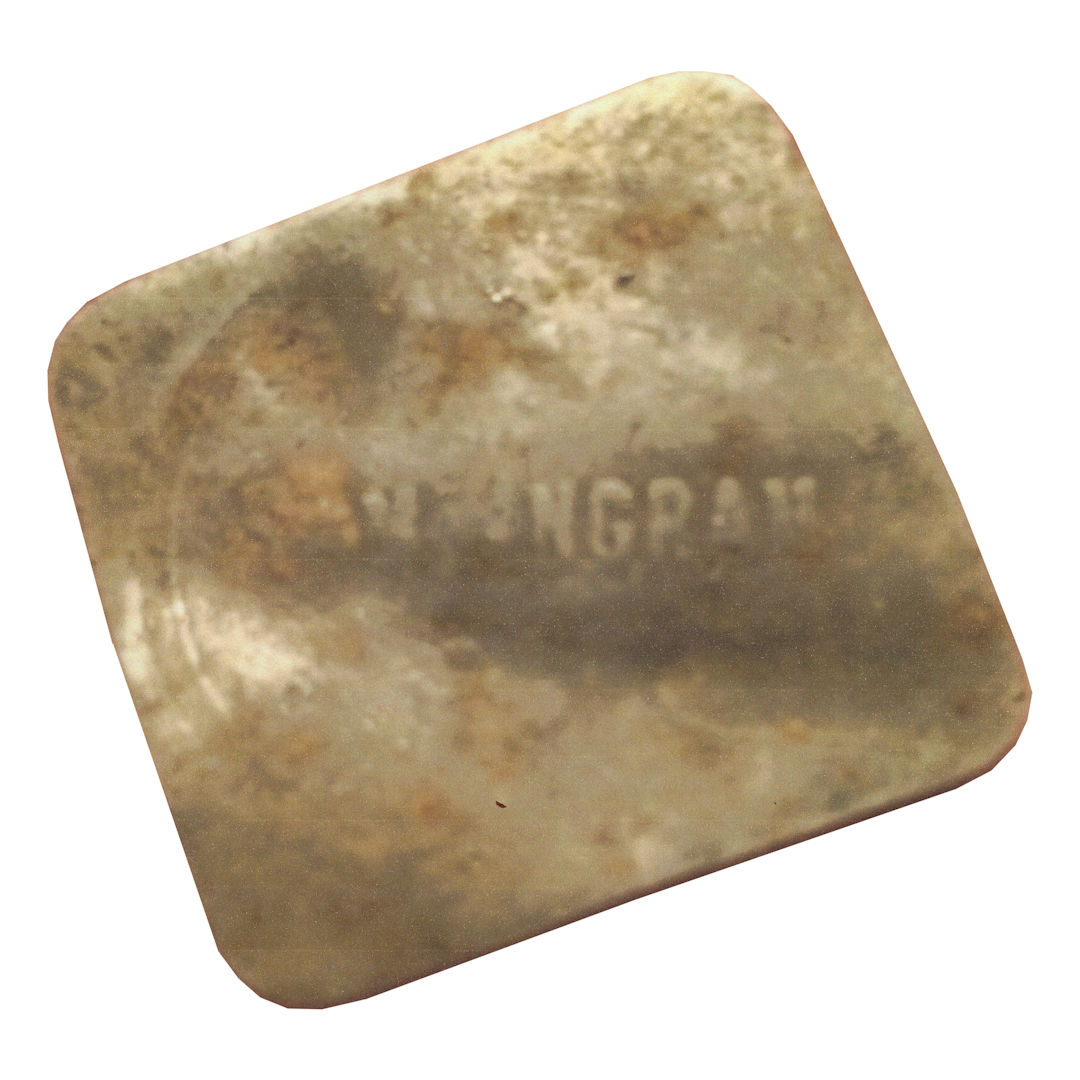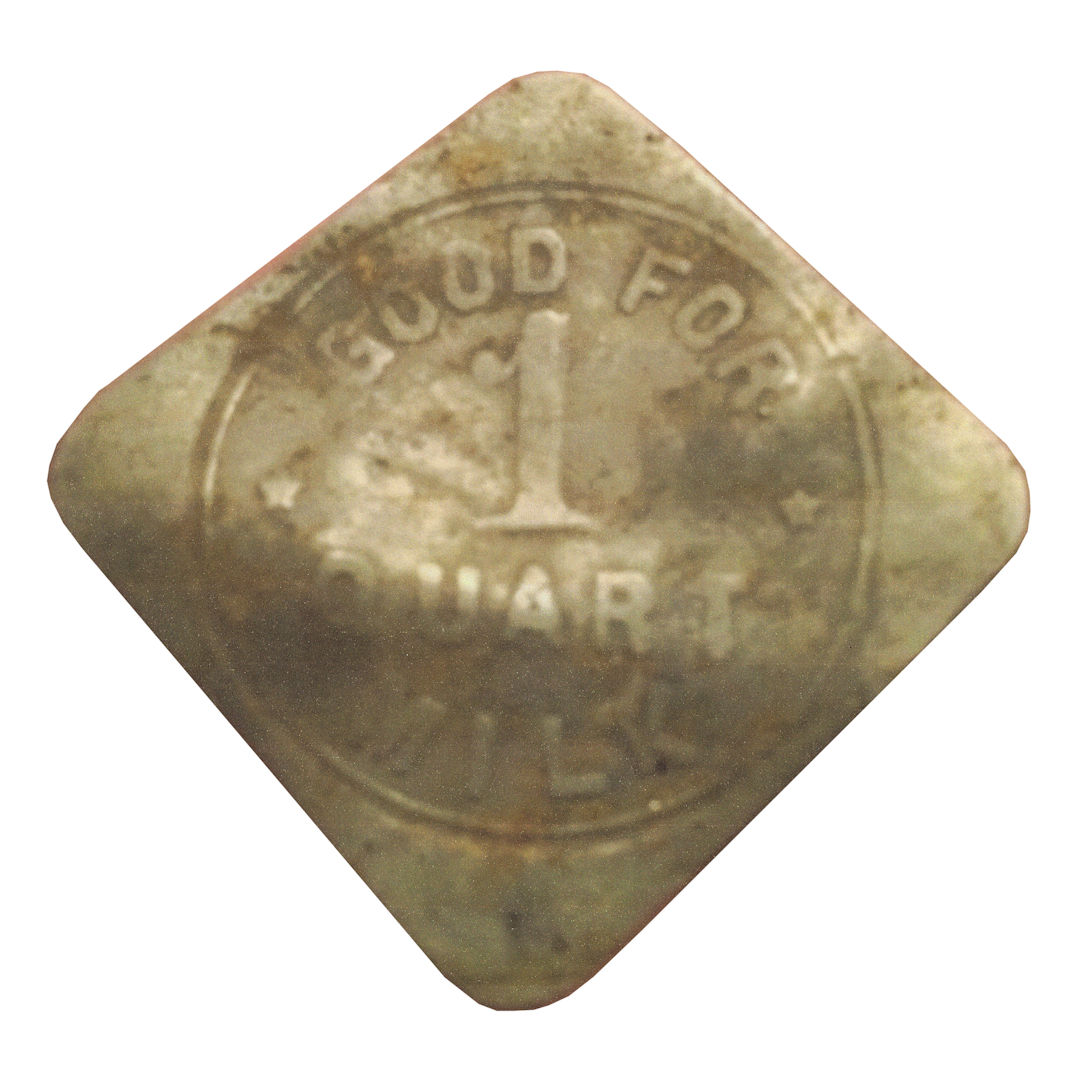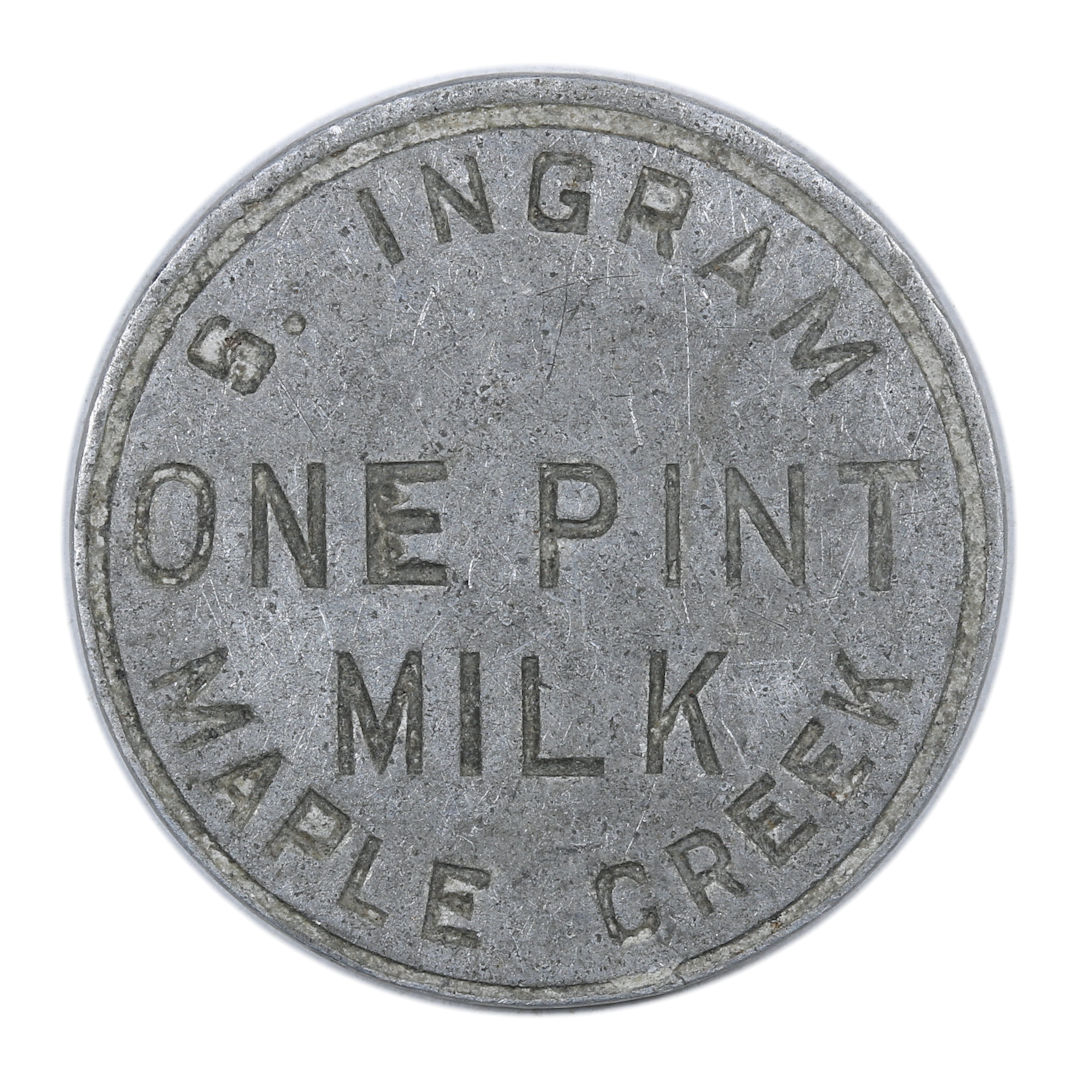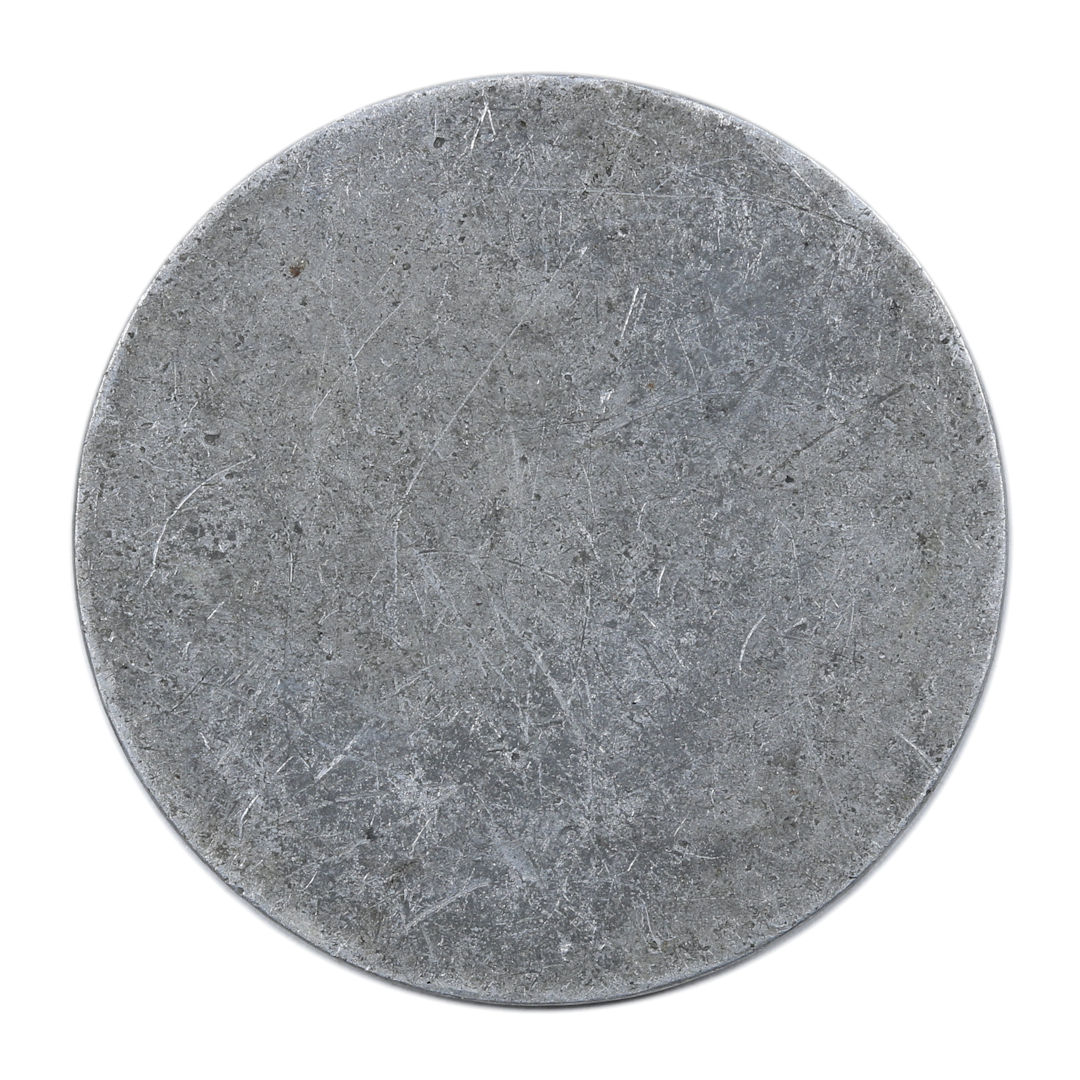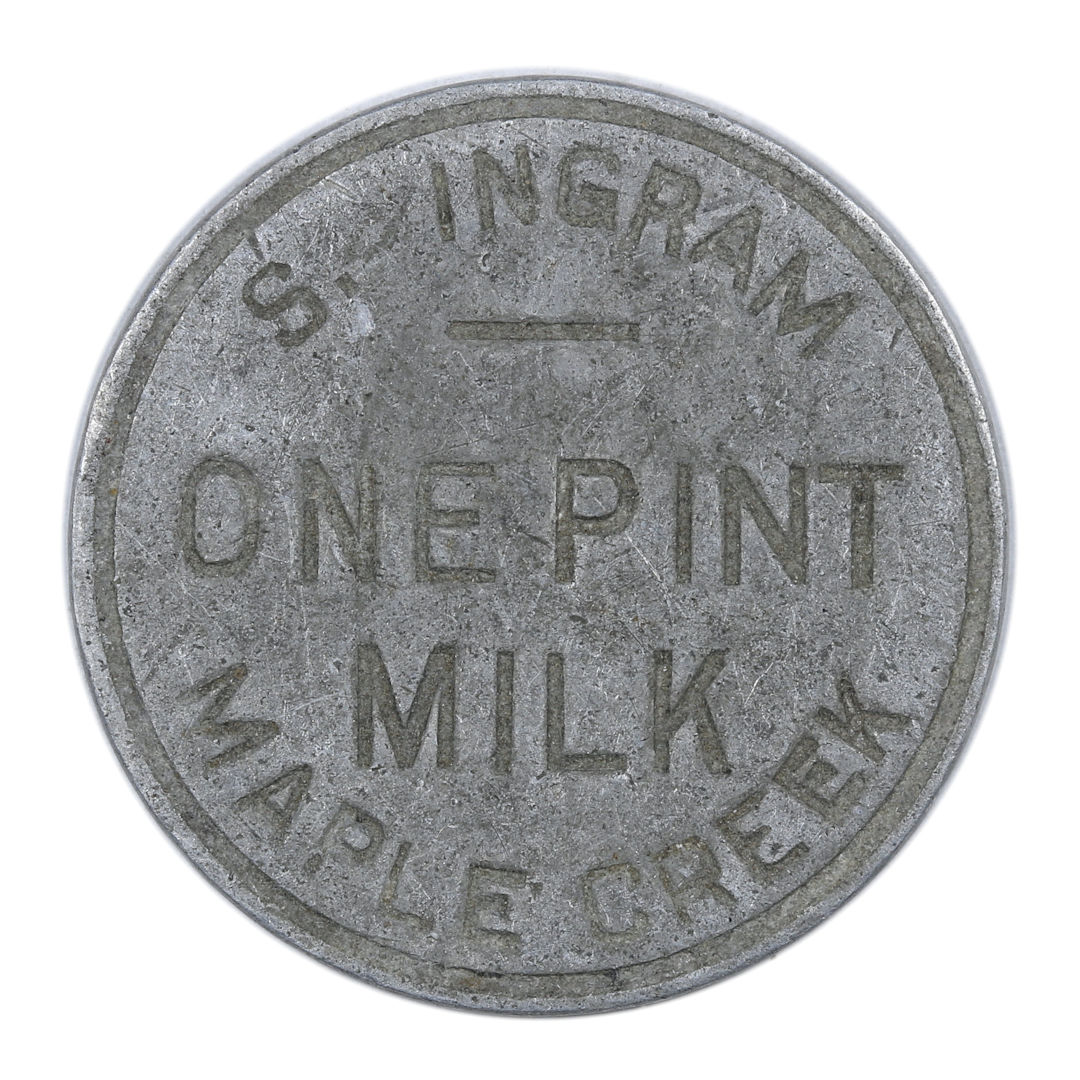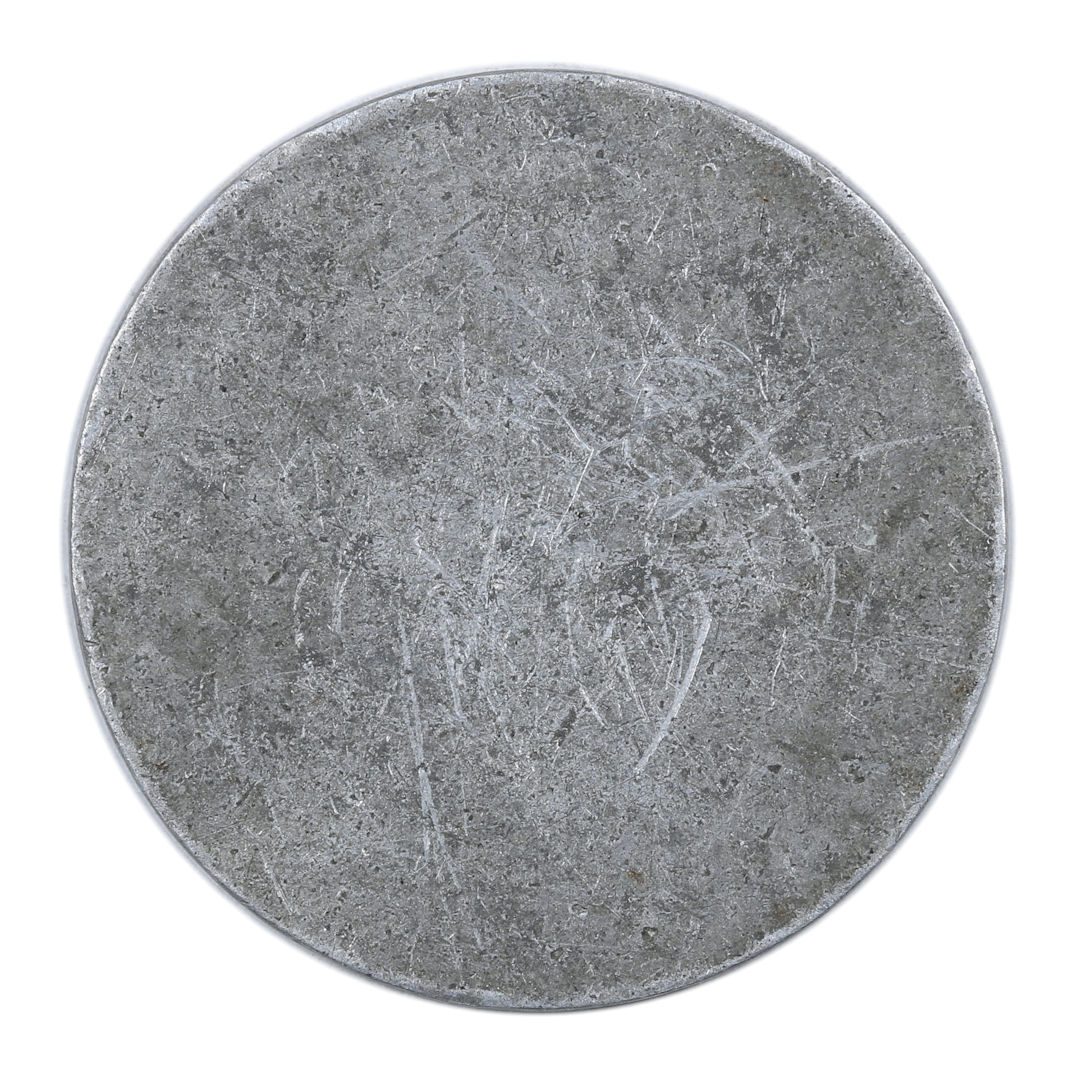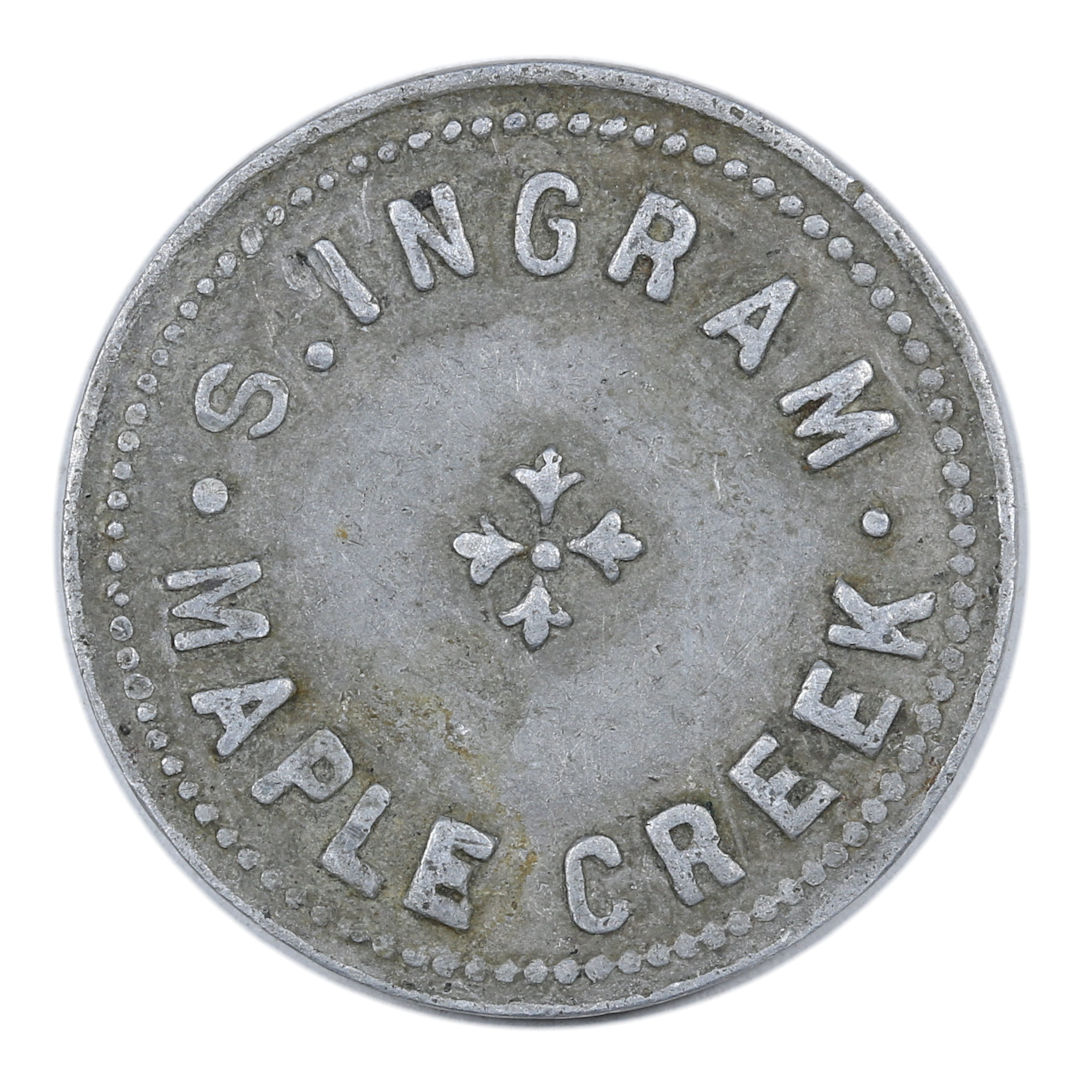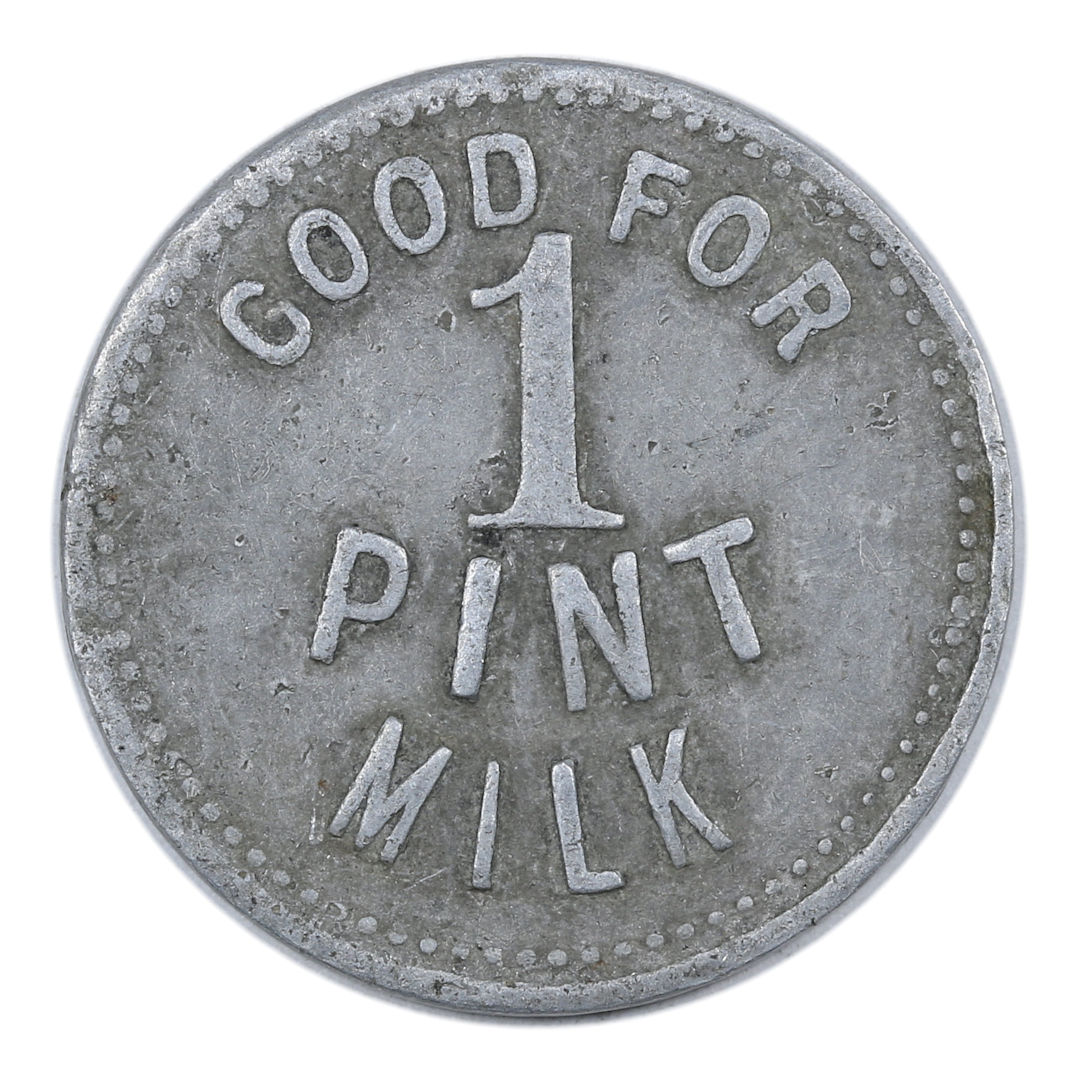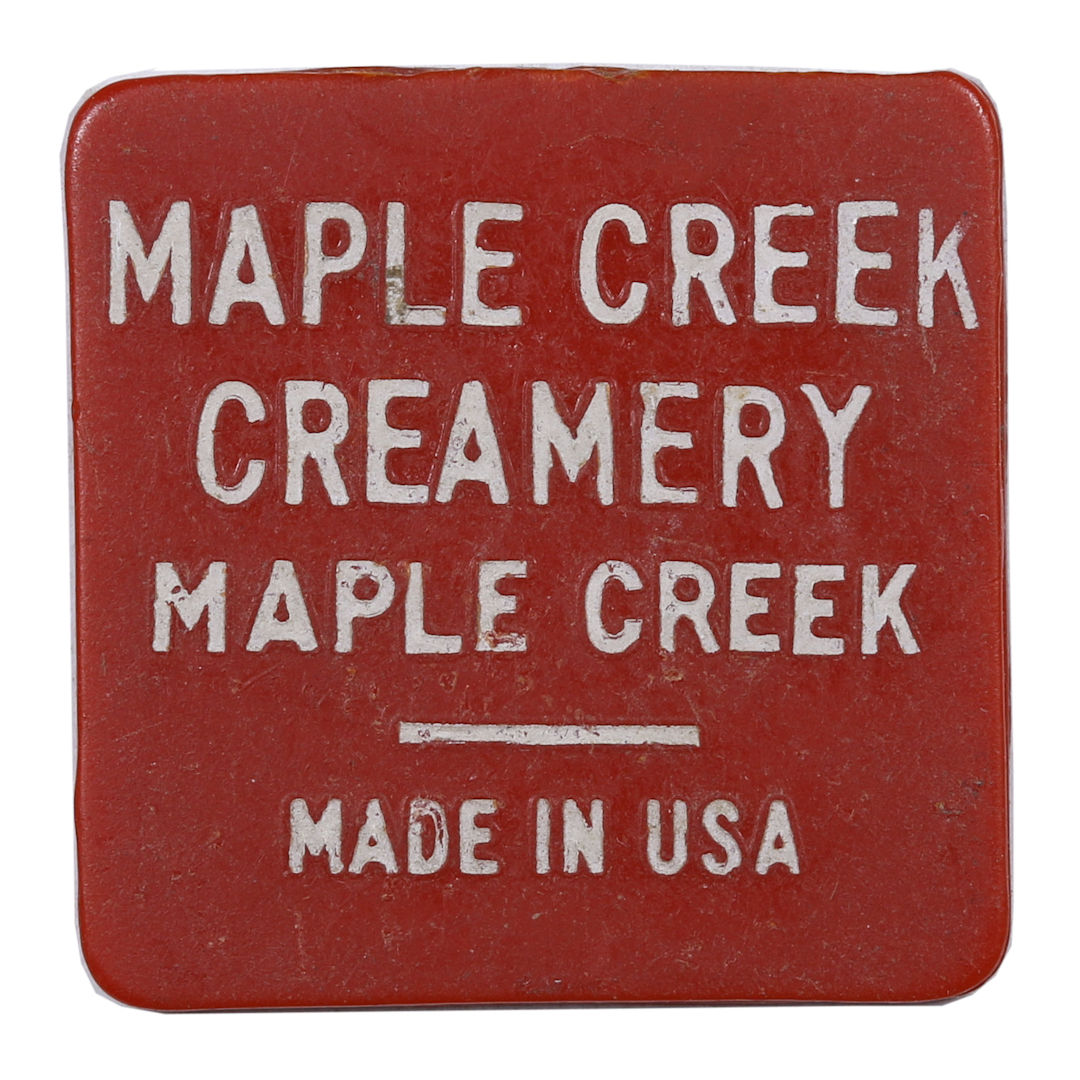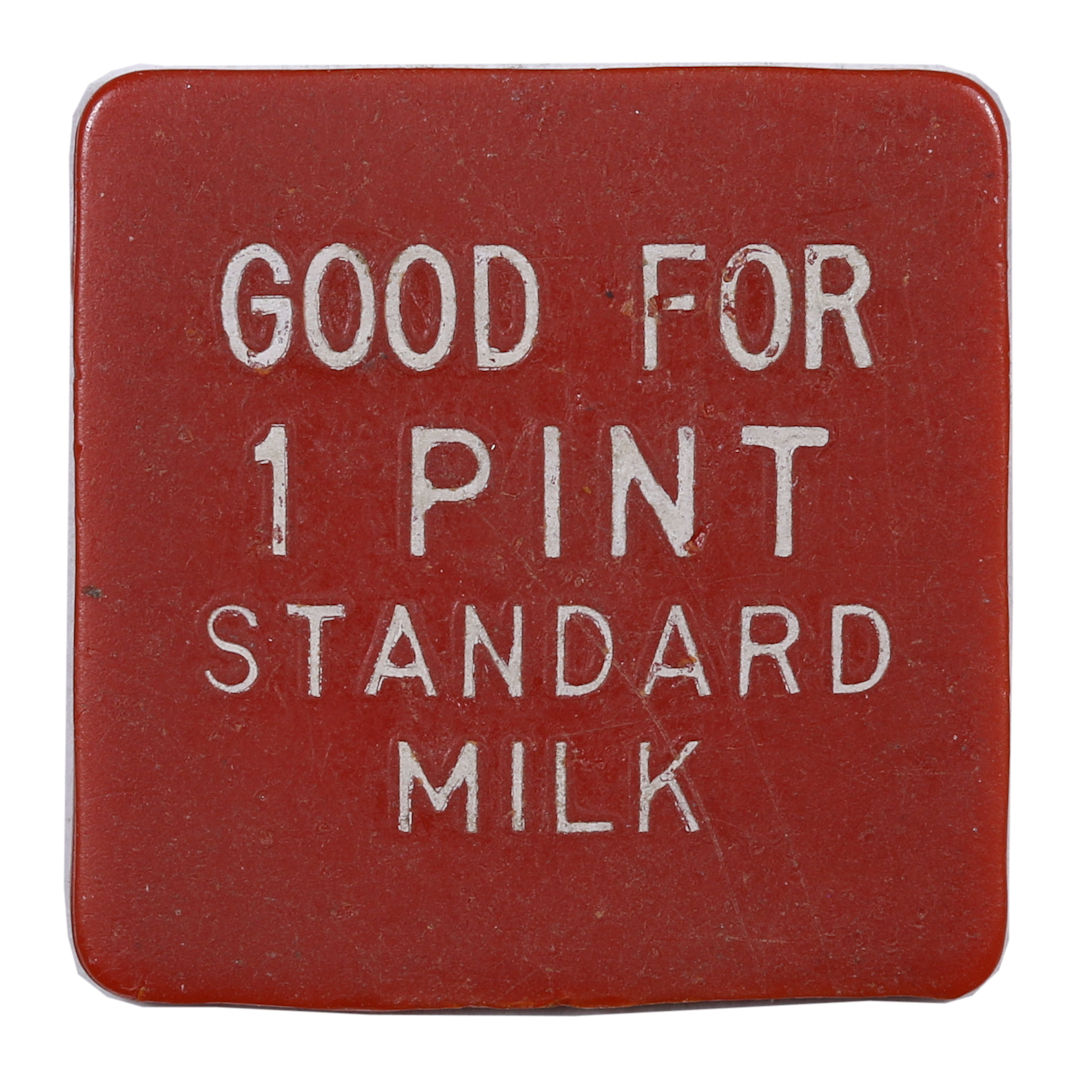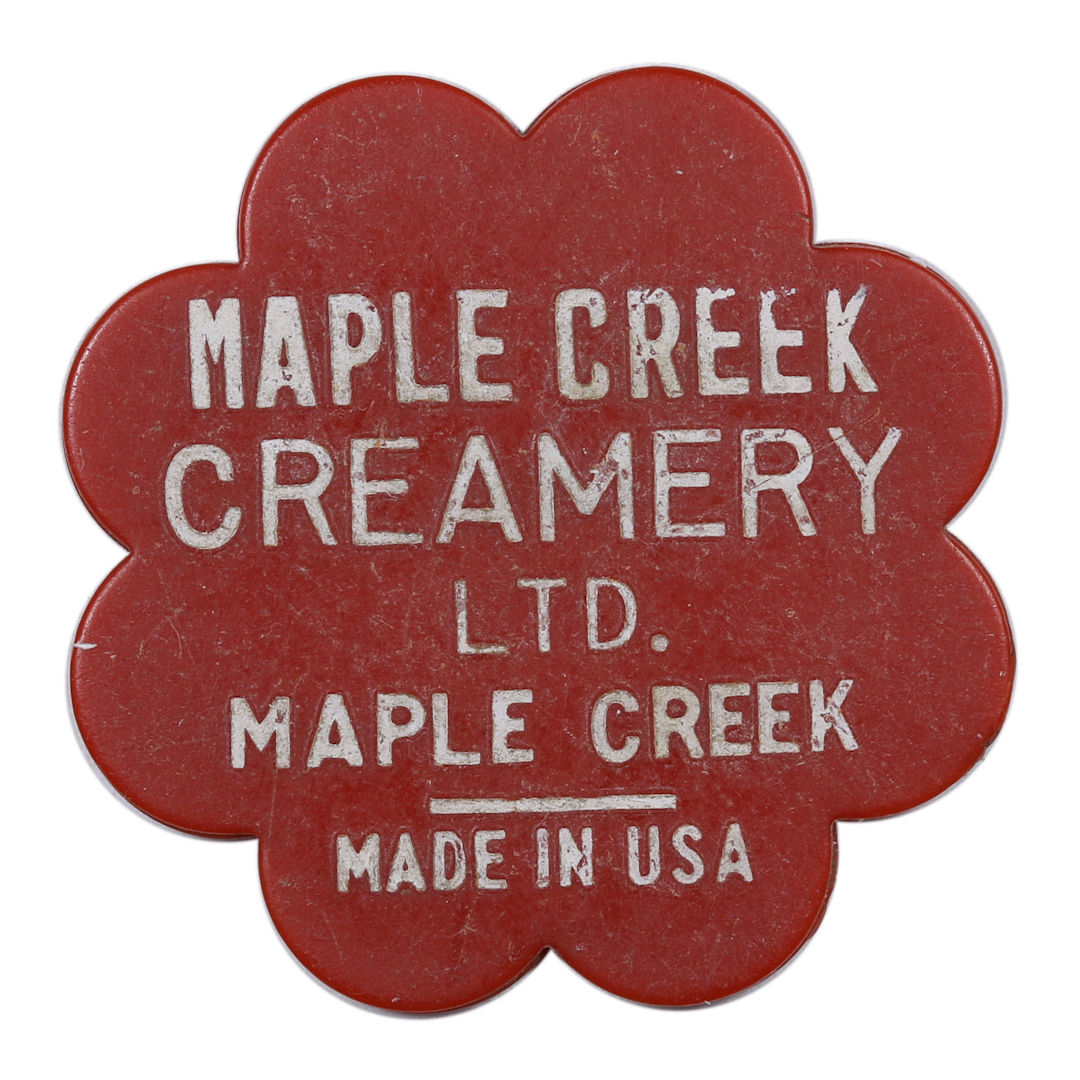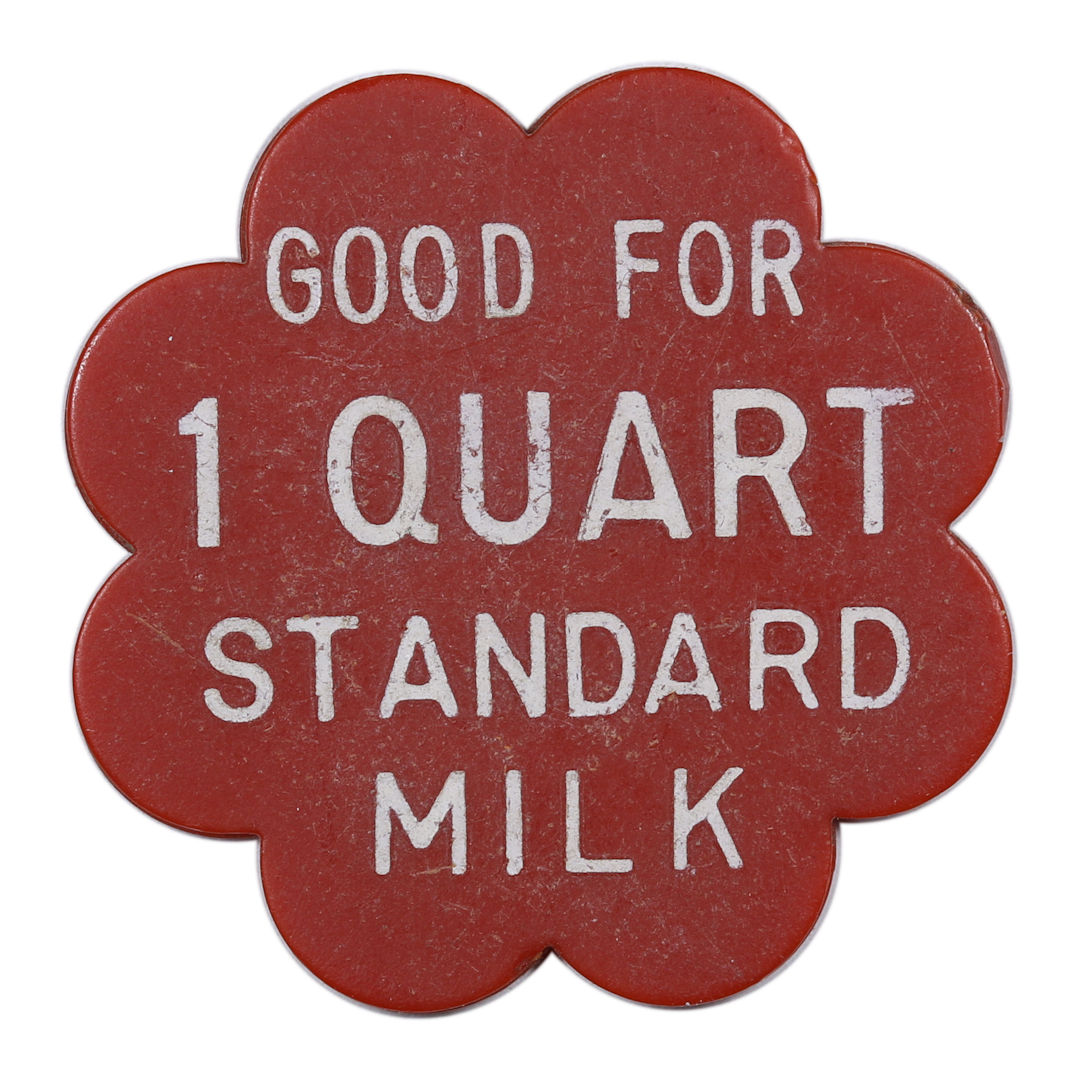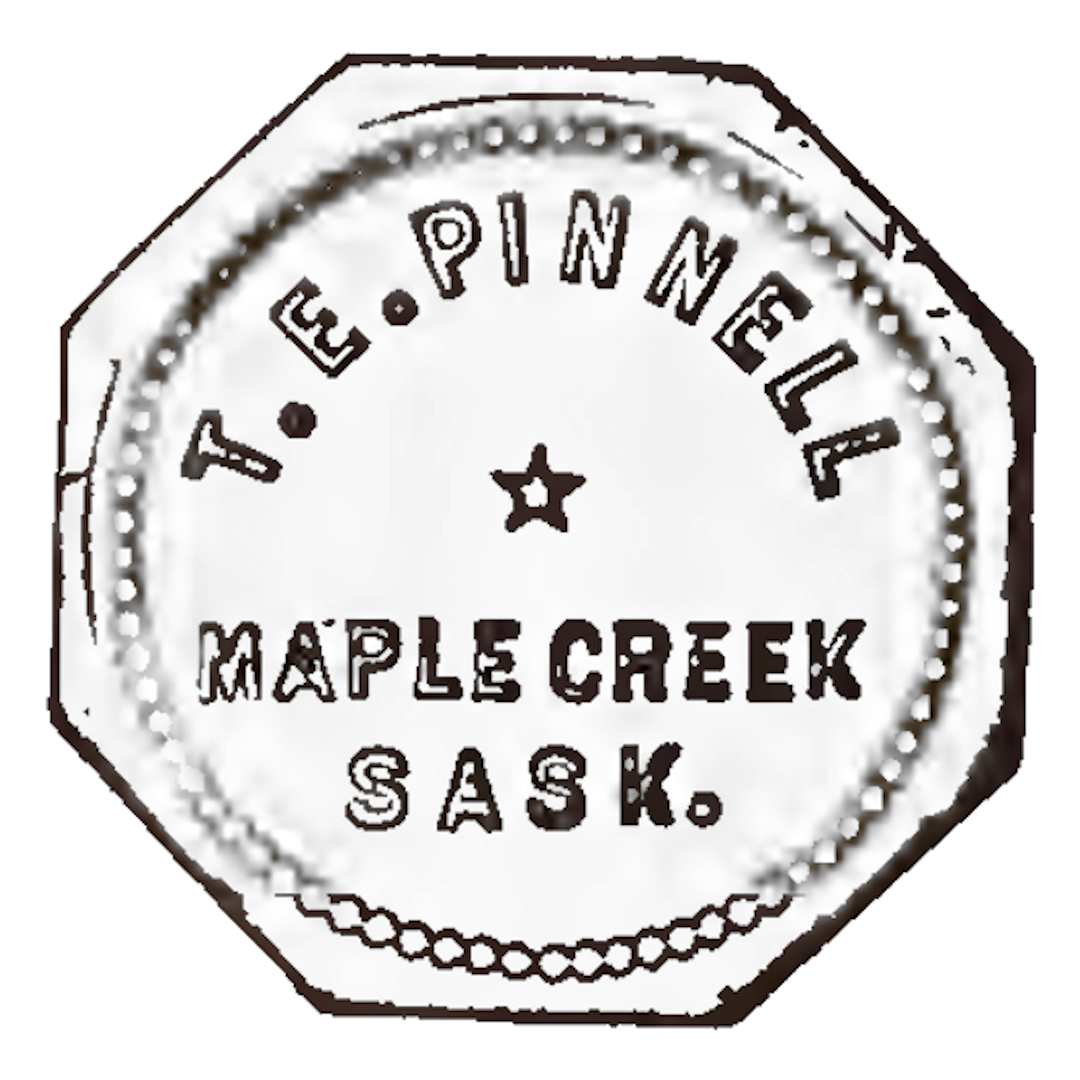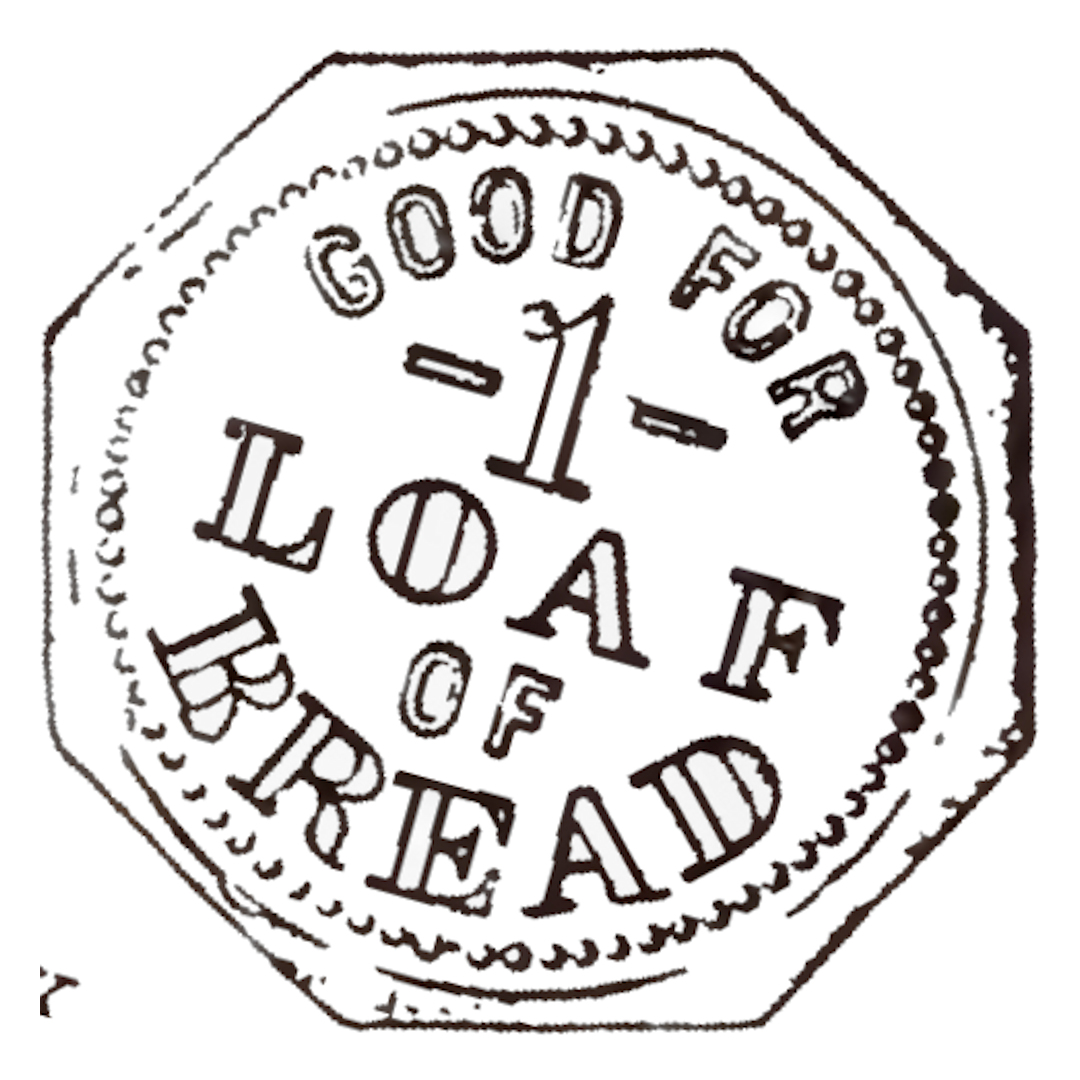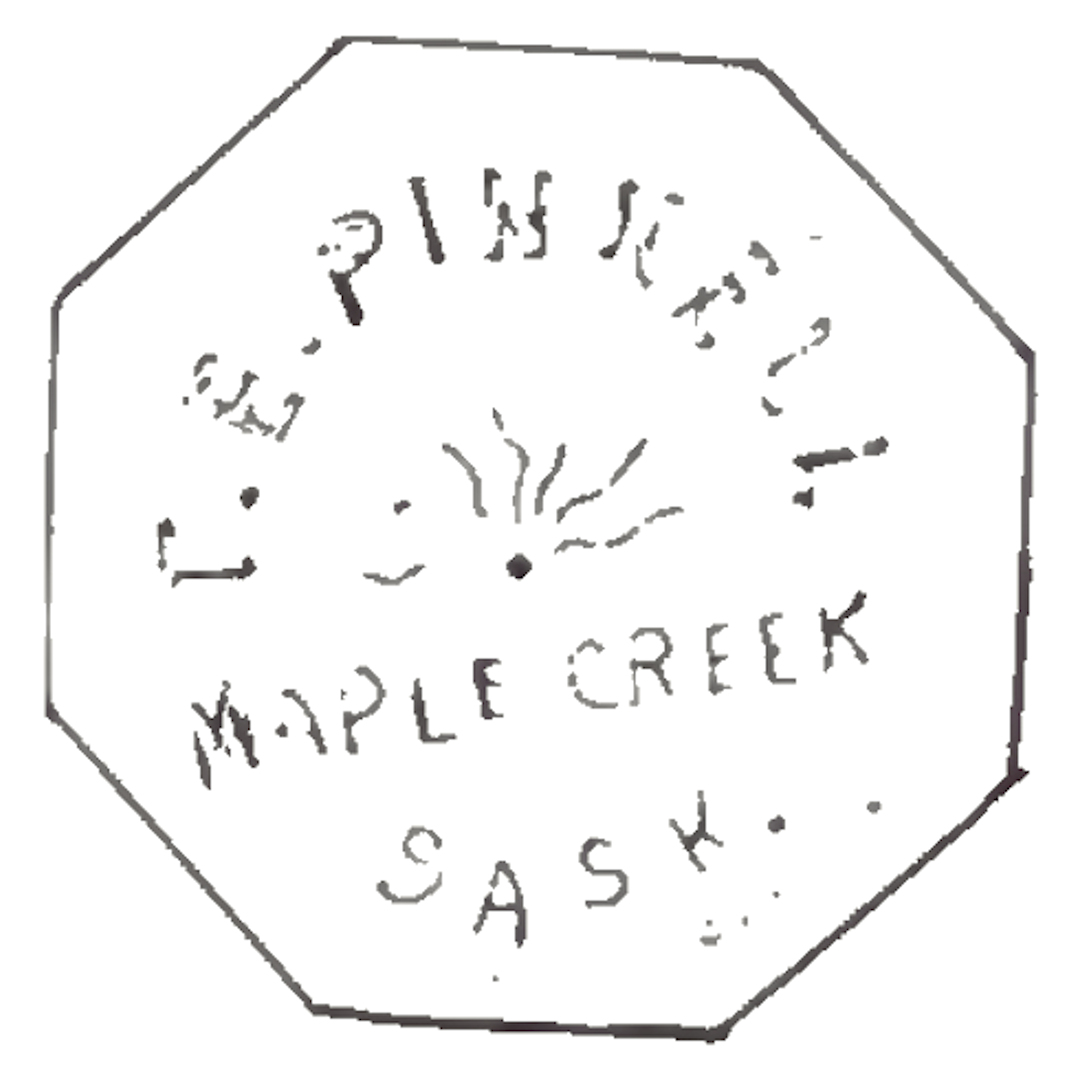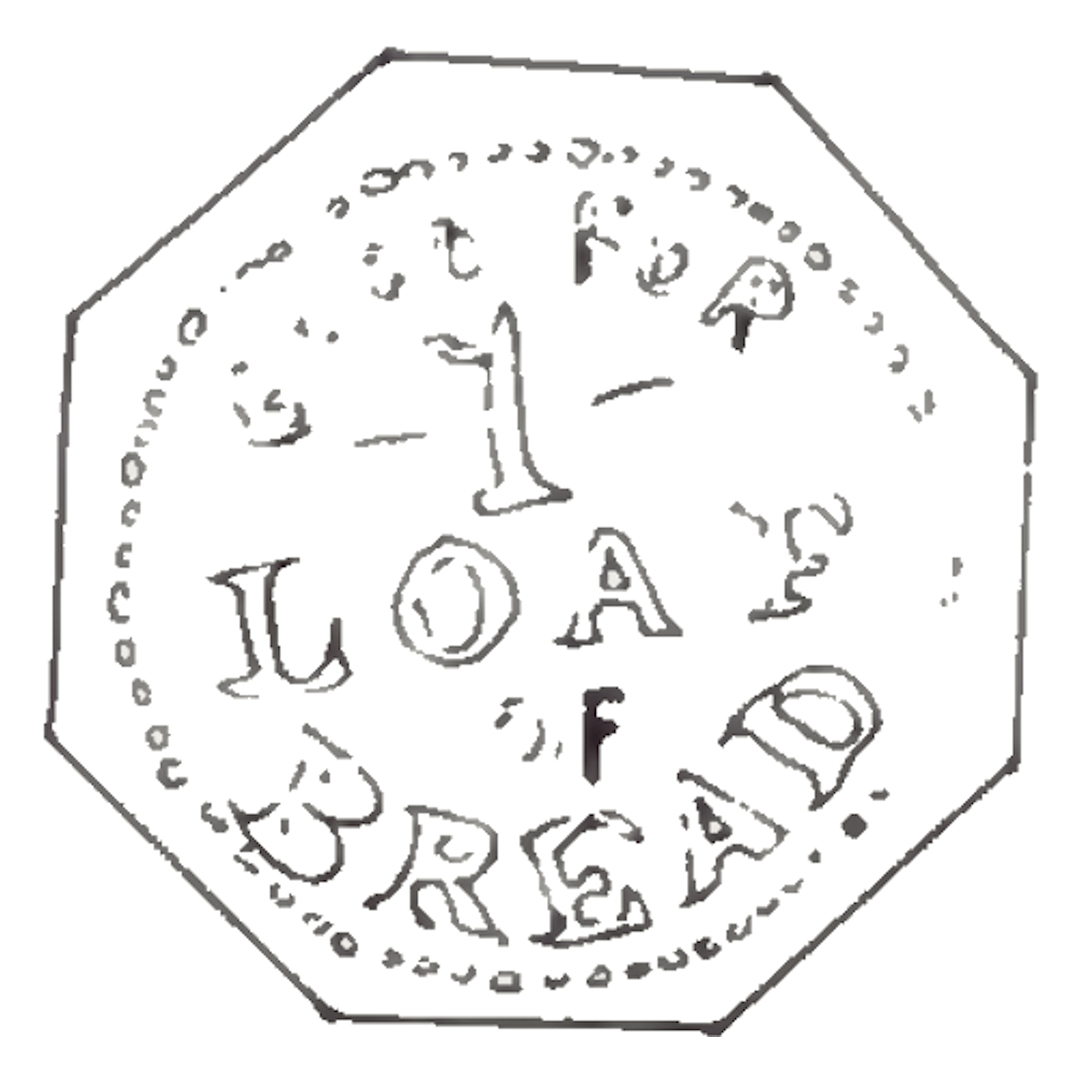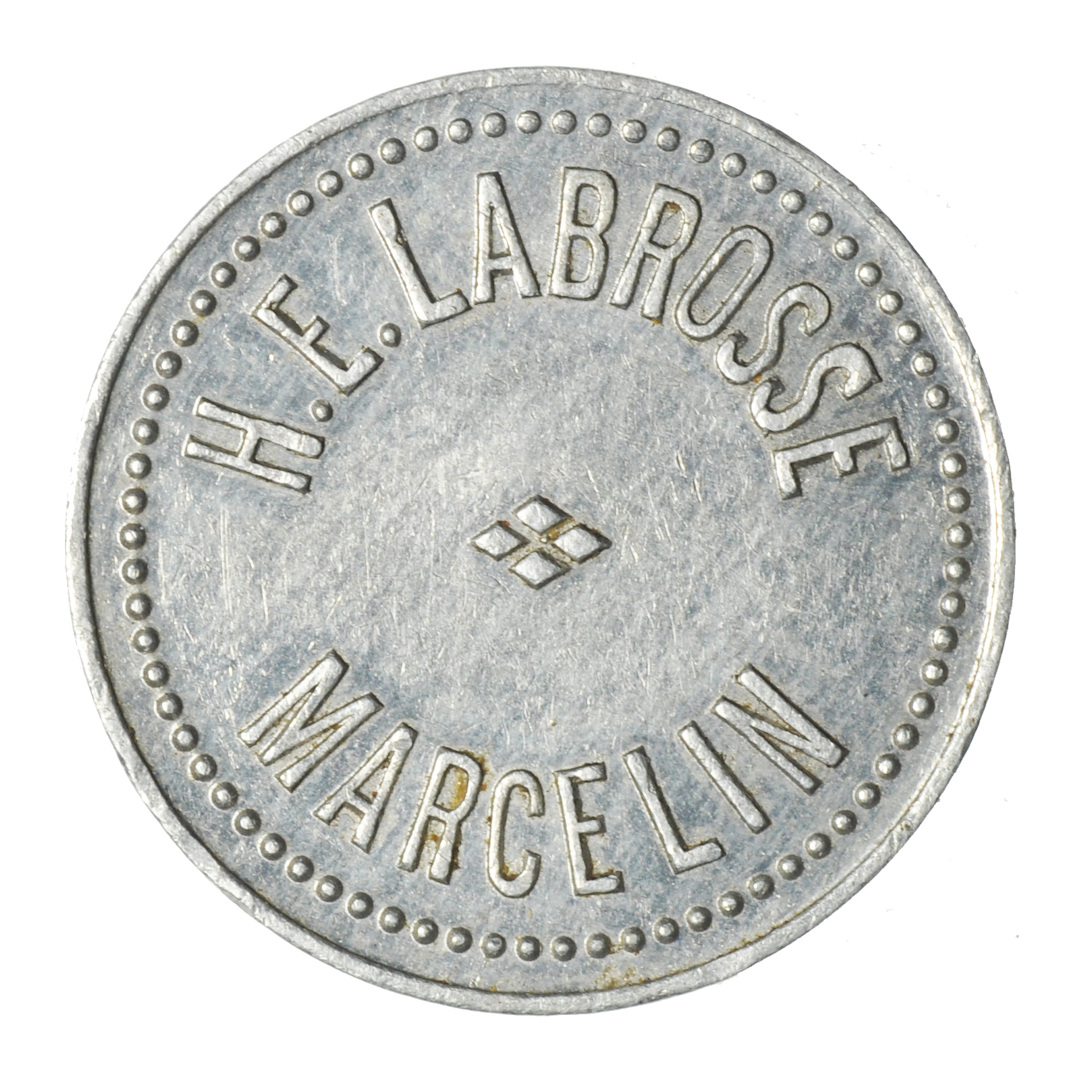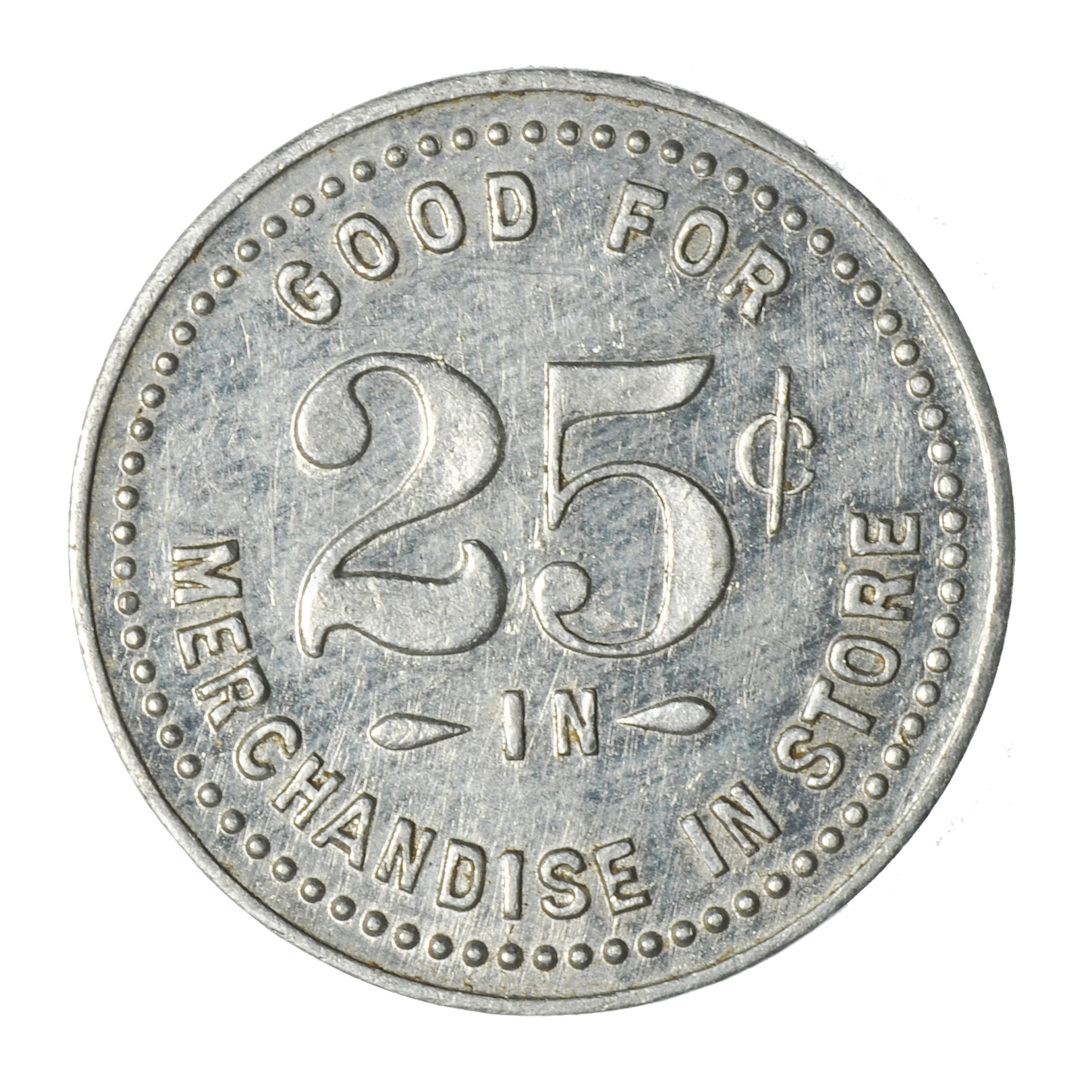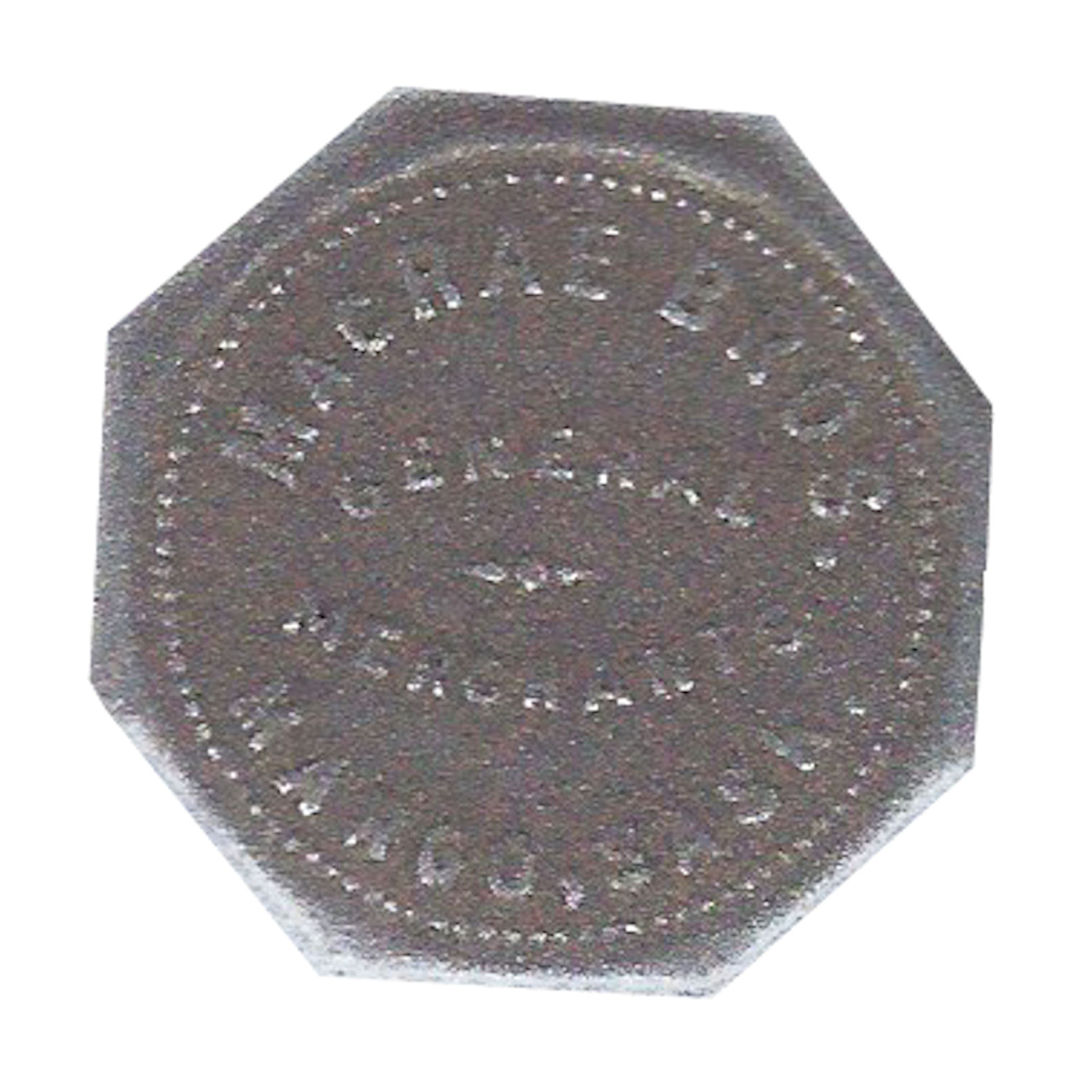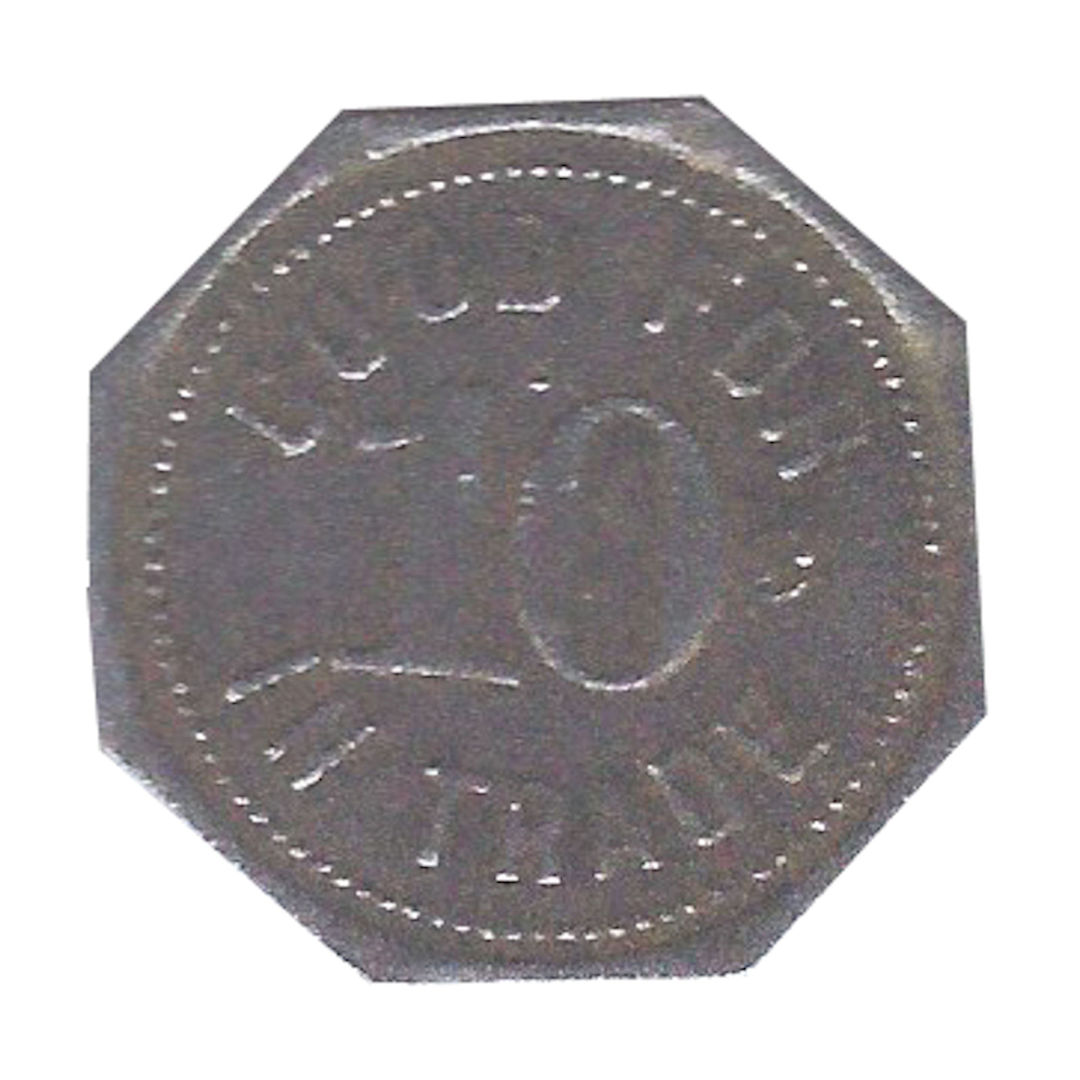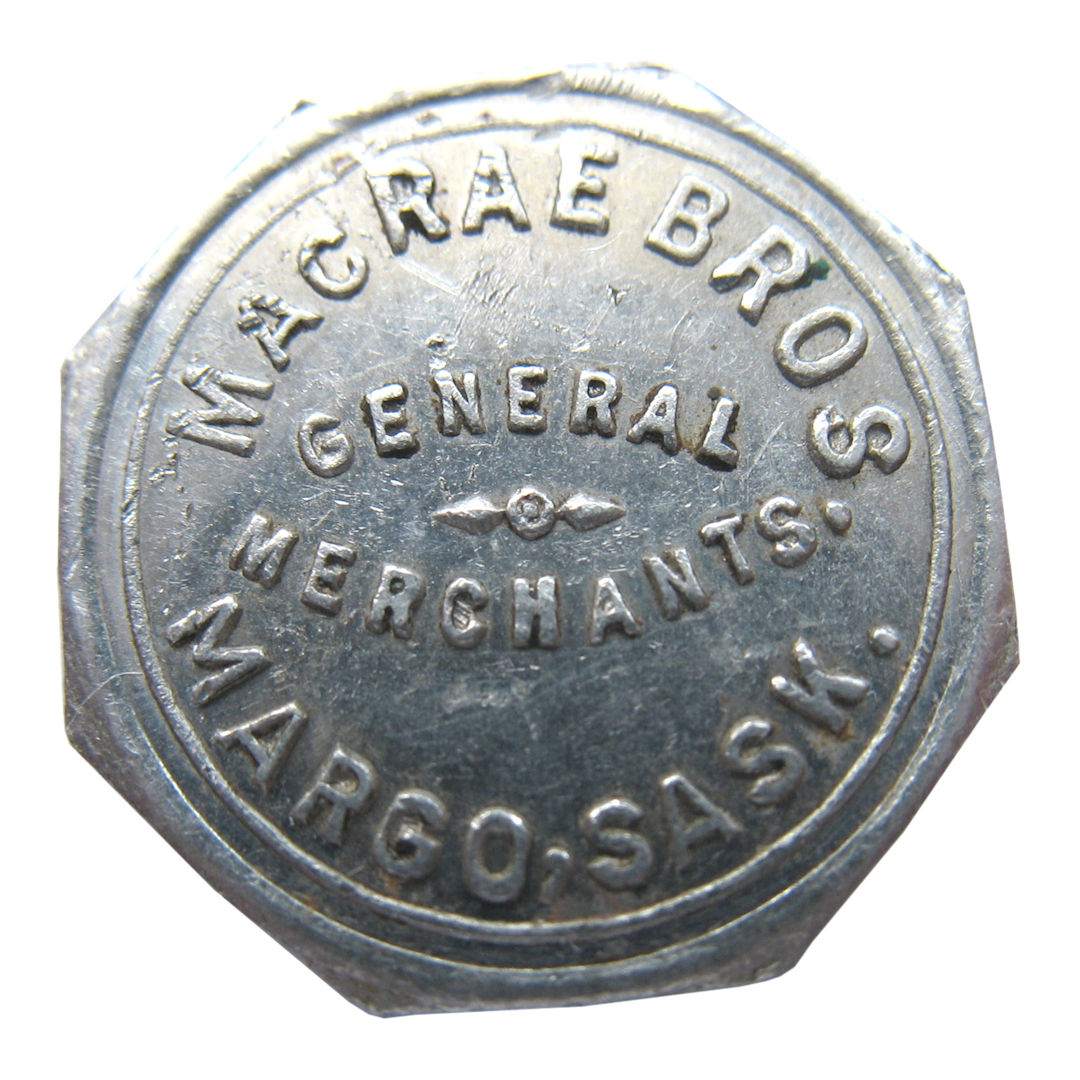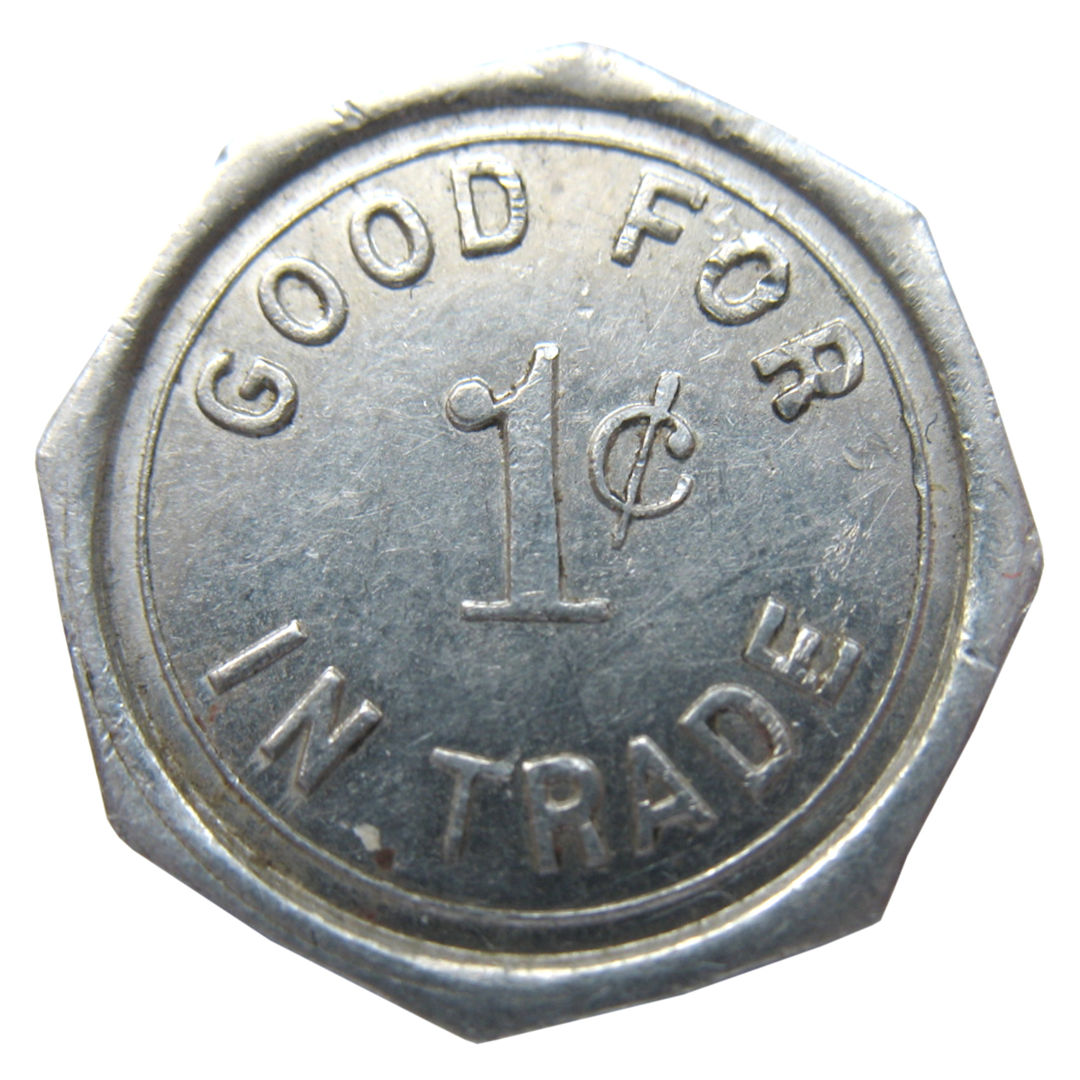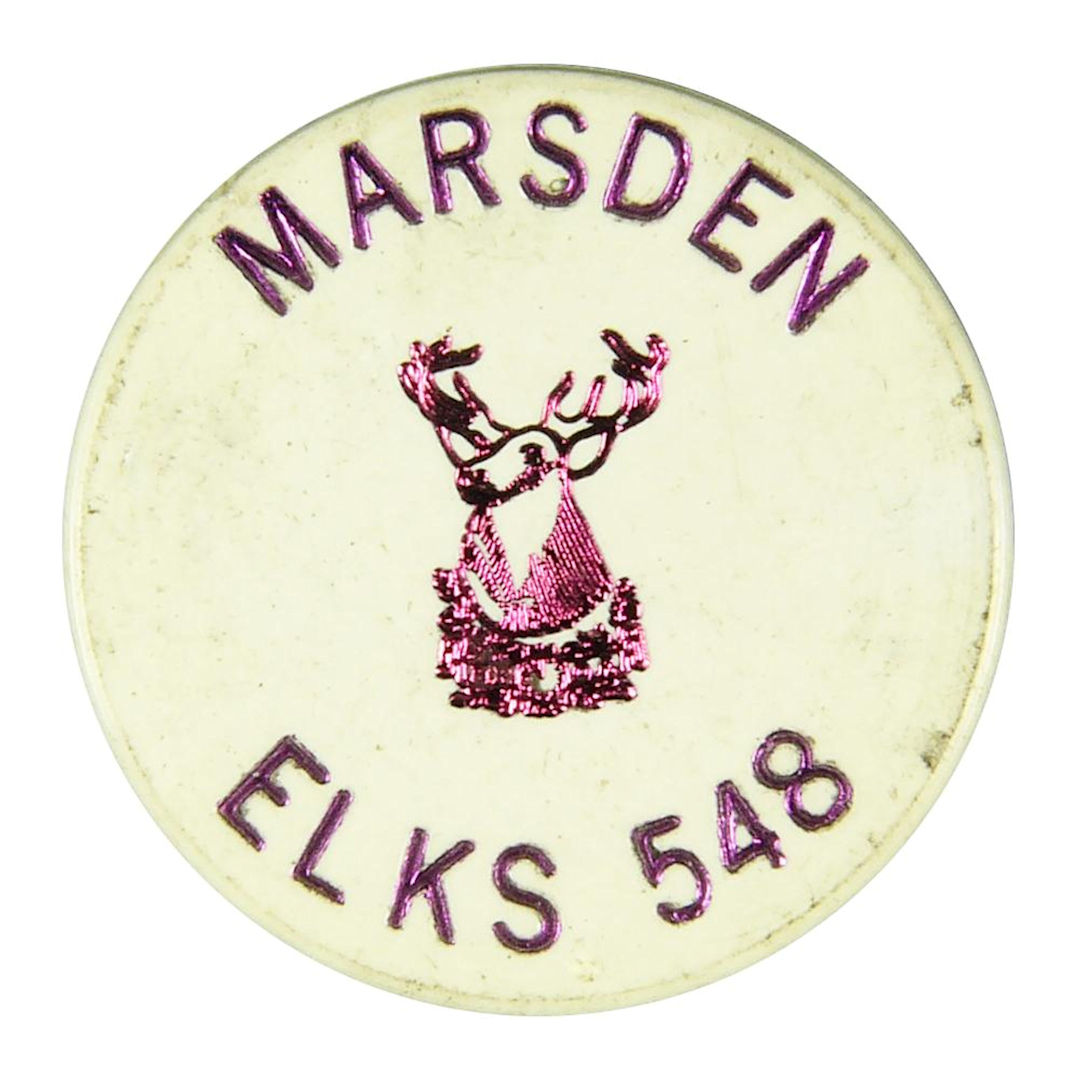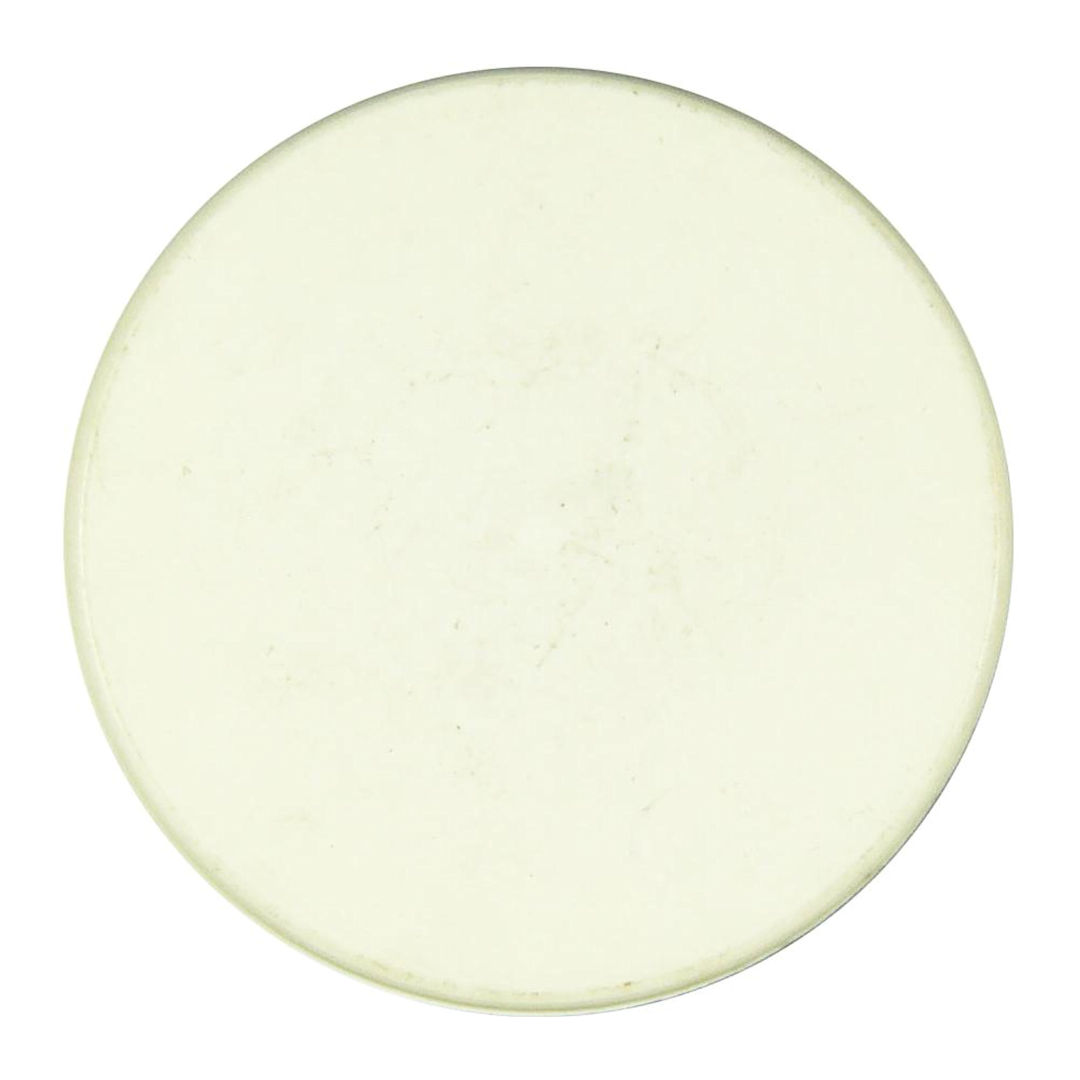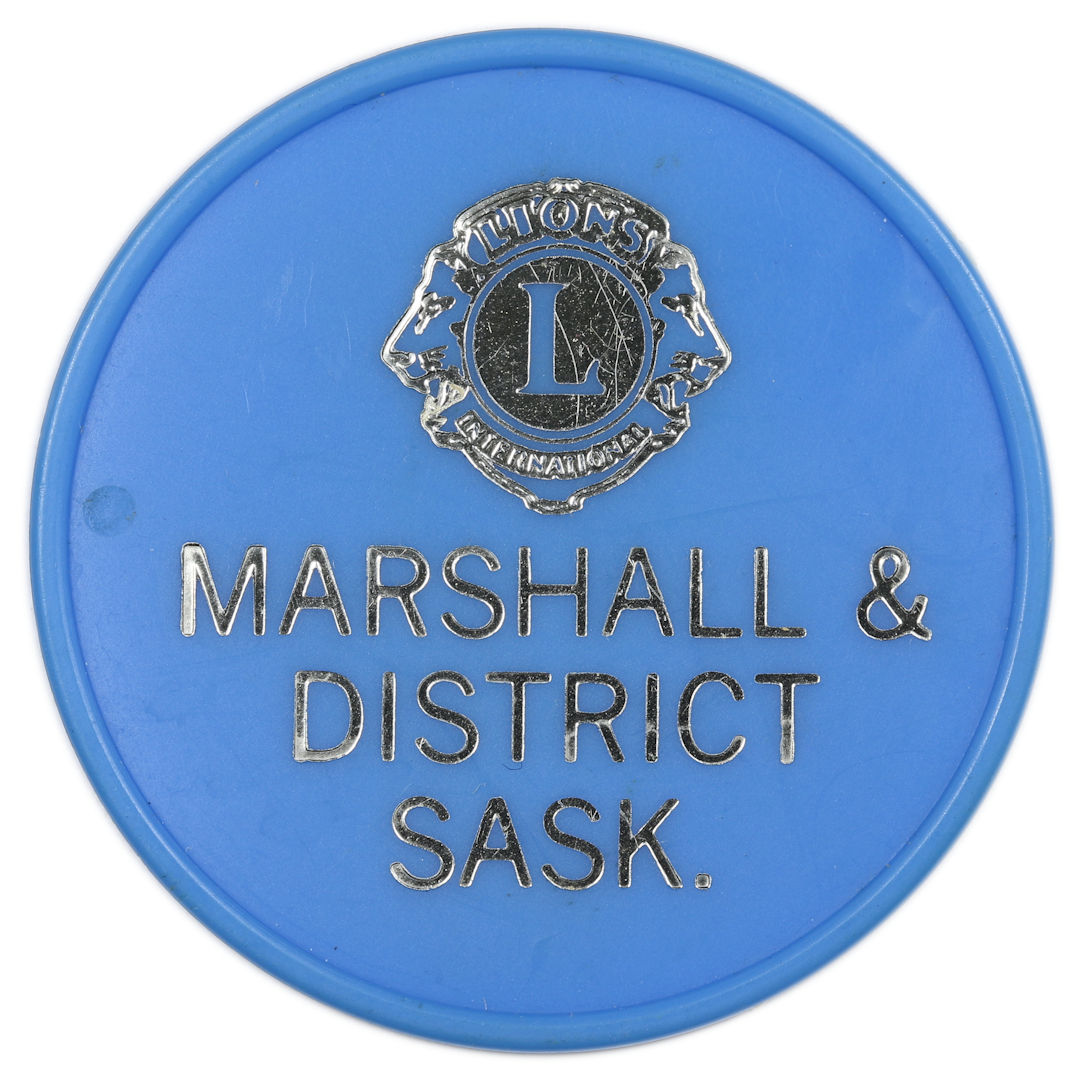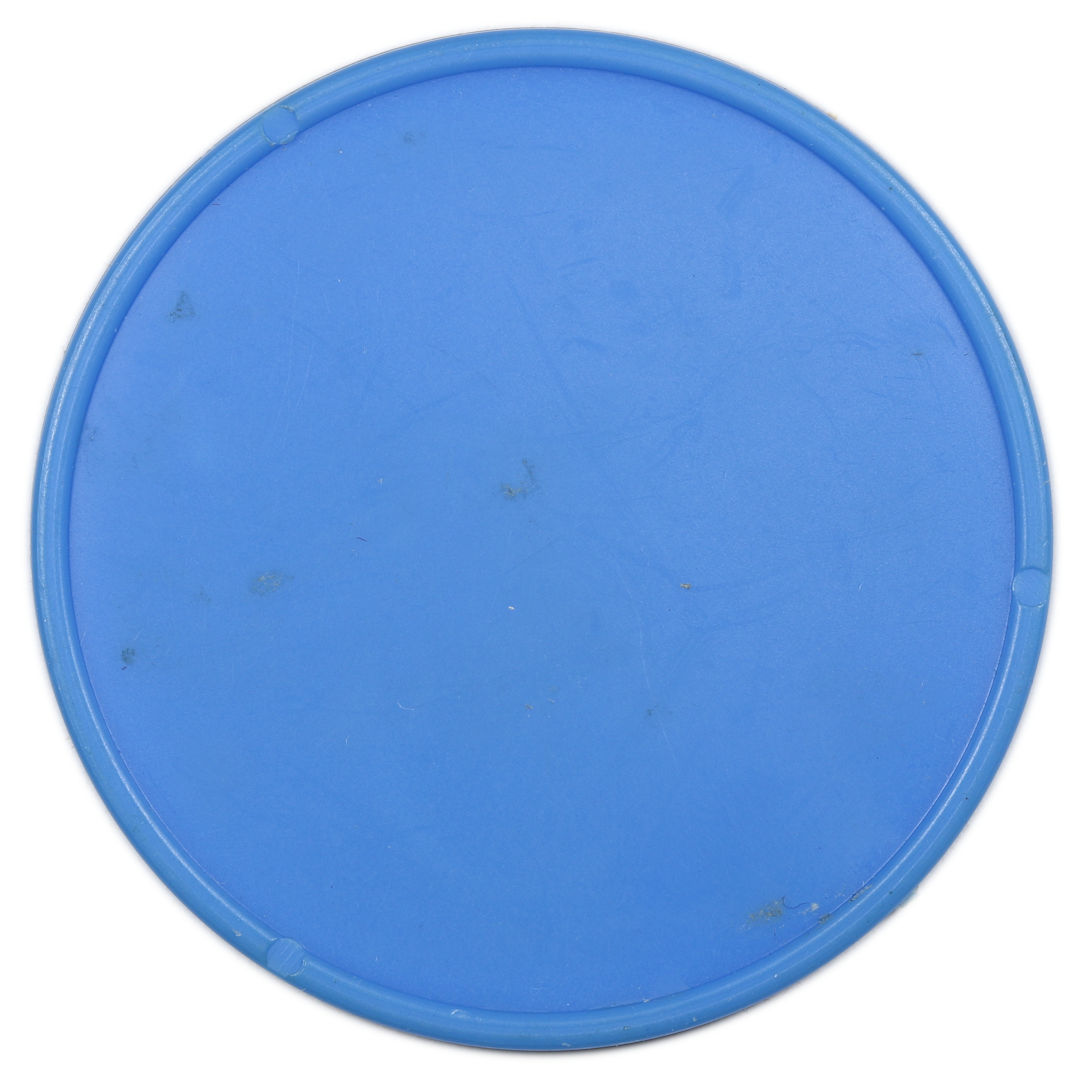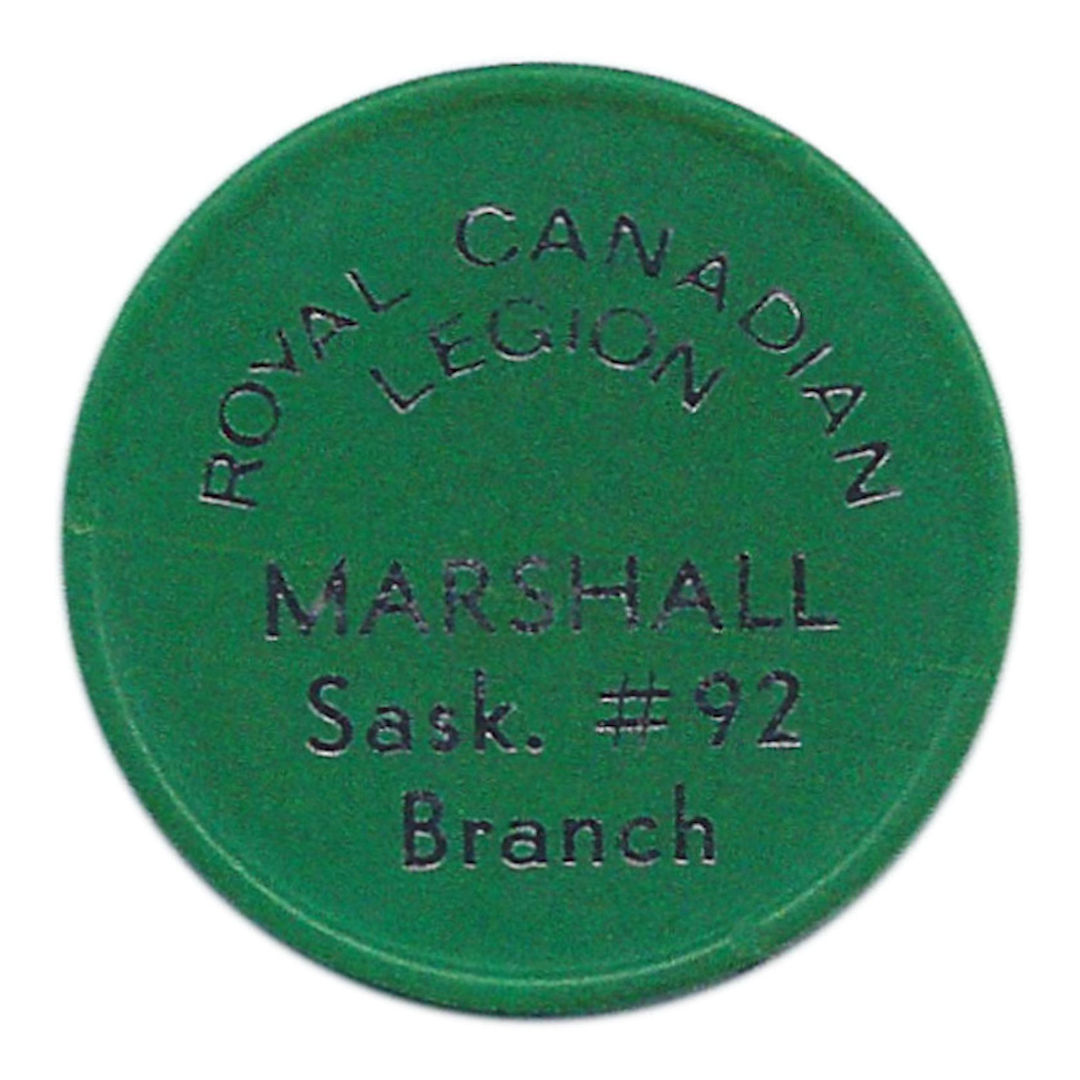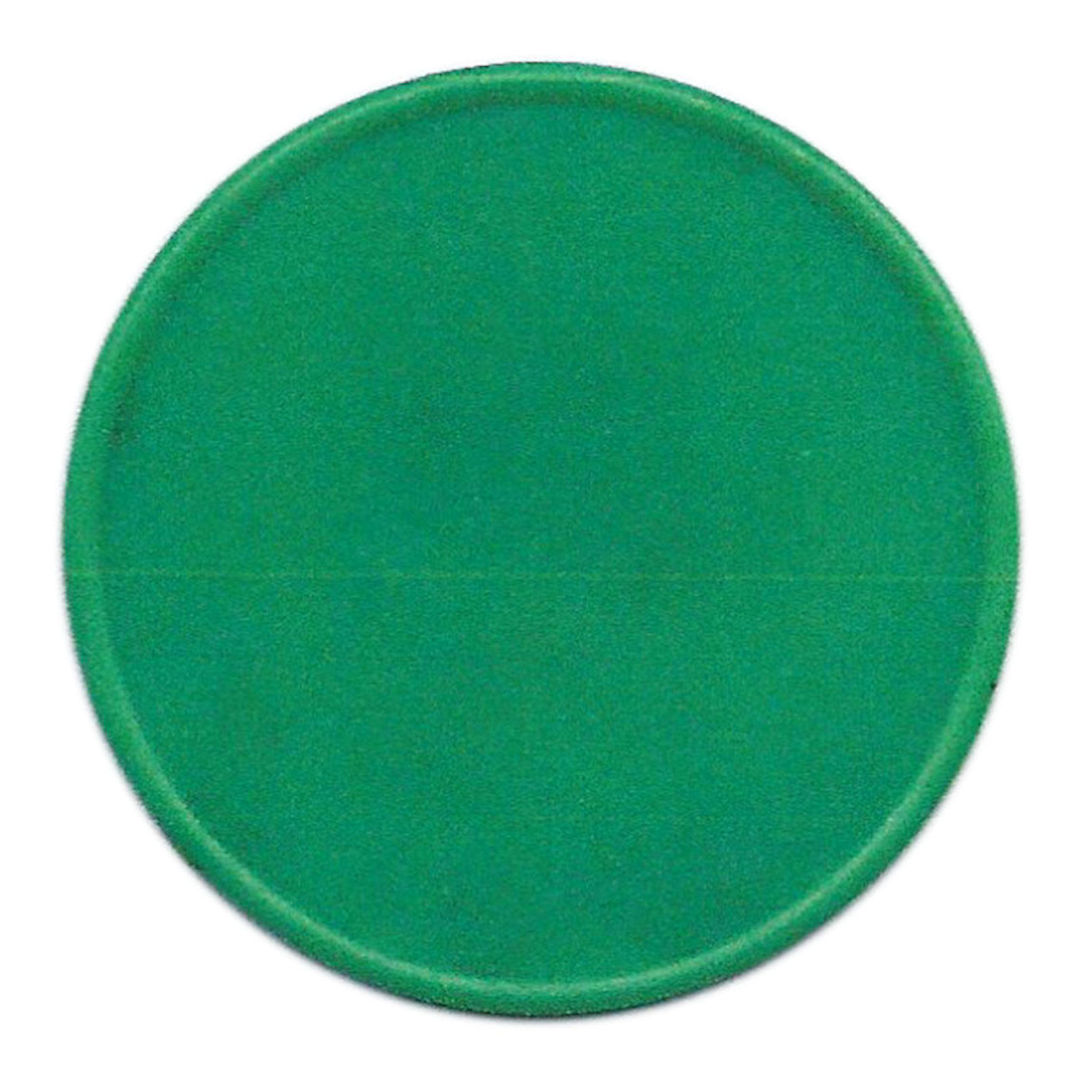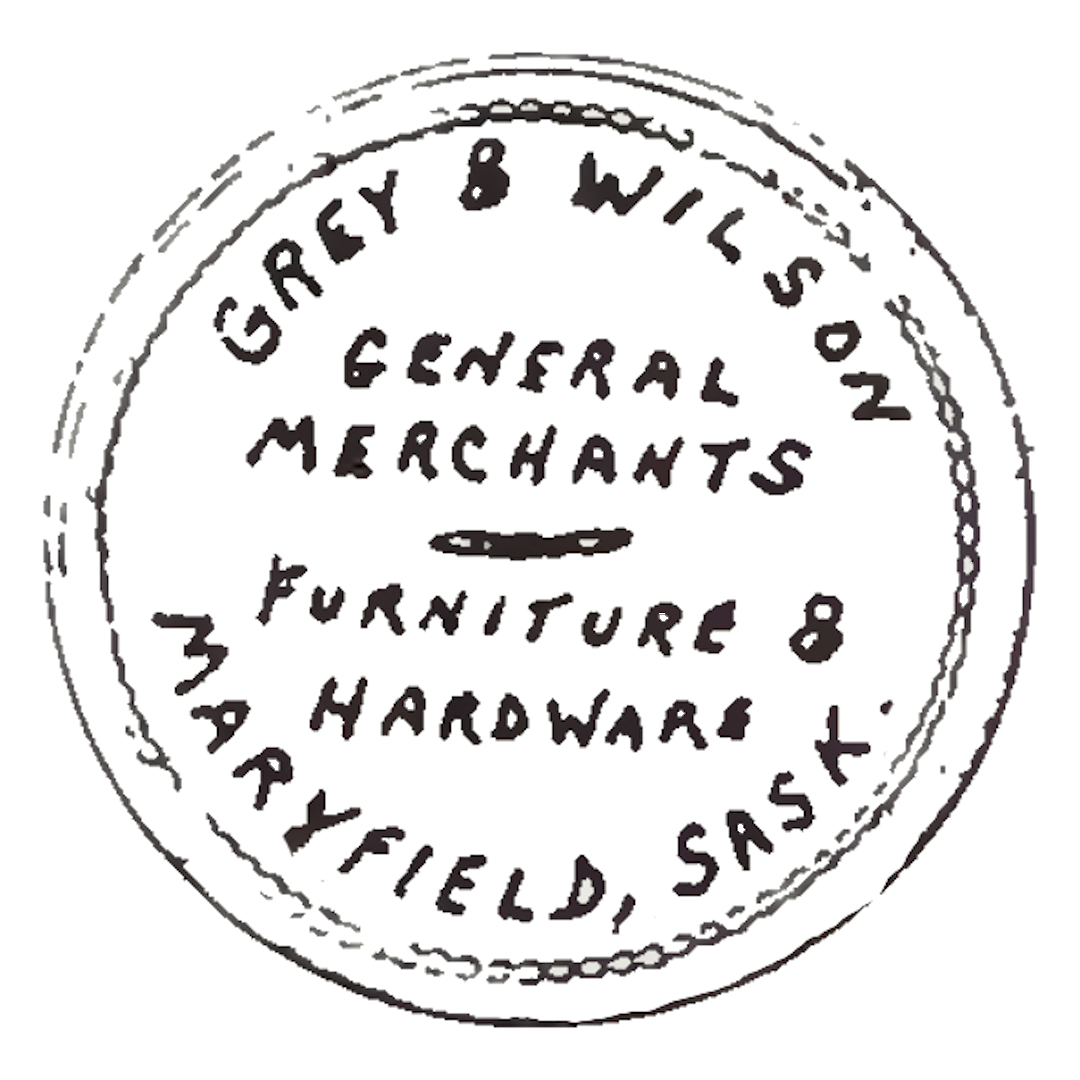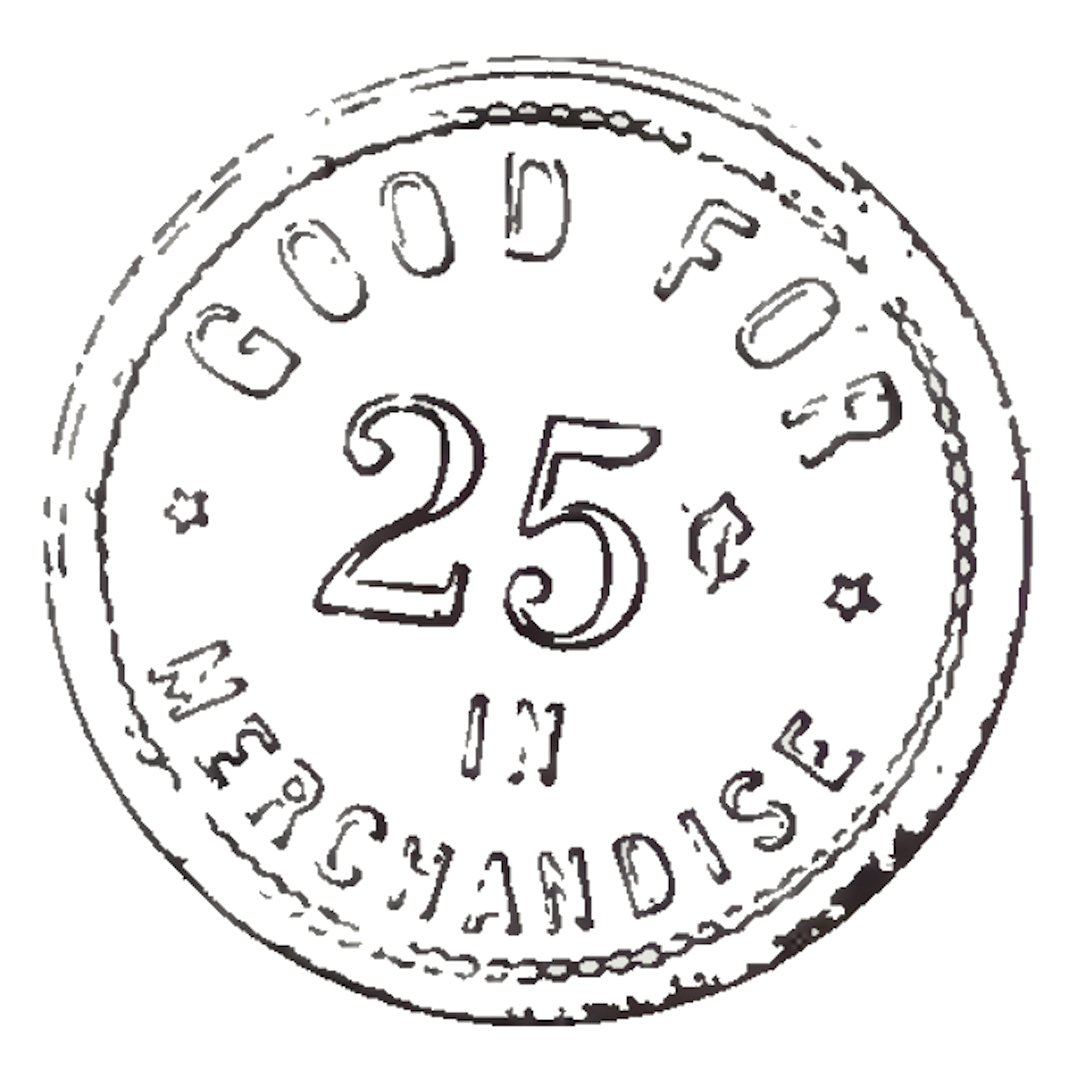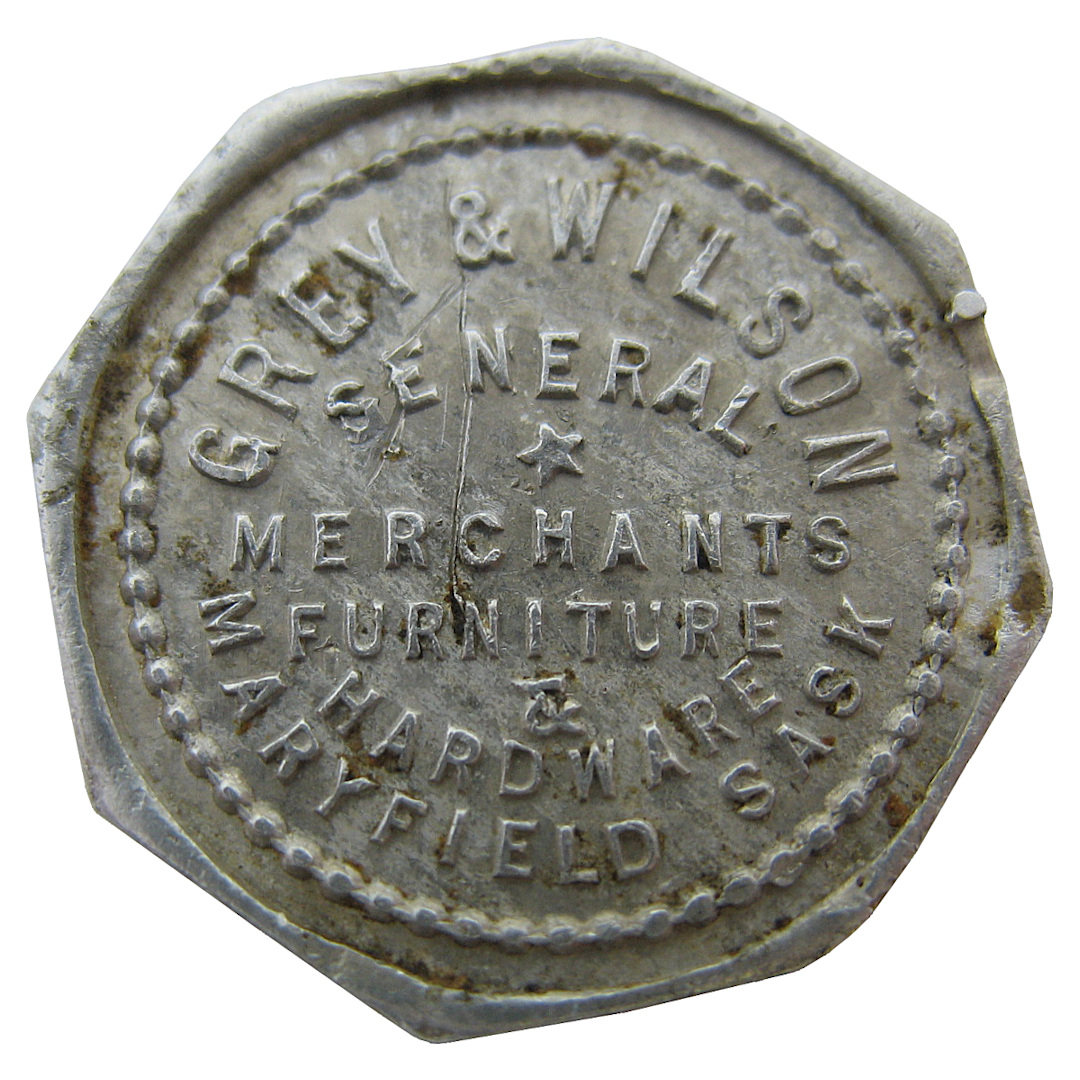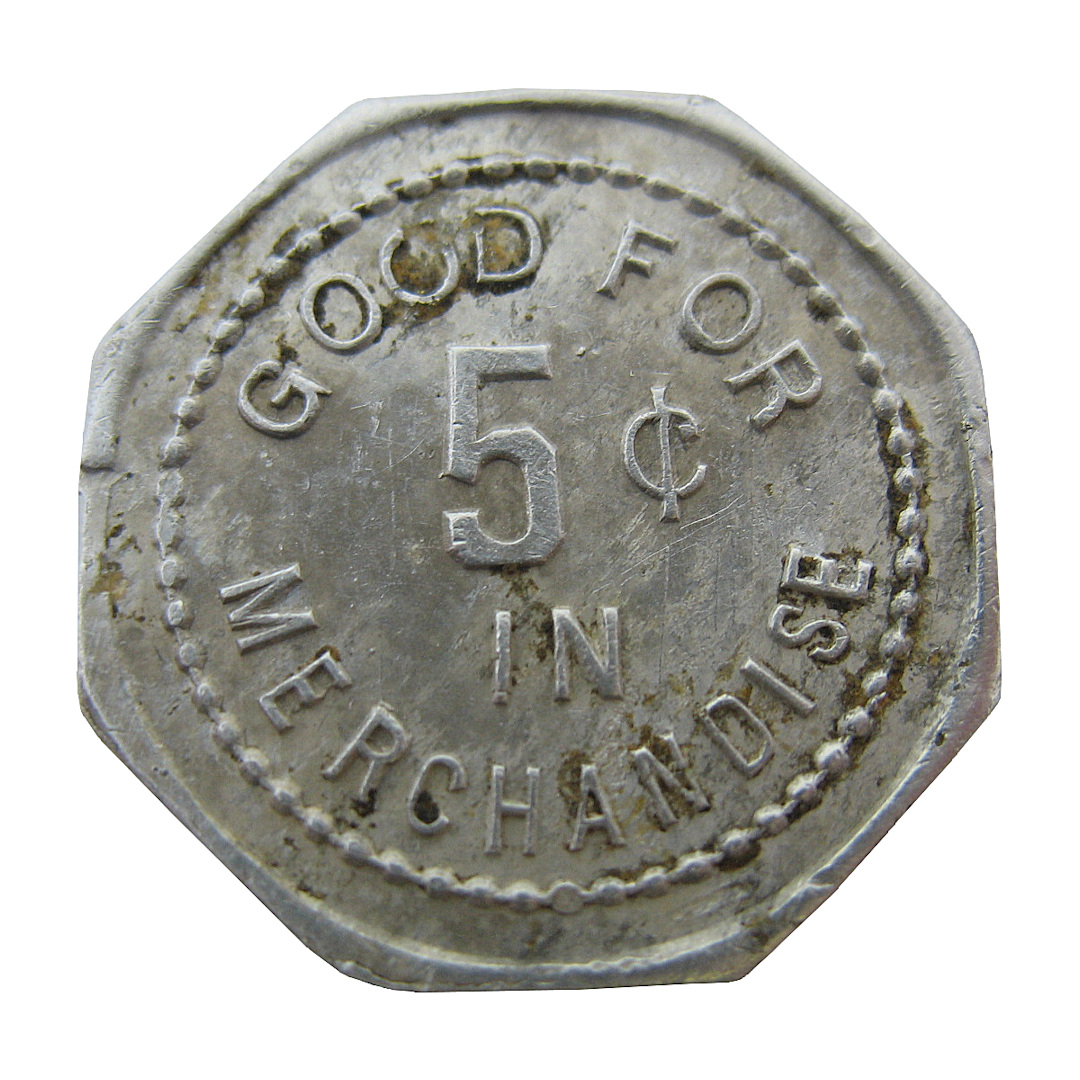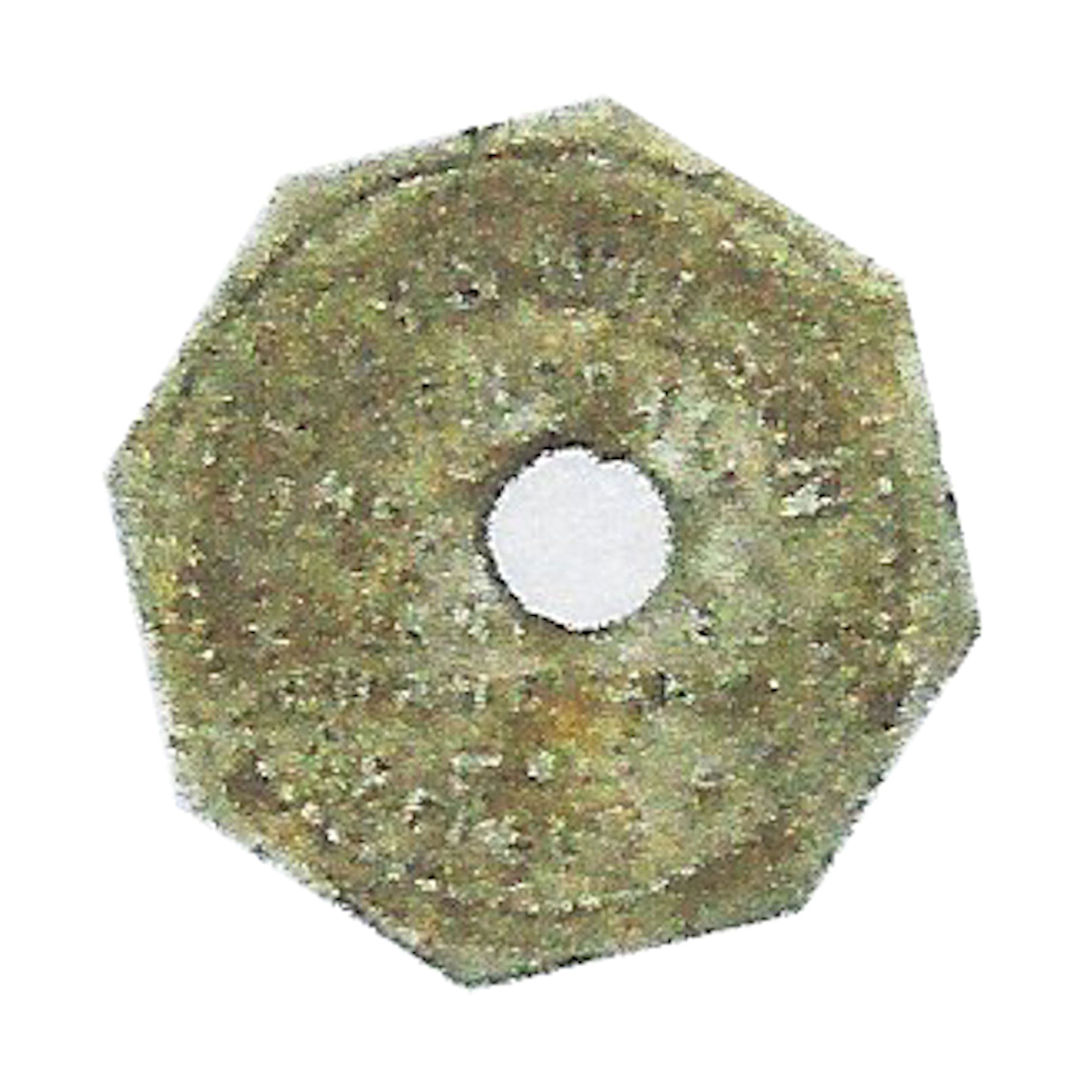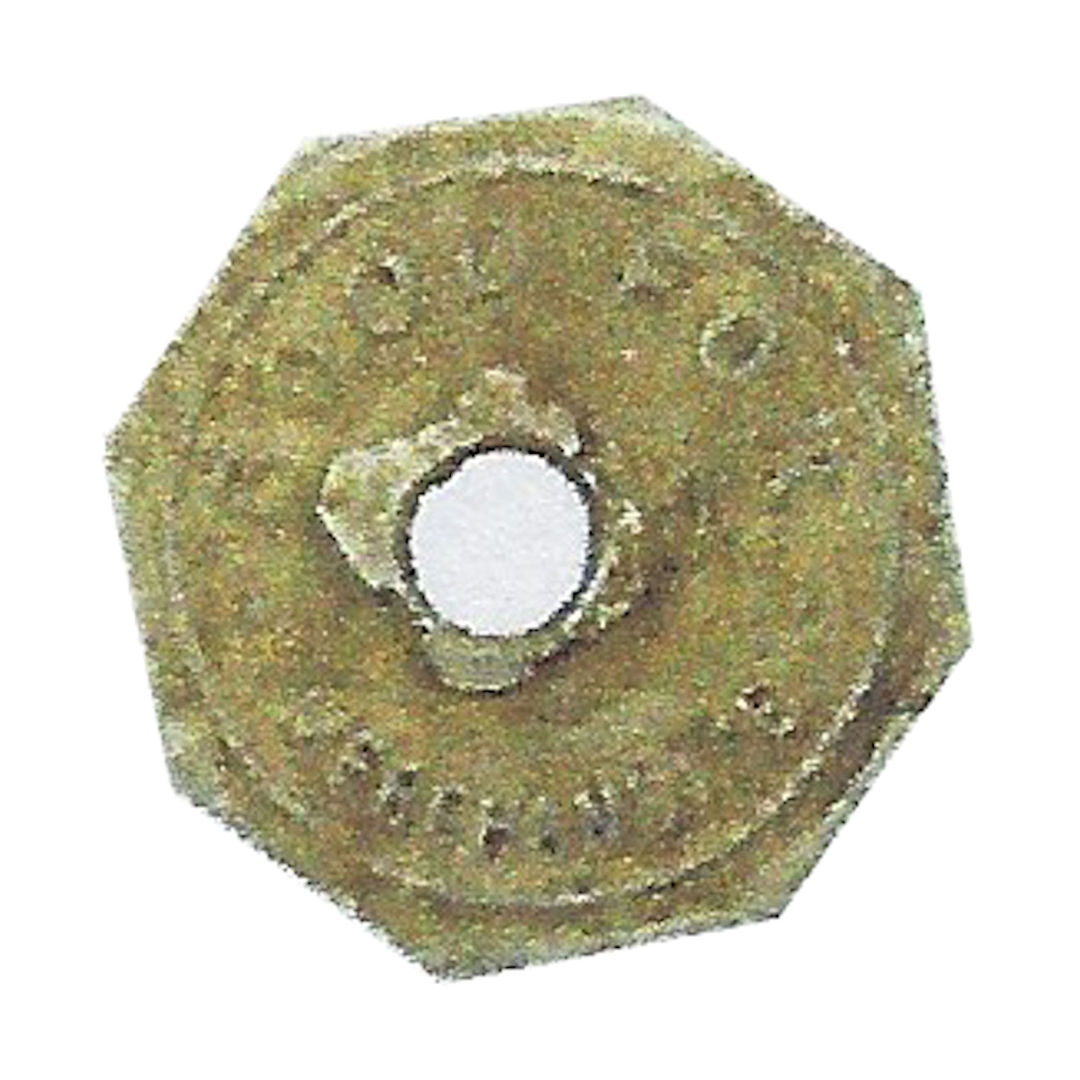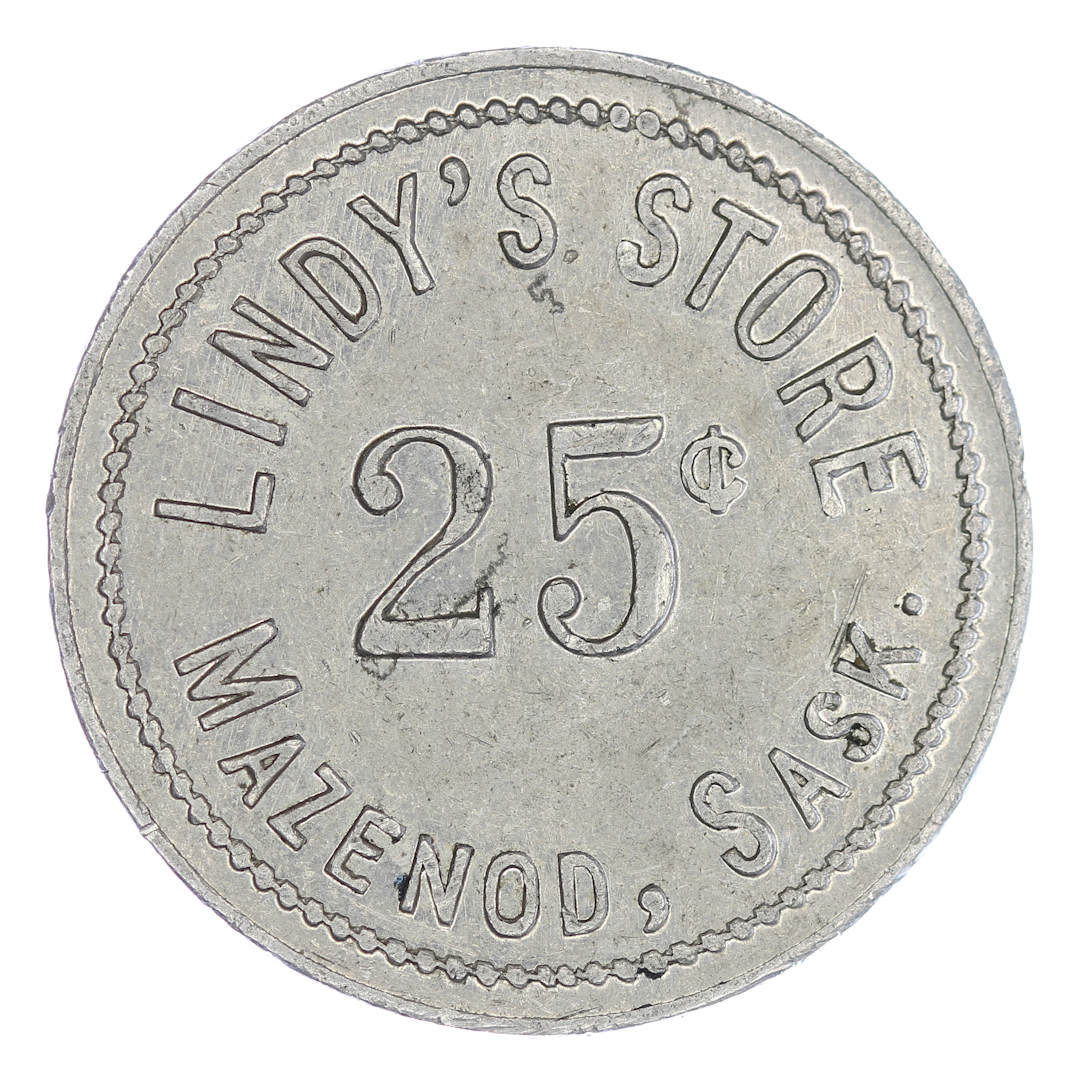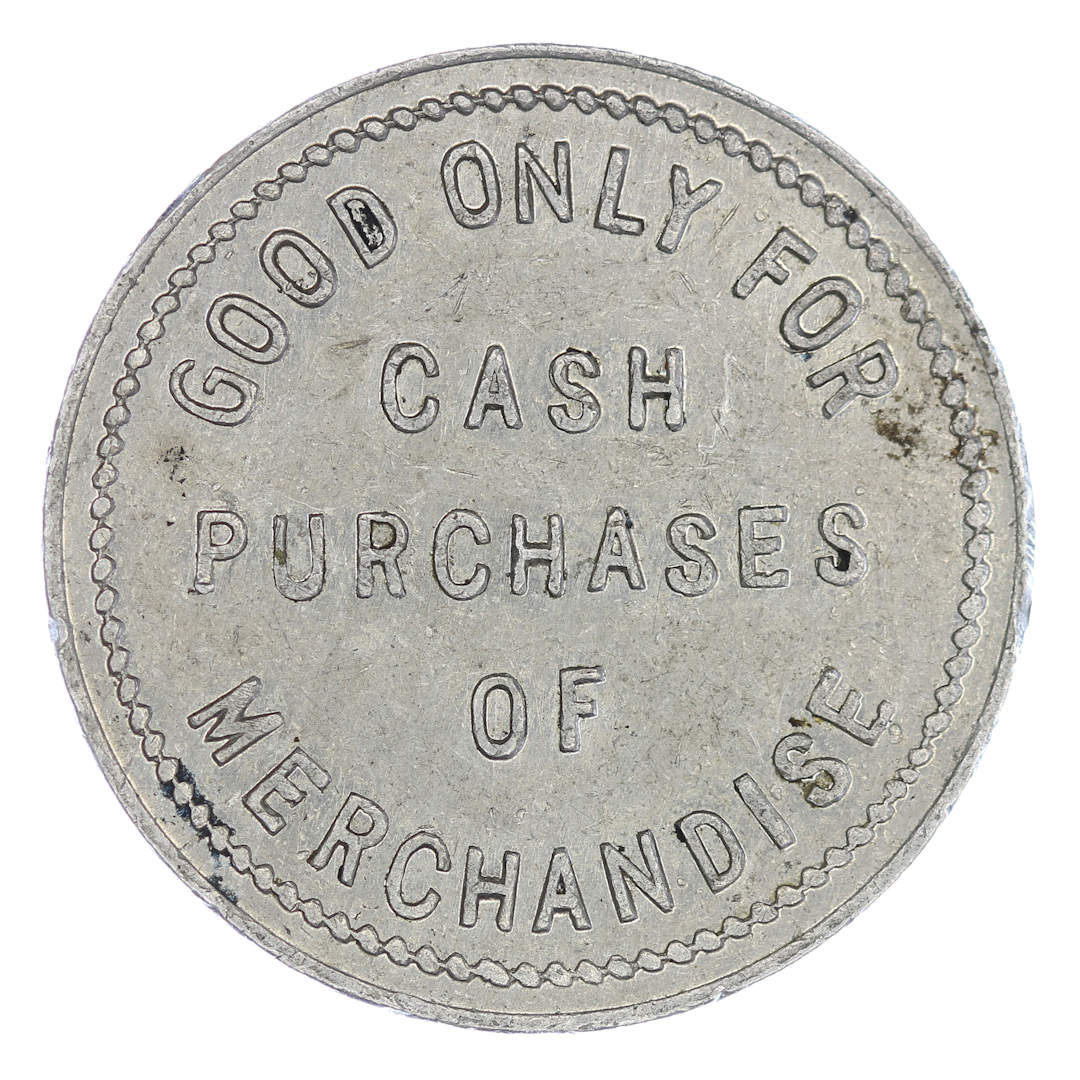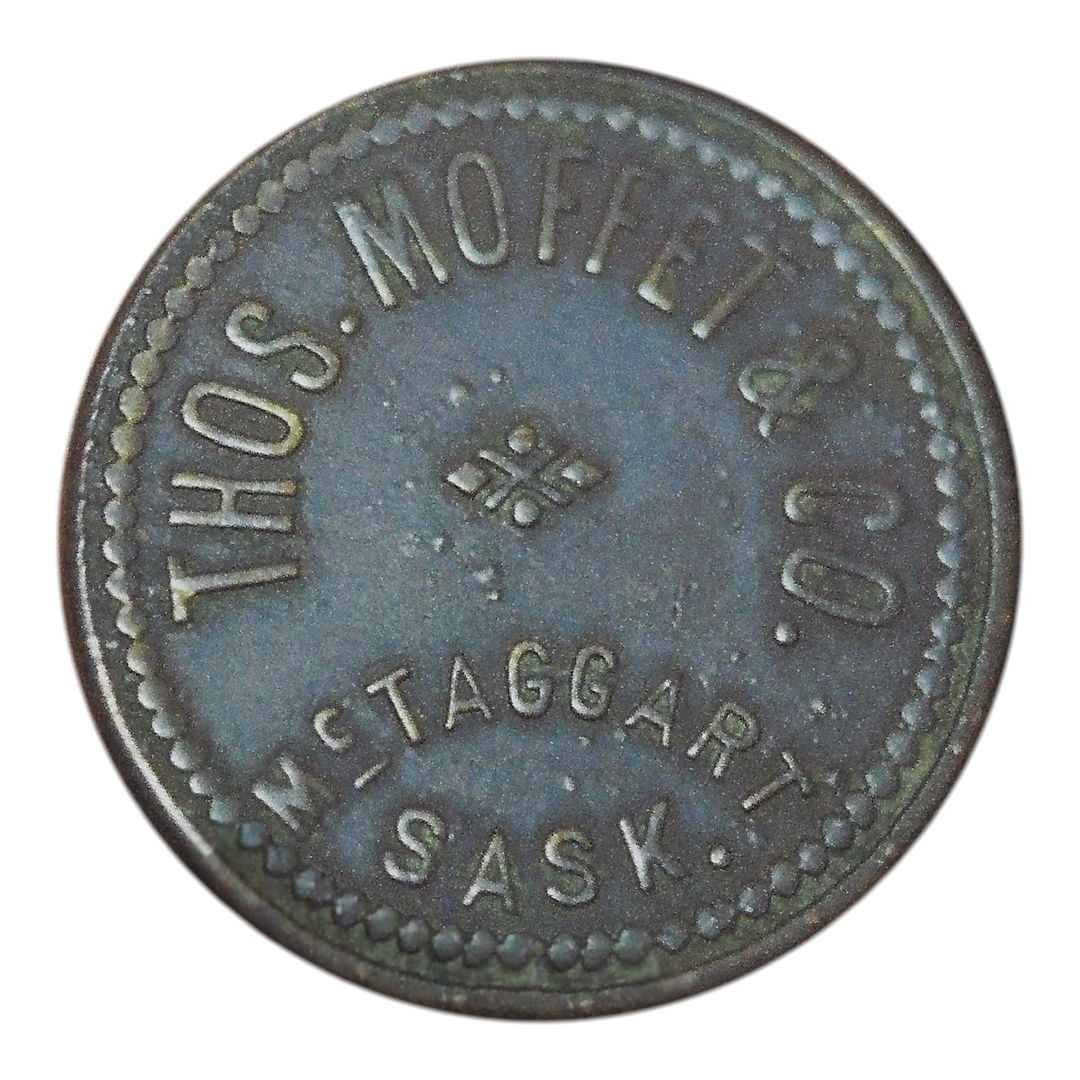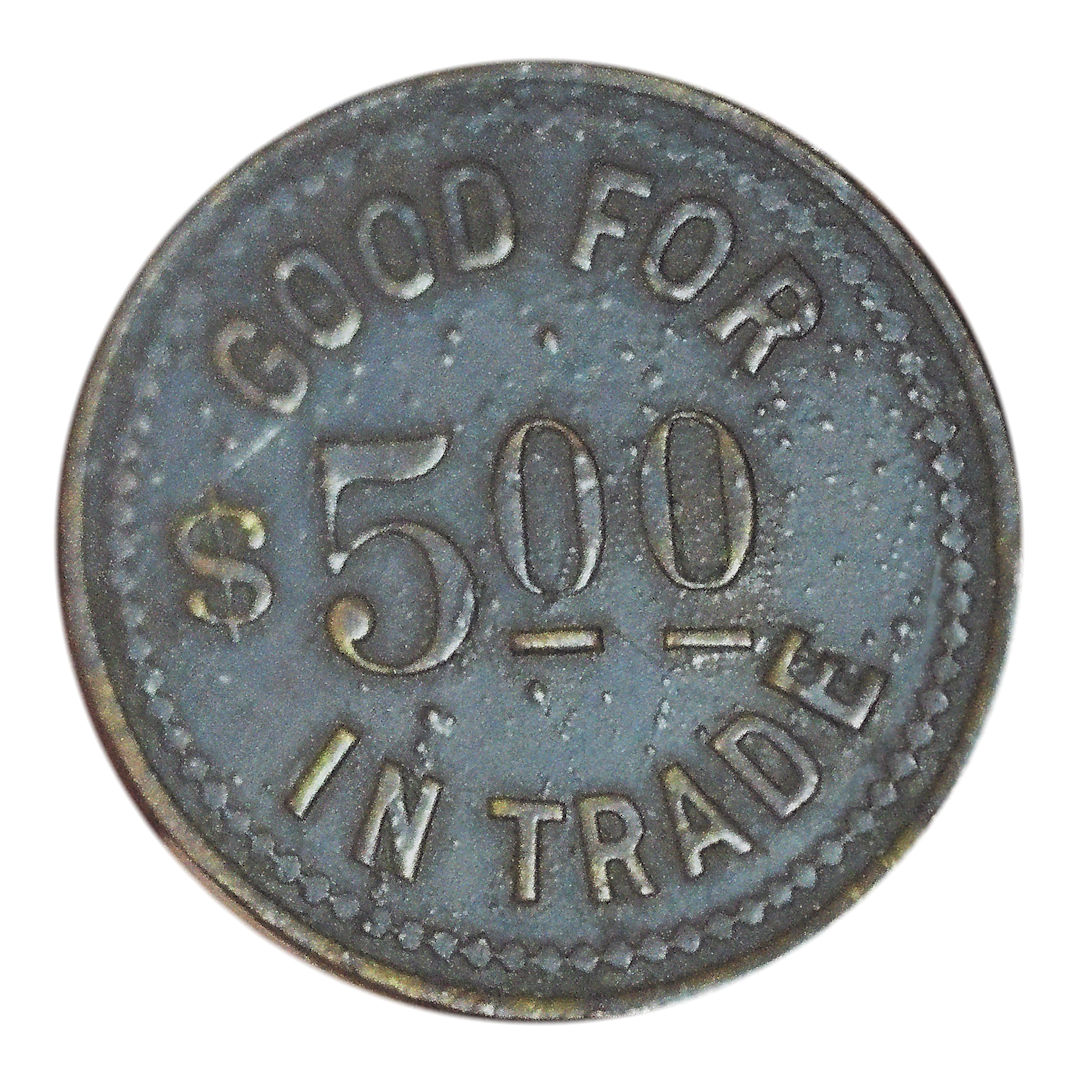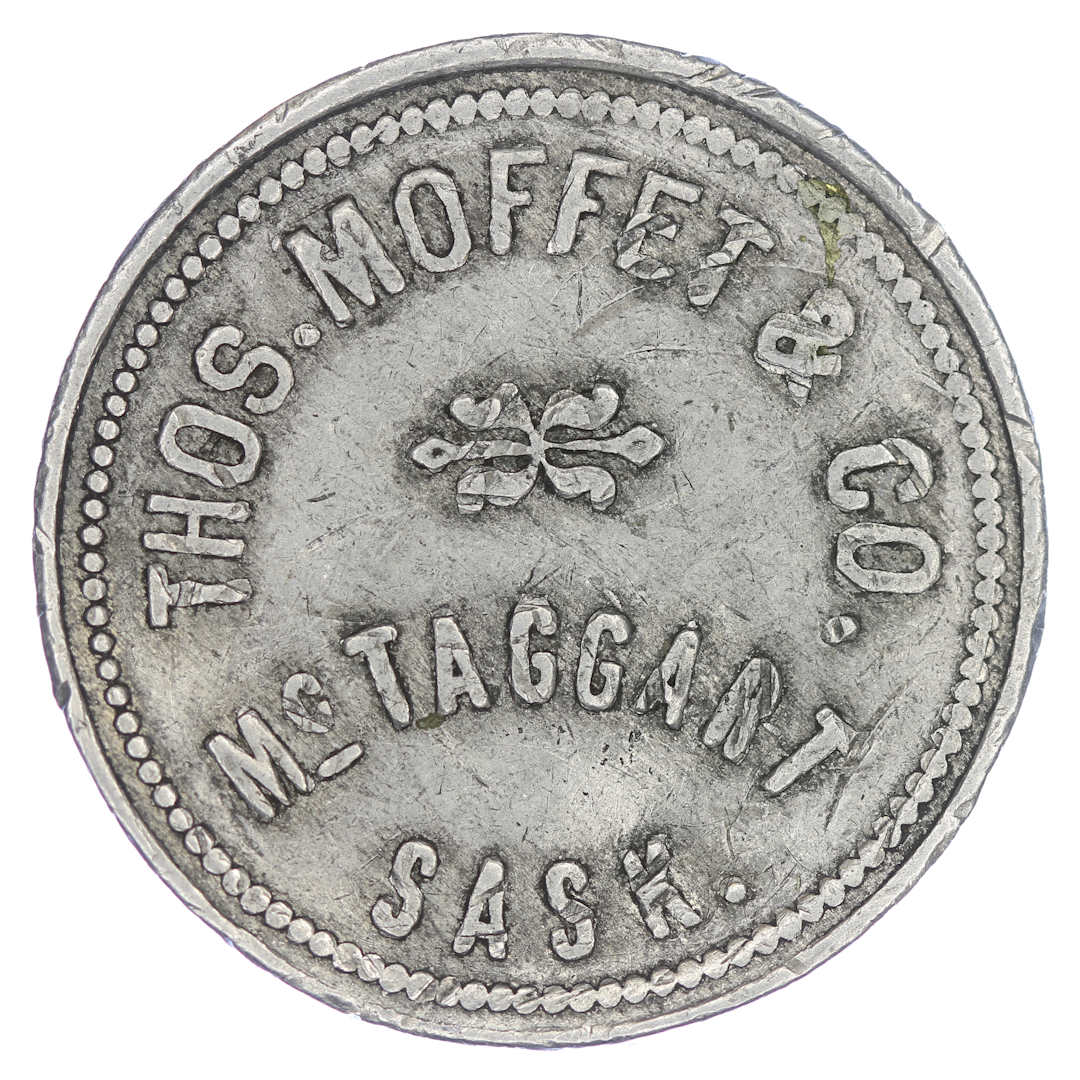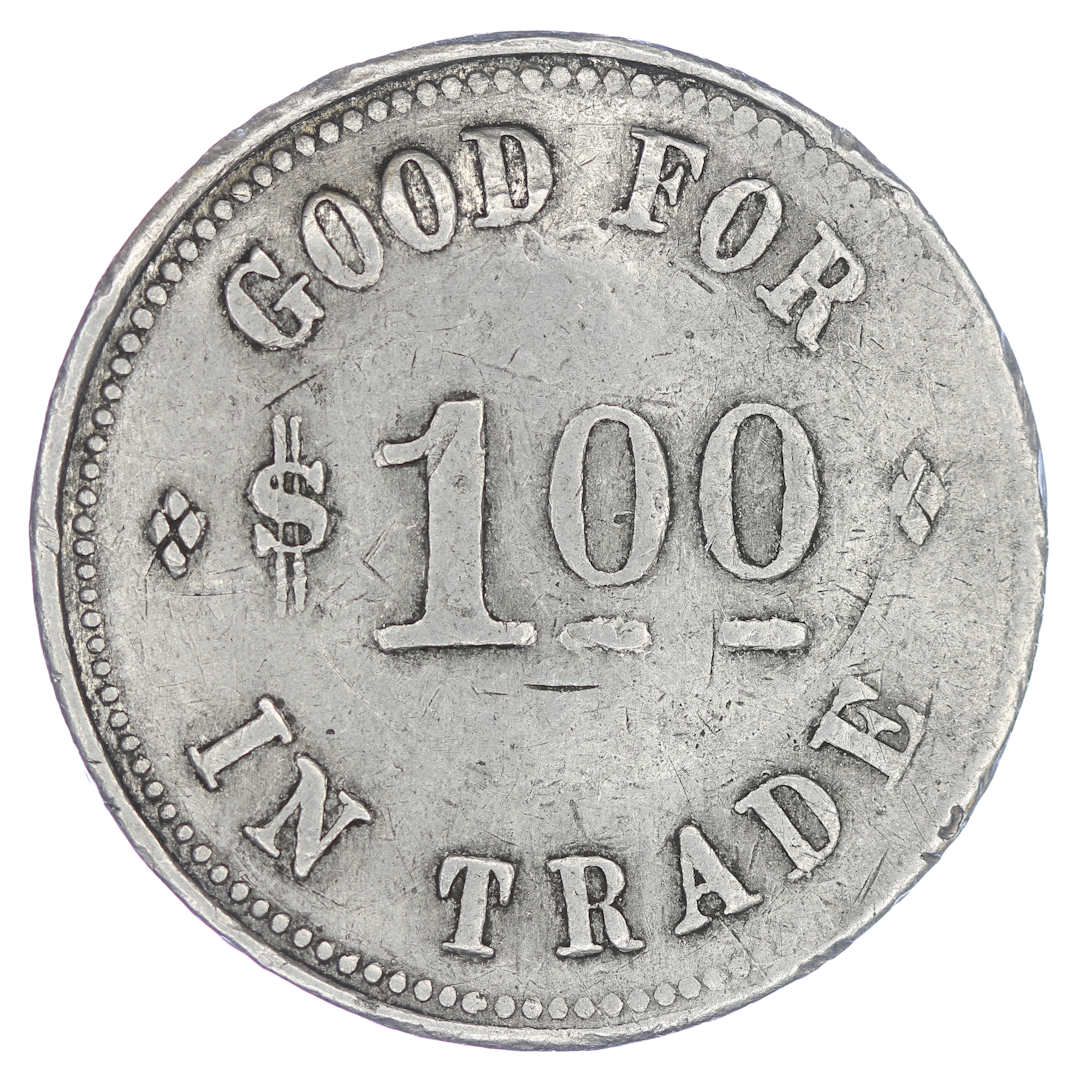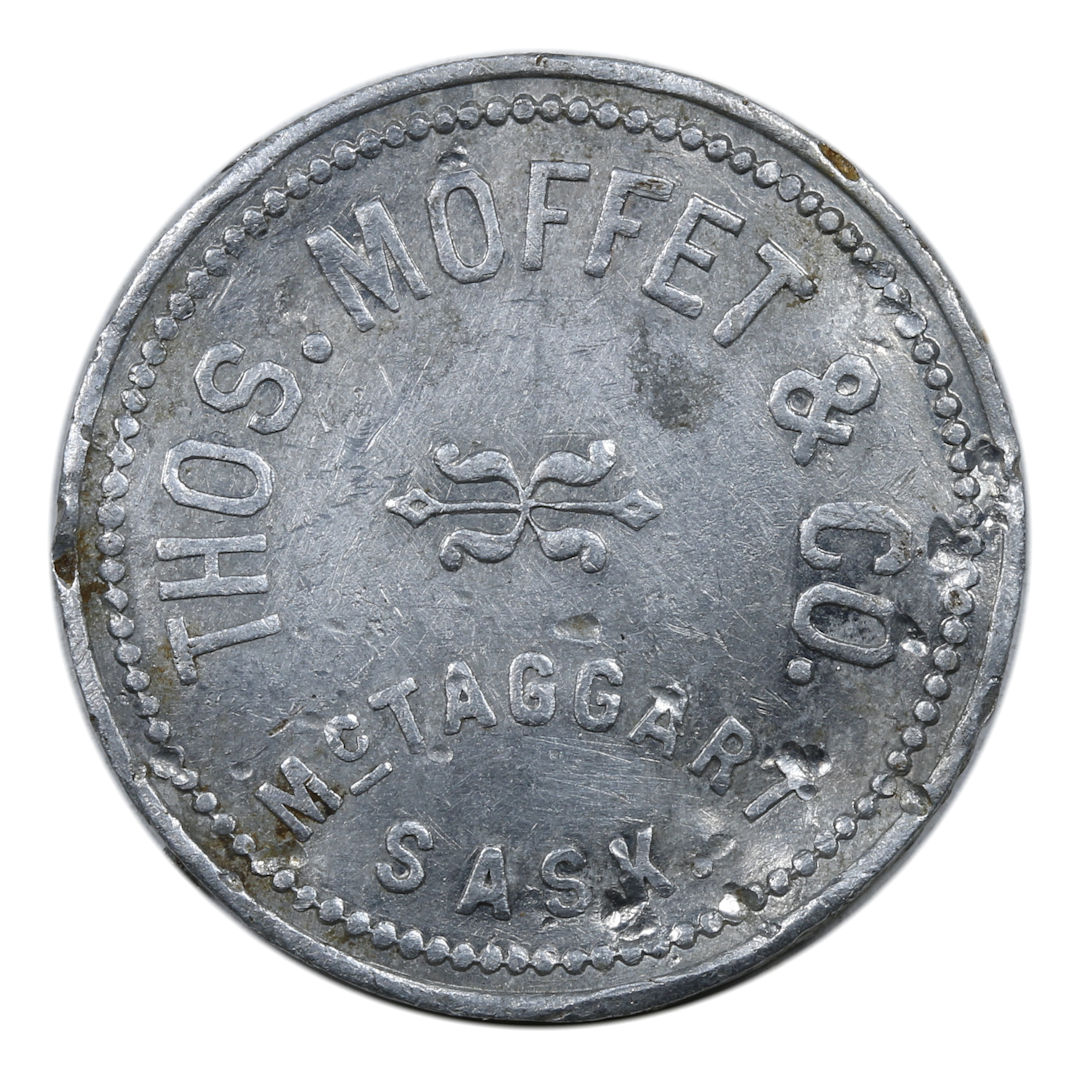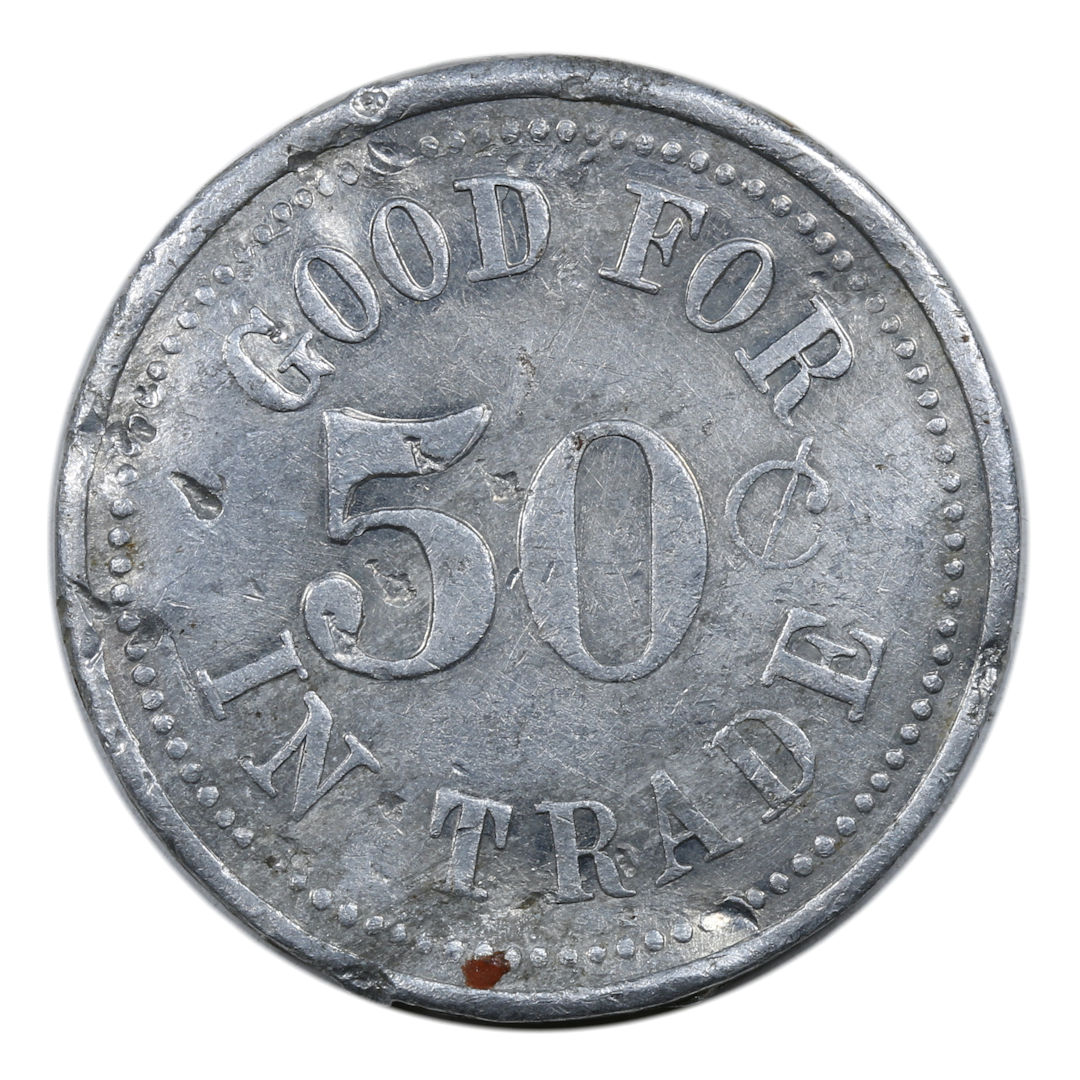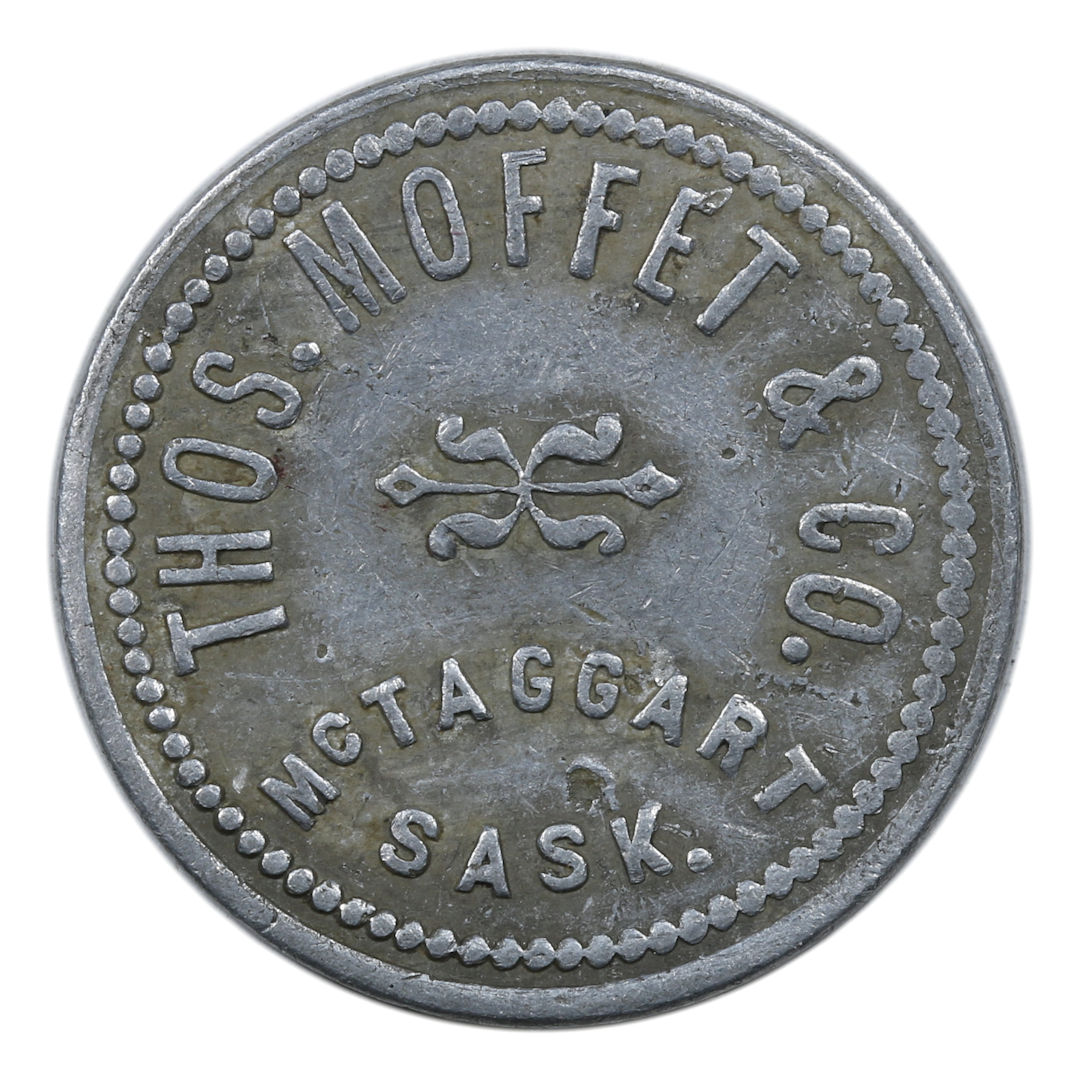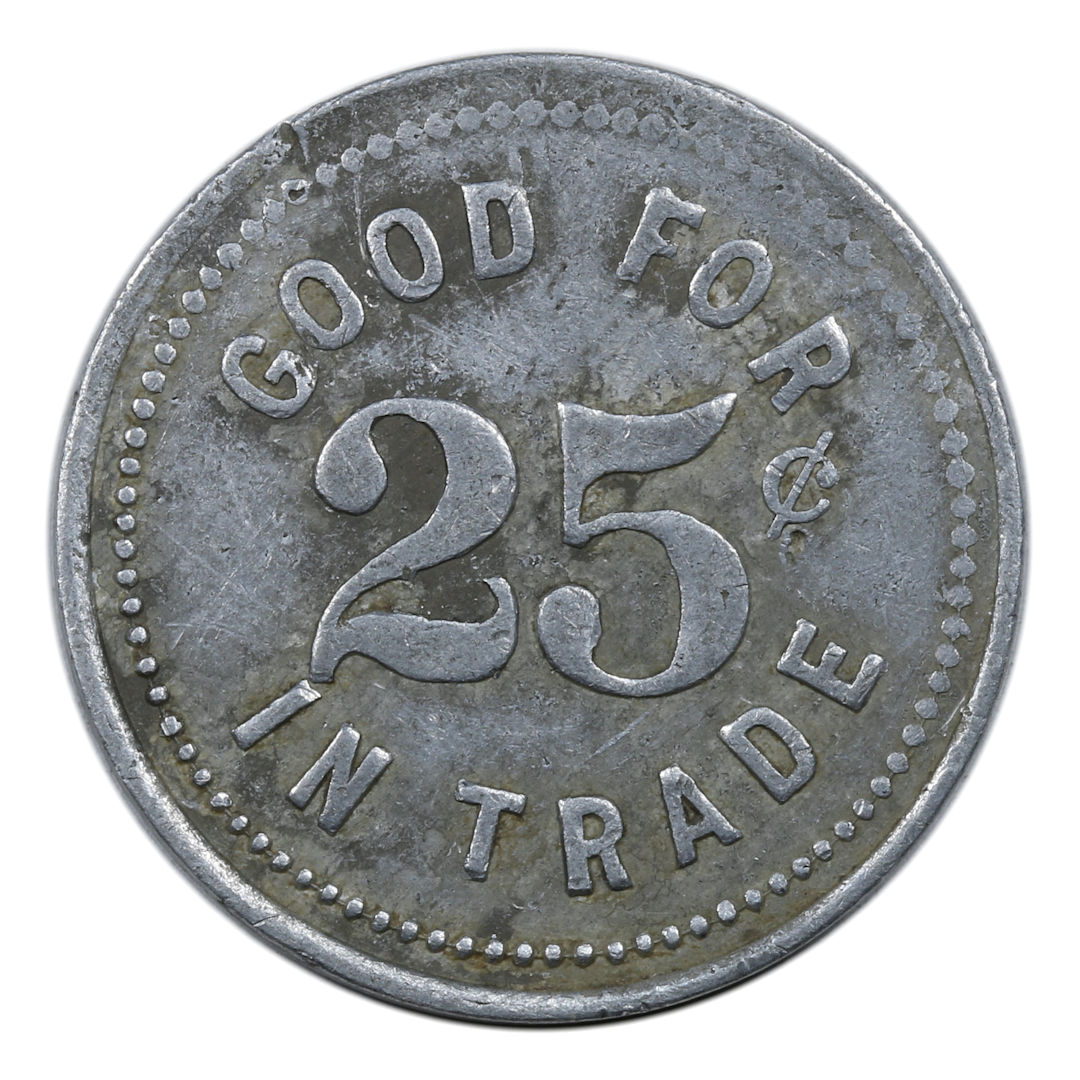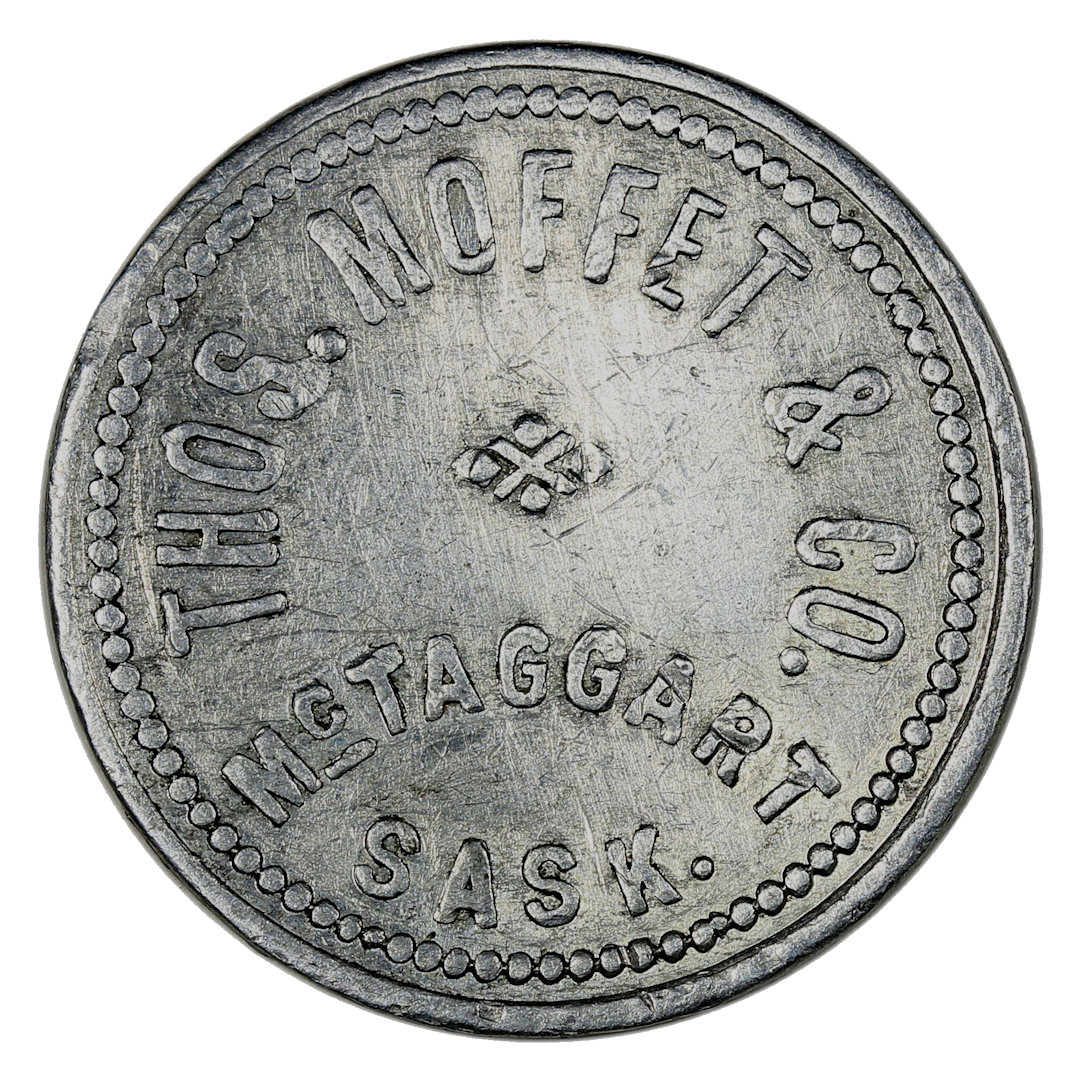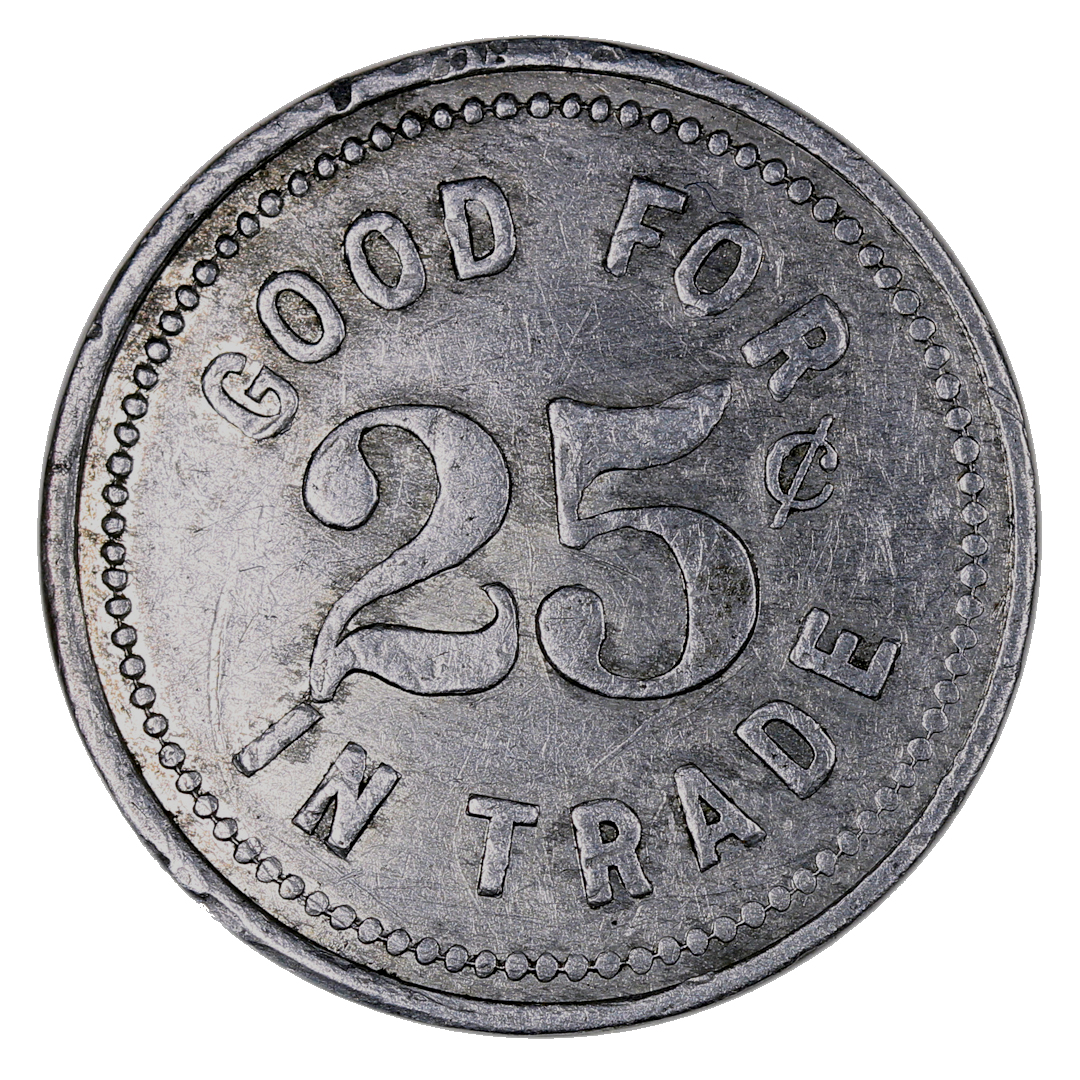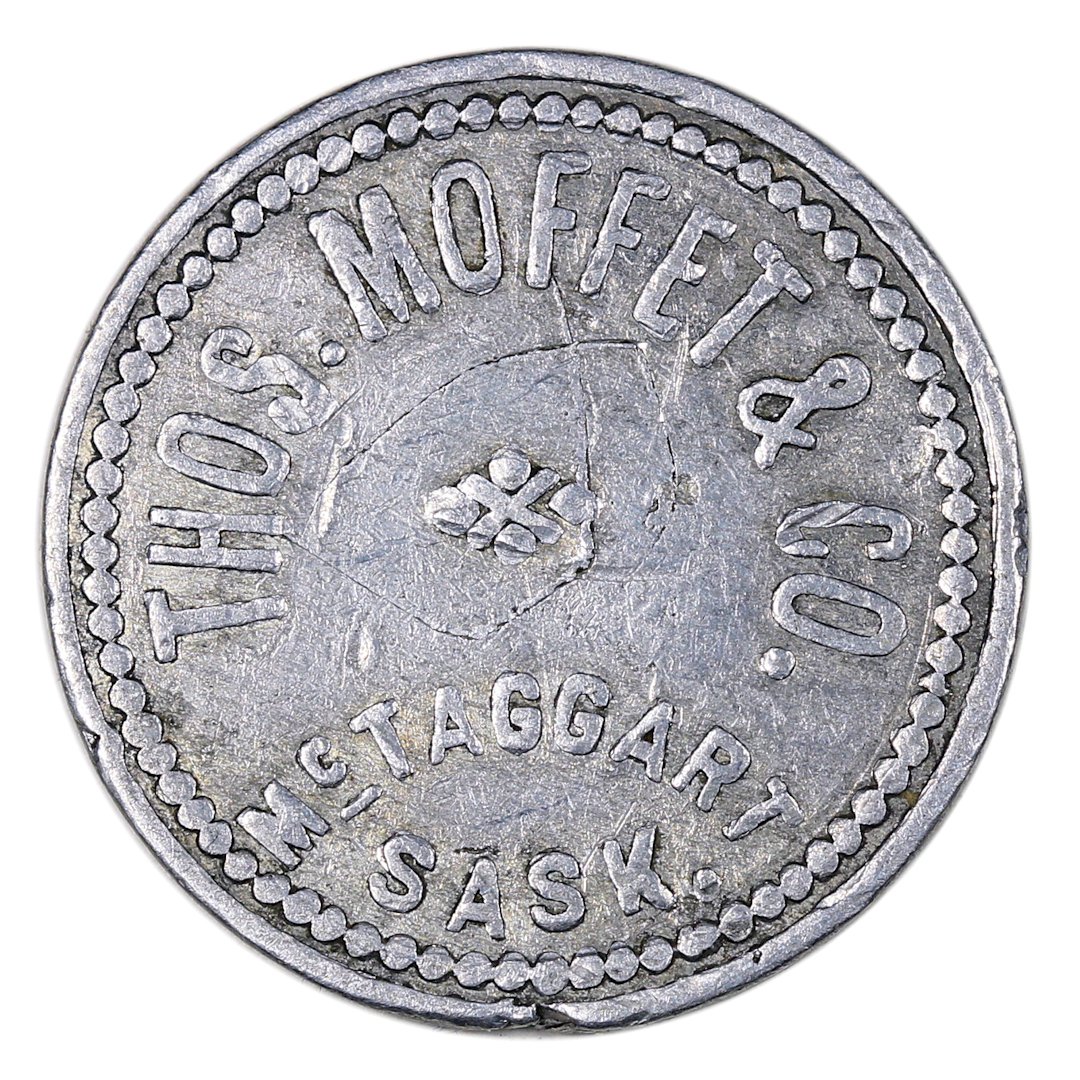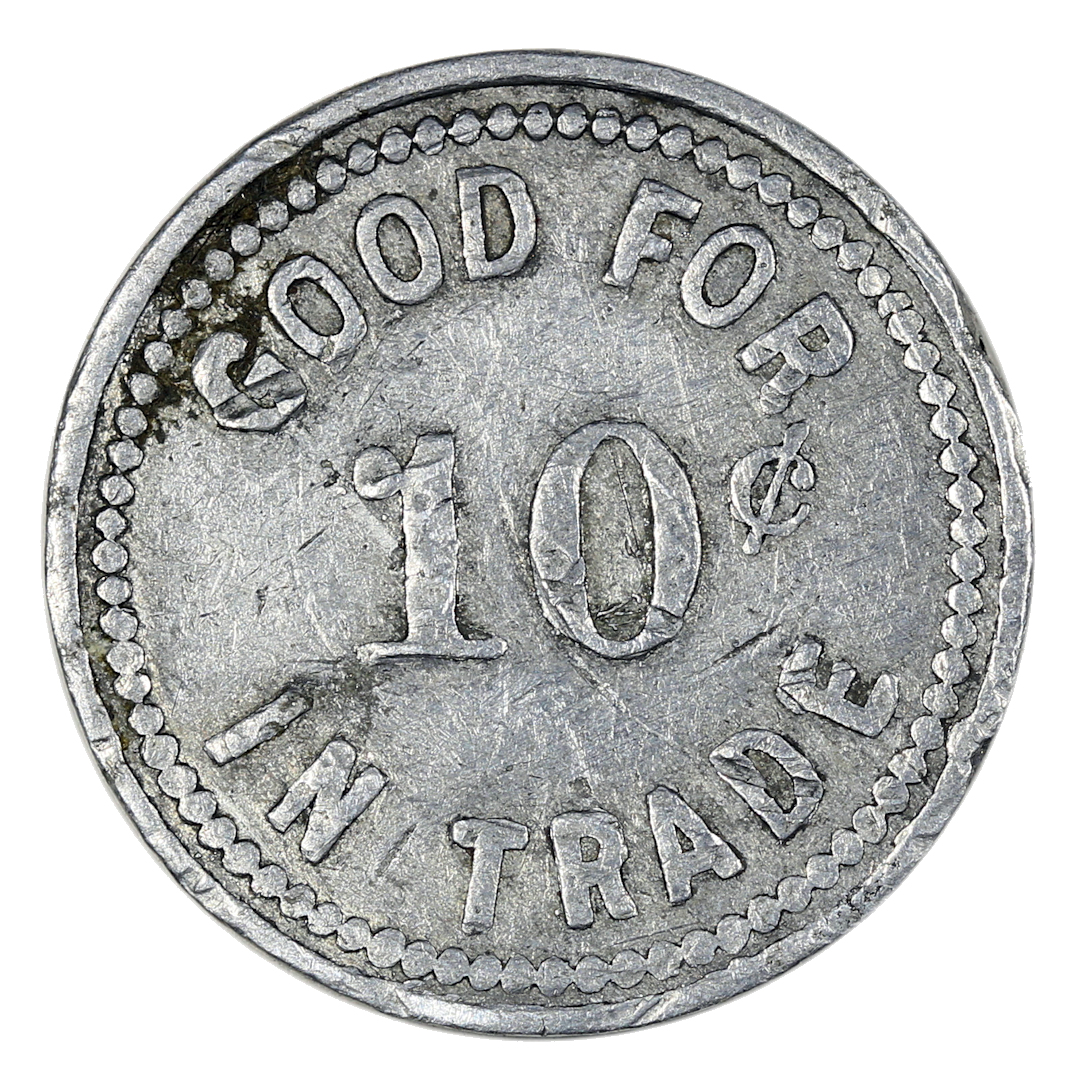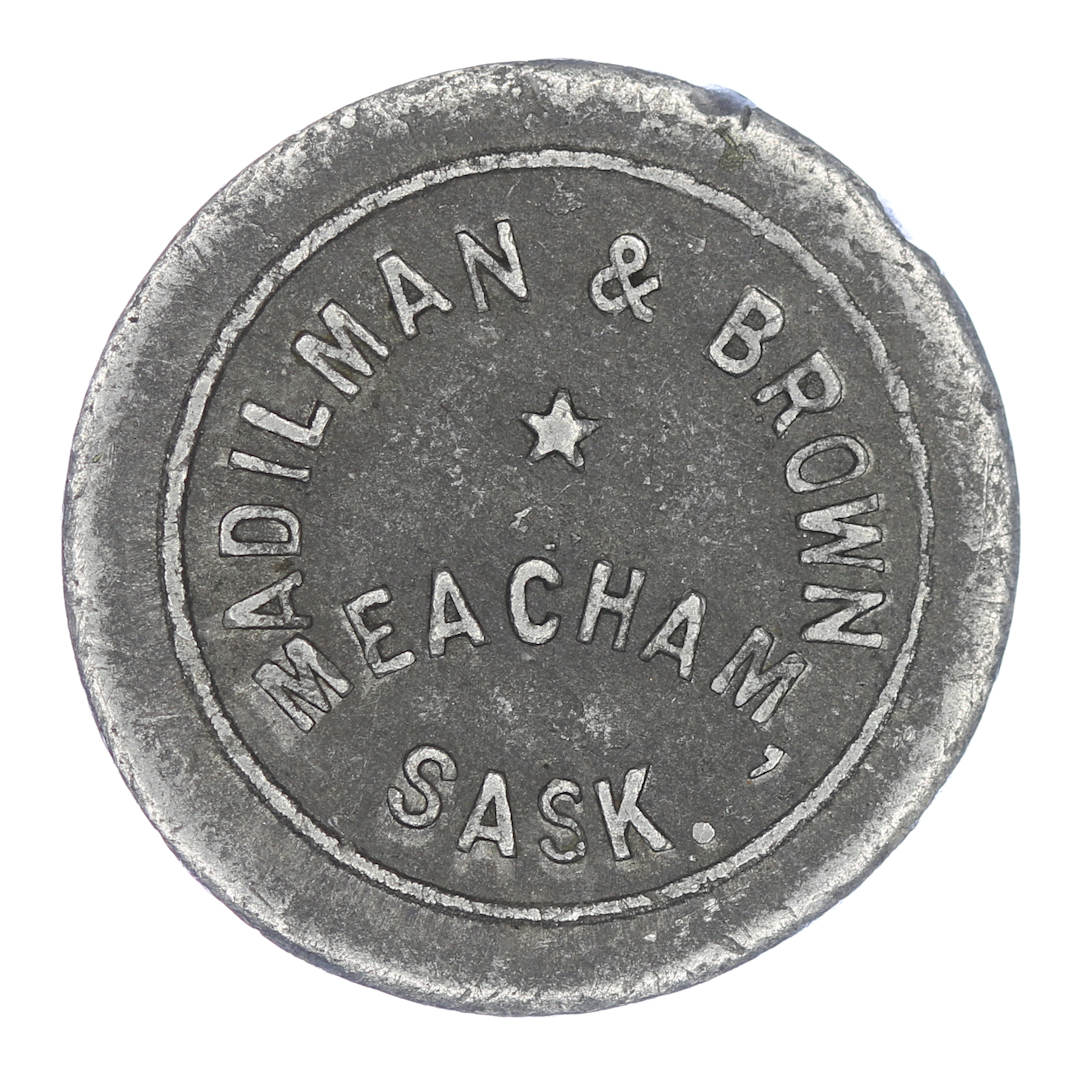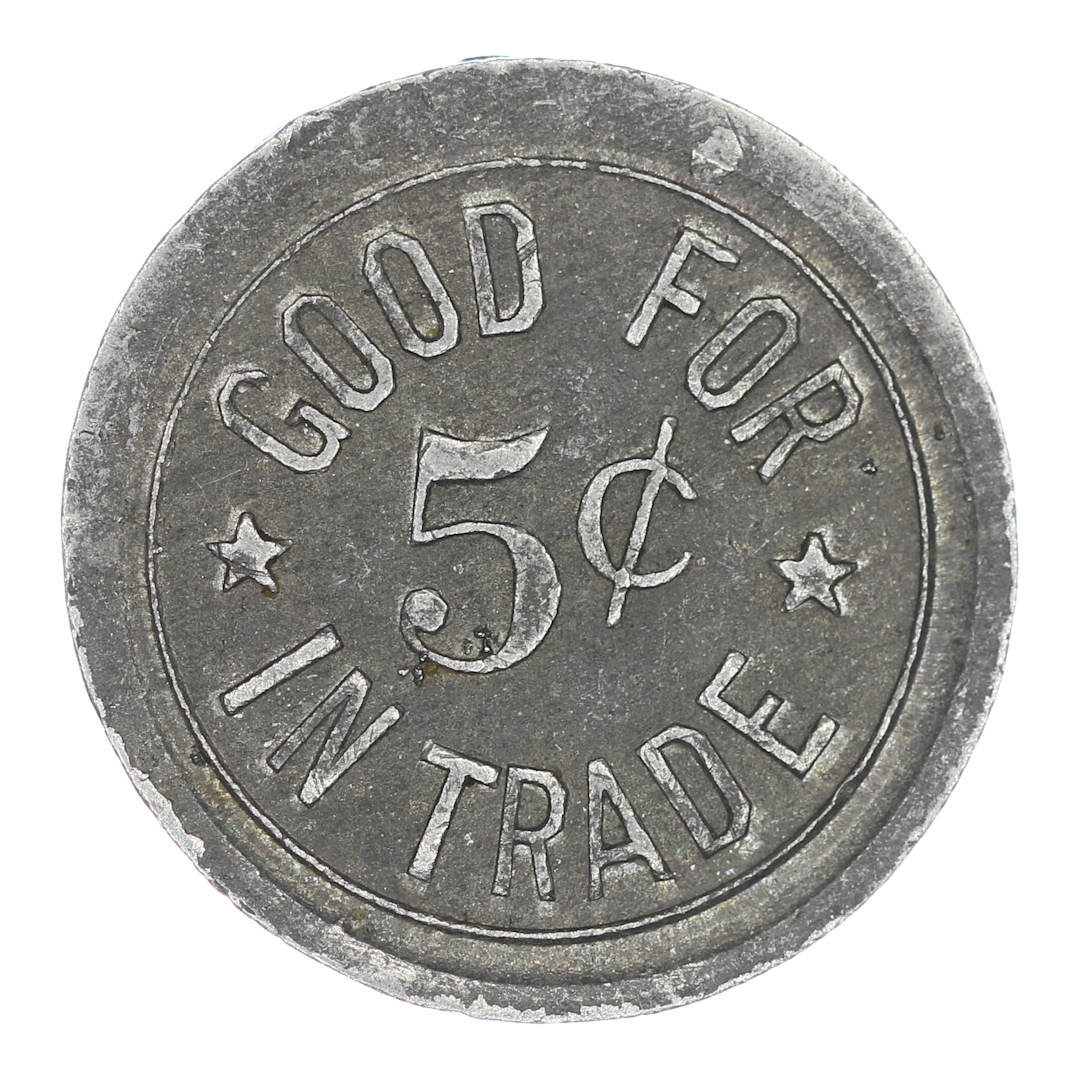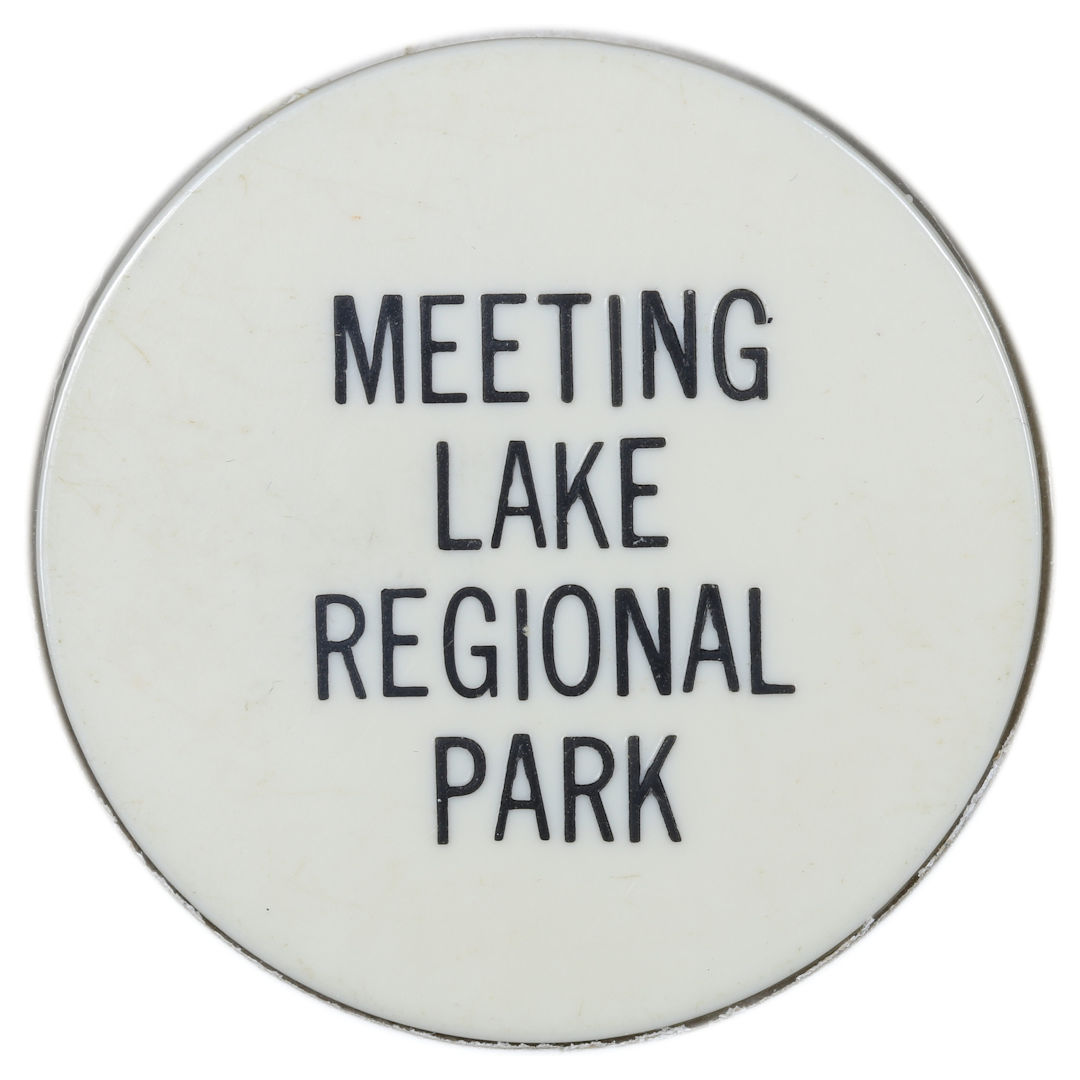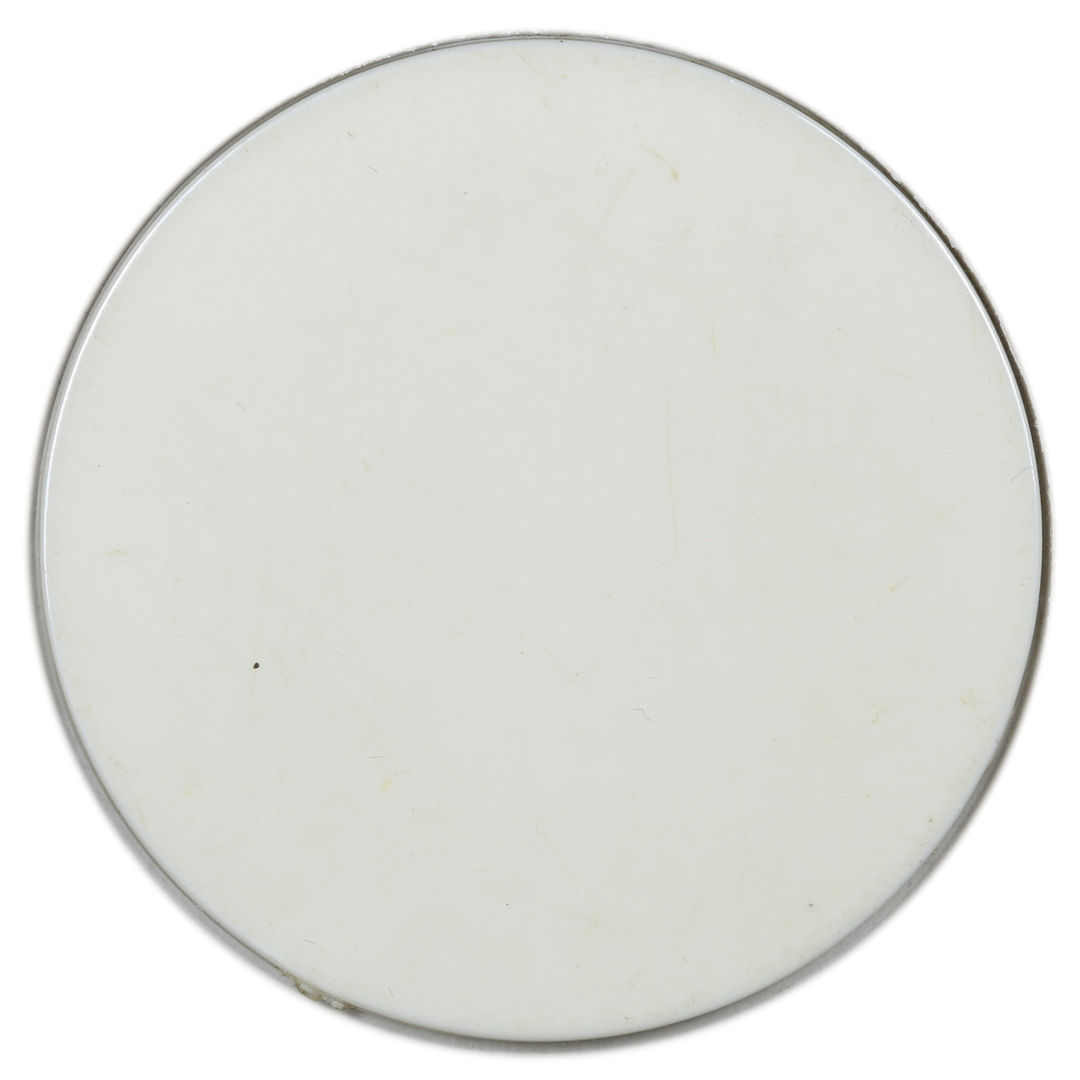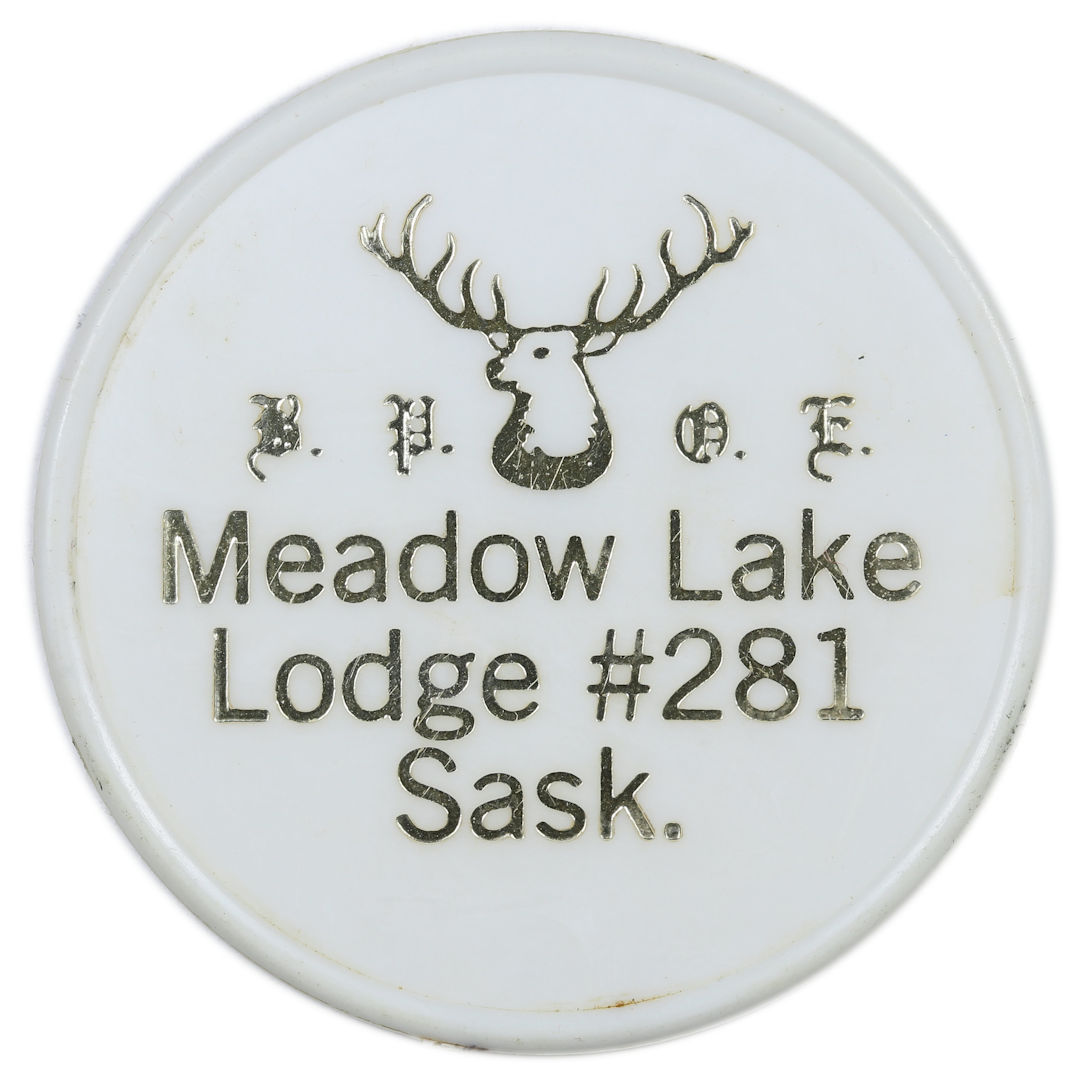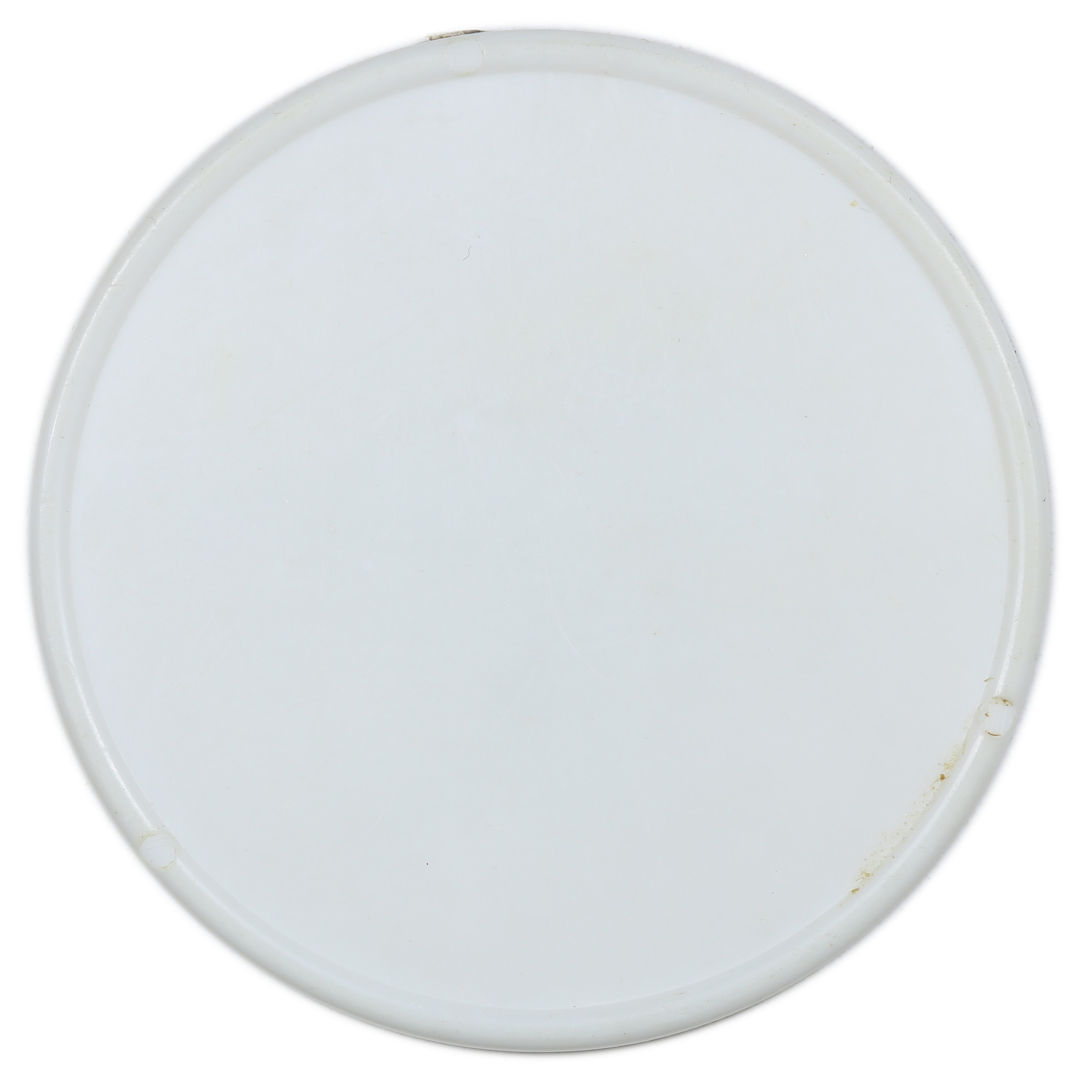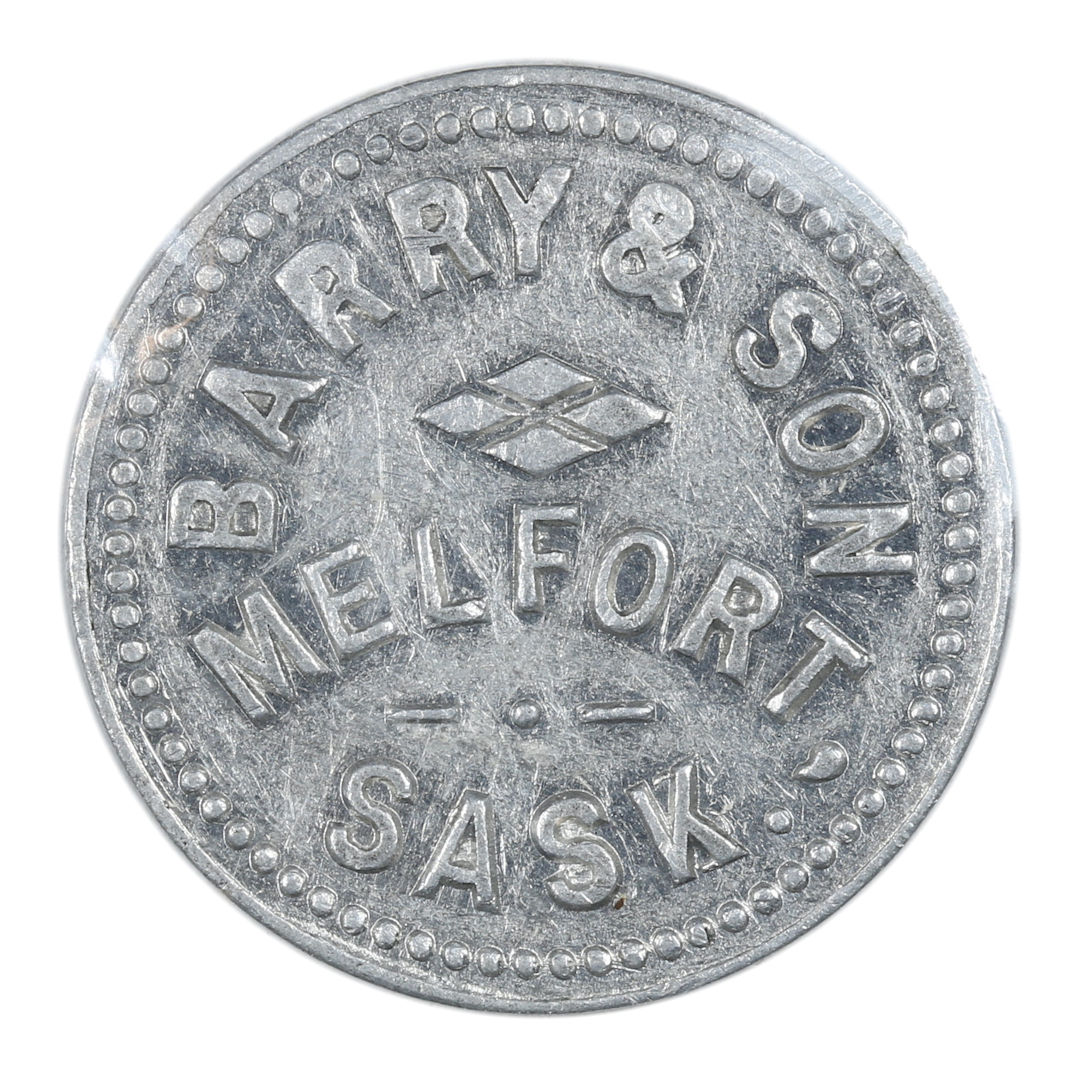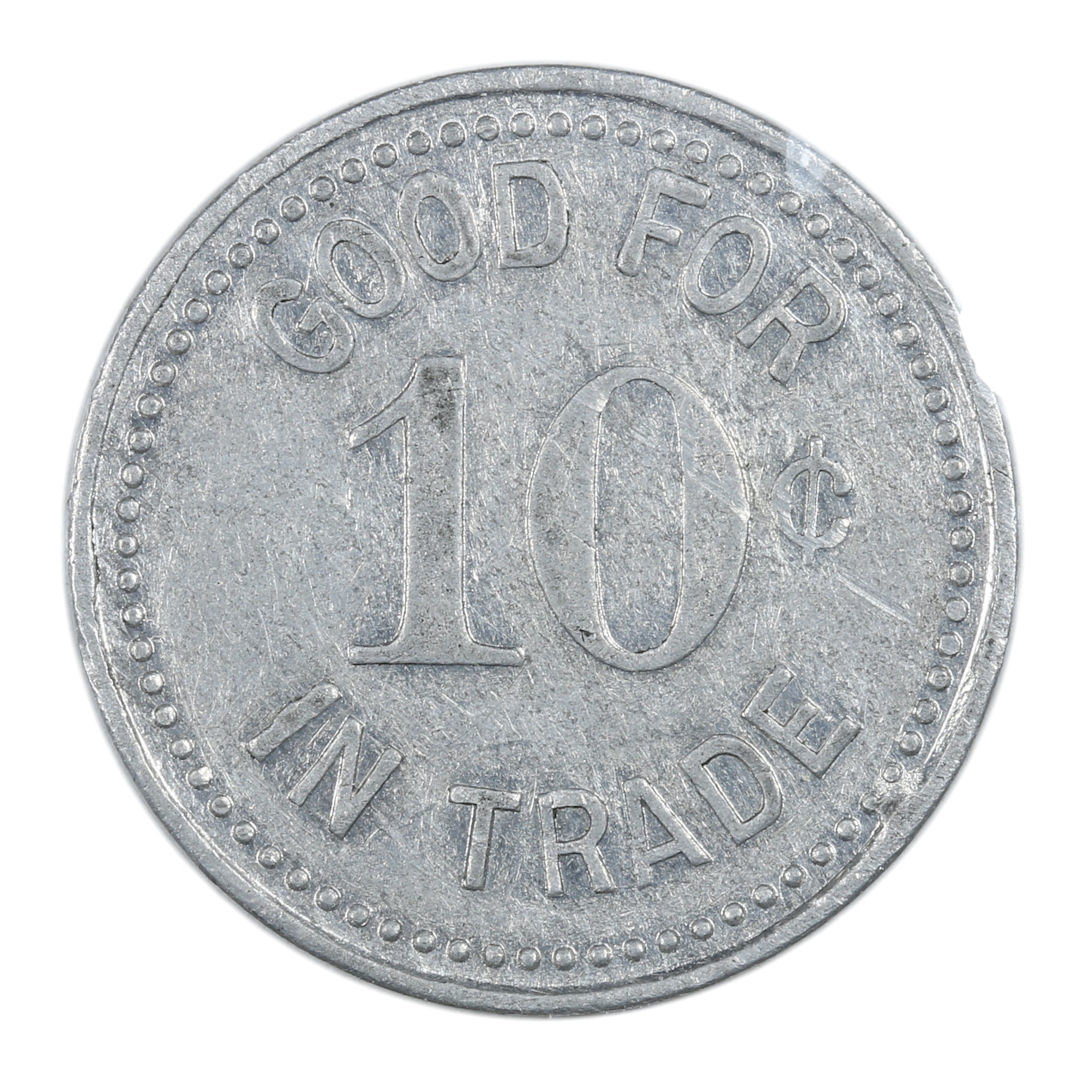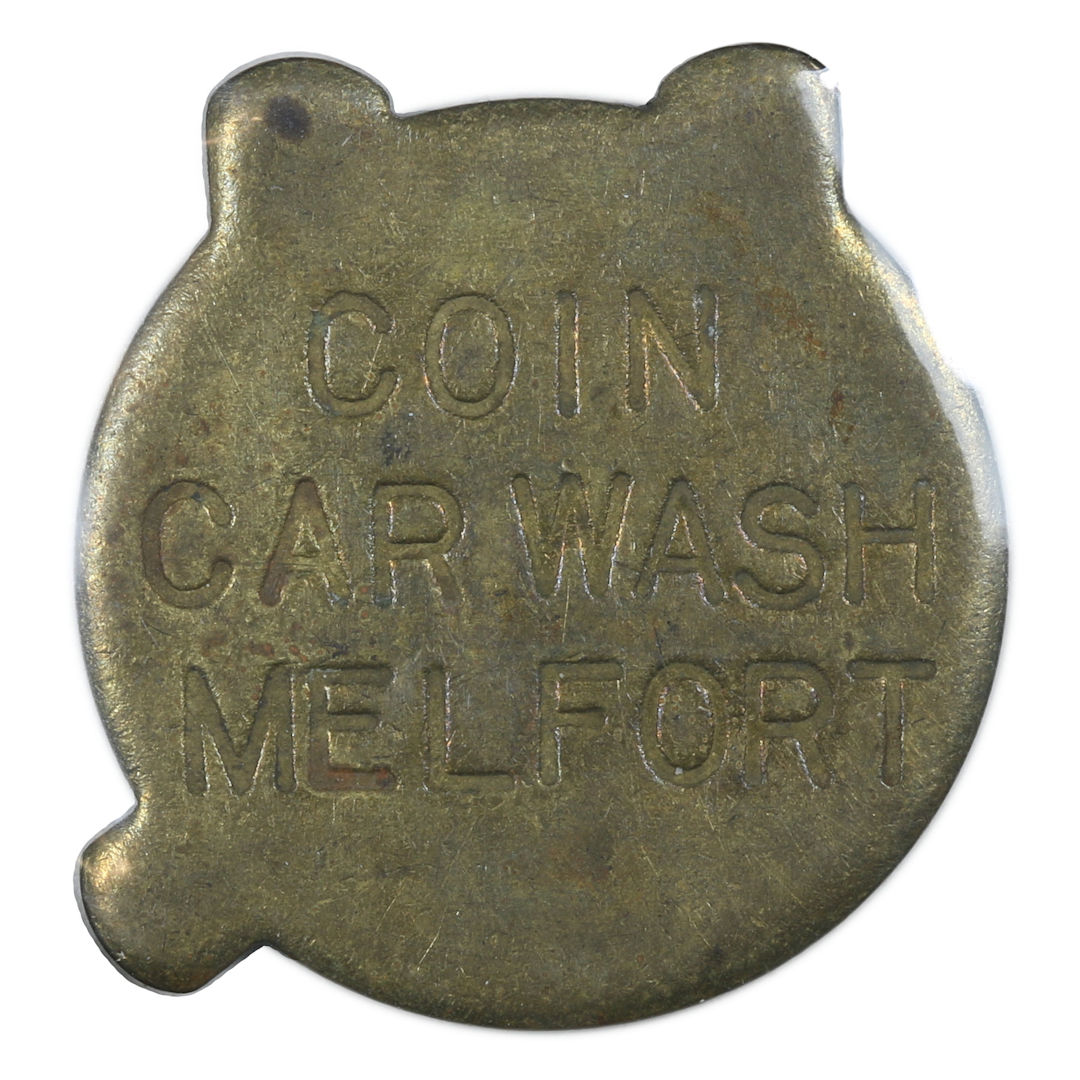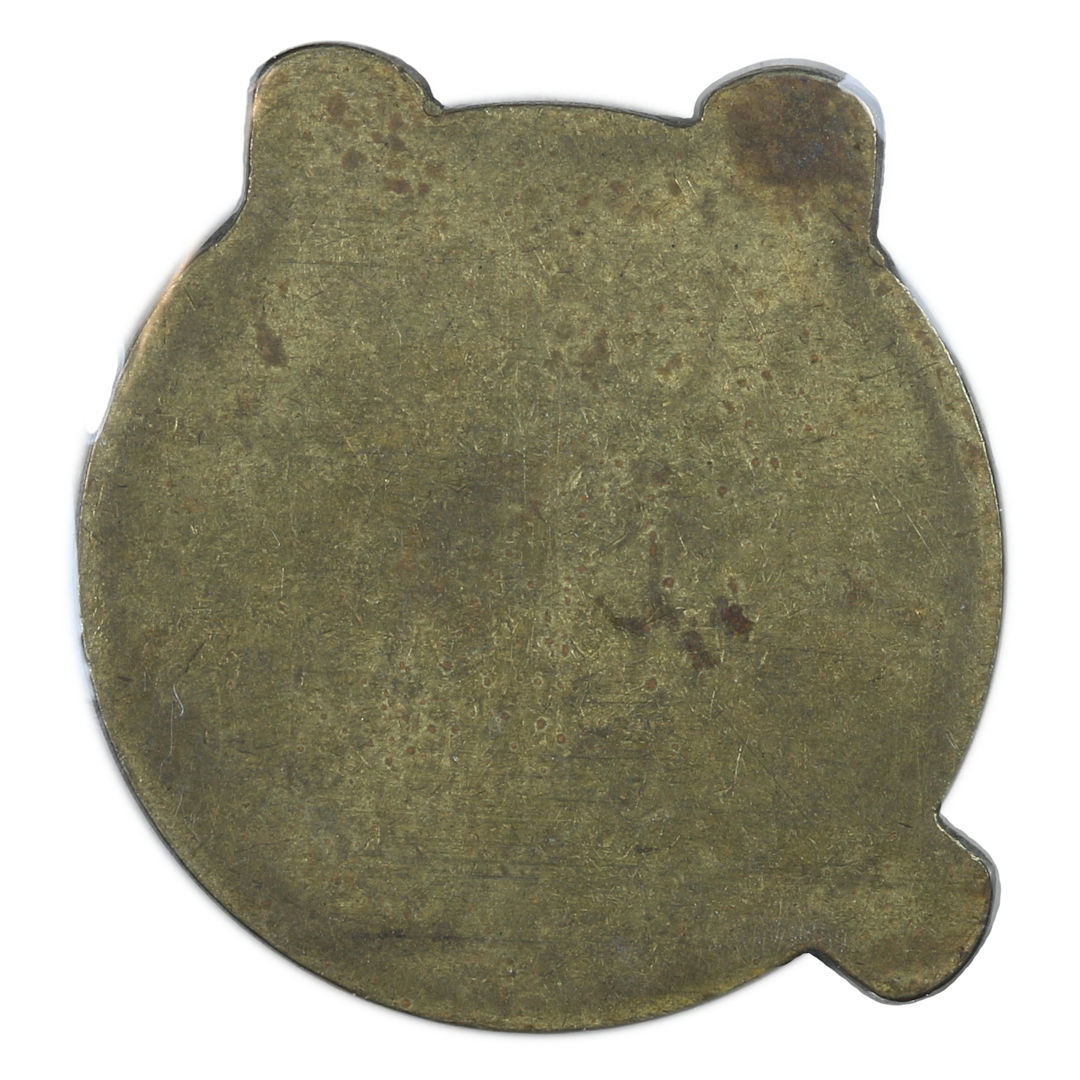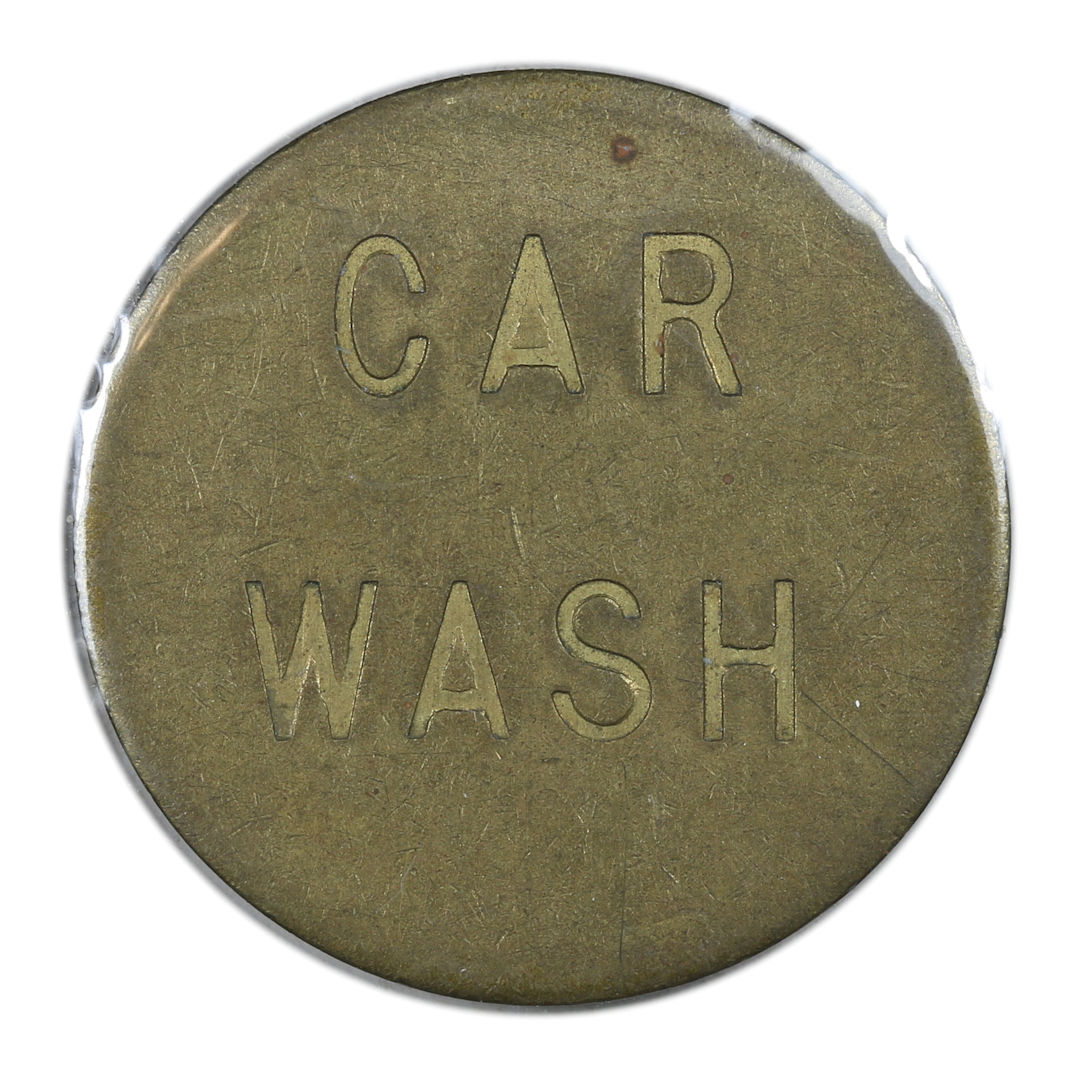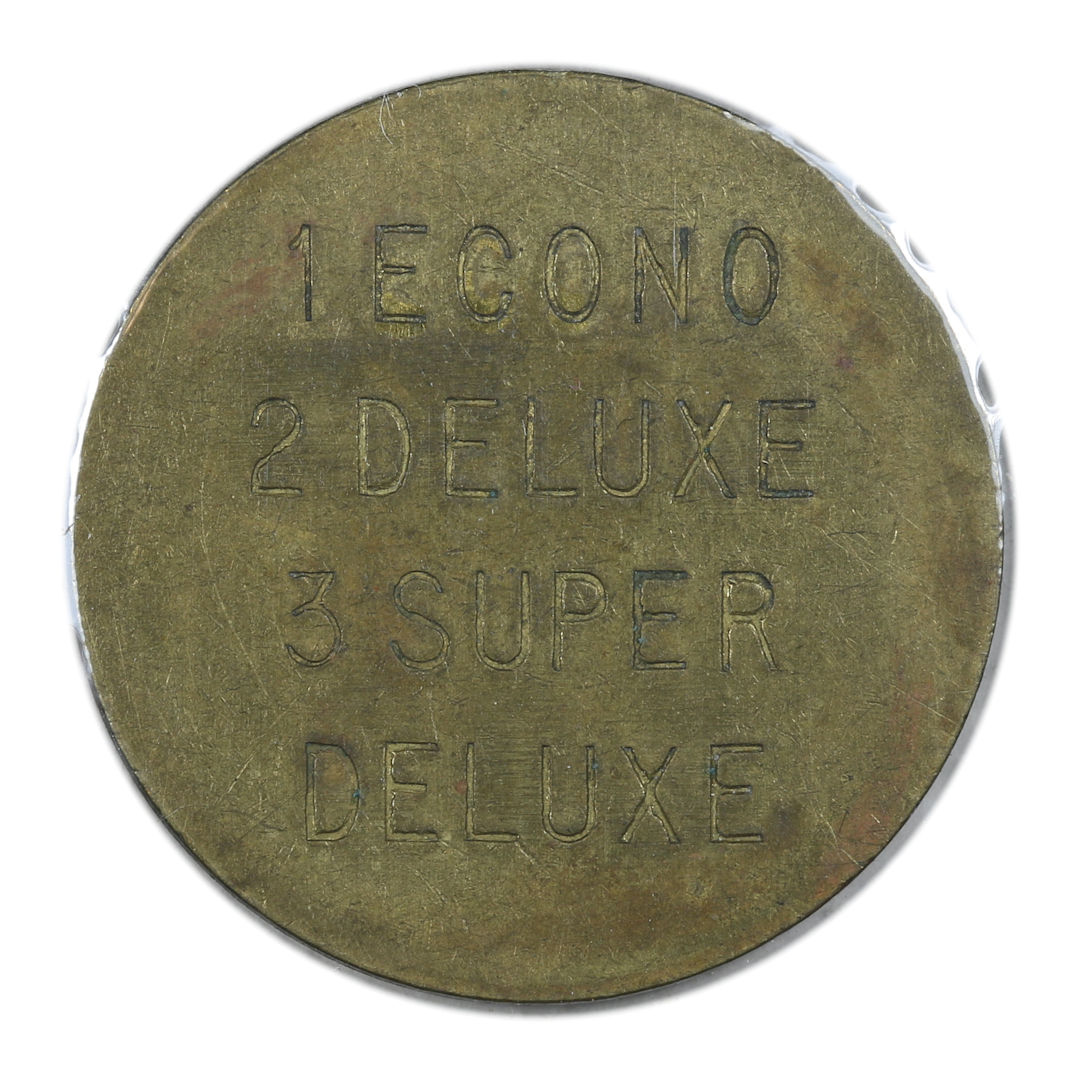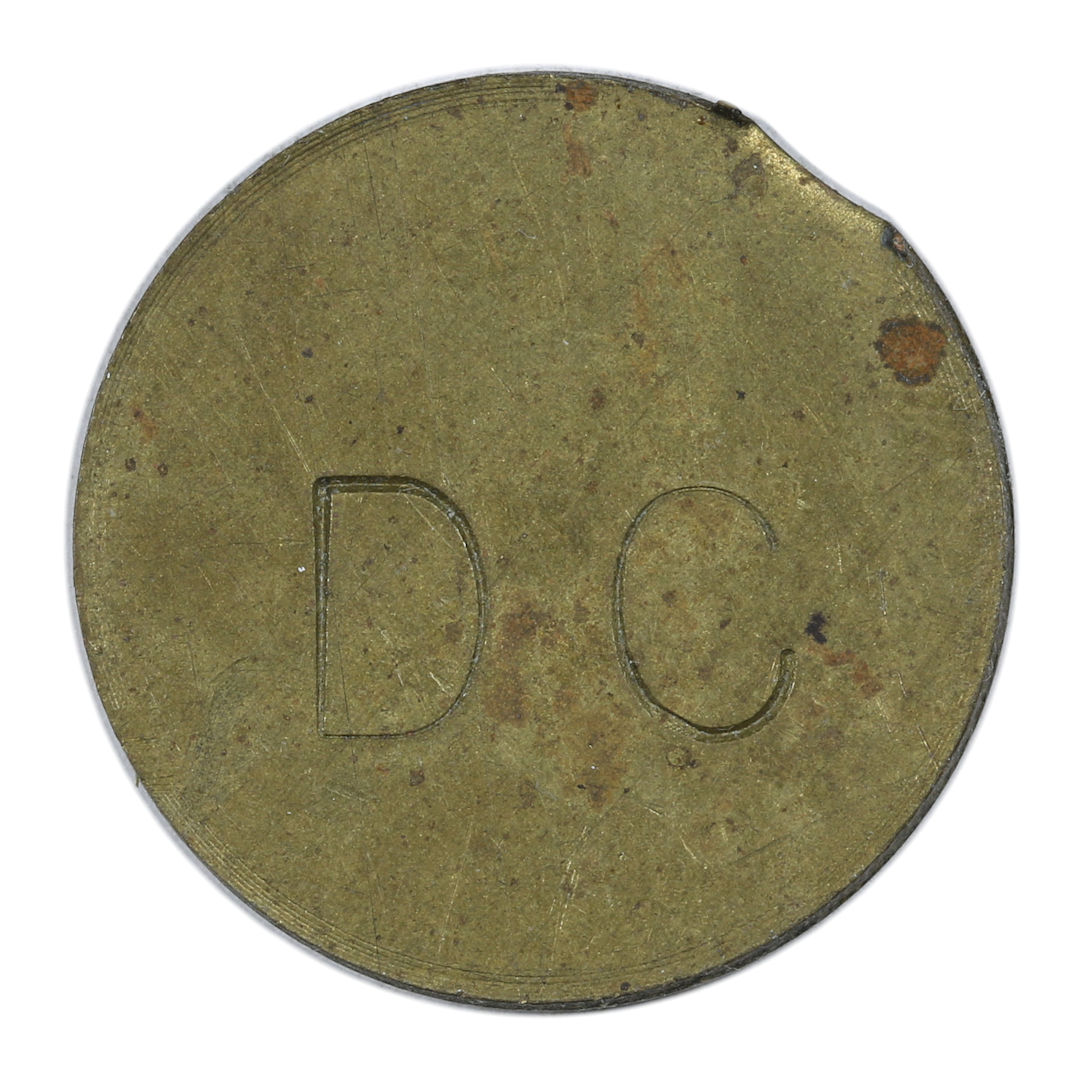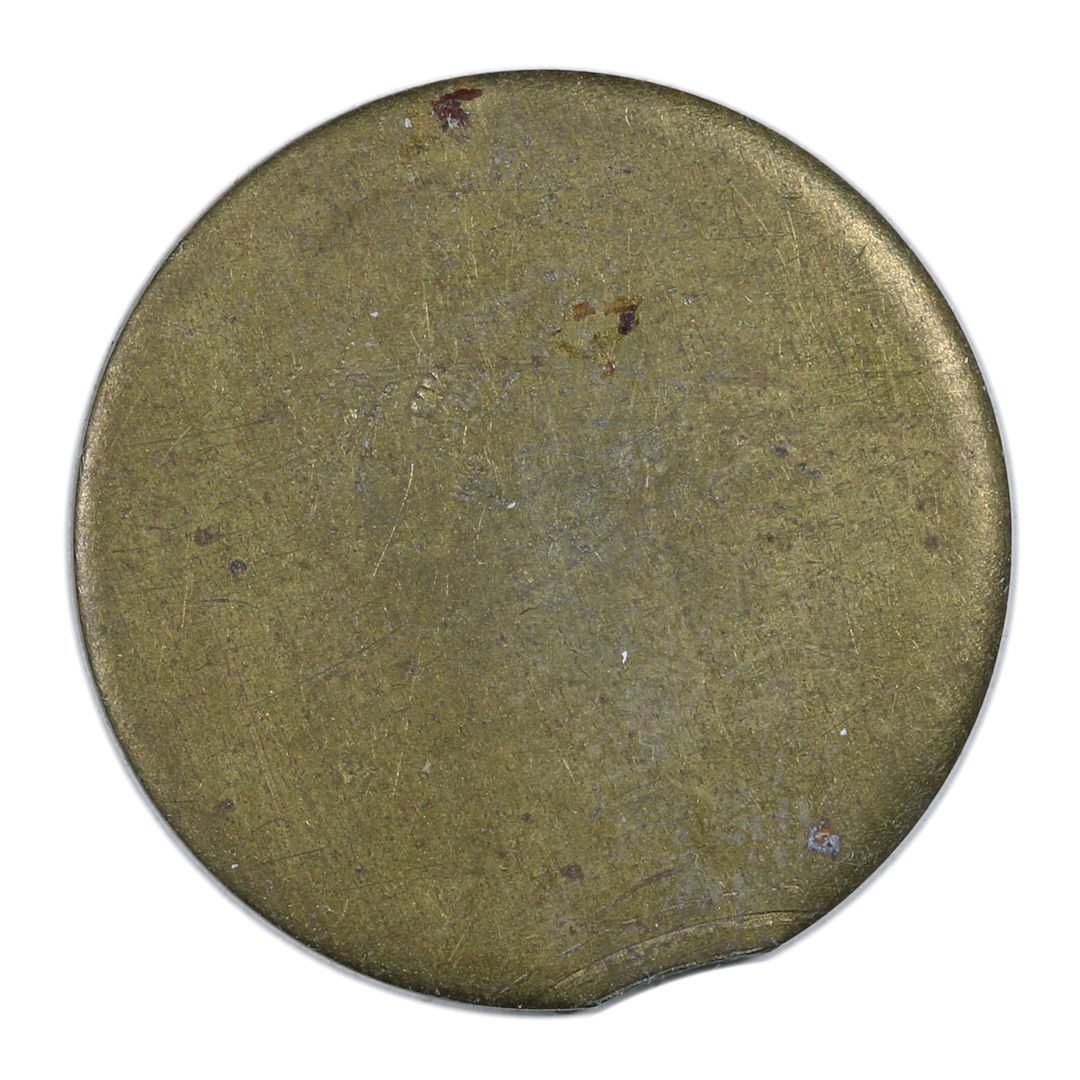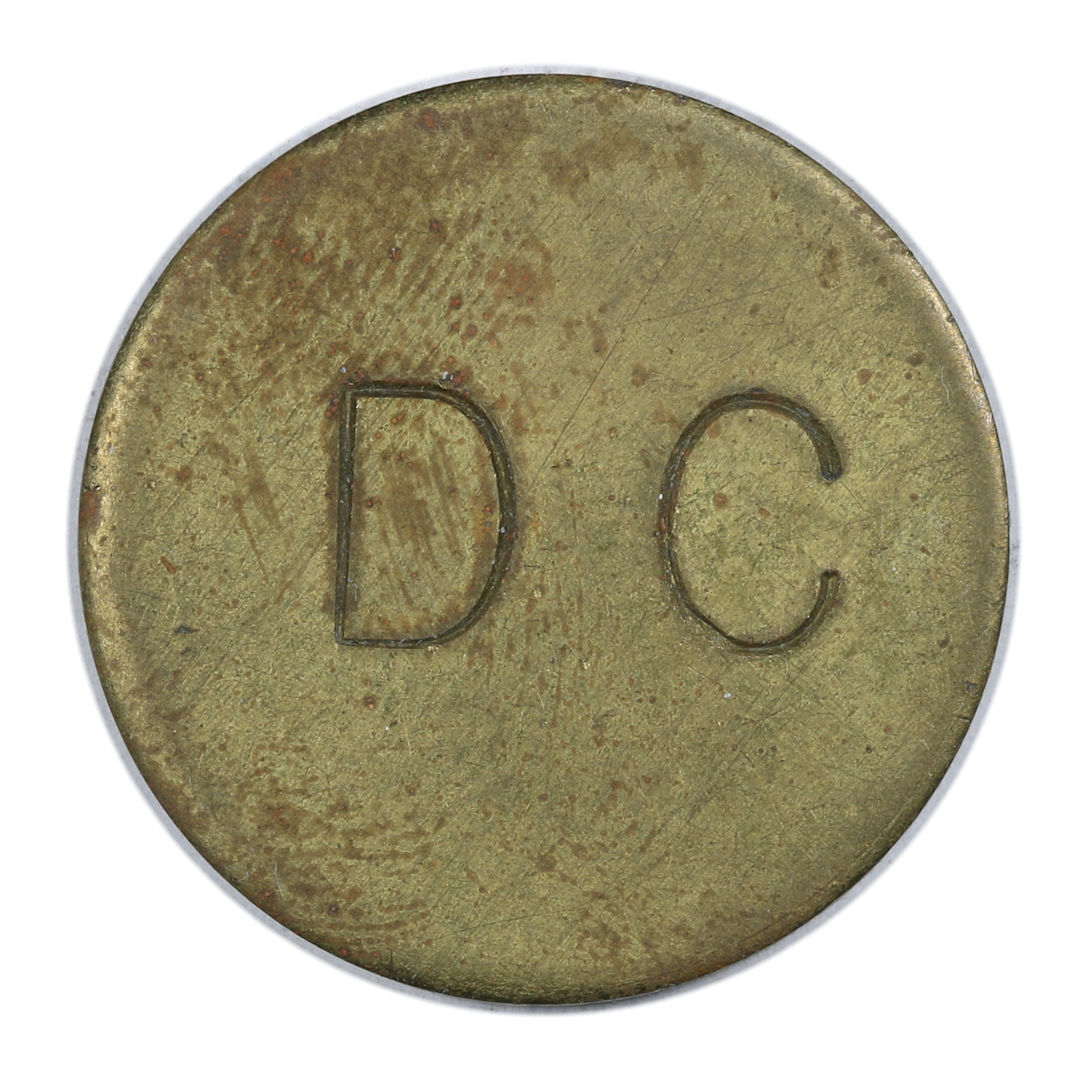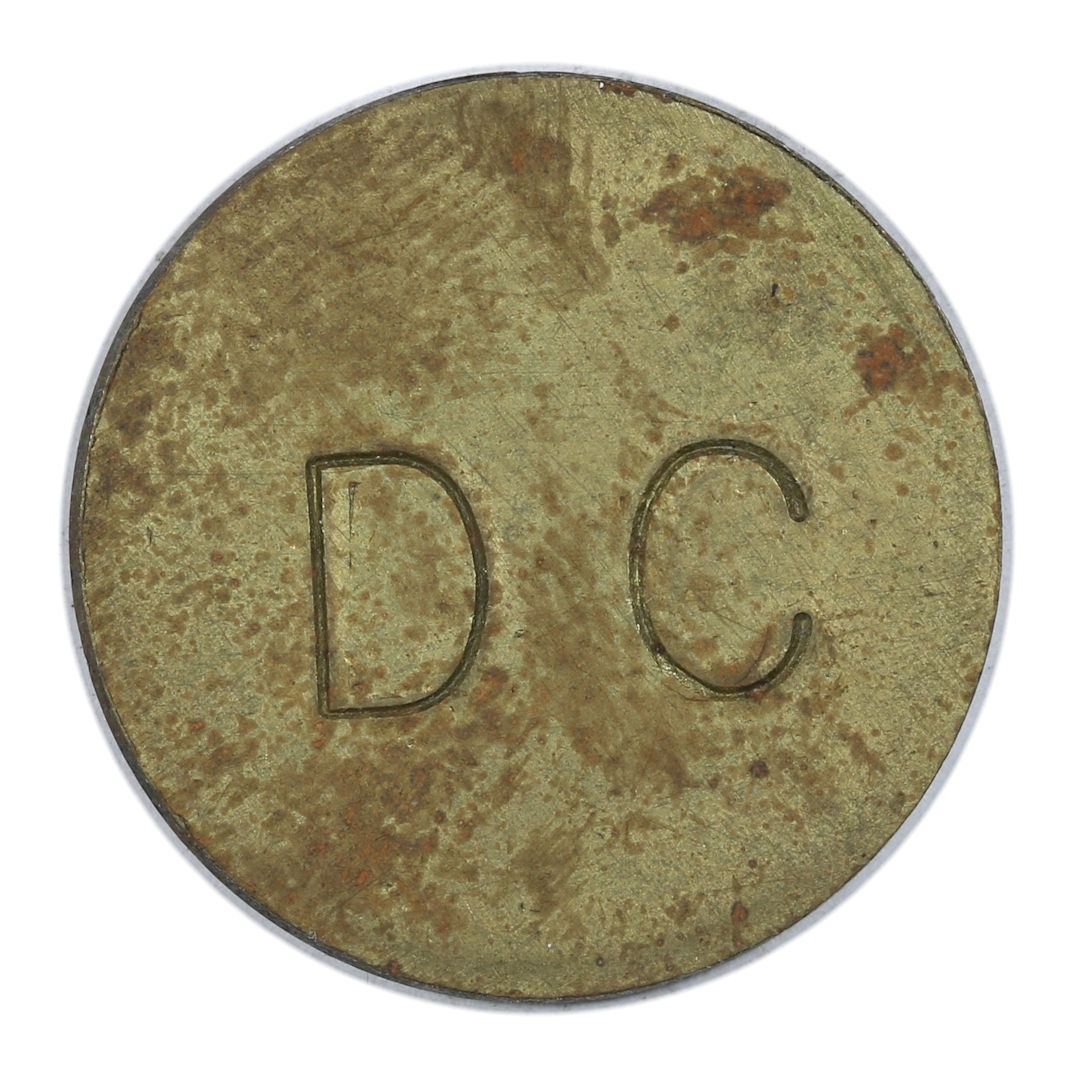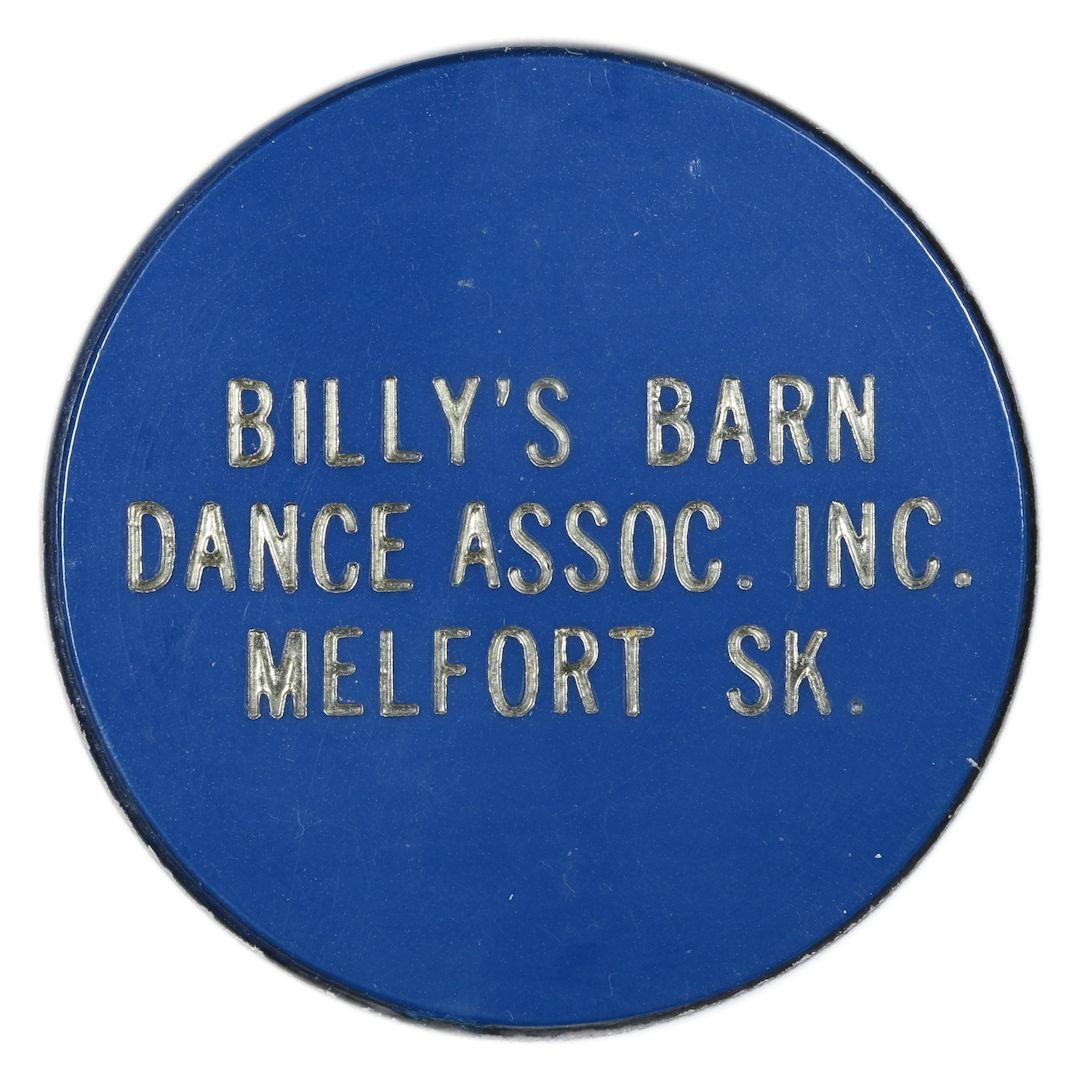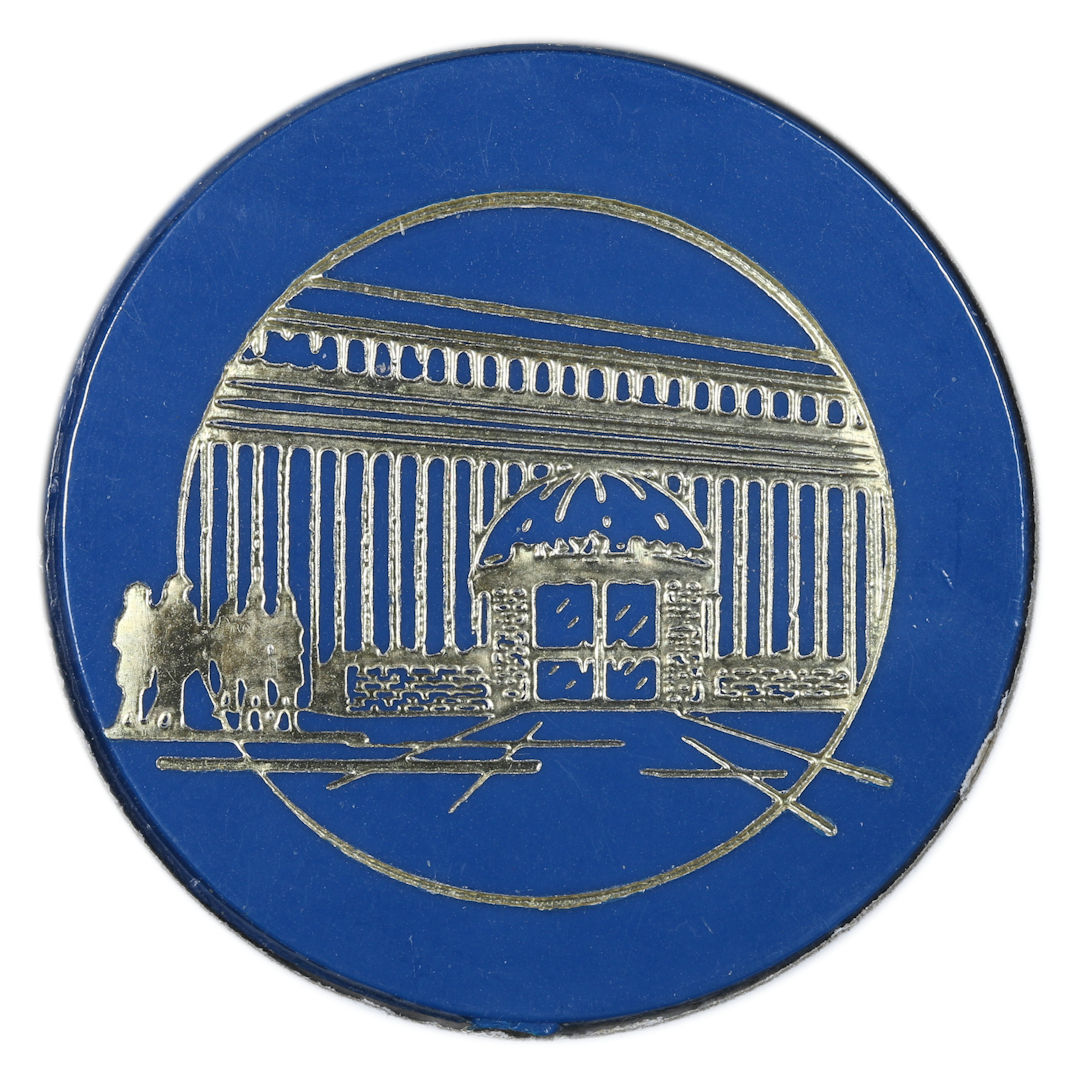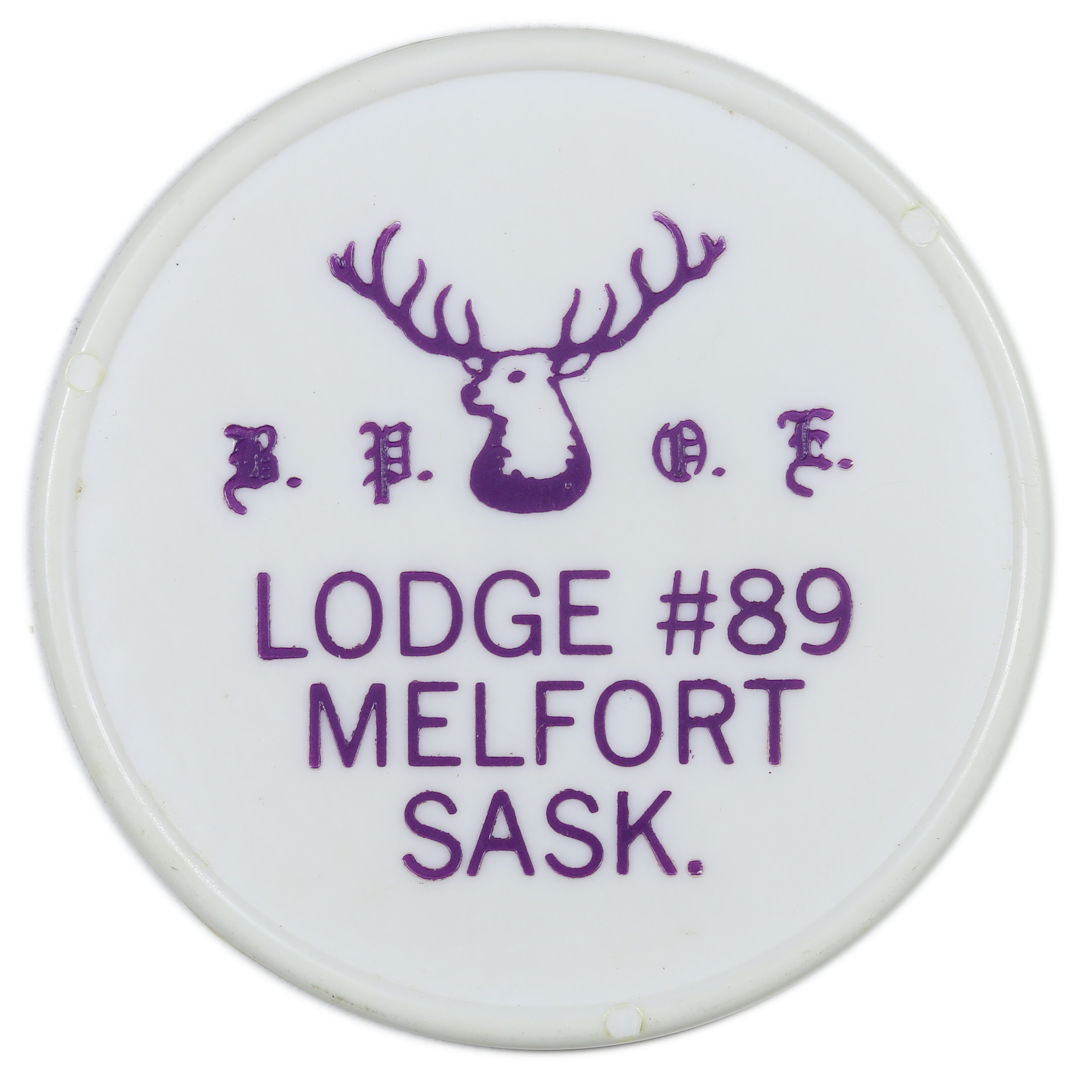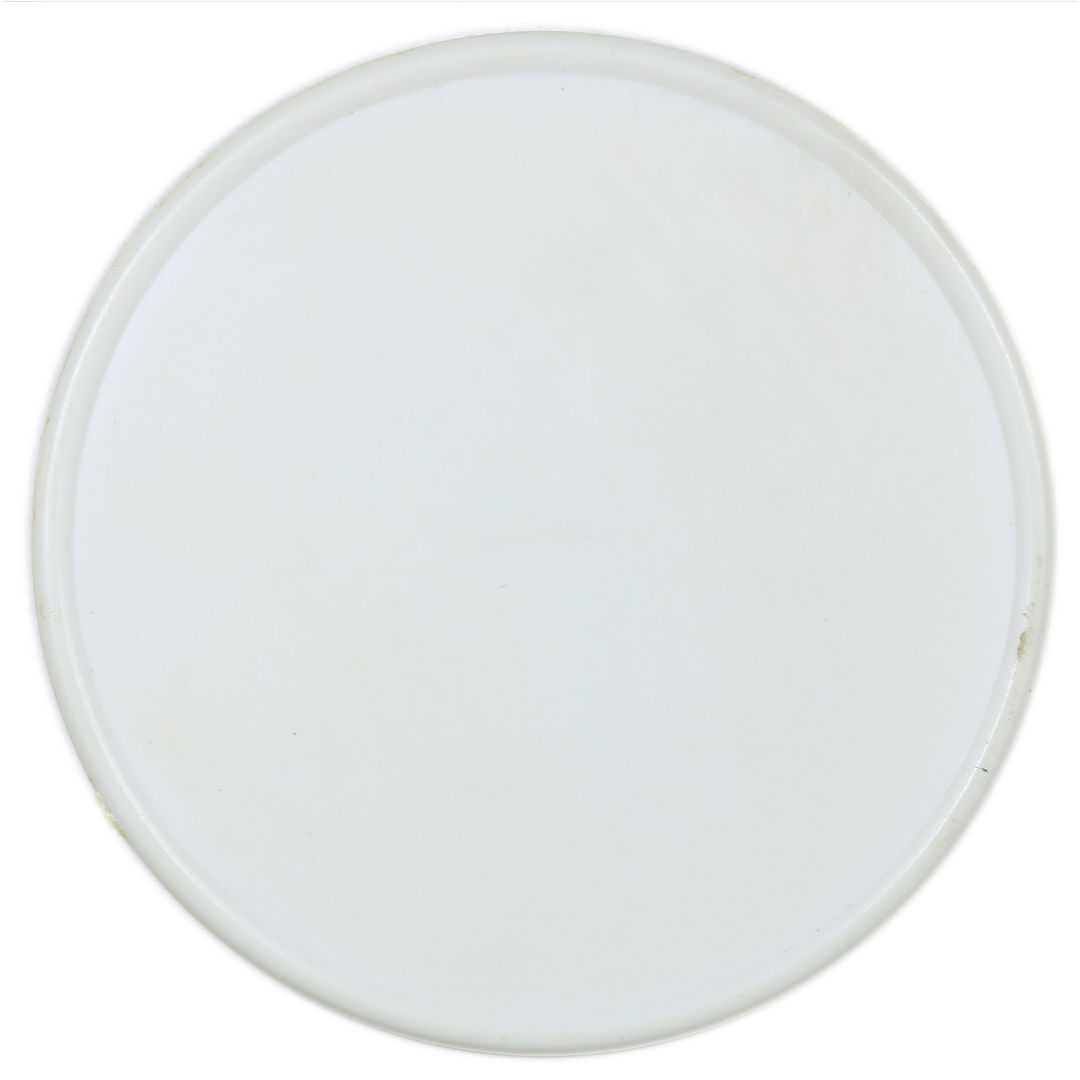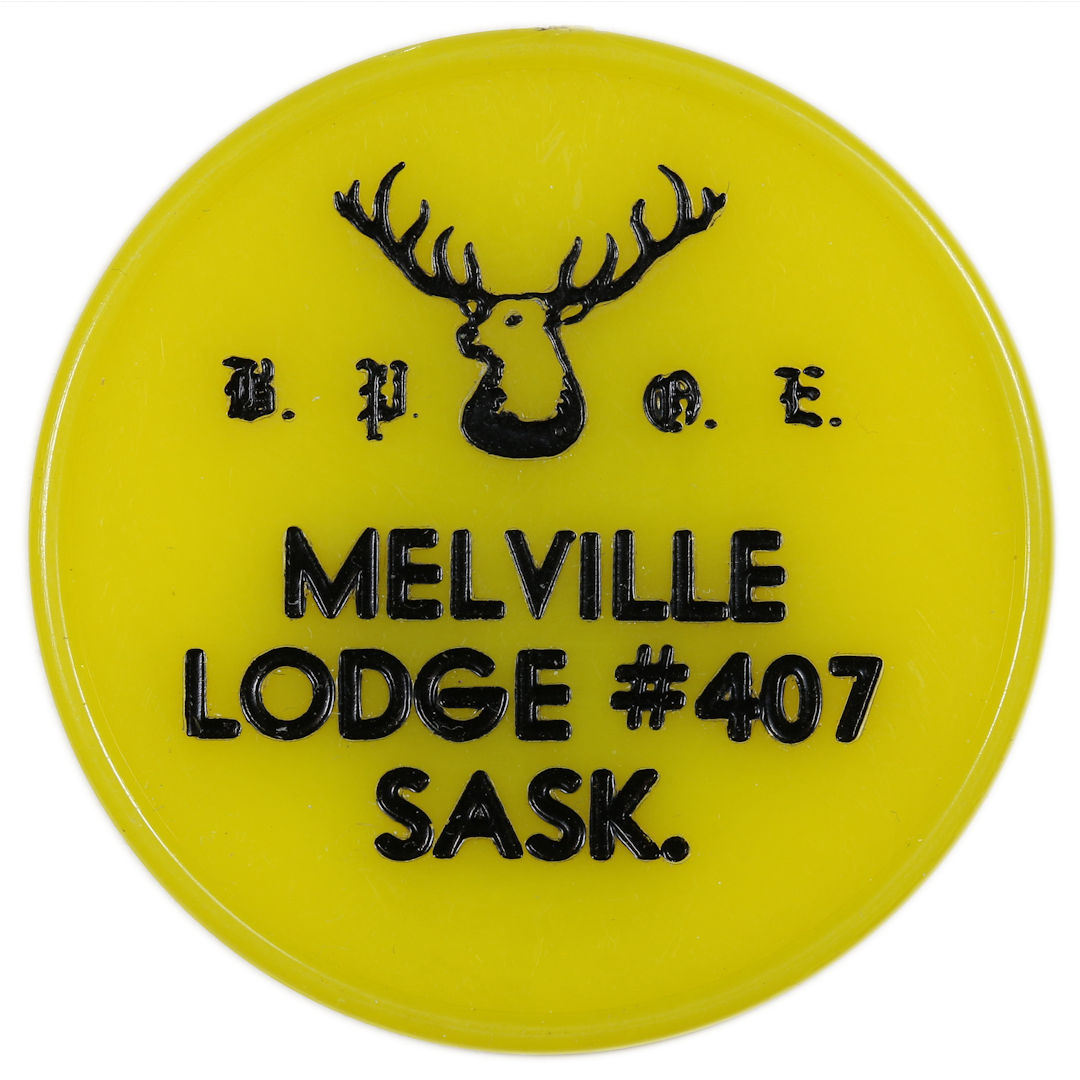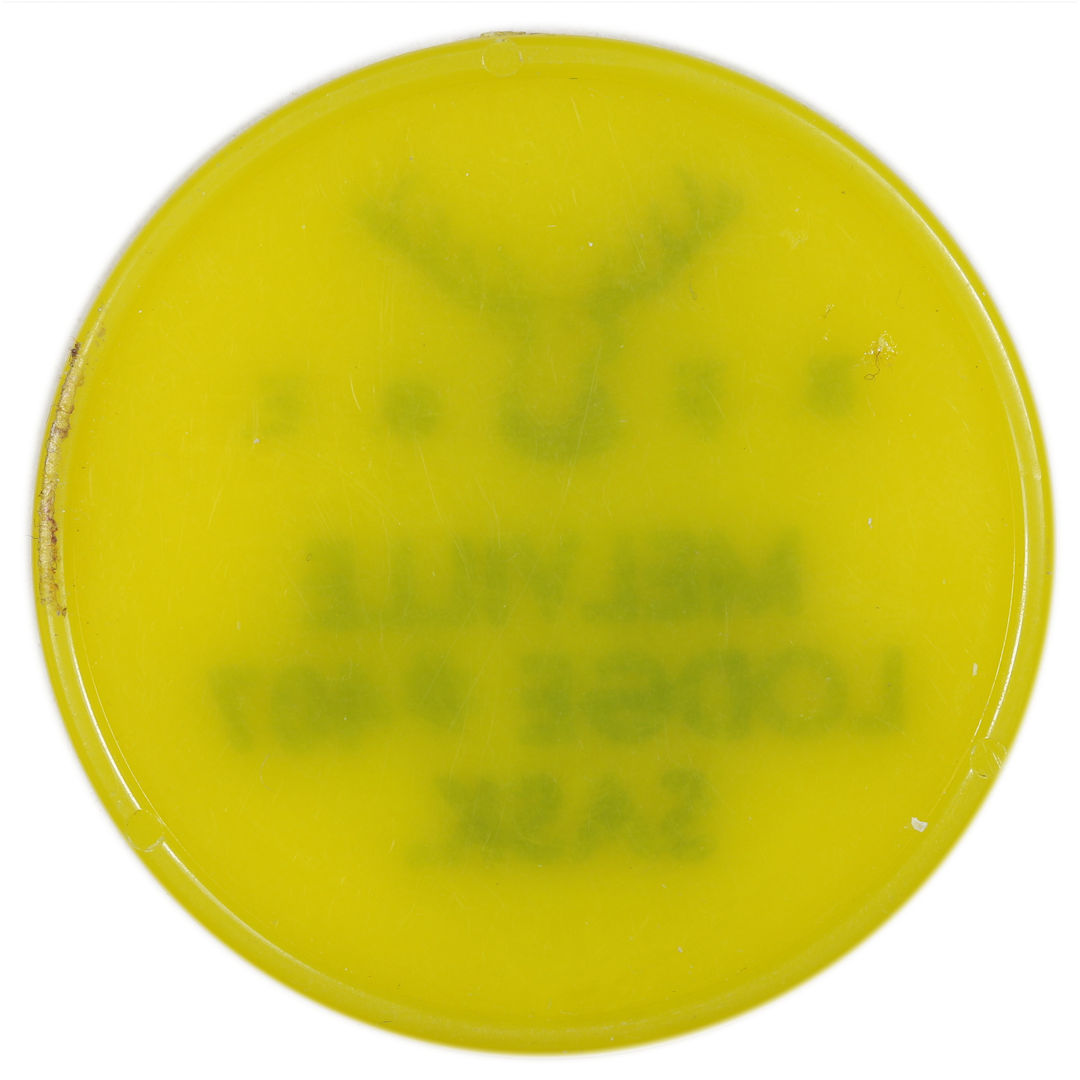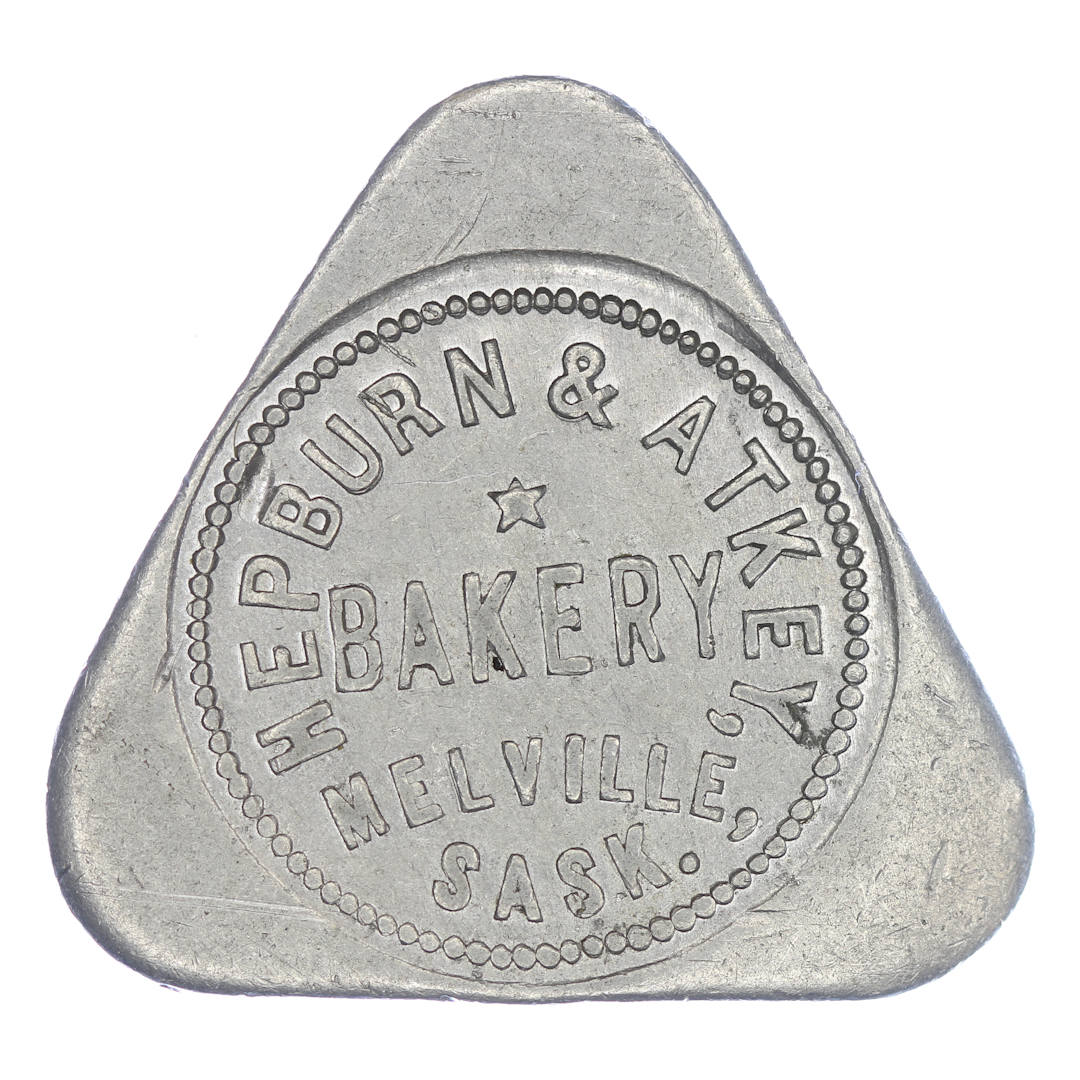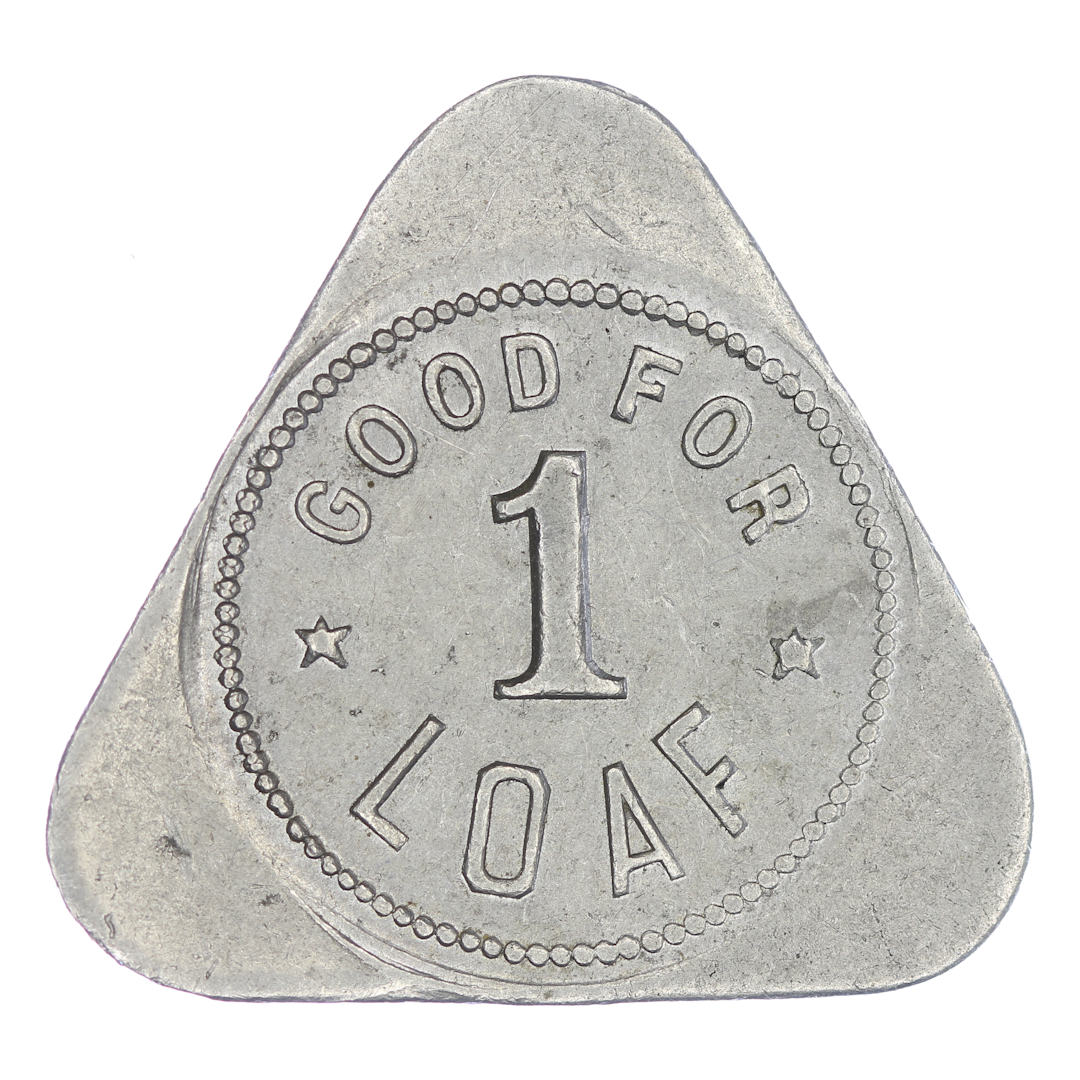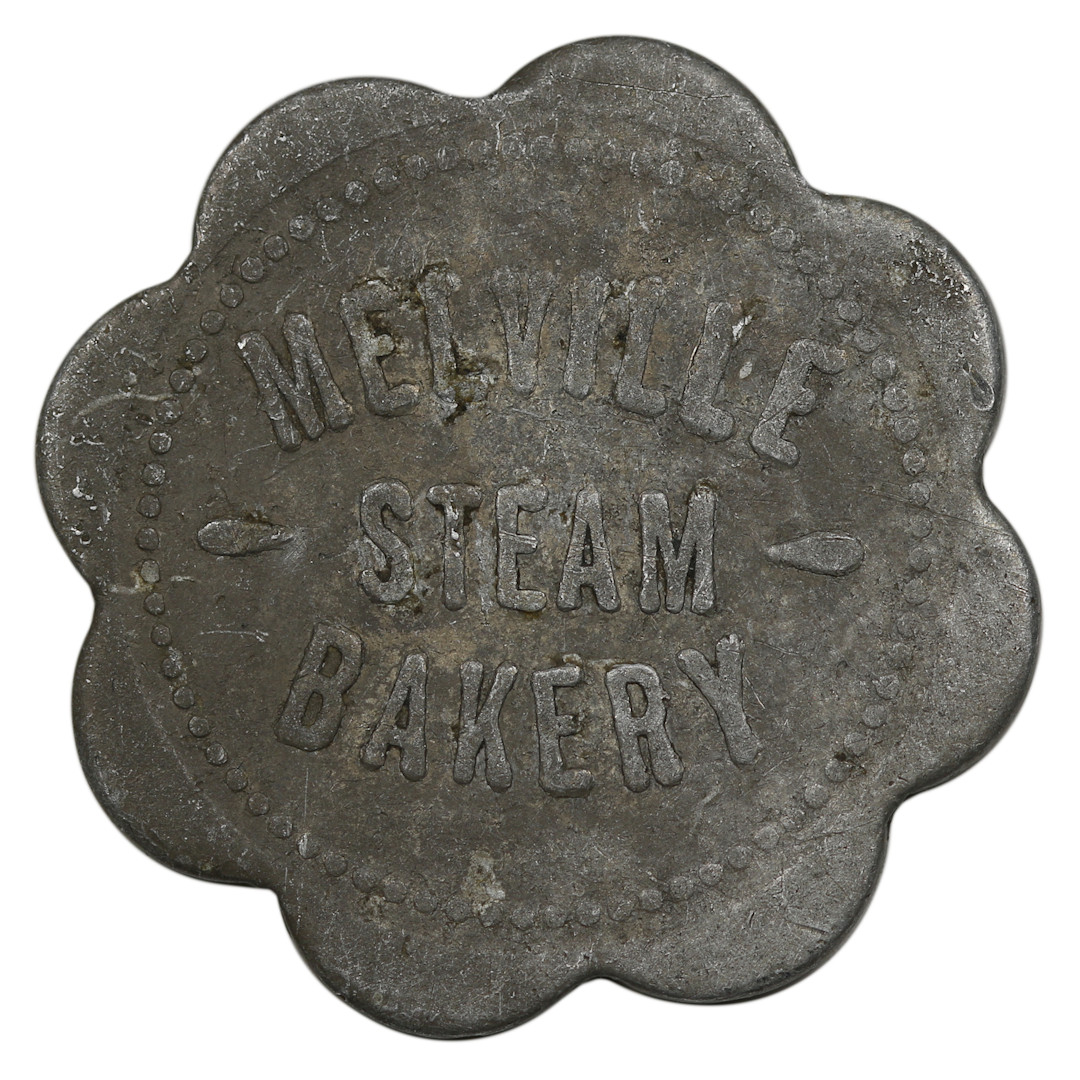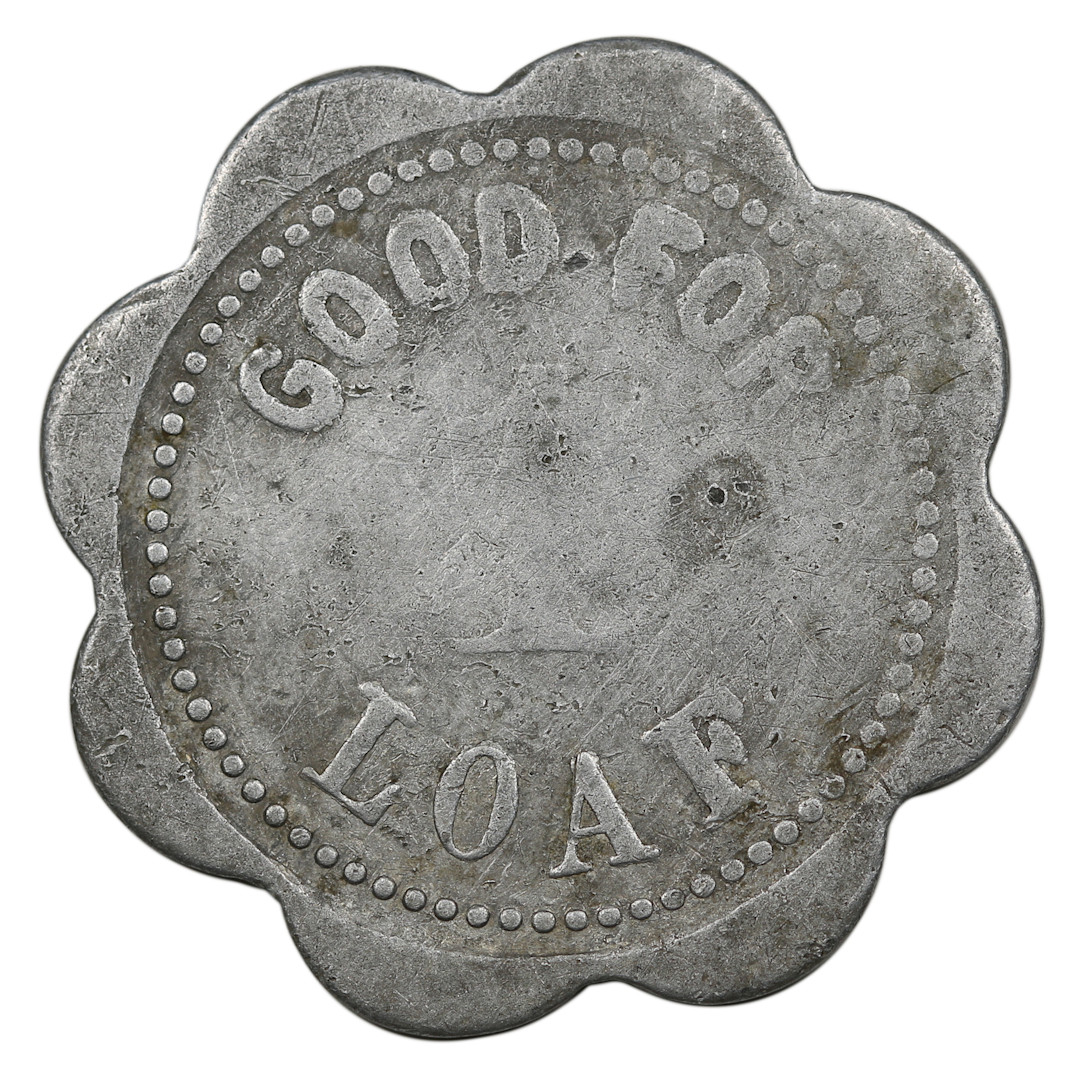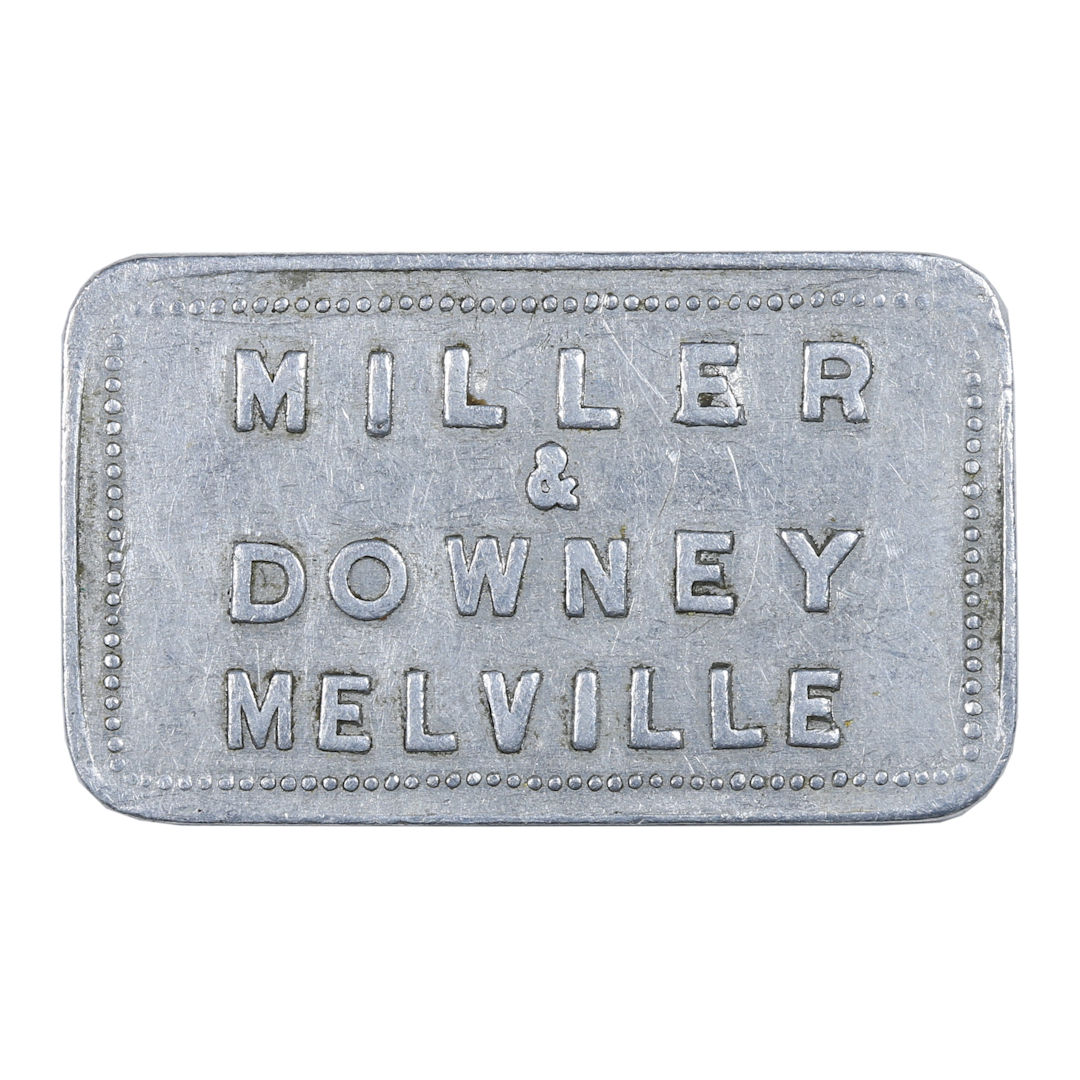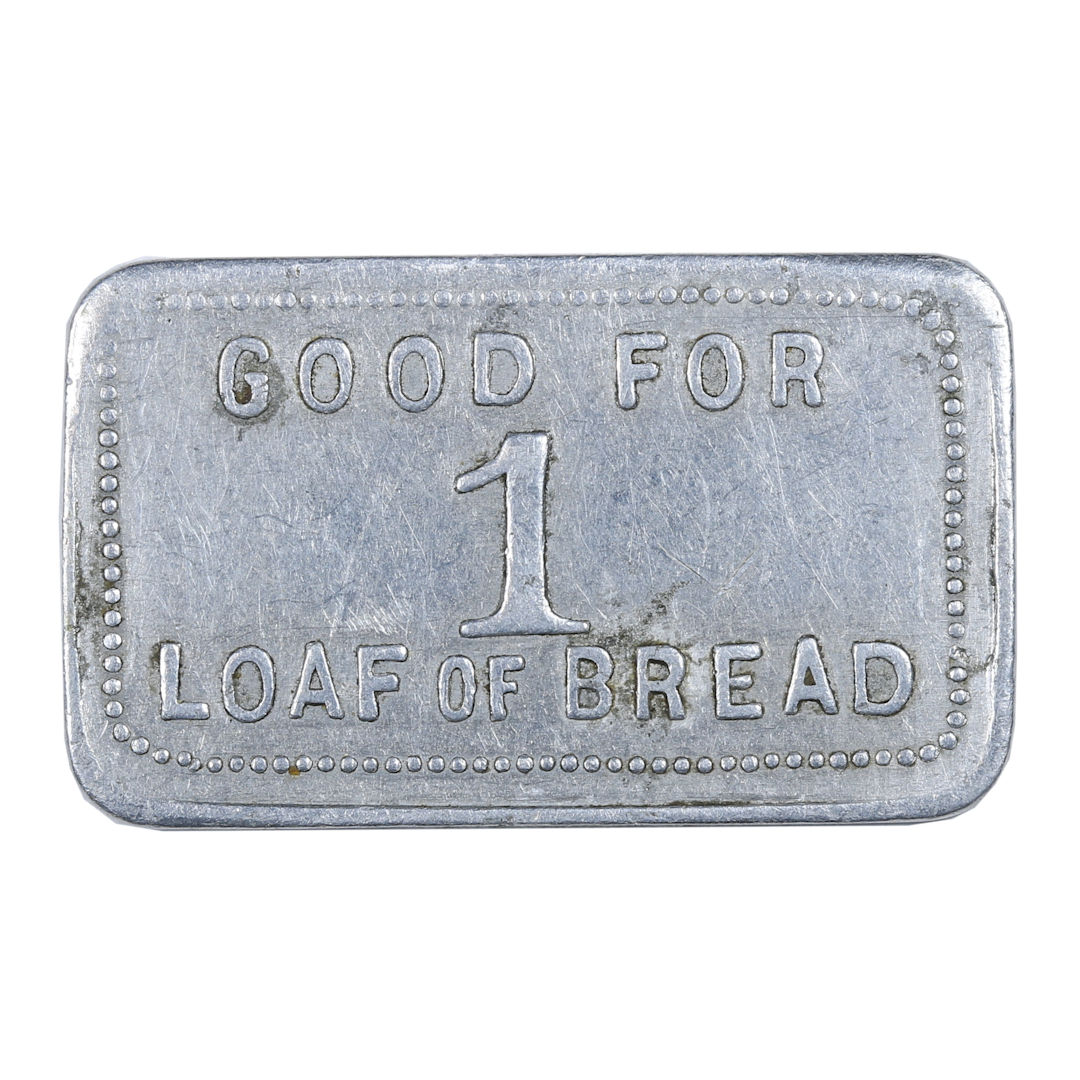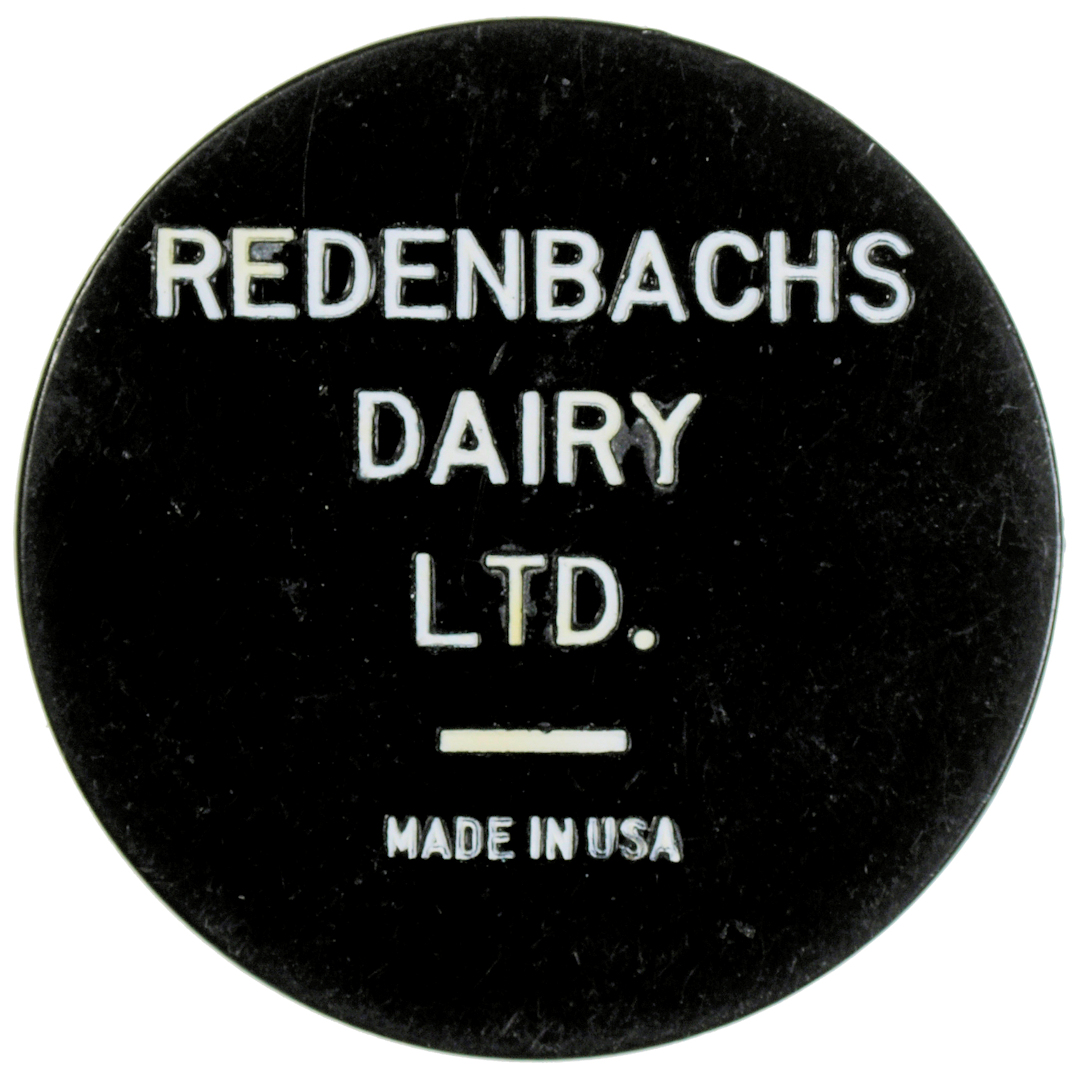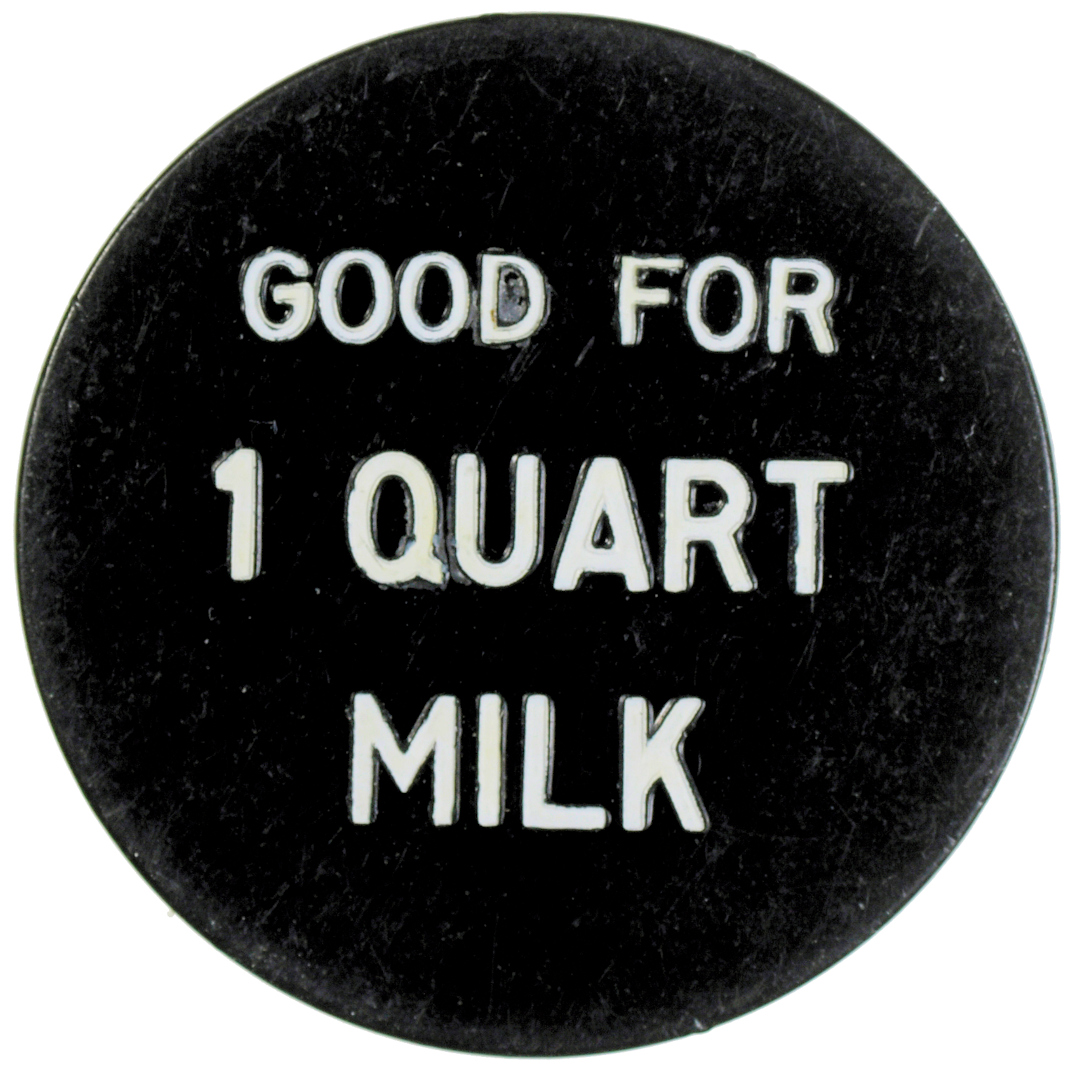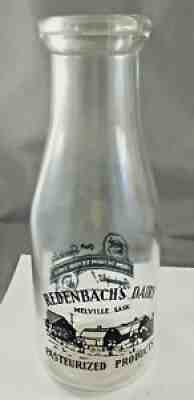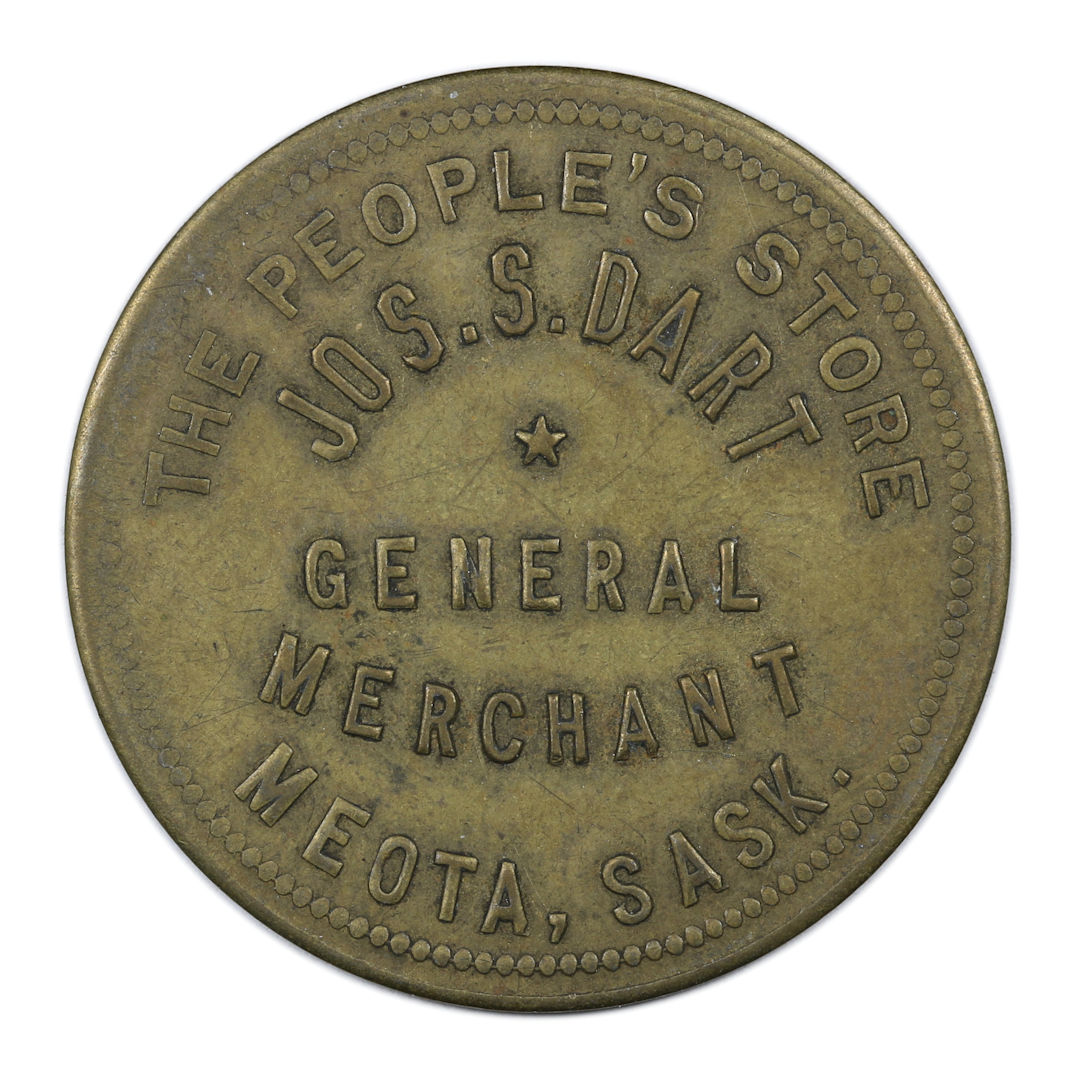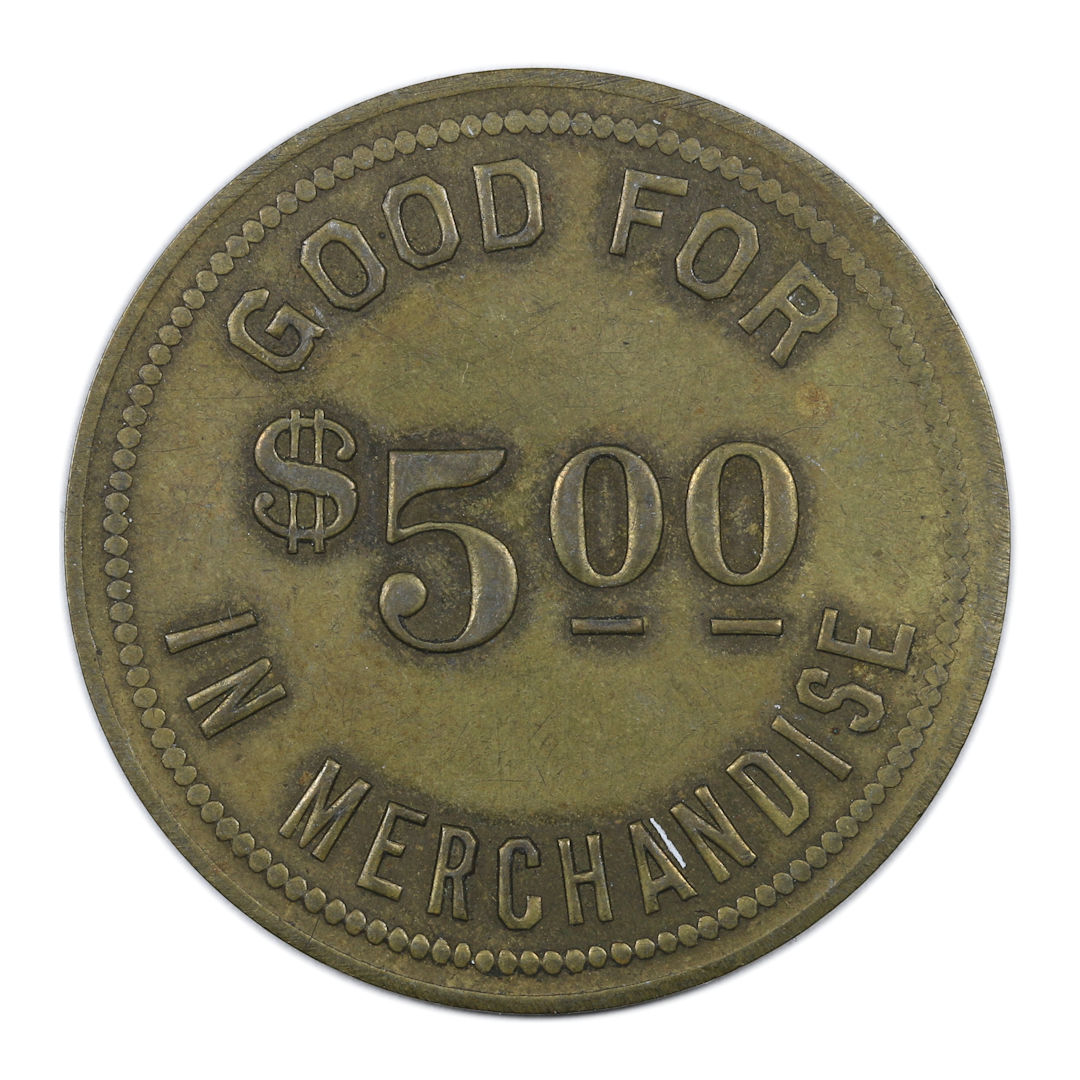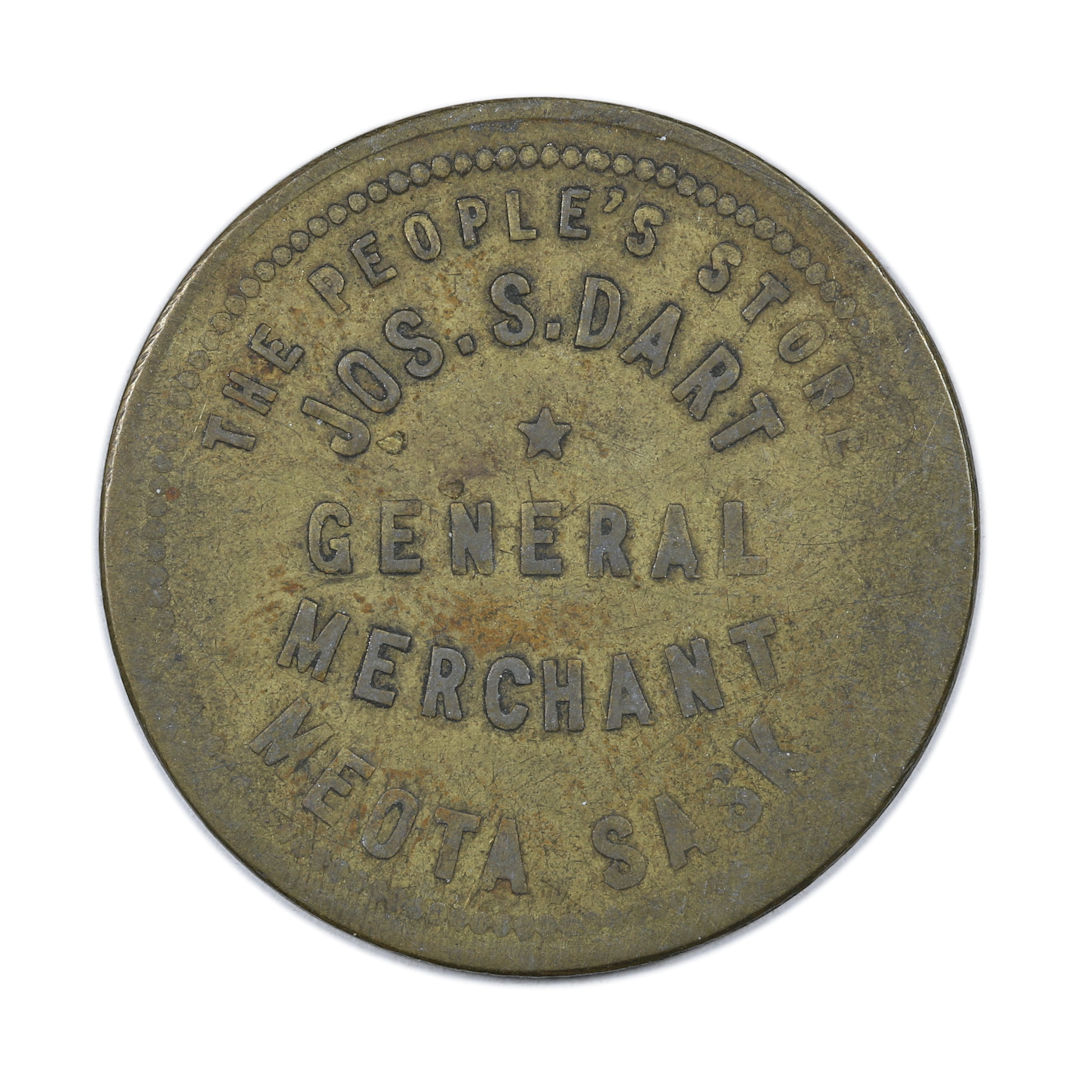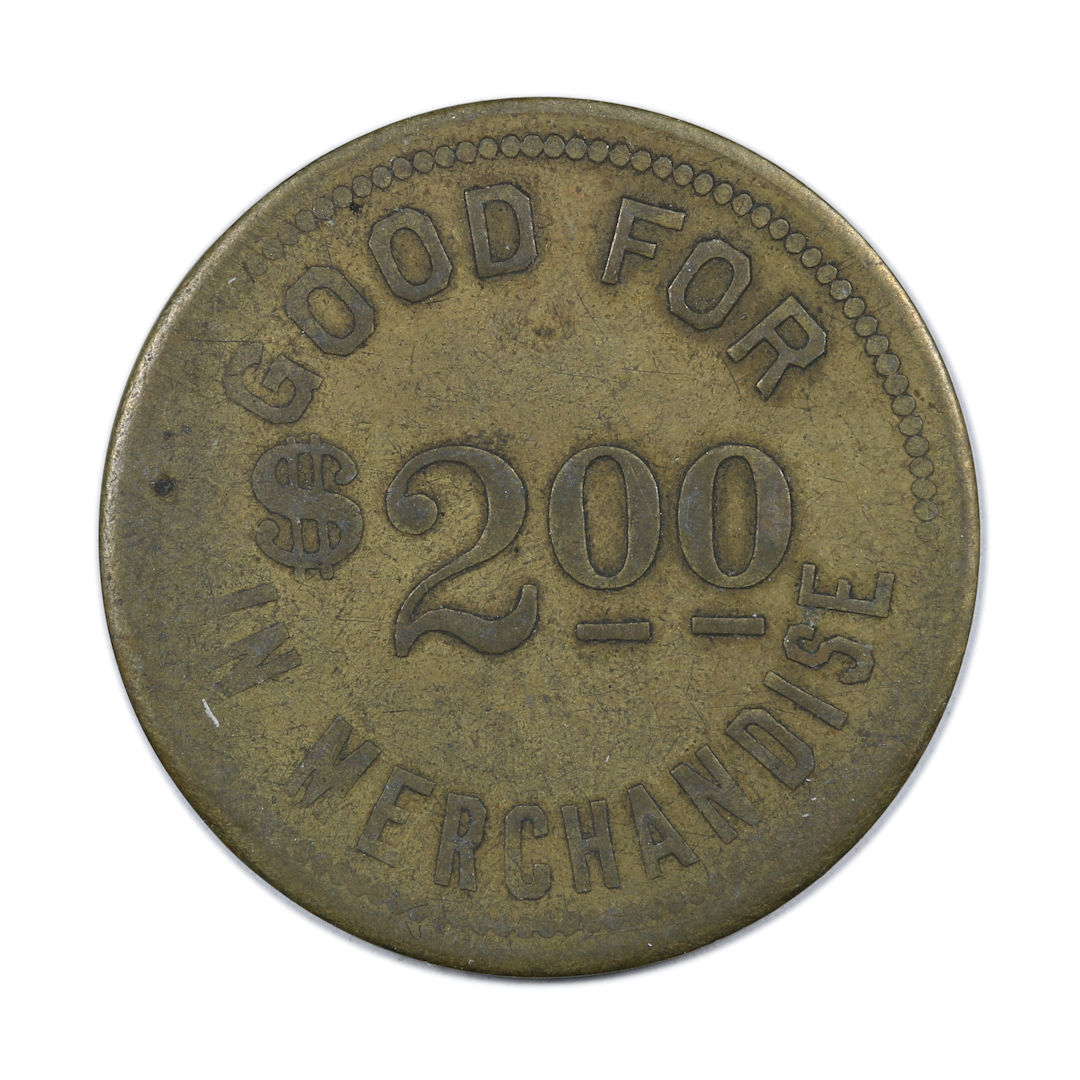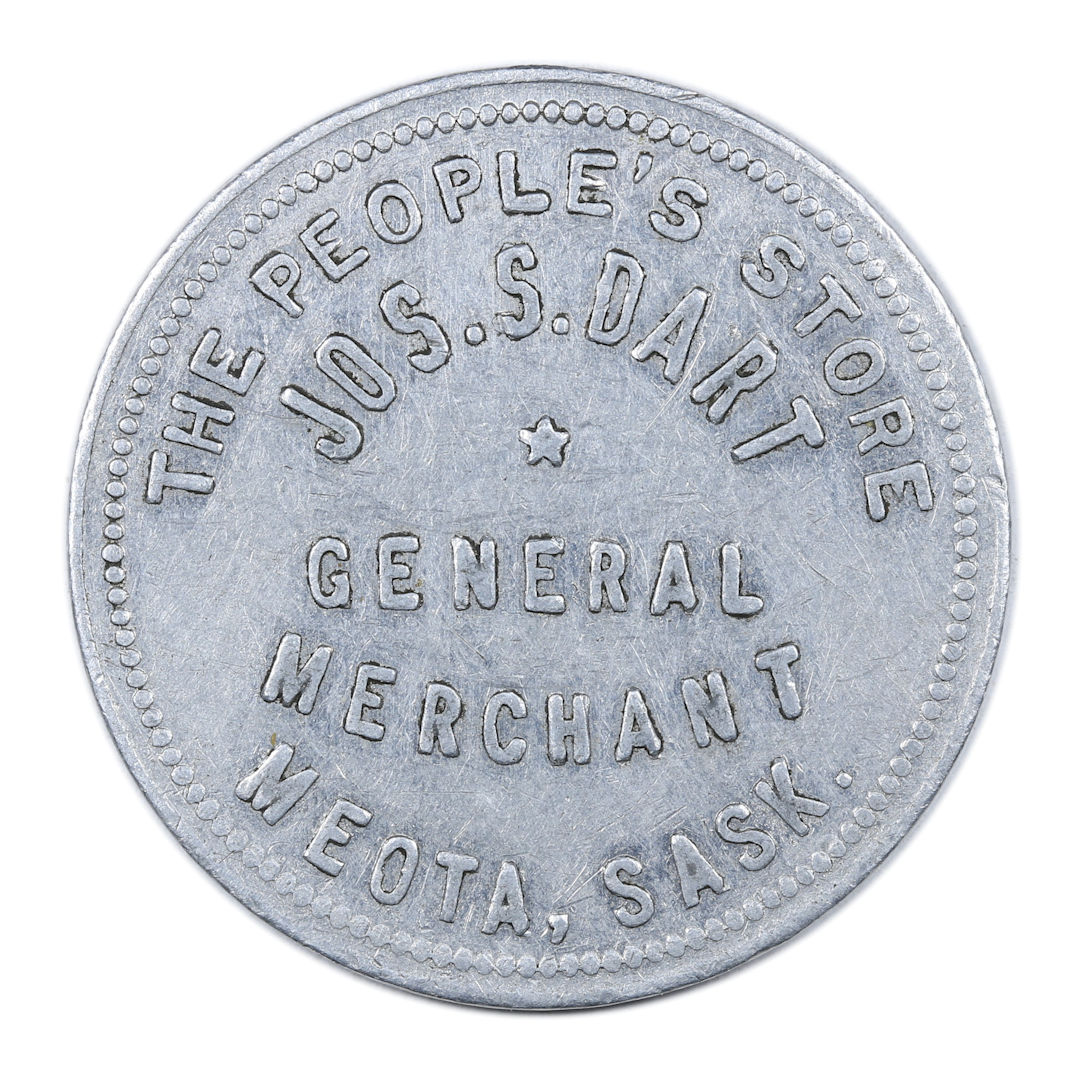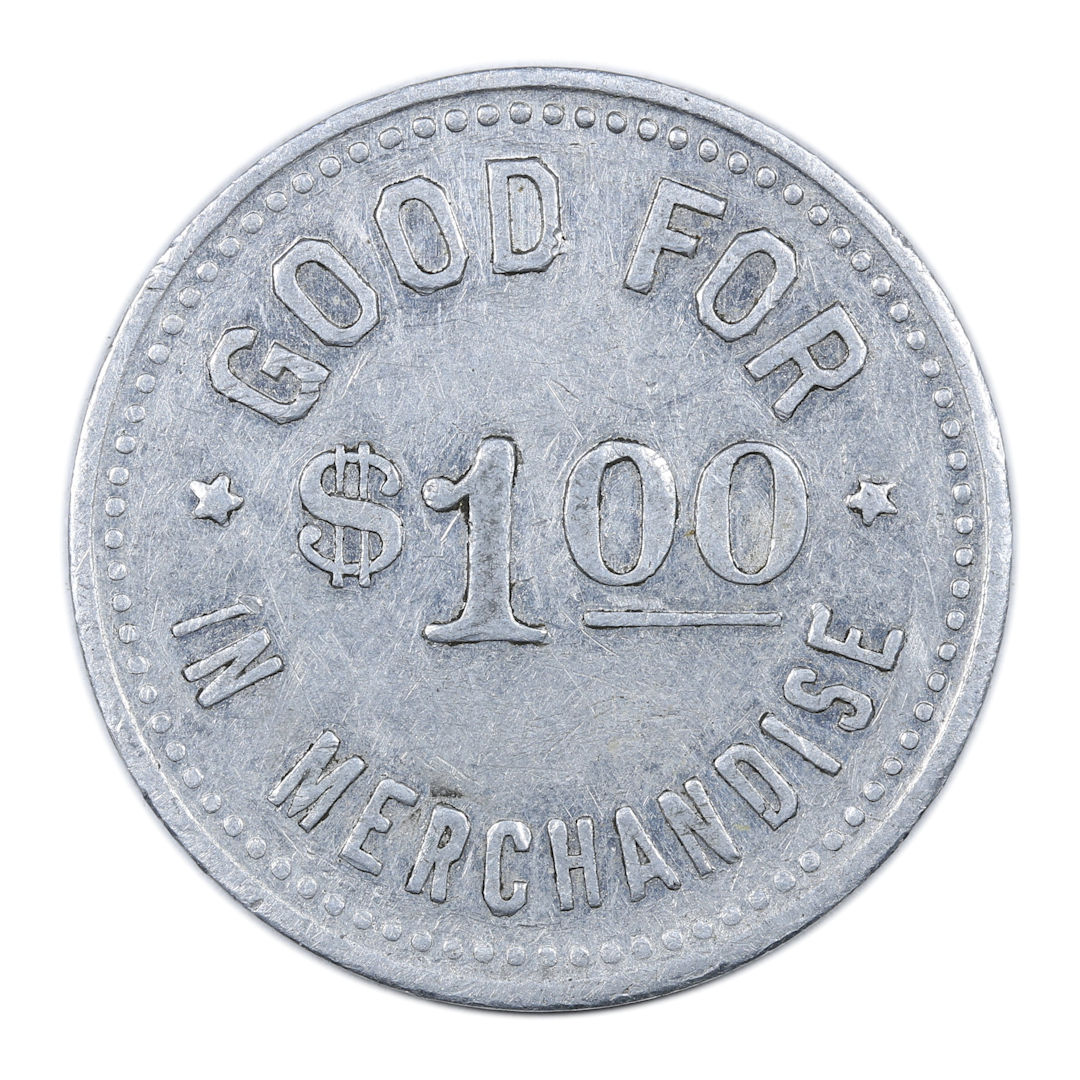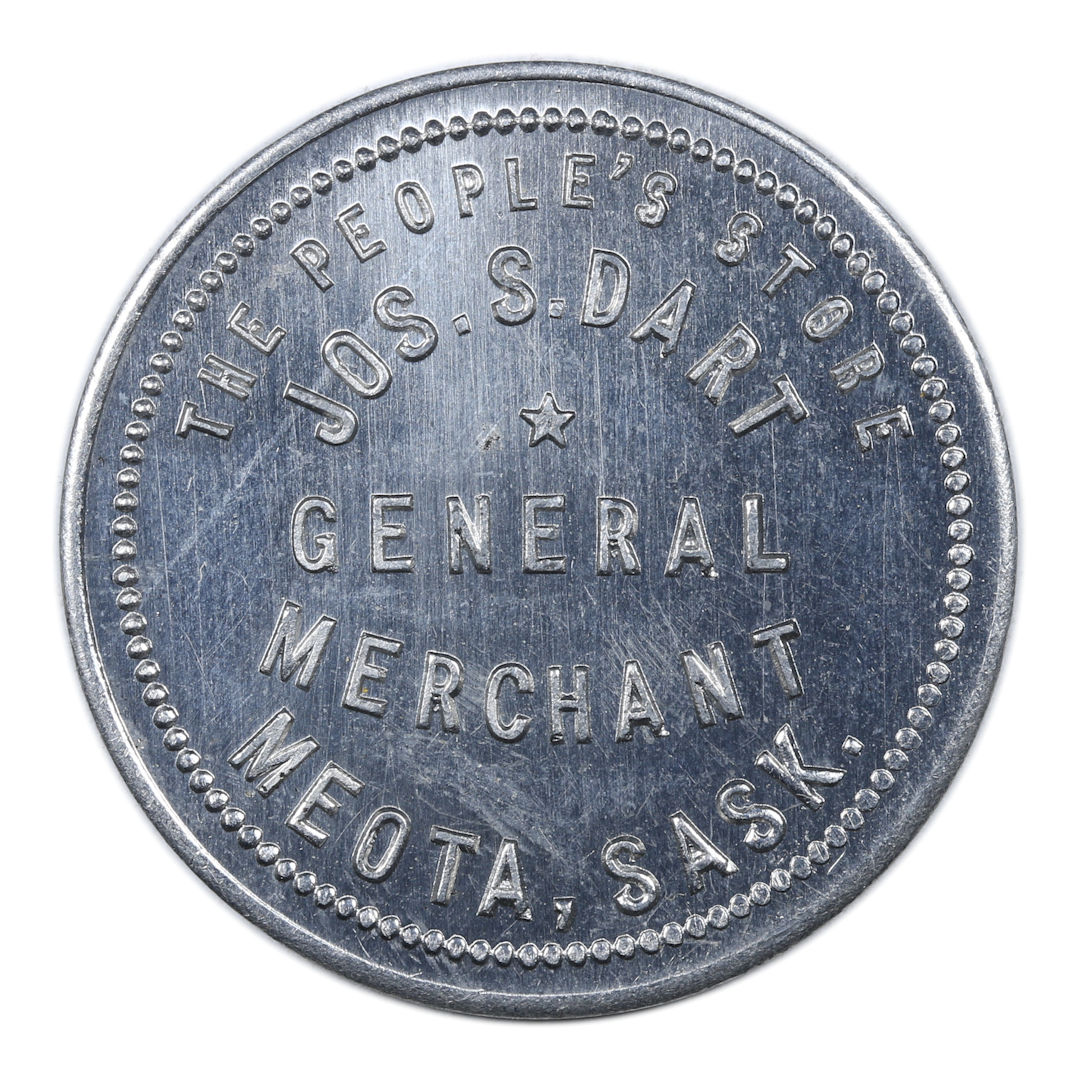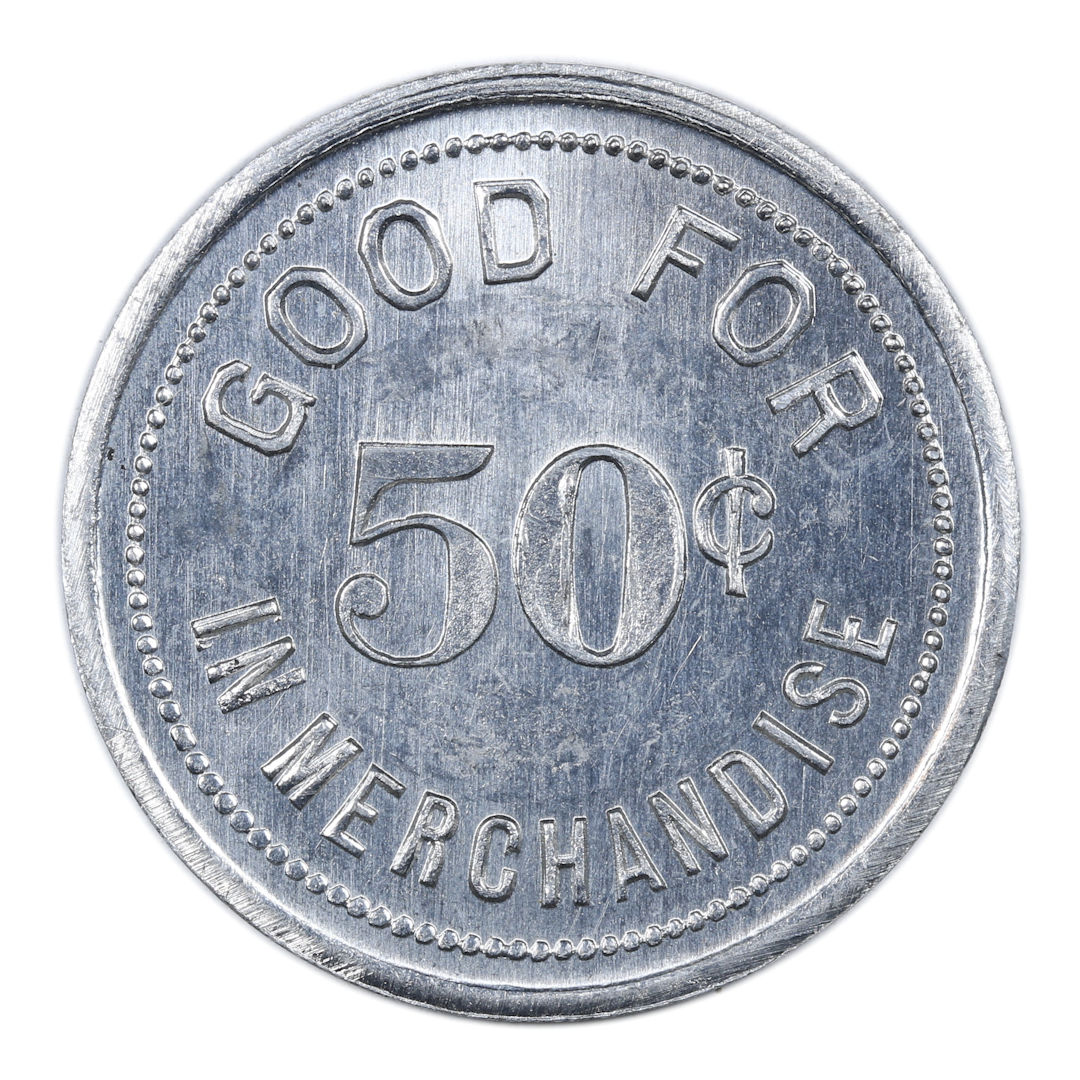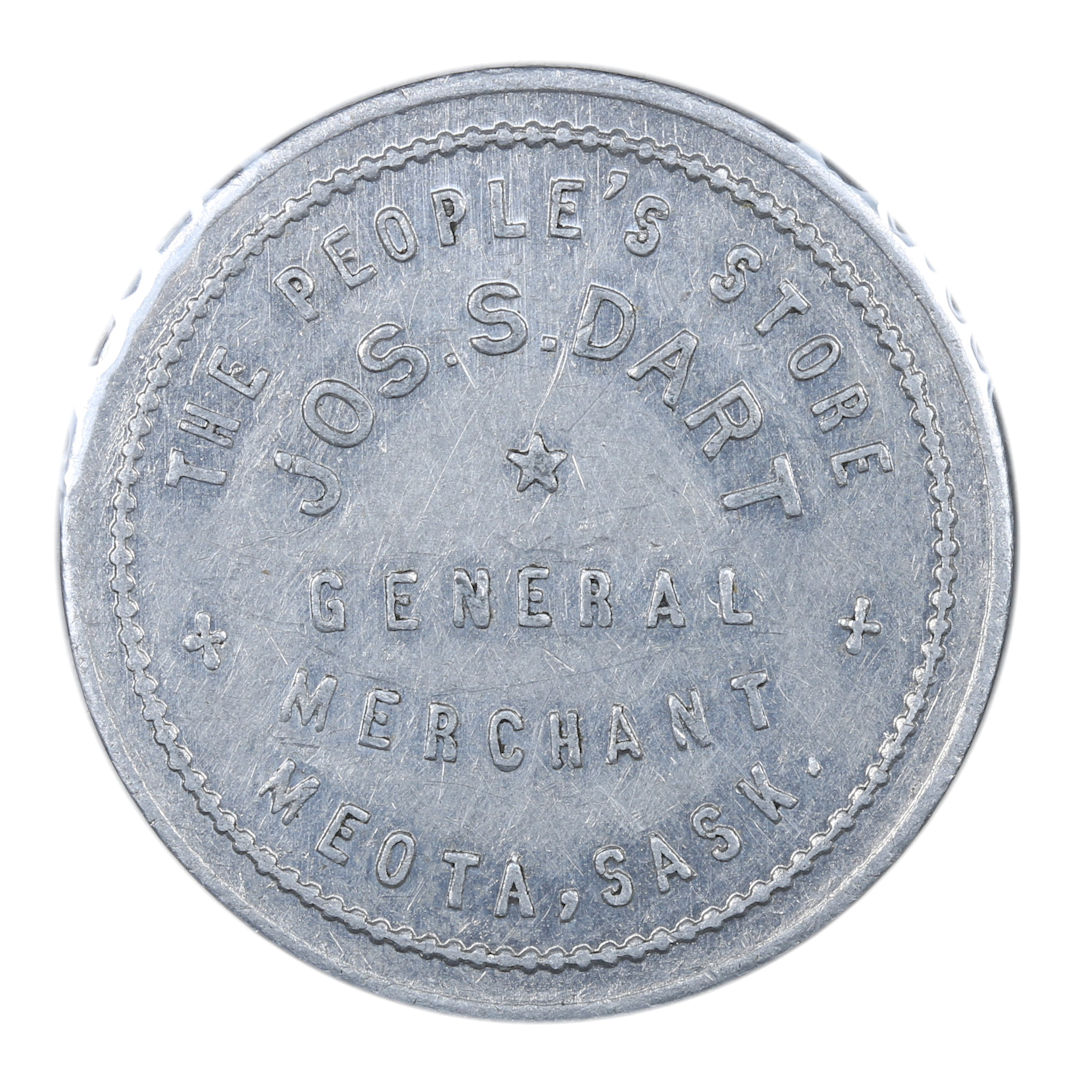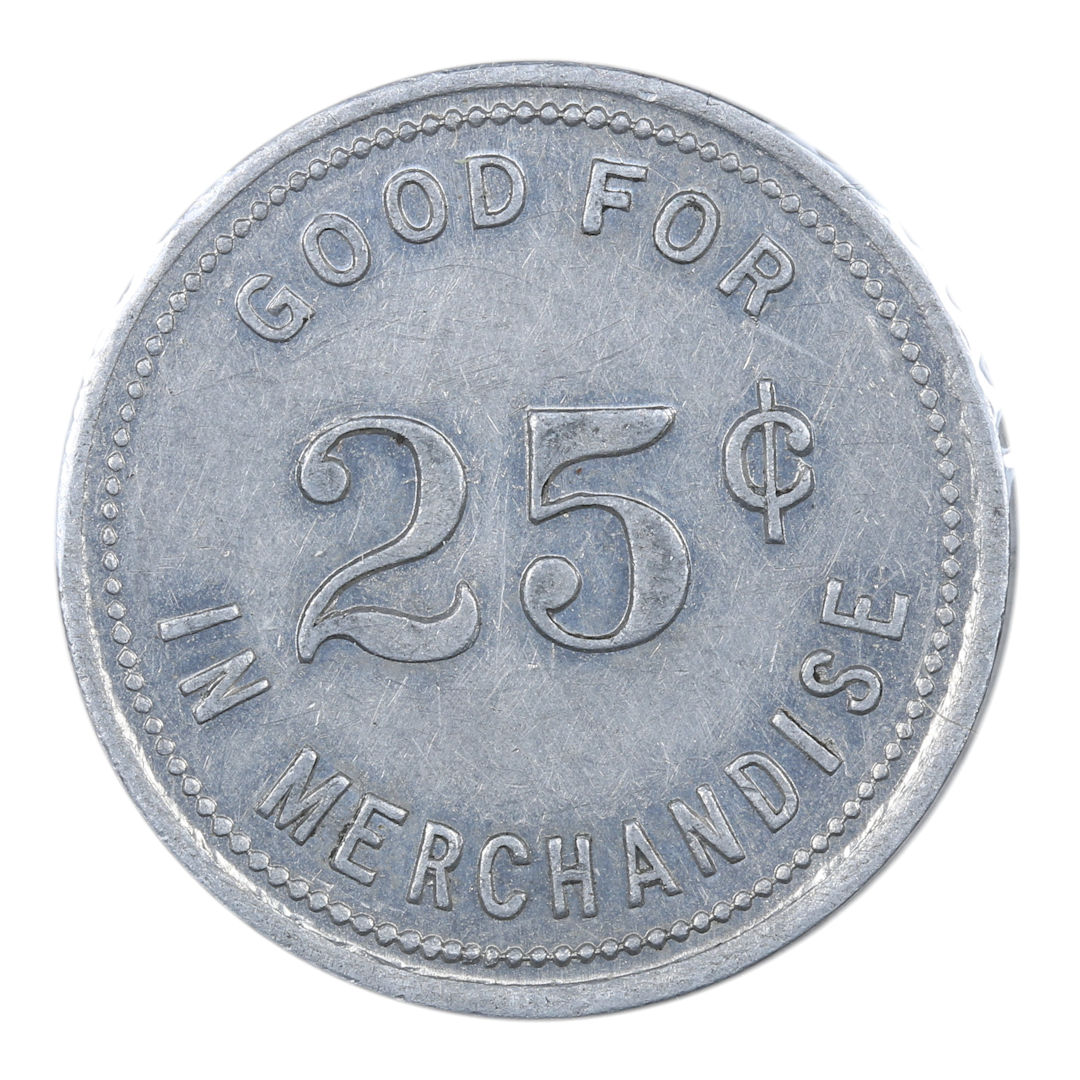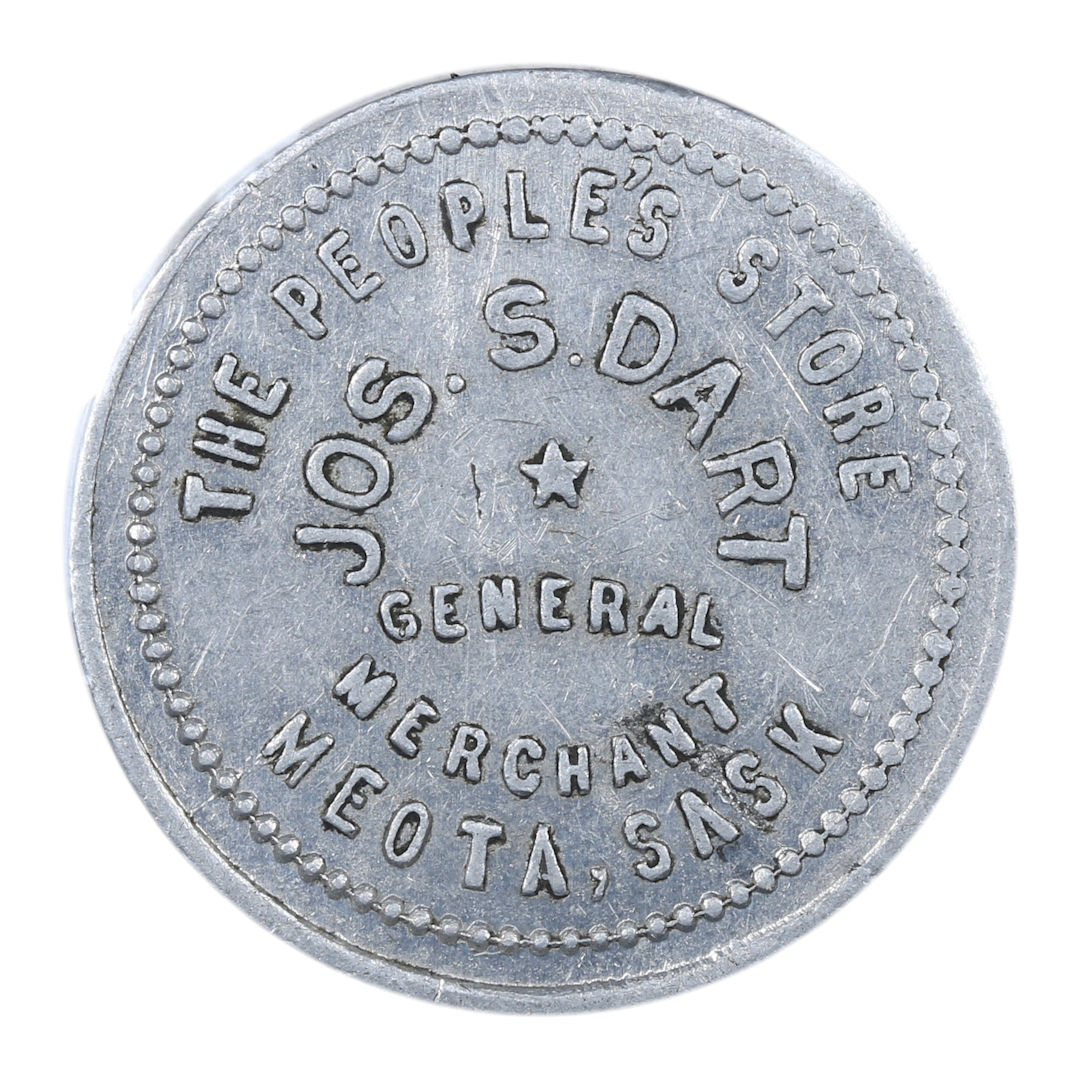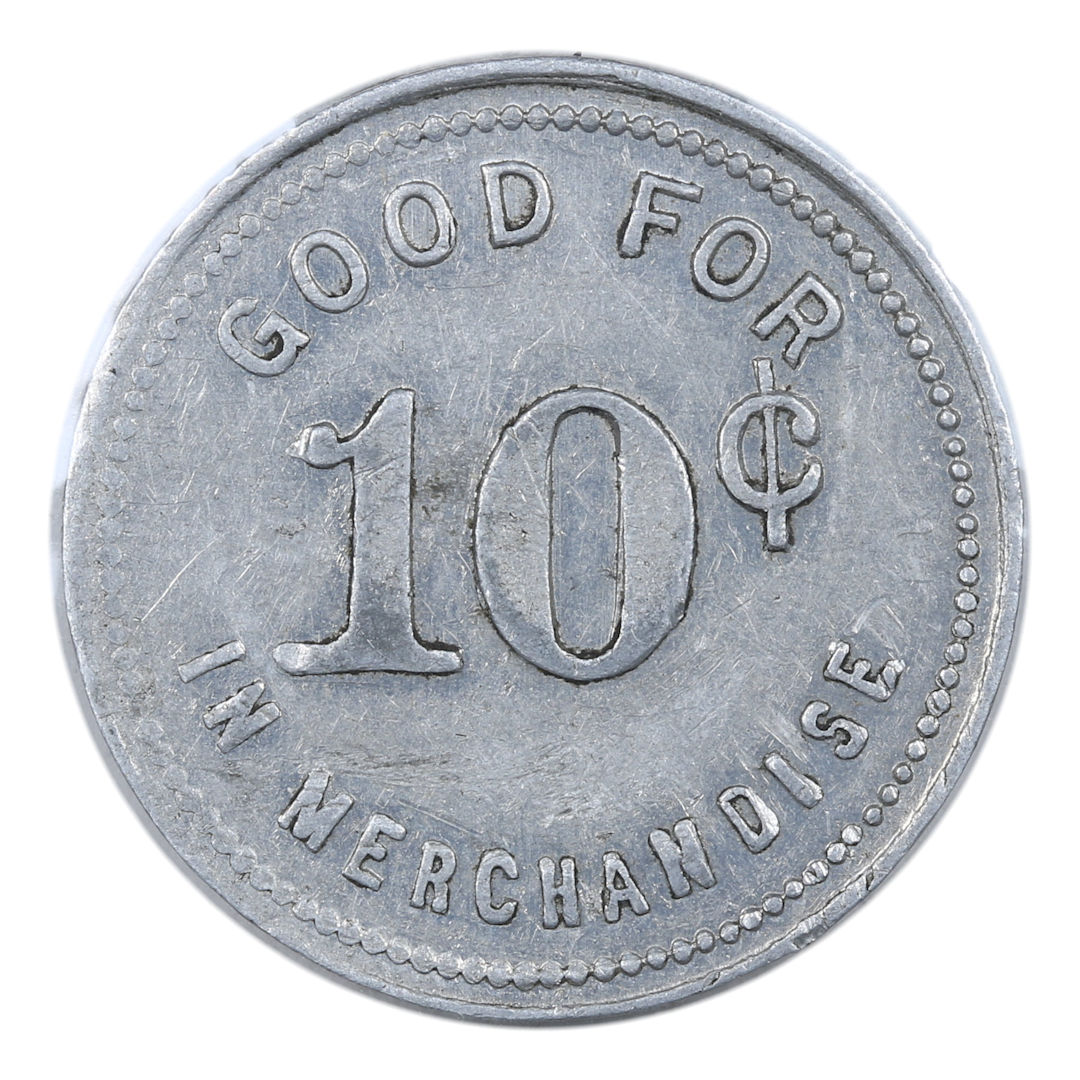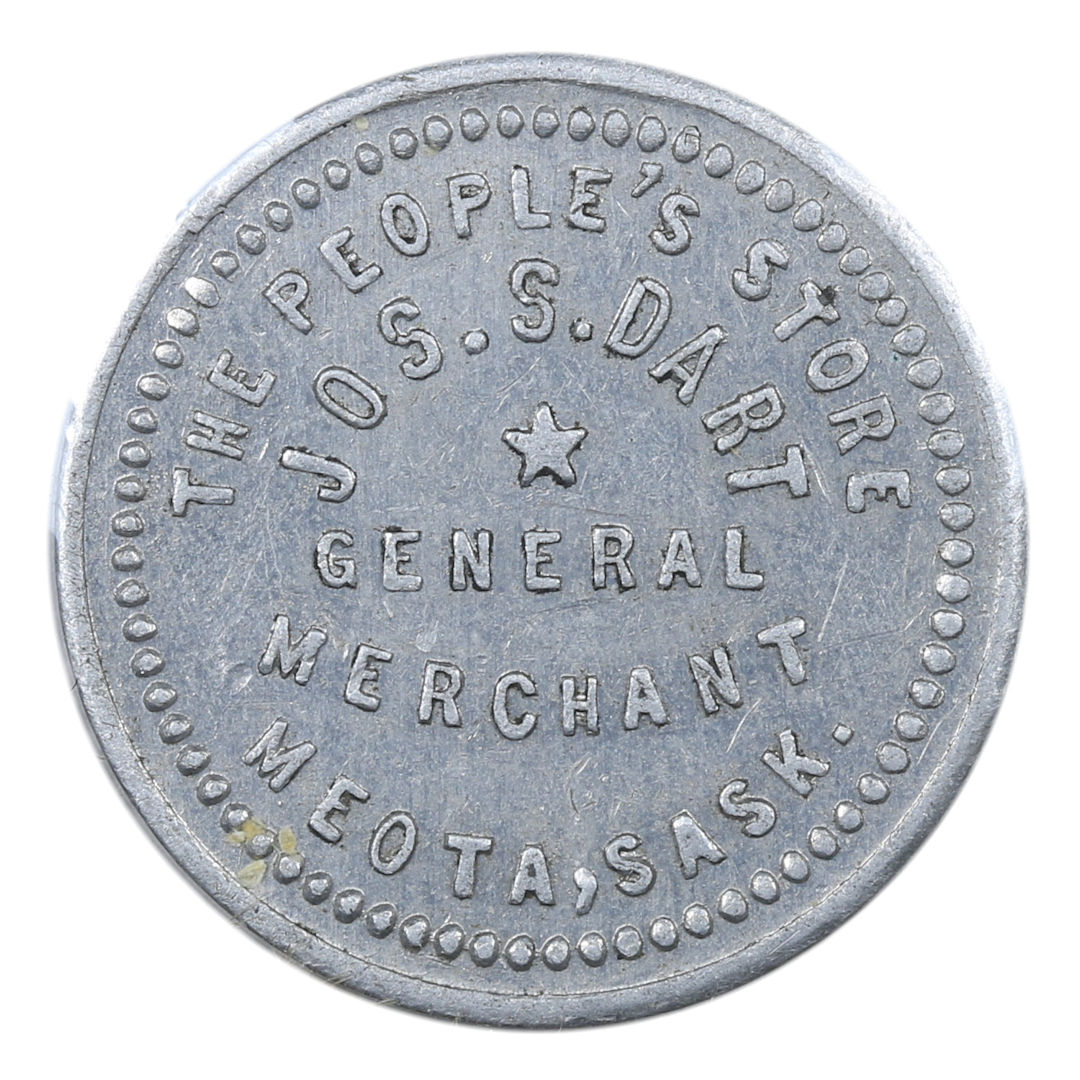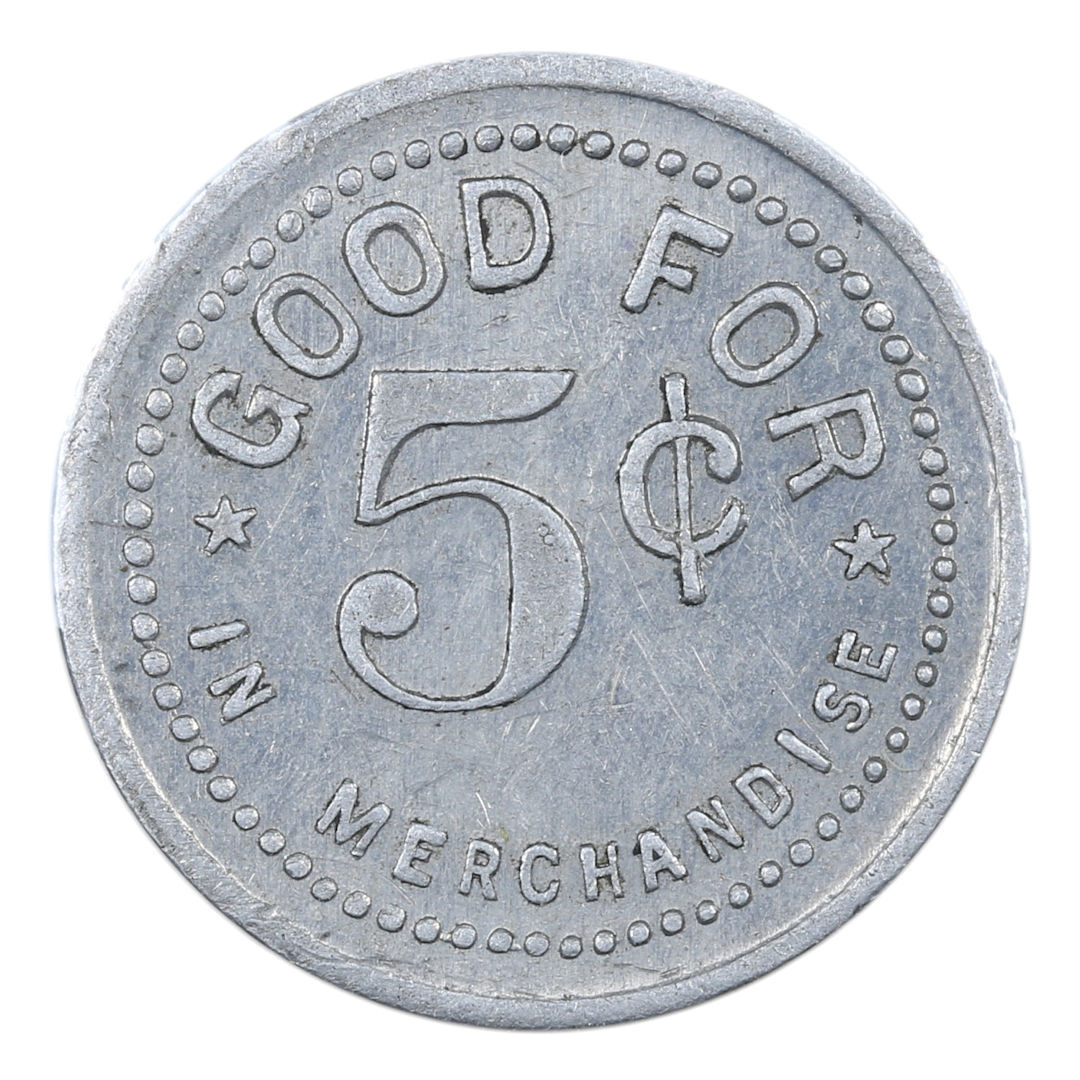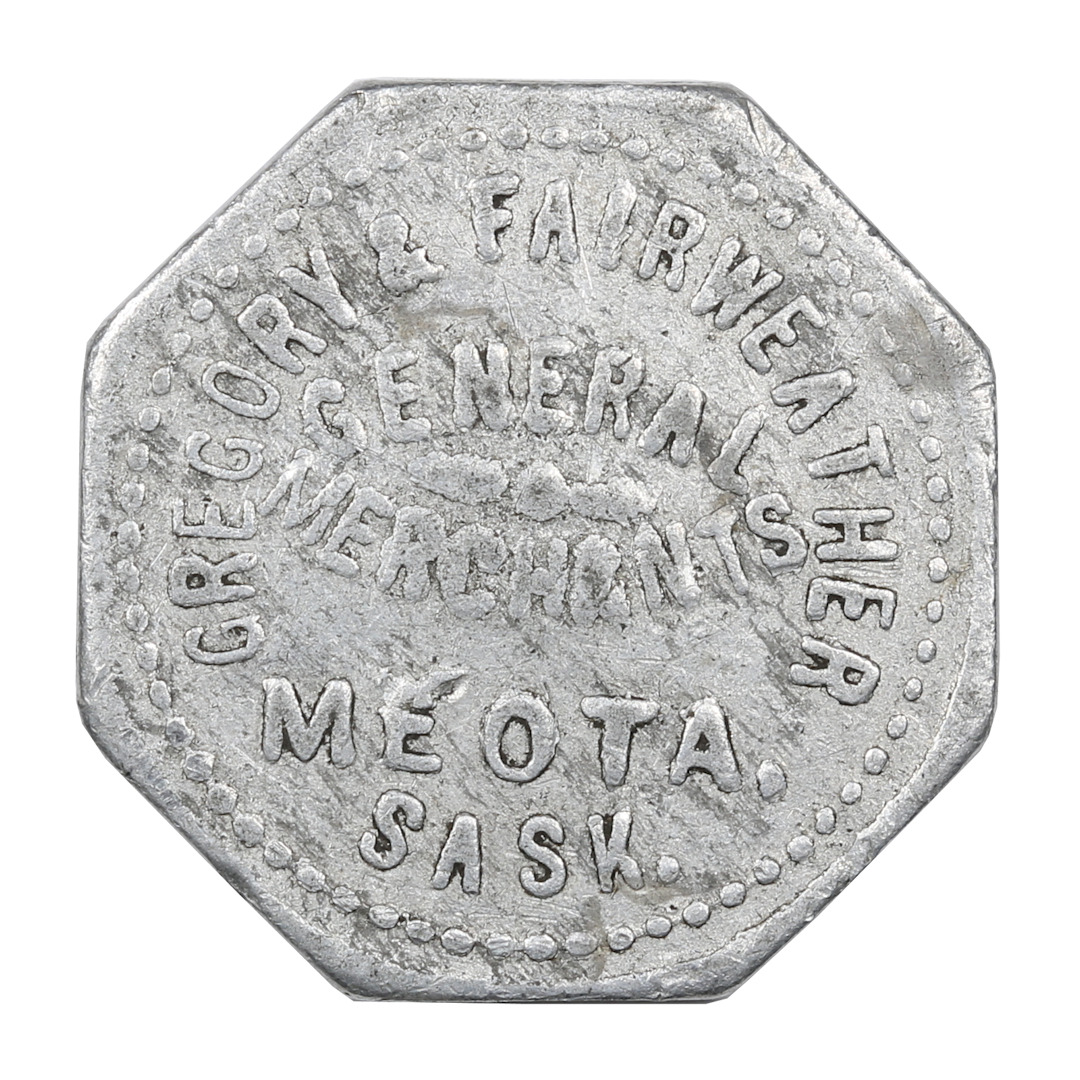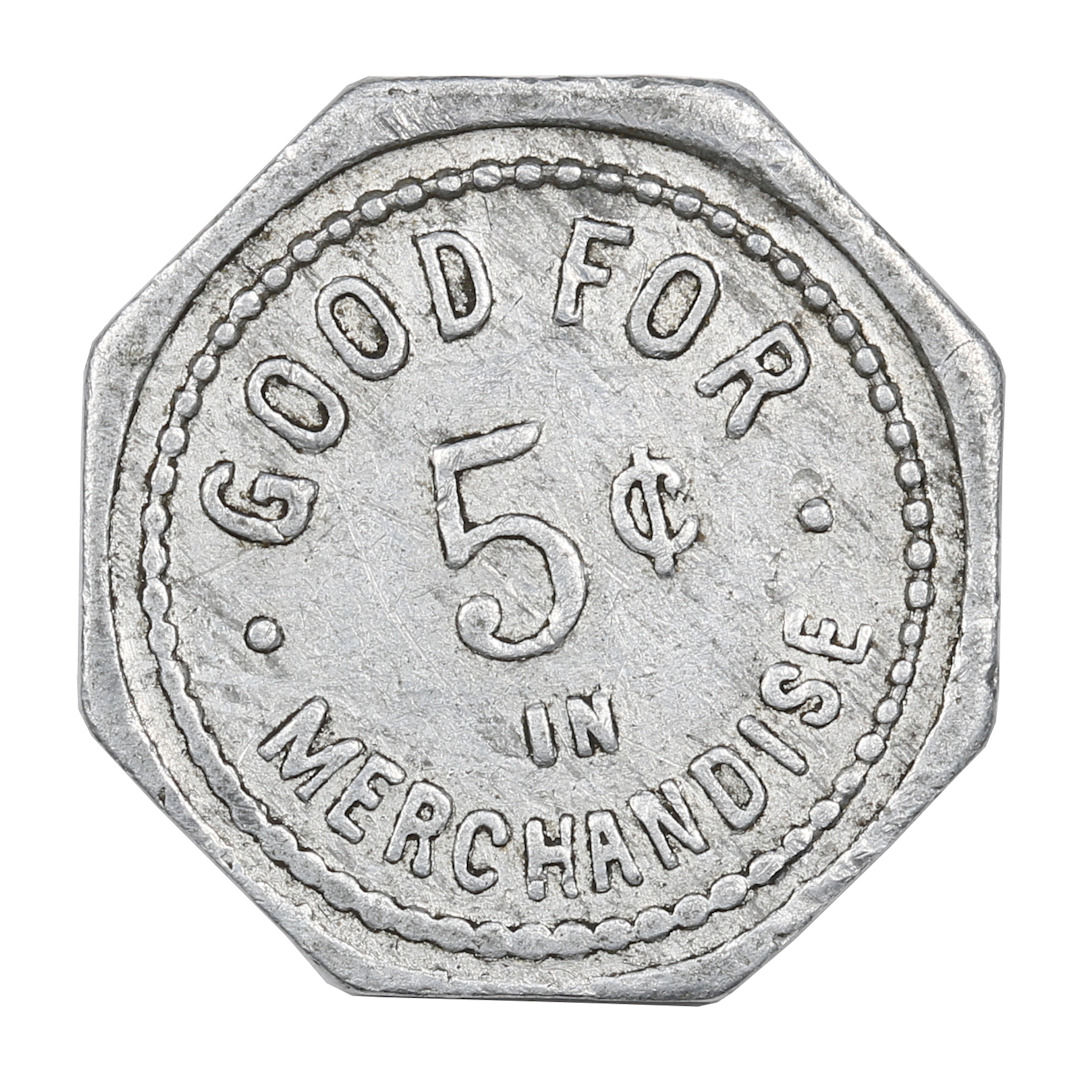Saskatchewan Merchant Trade Tokens
Token numbers 2790p to 2975h, Maple Creek to MeotaNOTE: Click on any photo to load a much larger version of the same photo |
| Return to Index Page |
Obverse Photo |
Reverse Photo |
Cat # |
Town/City |
Obverse Content (Reverse Content) [Token and Text Colour] |
Notes |
Type |
Shape |
Size |
Rarity |
2790 p |
Maple Creek |
C.B. Bromley (Good For 1 Pint Milk) |
A |
O |
27 |
9 |
|||
2790 p1 |
Maple Creek |
C.B. Bromley (Good For 1 Pint) |
A |
R |
25 |
10 |
|||
2795 t |
Maple Creek |
{Elks Head Logo} Maple Creek Lodge No. 490 Sask. (uniface) [White token color, Purple lettering] Issued in 1969, issue 1,000. |
P |
R |
42 |
1 |
|||
2795 t1 |
Maple Creek |
Sask. Elkathon Maple Creek 1988 (uniface) [Yellow token color, Black lettering] |
P |
R |
29 |
1 |
|||
2795 t2 |
Maple Creek |
95 {Elks Head Logo} Maple Creek Lodge No. 490 Sask. (uniface) [White token color, Purple lettering] |
P |
R |
38 |
2 |
|||
2800 r |
Maple Creek |
City Bakery A. Fleming Maple Creek (Good For 1 Loaf Of Bread) Andrew Fleming bought the bakery in 1917 from David Stewart and sold out in 1923 to P. Lees. |
A |
R |
24 |
9 |
|||
2800 r1 |
Maple Creek |
City Bakery A. Fleming Maple Creek (Good For 1 Loaf Of Bread) Andrew Fleming bought the bakery in 1917 from David Stewart and sold out in 1923 to P. Lees. |
A |
Sc8 |
30 |
10 |
|||
2805 t |
Maple Creek |
Commercial Hotel Maple Creek N.W.S. I.H.F. (Good For One Drink) These two tokens (2805t and 2806t) were listed In Breton's catalogue of 1894 with the following information, "the first token (B930), on this there are two mistakes, the initials of the issuer should be J.H.F. instead of I.H.F, and the letters N.W.S. for North West Settlement should be N.W.T. for North West Territory. These checks were used for a time in the hotel, the balance remaining, 75, were purchased by Mr. F.R.E. Campeau of Ottawa. The second tokens (B931), J.H. Fleming used these checks, which with his own initials and those of the territory correct, much more than the former ones. Consequently there were only twenty remaining when the lot was sold to Mr. Campeau of Ottawa." Matt Fleming, brother of John Fleming, states that to the best of his knowledge these tokens were never used in the hotel at all. Cecil Tannahill interviewed a number of old-timers of the area and not one could remember the tokens and could remember the bar in the hotel. It is quite possible the tokens were never used as all the tokens Cecil had seen are in uncirculated or extremely fine condition. The hotel was built in the early 1880's and the directory lists it as being sold in 1904 to Fred Downer. |
Breton # 930 |
B |
R |
25 |
4 |
||
2806 t |
Maple Creek |
Commercial Hotel Maple Creek N.W.T. J.H.F. (Good For One Drink) These two tokens (2805t and 2806t) were listed In Breton's catalogue of 1894 with the following information, "the first token (B930), on this there are two mistakes, the initials of the issuer should be J.H.F. instead of I.H.F, and the letters N.W.S. for North West Settlement should be N.W.T. for North West Territory. These checks were used for a time in the hotel, the balance remaining, 75, were purchased by Mr. F.R.E. Campeau of Ottawa. The second tokens (B931), J.H. Fleming used these checks, which with his own initials and those of the territory correct, much more than the former ones. Consequently there were only twenty remaining when the lot was sold to Mr. Campeau of Ottawa." Matt Fleming, brother of John Fleming, states that to the best of his knowledge these tokens were never used in the hotel at all. Cecil Tannahill interviewed a number of old-timers of the area and not one could remember the tokens and could remember the bar in the hotel. It is quite possible the tokens were never used as all the tokens Cecil had seen are in uncirculated or extremely fine condition. The hotel was built in the early 1880's and the directory lists it as being sold in 1904 to Fred Downer. |
Breton # 931 |
B |
R |
25 |
6 |
||
2806 t1 |
Maple Creek |
Commercial Hotel Maple Creek N.W.T. J.H.F. (Good For One Drink) It is now believed that this variety is a reproduction that was ordered and issued for the hotel's 100th anniversary which would have been in the 1980s. |
Different spacing on all letters on the obverse, and a different font was used on the reverse. |
B |
R |
25 |
3 |
||
2806 t2 |
Maple Creek |
Commercial Hotel Maple Creek N.W.T. J.H.F. (Good For One Drink) It is now believed that this variety is a reproduction that was ordered and issued for the hotel's 100th anniversary which would have been in the 1980s. |
Same as 2806t1 but different metal: German Silver (White Metal) |
W |
R |
25 |
3 |
||
2809 p |
Maple Creek |
Sam Ingram (Good For 1 Pint Of Milk) Sam Ingram started the dairy in 1919 and operated it until 1927 when he sold to Ed Salisbury. |
with obv stars |
A |
S |
26 |
10 |
||
2809 p1 |
Maple Creek |
Sam Ingram (Good For 1 Pint Of Milk) Sam Ingram started the dairy in 1919 and operated it until 1927 when he sold to Ed Salisbury. |
without obv stars |
A |
S |
26 |
10 |
||
2809 q |
Maple Creek |
Sam Ingram (Good For 1 Quart Milk) Sam Ingram started the dairy in 1919 and operated it until 1927 when he sold to Ed Salisbury. |
A |
S |
31 |
10 |
|||
2810 p |
Maple Creek |
S. Ingram One Pint Milk Maple Creek (uniface) Sam Ingram started the dairy in 1919 and operated it until 1927 when he sold to Ed Salisbury. During this period tokens were used but to date have not seen any of these. The dairy was taken over again by Sam Ingram in 1929 and at this time 2810p was issued. In 1931 more tokens were needed so 2811p was issued. These tokens were used until October 19th, 1944 when the last delivery of milk was made and the business went on a cash and carry basis. The dairy was in operation until 1962 when the herd was sold. |
incuse |
A |
R |
31 |
6 |
||
2810 p1 |
Maple Creek |
S. Ingram One Pint Milk Maple Creek (uniface) Sam Ingram started the dairy in 1919 and operated it until 1927 when he sold to Ed Salisbury. During this period tokens were used but to date have not seen any of these. The dairy was taken over again by Sam Ingram in 1929 and at this time 2810p was issued. In 1931 more tokens were needed so 2811p was issued. These tokens were used until October 19th, 1944 when the last delivery of milk was made and the business went on a cash and carry basis. The dairy was in operation until 1962 when the herd was sold. |
incuse, line between S.INGRAM and ONE PINT |
A |
R |
31 |
9 |
||
2811 p |
Maple Creek |
S. Ingram Maple Creek (Good For 1 Pint Milk) Sam Ingram started the dairy in 1919 and operated it until 1927 when he sold to Ed Salisbury. During this period tokens were used but to date have not seen any of these. The dairy was taken over again by Sam Ingram in 1929 and at this time 2810p was issued. In 1931 more tokens were needed so 2811p was issued. These tokens were used until October 19th, 1944 when the last delivery of milk was made and the business went on a cash and carry basis. The dairy was in operation until 1962 when the herd was sold. |
A |
R |
25 |
6 |
|||
2815 p |
Maple Creek |
Maple Creek Creamery Maple Creek Made In Usa (Good For 1 Pint Standard Milk) [Red token color, White lettering] These tokens were issued in 1940 and discontinued in 1943. |
P |
S |
23 |
5 |
|||
2815 q |
Maple Creek |
Maple Creek Creamery Ltd. Maple Creek Made In Usa (Good For 1 Quart Standard Milk) [Red token color, White lettering] These tokens were issued in 1940 and discontinued in 1943. |
P |
Sc8 |
38 |
6 |
|||
2820 r |
Maple Creek |
T.E. Pinnell Maple Creek Sask. (Good For 1 Loaf Of Bread) Thomas Pinnell opened a bakeshop in 1905 and in 1907 formed a company with his son; Pinnell & Co. Bakers. The business was discontinued in 1920. |
Smaller 'T.E. PINNELL' and has a star in the center of the obverse. |
A |
O |
25 |
9 |
||
2820 r1 |
Maple Creek |
T.E. Pinnell Maple Creek Sask. (Good For 1 Loaf Of Bread) Thomas Pinnell opened a bakeshop in 1905 and in 1907 formed a company with his son; Pinnell & Co. Bakers. The business was discontinued in 1920. |
Larger 'T.E. PINNELL' and instead of a star in the center has a dot with rays on obverse |
A |
O |
25 |
10 |
||
2825 f |
Marcelin |
H.E. Labrosse Marcelin (Good For 25¢ In Merchandise In Store) |
A |
R |
25 |
10 |
|||
2826 e |
Margo |
Macrae Bros. General Merchants Margo, Sask. (Good For 50¢ In Trade) |
A |
O |
31 |
10 |
|||
2826 g |
Margo |
Macrae Bros. General Merchants Margo, Sask. (Good For 10¢ In Trade) |
A |
O |
23 |
10 |
|||
2826 j |
Margo |
Macrae Bros. General Merchants Margo, Sask. (Good For 1¢ In Trade) |
A |
O |
18 |
10 |
|||
2830 t |
Marsden |
{Elks Full Logo} Marsden Elks 548 (uniface) [White token color, Purple lettering] |
P |
R |
38 |
1 |
|||
2835 t |
Marshall |
{Lions logo} Marshall & District Sask. (uniface) [Blue token color, Gold lettering] |
P |
R |
42 |
1 |
|||
2836 t |
Marshall |
Royal Canadian Legion Marshall Sask. #92 Branch (uniface) [Green token color, Silver lettering] |
P |
R |
42 |
1 |
|||
2860 d |
Maryfield |
Grey & Wilson General Merchants Furniture & Hardware Maryfield, Sask. (Good For $1.00 In Merchandise) Robert Grey and W. Victor Wilson, brothers-in-law, started the general store in 1913 and in 1916 Grey purchased his partner's share. Sold out to W. Baru in 1918. |
A |
R |
36 |
10 |
|||
2860 f |
Maryfield |
Grey & Wilson General Merchants Furniture & Hardware Maryfield, Sask. (Good For 25¢ In Merchandise) Robert Grey and W. Victor Wilson, brothers-in-law, started the general store in 1913 and in 1916 Grey purchased his partner's share. Sold out to W. Baru in 1918. |
A |
R |
28 |
9 |
|||
2860 h |
Maryfield |
Grey & Wilson General Merchants Furniture & Hardware Maryfield, Sask. (Good For 5¢ In Merchandise) Robert Grey and W. Victor Wilson, brothers-in-law, started the general store in 1913 and in 1916 Grey purchased his partner's share. Sold out to W. Baru in 1918. |
A |
O |
20 |
10 |
|||
2860 j |
Maryfield |
Grey & Wilson General Merchants Furniture & Hardware Maryfield, Sask. (Good For ??? In Merchandise) Robert Grey and W. Victor Wilson, brothers-in-law, started the general store in 1913 and in 1916 Grey purchased his partner's share. Sold out to W. Baru in 1918. |
Holed, and the hole removed the denomination. A portion of a "1" may be visible so it is assumed for now that it is a 1 cent token. |
A |
O |
22 |
10 |
||
2900 f |
Mazenod |
Lindy's Store 25¢ Mazenod, Sask. (Good Only For Cash Purchases Of Merchandise) W.V. Lindeburgh purchased the hardware store from A. Witzke in the fall of 1927 and in 1946 sold out to R. A. Robertson. No one remembers the tokens being used. |
A |
R |
28 |
10 |
|||
2930 b |
McTaggart |
Thos. Moffet & Co. Mctaggart Sask. (Good For $5.00 In Trade) Thomas Moffet opened his hardware and furniture store in 1908 and in 1909 added an implement dealership. In 1916 he called in an auctioneer, it is thought due to financial trouble, and sold everything at the sale, even the building. In 1917 the building was moved to Weyburn, a distance of 8 miles, by steam engine. |
C |
R |
25 |
10 |
|||
2930 d |
McTaggart |
Thos. Moffet & Co. Mctaggart Sask. (Good For $1.00 In Trade) Thomas Moffet opened his hardware and furniture store in 1908 and in 1909 added an implement dealership. In 1916 he called in an auctioneer, it is thought due to financial trouble, and sold everything at the sale, even the building. In 1917 the building was moved to Weyburn, a distance of 8 miles, by steam engine. |
A |
R |
35 |
10 |
|||
2930 e |
McTaggart |
Thos. Moffet & Co. Mctaggart Sask. (Good For 50¢ In Trade) Thomas Moffet opened his hardware and furniture store in 1908 and in 1909 added an implement dealership. In 1916 he called in an auctioneer, it is thought due to financial trouble, and sold everything at the sale, even the building. In 1917 the building was moved to Weyburn, a distance of 8 miles, by steam engine. |
A |
R |
31 |
8 |
|||
2930 f |
McTaggart |
Thos. Moffet & Co. Mctaggart Sask. (Good For 25¢ In Trade) Thomas Moffet opened his hardware and furniture store in 1908 and in 1909 added an implement dealership. In 1916 he called in an auctioneer, it is thought due to financial trouble, and sold everything at the sale, even the building. In 1917 the building was moved to Weyburn, a distance of 8 miles, by steam engine. |
A |
R |
28 |
9 |
|||
2930 f1 |
McTaggart |
Thos. Moffet & Co. Mctaggart Sask. (Good For 25¢ In Trade) Thomas Moffet opened his hardware and furniture store in 1908 and in 1909 added an implement dealership. In 1916 he called in an auctioneer, it is thought due to financial trouble, and sold everything at the sale, even the building. In 1917 the building was moved to Weyburn, a distance of 8 miles, by steam engine. |
Obverse center embellishment smaller than on 2930 f |
A |
R |
28 |
10 |
||
2930 g |
McTaggart |
Thos. Moffet & Co. Mctaggart Sask. (Good For 10¢ In Trade) Thomas Moffet opened his hardware and furniture store in 1908 and in 1909 added an implement dealership. In 1916 he called in an auctioneer, it is thought due to financial trouble, and sold everything at the sale, even the building. In 1917 the building was moved to Weyburn, a distance of 8 miles, by steam engine. |
A |
R |
25 |
9 |
|||
2950 h |
Meacham |
Adilman & Brown Meacham, Sask. (Good For 5¢ In Trade) Maurice Adilman started the general store in 1918 and in 1920 took in A. Brown as partner, the partnership continued until 1923 when Adilman sold his share to Brown and moved to Marcelin. Brown continued in the store until 1927 when he sold to George Hutzal. |
A |
R |
21 |
10 |
|||
2951 t |
Meeting Lake |
Meeting Lake Regional Park (uniface) [White token color, Black lettering] |
P |
R |
38 |
1 |
|||
2952 t |
Meadow Lake |
{Elks Head Logo} Meadow Lake Lodge #281 Sask. (uniface) [White token color, Gold lettering] The Lodge was formed in August 1938. On January 15th, 1976 tokens were issued for use at the bar, issue 1,000 |
P |
R |
42 |
1 |
|||
2955 g |
Melfort |
Barry & Son Melfort, Sask. (Good For 10¢ In Trade) |
A |
R |
24 |
10 |
|||
2955 t |
N/A |
N/A (N/A) |
Number changed from 2955t to 2952t |
N/A |
N/A |
N/A |
N/A |
||
2956 m |
Melfort |
Coin Car Wash Melfort (uniface) |
All letters Incuse, Qty 3 nubs |
B |
C |
24 |
1 |
||
2956 m1 |
Melfort |
Car Wash (1 Econo 2 Deluxe 3 Super Deluxe) |
All letters incuse |
B |
R |
28 |
3 |
||
2957 m |
Melfort |
D C (uniface) |
Diamond Car Wash. All letters incuse, hand punched. |
B |
R |
25 |
1 |
||
2957 m1 |
Melfort |
D C D C |
Diamond Car Wash. All letters incuse, hand punched. |
B |
R |
25 |
1 |
||
2957 t |
Melfort |
Billy's Barn Dance Assoc. Inc. Melfort Sk. (Image Of Building) [Blue token color, Gold lettering] |
P |
R |
38 |
1 |
|||
2958 t |
Melfort |
{Elks Head Logo} Lodge #89 Melfort Sask. (uniface) [White token color, Purple lettering] |
P |
R |
42 |
1 |
|||
2959 t |
Melville |
{Elks Head Logo} Melville Lodge #407 Sask. (uniface) [Yellow token color, Black lettering] Lodge #407 was formed in 1956. Tokens were issued in 1967 for use at the bar, issue 500. In 1973 more tokens were ordered, again 500 and these are identical to the first issue. |
P |
R |
42 |
1 |
|||
2960 r |
Melville |
Hepburn & Atkey Bakery Melville, Sask. (Good For 1 Loaf) William J. Hepburn of Centralia, Ontario; moved west in 1899 and after several jobs became the first telegrapher hired by the Grand Trunk Pacific Railway. In 1908, while at Lazare, Manitoba; he met a railway cook, Joe Gerock and the two decided to start a restaurant in Melville. Joe went to Melville and started in a rented building, doing the cooking as well as everything else until Hepburn moved there in April 1909. In July of that year Gerock sold his share of the business to Jack Atkey. Business continued to prosper and in 1912 they expanded to their own building and had room enough for a bakery. Tokens were issued at this time and were used until 1932 when they closed the restaurant because of the depression. |
A |
T |
30 |
10 |
|||
2963 r |
Melville |
Melville Steam Bakery (Good For 1 Loaf) |
A |
Sc8 |
29 |
10 |
|||
2965 r |
Melville |
Miller & Downey Melville (Good For 1 Loaf Of Bread) |
A |
Re32 |
19 |
10 |
|||
2966 q |
Melville |
Redenbachs Dairy Ltd. - Made In USA (Good For 1 Quart Milk) [Black token color, White lettering] |
P |
R |
38 |
7 |
|||
2970 b |
Meota |
The People's Store Jos. S. Dart General Merchant Meota, Sask. (Good For $5.00 In Merchandise) Joseph Dart left Ontario in 1901 and went to Ponoka, Alberta where he took up a homestead and also worked on nearby ranches to make a little extra money. In 1903, having proved his homestead, he sold out and moved to Edmonton where he worked for a wholesale house. In the spring of 1904 he left Edmonton with a barge load of supplies and travelled down the North Sask. River to the mouth of the Jackfish River. With the help of several homesteaders the barge was dismantled and the lumber and supplies carted north to where the Fort Pitt Trail forded the Jackfish River. Joseph Dart set up a tent and started his store, next to the 'post office' (a mail drop on the Trail) named Beachview operated by George Douglas. In 1905, Joseph's brother-in-law, Art Fitzgerald, came west and joined into a partnership with Joseph and they then took over operation of the 'post office'. At this time an application was made for an official post office at Beachview. The Postal Department requested a different name for the outlet and 'MEOTATE' (a First Nations name for 'a good place to camp' - there are several different versions of this naming) was suggested and when the sanction came back from the Postal Department it appeared as Meota. In 1910 the railway came north from North Battleford bypassing the small community of Meota so Dart moved his store the four miles to a site selected by the railway and the name Meota was accepted. The partnership dissolved at the time of the move. It is thought that tokens were issued shortly after the move and used until around 1923. In 1945 the operation of the store was taken over by the older son, John. |
B |
R |
34 |
9 |
|||
2970 c |
Meota |
The People's Store Jos. S. Dart General Merchant Meota, Sask. (Good For $2.00 In Merchandise) Joseph Dart left Ontario in 1901 and went to Ponoka, Alberta where he took up a homestead and also worked on nearby ranches to make a little extra money. In 1903, having proved his homestead, he sold out and moved to Edmonton where he worked for a wholesale house. In the spring of 1904 he left Edmonton with a barge load of supplies and travelled down the North Sask. River to the mouth of the Jackfish River. With the help of several homesteaders the barge was dismantled and the lumber and supplies carted north to where the Fort Pitt Trail forded the Jackfish River. Joseph Dart set up a tent and started his store, next to the 'post office' (a mail drop on the Trail) named Beachview operated by George Douglas. In 1905, Joseph's brother-in-law, Art Fitzgerald, came west and joined into a partnership with Joseph and they then took over operation of the 'post office'. At this time an application was made for an official post office at Beachview. The Postal Department requested a different name for the outlet and 'MEOTATE' (a First Nations name for 'a good place to camp' - there are several different versions of this naming) was suggested and when the sanction came back from the Postal Department it appeared as Meota. In 1910 the railway came north from North Battleford bypassing the small community of Meota so Dart moved his store the four miles to a site selected by the railway and the name Meota was accepted. The partnership dissolved at the time of the move. It is thought that tokens were issued shortly after the move and used until around 1923. In 1945 the operation of the store was taken over by the older son, John. |
B |
R |
32 |
8 |
|||
2970 d |
Meota |
The People's Store Jos. S. Dart General Merchant Meota, Sask. (Good For $1.00 In Merchandise) Joseph Dart left Ontario in 1901 and went to Ponoka, Alberta where he took up a homestead and also worked on nearby ranches to make a little extra money. In 1903, having proved his homestead, he sold out and moved to Edmonton where he worked for a wholesale house. In the spring of 1904 he left Edmonton with a barge load of supplies and travelled down the North Sask. River to the mouth of the Jackfish River. With the help of several homesteaders the barge was dismantled and the lumber and supplies carted north to where the Fort Pitt Trail forded the Jackfish River. Joseph Dart set up a tent and started his store, next to the 'post office' (a mail drop on the Trail) named Beachview operated by George Douglas. In 1905, Joseph's brother-in-law, Art Fitzgerald, came west and joined into a partnership with Joseph and they then took over operation of the 'post office'. At this time an application was made for an official post office at Beachview. The Postal Department requested a different name for the outlet and 'MEOTATE' (a First Nations name for 'a good place to camp' - there are several different versions of this naming) was suggested and when the sanction came back from the Postal Department it appeared as Meota. In 1910 the railway came north from North Battleford bypassing the small community of Meota so Dart moved his store the four miles to a site selected by the railway and the name Meota was accepted. The partnership dissolved at the time of the move. It is thought that tokens were issued shortly after the move and used until around 1923. In 1945 the operation of the store was taken over by the older son, John. |
A |
R |
34 |
8 |
|||
2970 e |
Meota |
The People's Store Jos. S. Dart General Merchant Meota, Sask. (Good For 50¢ In Merchandise) Joseph Dart left Ontario in 1901 and went to Ponoka, Alberta where he took up a homestead and also worked on nearby ranches to make a little extra money. In 1903, having proved his homestead, he sold out and moved to Edmonton where he worked for a wholesale house. In the spring of 1904 he left Edmonton with a barge load of supplies and travelled down the North Sask. River to the mouth of the Jackfish River. With the help of several homesteaders the barge was dismantled and the lumber and supplies carted north to where the Fort Pitt Trail forded the Jackfish River. Joseph Dart set up a tent and started his store, next to the 'post office' (a mail drop on the Trail) named Beachview operated by George Douglas. In 1905, Joseph's brother-in-law, Art Fitzgerald, came west and joined into a partnership with Joseph and they then took over operation of the 'post office'. At this time an application was made for an official post office at Beachview. The Postal Department requested a different name for the outlet and 'MEOTATE' (a First Nations name for 'a good place to camp' - there are several different versions of this naming) was suggested and when the sanction came back from the Postal Department it appeared as Meota. In 1910 the railway came north from North Battleford bypassing the small community of Meota so Dart moved his store the four miles to a site selected by the railway and the name Meota was accepted. The partnership dissolved at the time of the move. It is thought that tokens were issued shortly after the move and used until around 1923. In 1945 the operation of the store was taken over by the older son, John. |
A |
R |
32 |
9 |
|||
2970 f |
Meota |
The People's Store Jos. S. Dart General Merchant Meota, Sask. (Good For 25¢ In Merchandise) Joseph Dart left Ontario in 1901 and went to Ponoka, Alberta where he took up a homestead and also worked on nearby ranches to make a little extra money. In 1903, having proved his homestead, he sold out and moved to Edmonton where he worked for a wholesale house. In the spring of 1904 he left Edmonton with a barge load of supplies and travelled down the North Sask. River to the mouth of the Jackfish River. With the help of several homesteaders the barge was dismantled and the lumber and supplies carted north to where the Fort Pitt Trail forded the Jackfish River. Joseph Dart set up a tent and started his store, next to the 'post office' (a mail drop on the Trail) named Beachview operated by George Douglas. In 1905, Joseph's brother-in-law, Art Fitzgerald, came west and joined into a partnership with Joseph and they then took over operation of the 'post office'. At this time an application was made for an official post office at Beachview. The Postal Department requested a different name for the outlet and 'MEOTATE' (a First Nations name for 'a good place to camp' - there are several different versions of this naming) was suggested and when the sanction came back from the Postal Department it appeared as Meota. In 1910 the railway came north from North Battleford bypassing the small community of Meota so Dart moved his store the four miles to a site selected by the railway and the name Meota was accepted. The partnership dissolved at the time of the move. It is thought that tokens were issued shortly after the move and used until around 1923. In 1945 the operation of the store was taken over by the older son, John. |
A |
R |
29 |
9 |
|||
2970 g |
Meota |
The People's Store Jos. S. Dart General Merchant Meota, Sask. (Good For 10¢ In Merchandise) Joseph Dart left Ontario in 1901 and went to Ponoka, Alberta where he took up a homestead and also worked on nearby ranches to make a little extra money. In 1903, having proved his homestead, he sold out and moved to Edmonton where he worked for a wholesale house. In the spring of 1904 he left Edmonton with a barge load of supplies and travelled down the North Sask. River to the mouth of the Jackfish River. With the help of several homesteaders the barge was dismantled and the lumber and supplies carted north to where the Fort Pitt Trail forded the Jackfish River. Joseph Dart set up a tent and started his store, next to the 'post office' (a mail drop on the Trail) named Beachview operated by George Douglas. In 1905, Joseph's brother-in-law, Art Fitzgerald, came west and joined into a partnership with Joseph and they then took over operation of the 'post office'. At this time an application was made for an official post office at Beachview. The Postal Department requested a different name for the outlet and 'MEOTATE' (a First Nations name for 'a good place to camp' - there are several different versions of this naming) was suggested and when the sanction came back from the Postal Department it appeared as Meota. In 1910 the railway came north from North Battleford bypassing the small community of Meota so Dart moved his store the four miles to a site selected by the railway and the name Meota was accepted. The partnership dissolved at the time of the move. It is thought that tokens were issued shortly after the move and used until around 1923. In 1945 the operation of the store was taken over by the older son, John. |
A |
R |
25 |
8 |
|||
2970 h |
Meota |
The People's Store Jos. S. Dart General Merchant Meota, Sask. (Good For 5¢ In Merchandise) Joseph Dart left Ontario in 1901 and went to Ponoka, Alberta where he took up a homestead and also worked on nearby ranches to make a little extra money. In 1903, having proved his homestead, he sold out and moved to Edmonton where he worked for a wholesale house. In the spring of 1904 he left Edmonton with a barge load of supplies and travelled down the North Sask. River to the mouth of the Jackfish River. With the help of several homesteaders the barge was dismantled and the lumber and supplies carted north to where the Fort Pitt Trail forded the Jackfish River. Joseph Dart set up a tent and started his store, next to the 'post office' (a mail drop on the Trail) named Beachview operated by George Douglas. In 1905, Joseph's brother-in-law, Art Fitzgerald, came west and joined into a partnership with Joseph and they then took over operation of the 'post office'. At this time an application was made for an official post office at Beachview. The Postal Department requested a different name for the outlet and 'MEOTATE' (a First Nations name for 'a good place to camp' - there are several different versions of this naming) was suggested and when the sanction came back from the Postal Department it appeared as Meota. In 1910 the railway came north from North Battleford bypassing the small community of Meota so Dart moved his store the four miles to a site selected by the railway and the name Meota was accepted. The partnership dissolved at the time of the move. It is thought that tokens were issued shortly after the move and used until around 1923. In 1945 the operation of the store was taken over by the older son, John. |
A |
R |
21 |
8 |
|||
2975 h |
Meota |
Gregory & Fairweather General Merchants Meota Sask. (Good For 5¢ In Merchandise) Before the village was incorporated, a grocery store and post office had been operated by Mr. George Simpson.
The store was taken over by John Gregory and Eugene Fairweather and in 1910 was enlarged to accommodate a full line of general merchandise.
An upper floor was added for living quarters. The store with the post office attached occupied the corner opposite the Lakeview Hotel and provided a
friendly rival to Dart's through the years. It had served the public under Detweiller and Snow, Pirot and Brenier, Aubrey Sutton, and was owned by
Bert Lafreniere when it burned to the ground in 1956. |
A |
O |
21 |
10 |
| Return to Index Page | |



